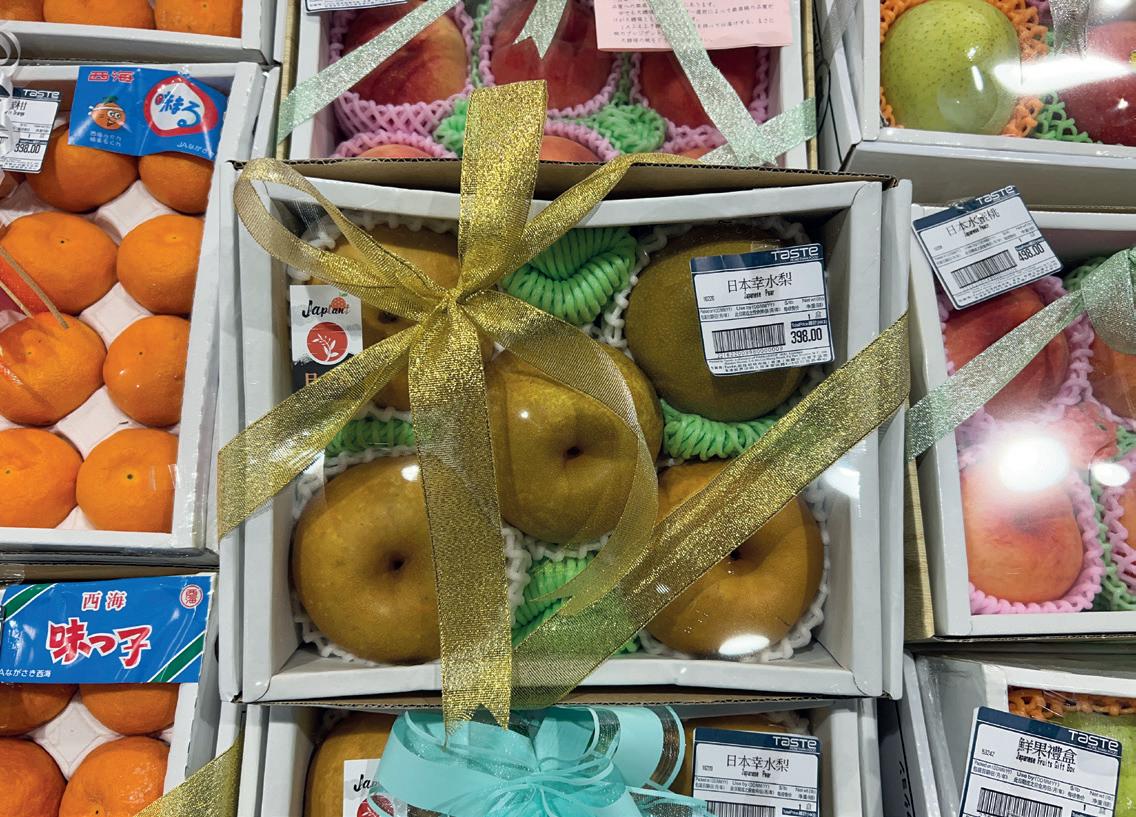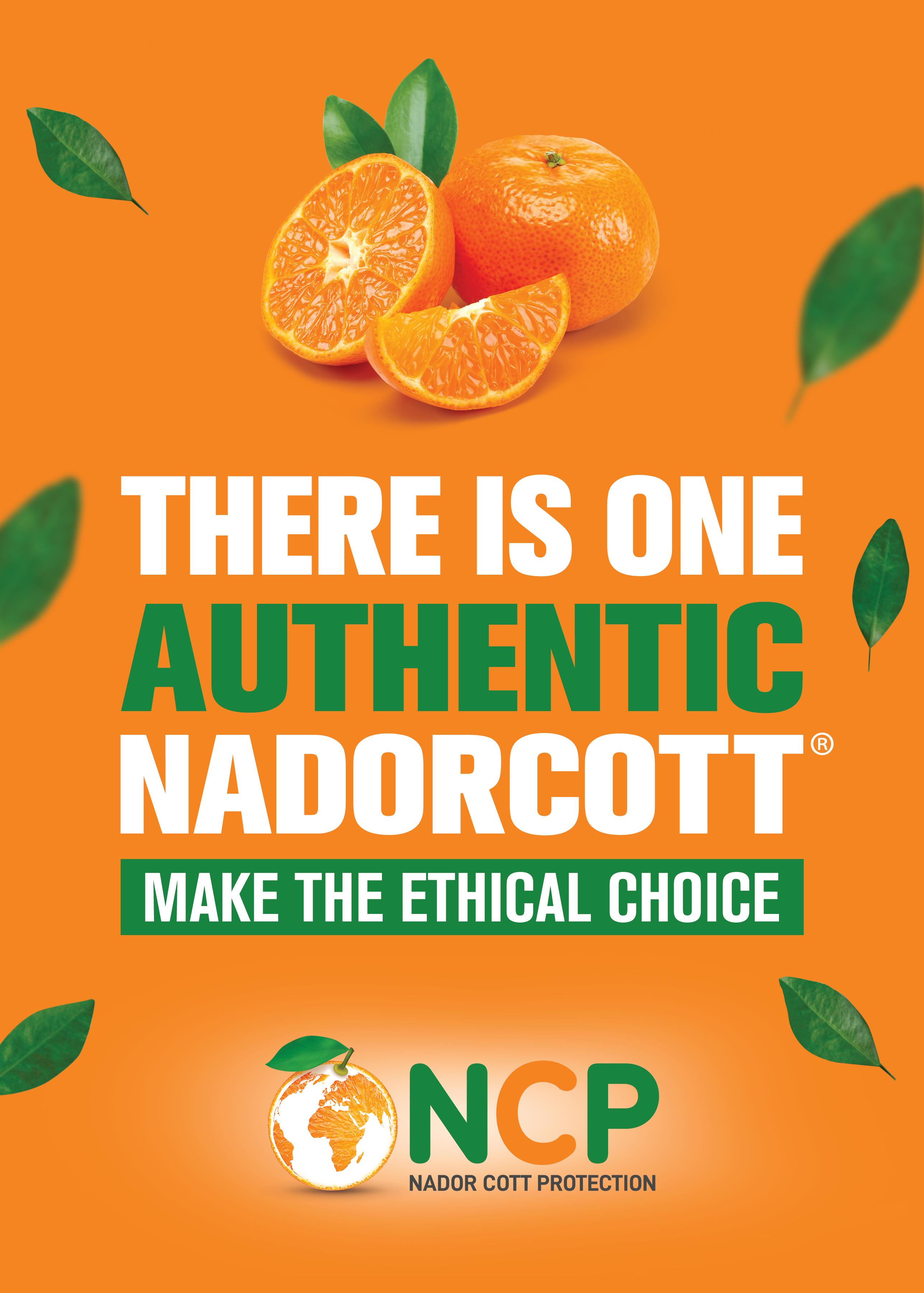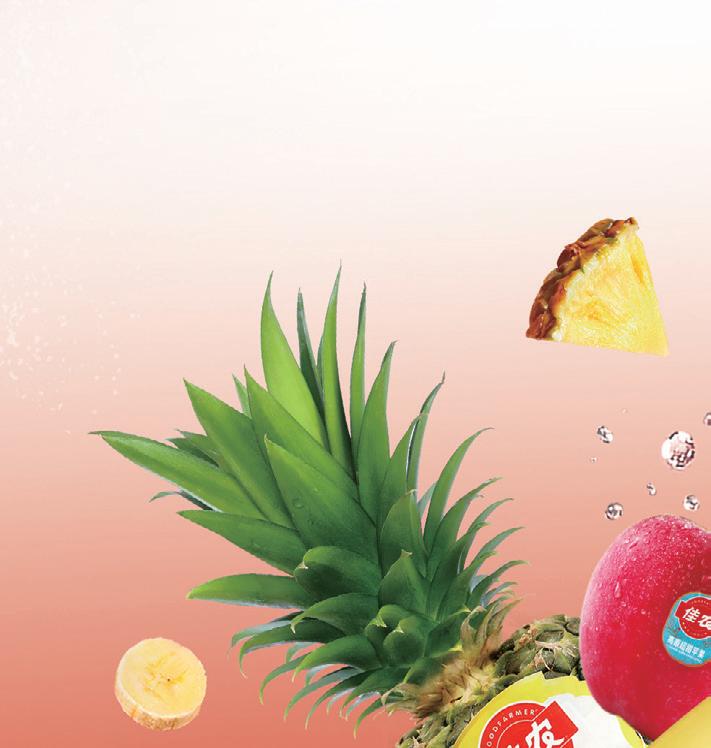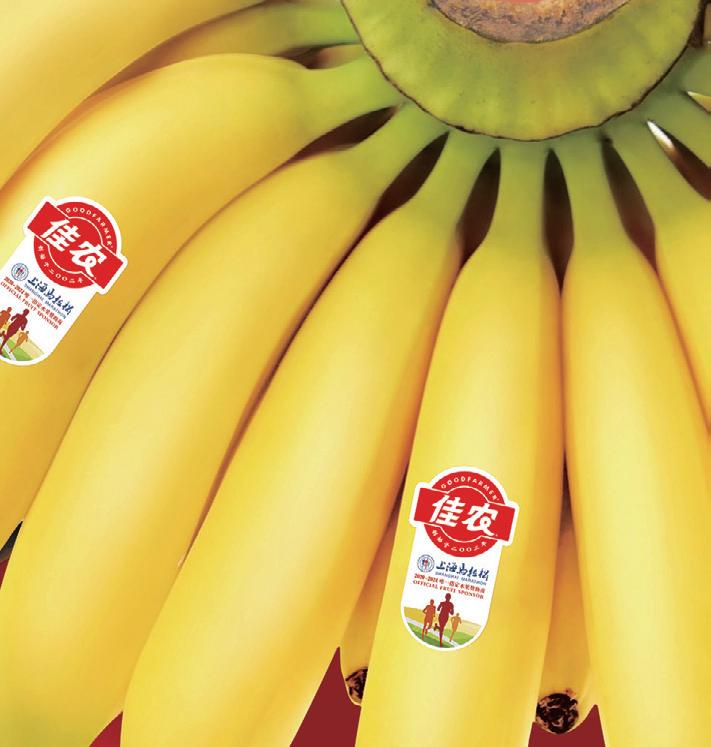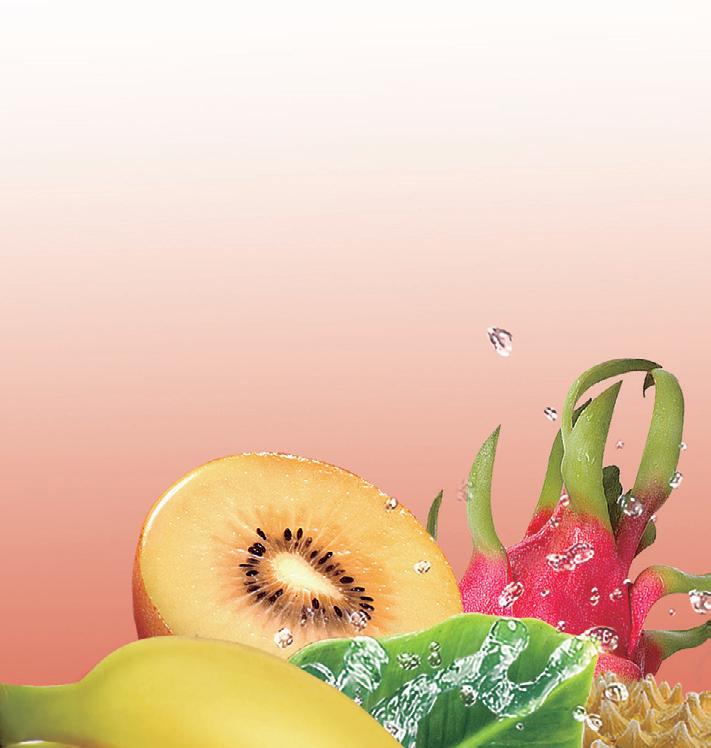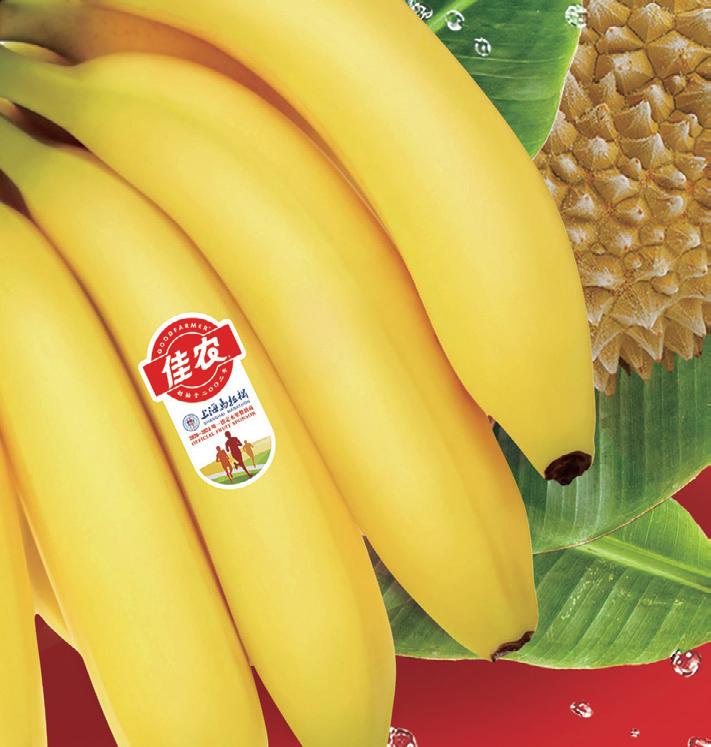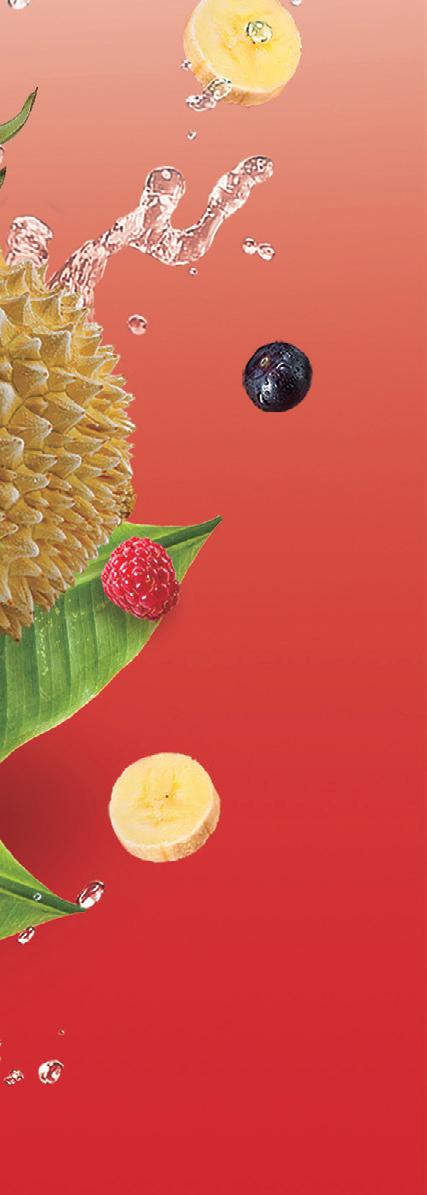EUROF RUIT
FRUIT ATTRACTION EDITION
READ THIS EDITION ON THE EUROFRUIT APP

PUBLICATION SPONSOR

NEWS


FRUIT ATTRACTION EDITION
READ THIS EDITION ON THE EUROFRUIT APP

PUBLICATION SPONSOR

NEWS


All eyes are on Europe’s biggest fruit and vegetable exporter as it showcases its offer to the world
FRUIT ATTRACTION
MIDDLE EAST

DISTRIBUTED AT
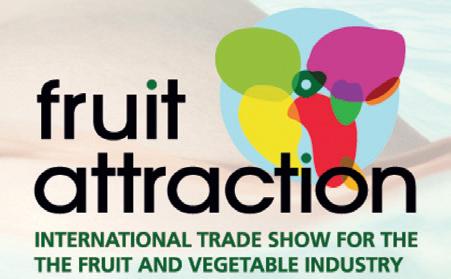










As we
look ahead to Madrid, Rotterdam and Berlin,
there is huge uncertainty about what our climate has in store for us over the next 12 months
It was great to be back in Hong Kong last month for Asia Fruit Logistica, where more than 700 exhibitors from 42 countries, as well as several thousand visitors, returned for what you might argue is the first full-scale version of the event since September 2019. A chance to catch up, to shoot the breeze, you might say. But there is now an ill wind blowing, a gathering storm we cannot ignore. During those four years, the world has witnessed an escalation in extreme weather. Droughts and floods in particular have placed enormous pressure on fresh produce supply chains. And this year’s succession of record-breaking events caught up with Hong Kong itself while we were there: late on 7 September, the city saw its heaviest hourly rainfall since records began almost 150 years ago, and this meant we were forced to cancel the third day of our exhibition. Fortunately, lots of good work had already been done in the previous two days. But it certainly brought home the scale of the challenge ahead, as did news of catastrophic flooding around the eastern Mediterranean and north Africa. As we now move on to Madrid for Fruit Attraction and look ahead to our Global Berry Congress in Rotterdam and Fruit Logistica in Berlin, there is huge uncertainty about what our climate has in store for us over the next 12 months. People always chat about the weather. But now it’s a vital topic of conversation, not just small talk. E


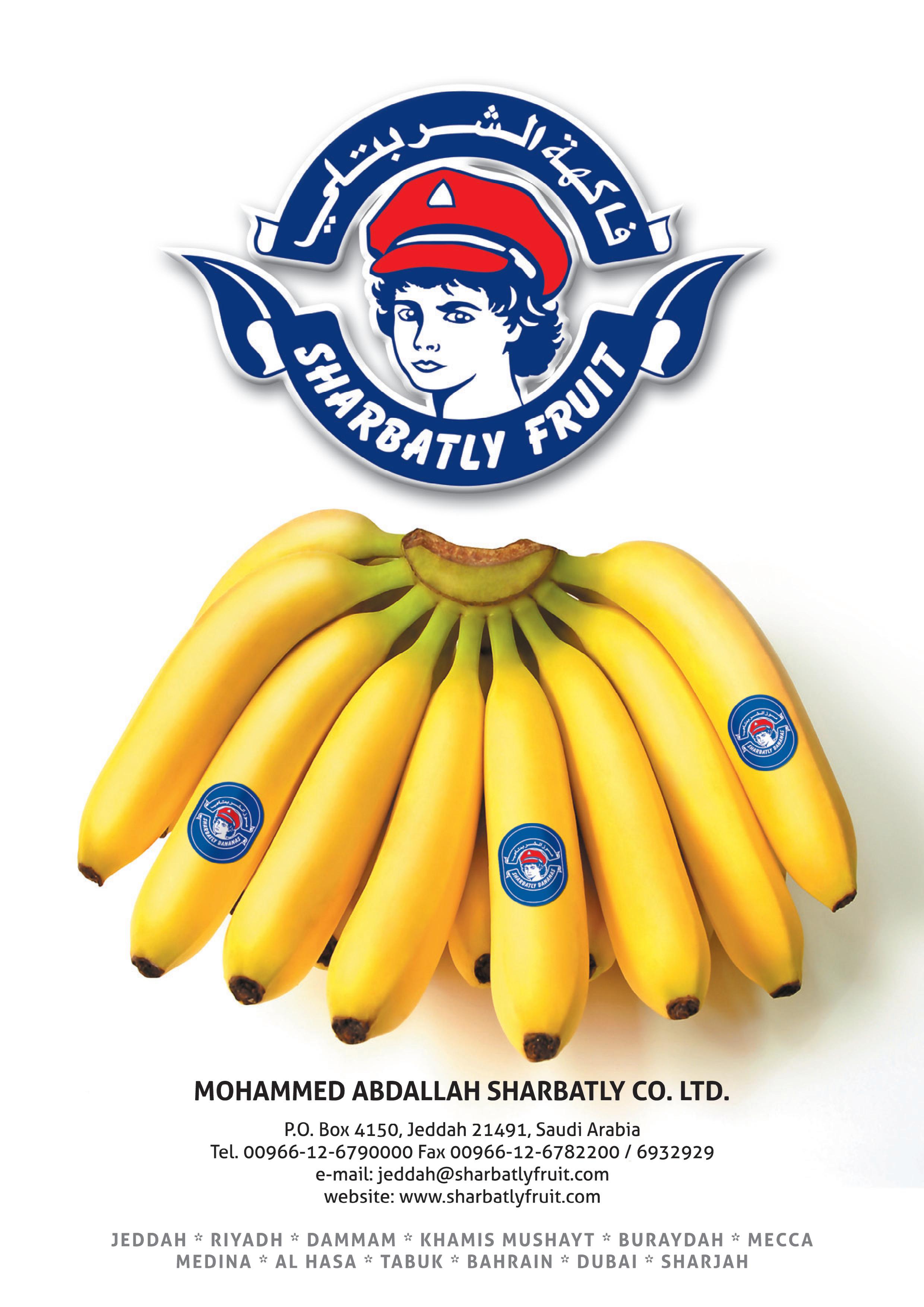

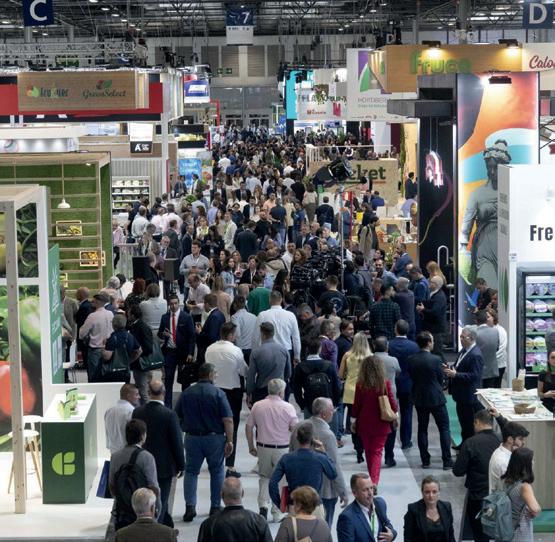
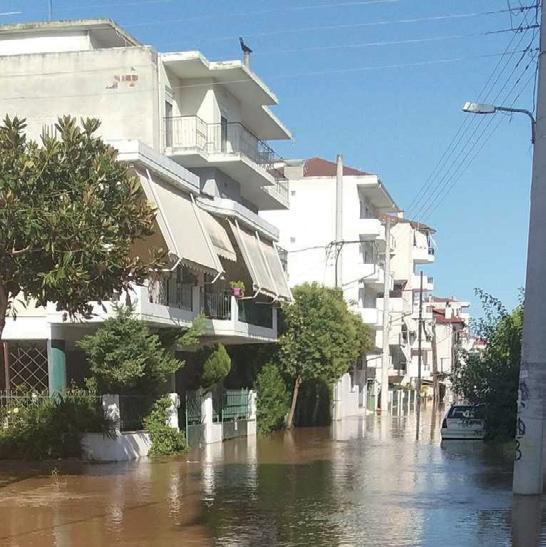
globaltomatocongress.com
The Global Tomato Congress brought together central players in the fresh tomato category to connect and share in-depth experience and expertise, whilst exploring new ideas.
instagram.com/fruitnet
Follow Fruitnet's Instagram page for regular photos and updates from the Fruitnet team.
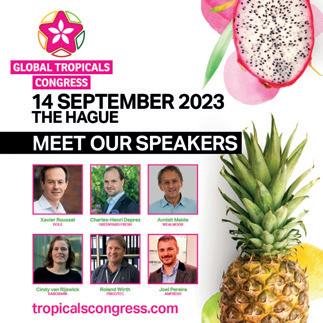
linkedin.com/showcase/eurofruitmagazine
Expand your network of professional contacts and join the fresh produce conversation by visiting the eurofruit LinkedIn account.
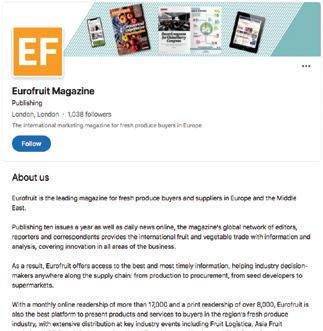
X
x.com/eurofruit
Keep up to date with news, opinions and developments from around the European fresh produce trade by following our dedicated X account.
News
fruitnet.com/eurofruit eurofruit's news website provides regular updates on all the top stories from the European fresh fruit and vegetable business.
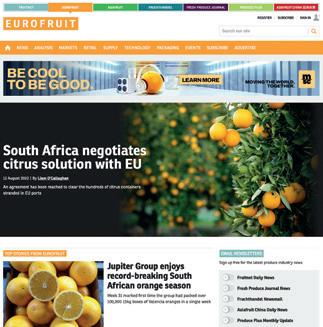

Ehttps://desktop.eurofruitmagazine.com
Download the new Eurofruit app onto your smartphone or tablet from the App Store or Google Play. Stay informed of the latest fresh produce industry developments, and enjoy our magazines in new user-friendly digital formats.
fruitnet.com/freenewsletter
Fruitnet Daily News is the fresh produce industry's leading source of news, information and insight. Available free to all, it is essential reading for those who need to keep track of developments and trends in the international fruit and vegetable business.
https://anchor.fm/fruitbox
Listen to Fruitnet's podcast series hosted by managing director Chris White in London. The Fruitbox podcast features conversations and interviews with leading industry experts.
SINCE 1973
EDITORIAL
managing director, fruitnet europe
Mike Knowles
+44 20 7501 3702 michael@fruitnet.com
managing editor
Maura Maxwell
+44 20 7501 3706 maura@fruitnet.com
deputy editor
Carl Collen
+44 20 7501 3703 carl@fruitnet.com
news editor
Tom Joyce
+44 20 7501 3704 tom@fruitnet.com
staff writer
Fred Searle
+44 20 7501 0301 fred@fruitnet.com
DESIGN & PRODUCTION
design manager
Simon Spreckley
+44 20 7501 3713 simon@fruitnet.com
senior designer
Qiong Wu
+61 3 9040 1603 wobo@fruitnet.com
middleweight designer Magdalena Witecka +44 20 7501 3721 magdalena@fruitnet.com
middleweight designer
Mai Luong
+44 20 7501 3713 mai@fruitnet.com
EVENTS & MARKETING
head of events and marketing
Laura Martín Nuñez
+44 20 7501 3720 laura@fruitnet.com
events executive Poppy Bowe
+44 20 7501 3719 poppy@fruitnet.com
MANAGEMENT
commercial director
Ulrike Niggemann
+49 211 99 10 425 ulrike@fruitnet.com
managing director
Chris White
+44 20 7501 3710 chris@fruitnet.com
ADVERTISING
sales director
Artur Wiselka
+44 20 7501 0309 artur@fruitnet.com
senior sales manager
Giorgio Mancino
+44 20 7501 3716 giorgio@fruitnet.com
account manager
Josselyn Pozo Lascano
+44 20 7501 0313 josselyn@fruitnet.com
us & canada
Jeff Long
+1 805 448 8027 jeff@fruitnet.com
italy
Giordano Giardi
+39 059 786 3839 giordano@fruitnet.com
germany, austria, switzerland, middle east Heike Hagenguth
+20 100 544 5066 heike@fruitnet.com
morocco, france, tunisia
Cristina Delof
+34 93 000 57 54 cristina@fruitnet.com
south africa
Fred Meintjes
+27 28 754 1418 fredmeintjes@fruitnet.com
asia pacific
Kate Riches
+61 3 9040 1601 kate@fruitnet.com
finance director
Elvan Gul
+44 20 7501 3711 elvan@fruitnet.com
accounts receivable
Tracey Haines
+44 20 7501 3717 tracey@fruitnet.com
finance manager
Günal Yildiz
+44 20 7501 3714 gunal@fruitnet.com
subscriptions
+44 20 7501 0311 subscriptions@fruitnet.com

John Giles promar international
John looks at the UK market, which may not be as attractive as it once was for overseas suppliers but still holds plenty of potential. briefings–p8-9
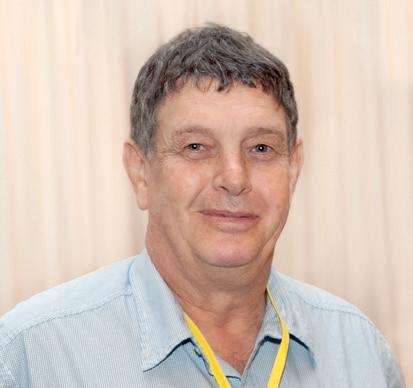
Fred Meintjes eurofruit
South African table grape growers have called for greater rationalisation and branding, given the number of varieties they now have to assess before planting. grapes–p100

Paco Borrás
fresh produce consultant
Paco asks whether South Africa, Turkey and Egypt can unseat Spain as the world’s leading citrus exporter as they grab a bigger share of the market. fruit attraction–p40-41

Liam O'Callaghan asiafruit
Liam reports that Hurricane Hilary has had a “heartbreaking” impact on California's table grape season with the industry estimating 25m lost boxes. grapes–p107
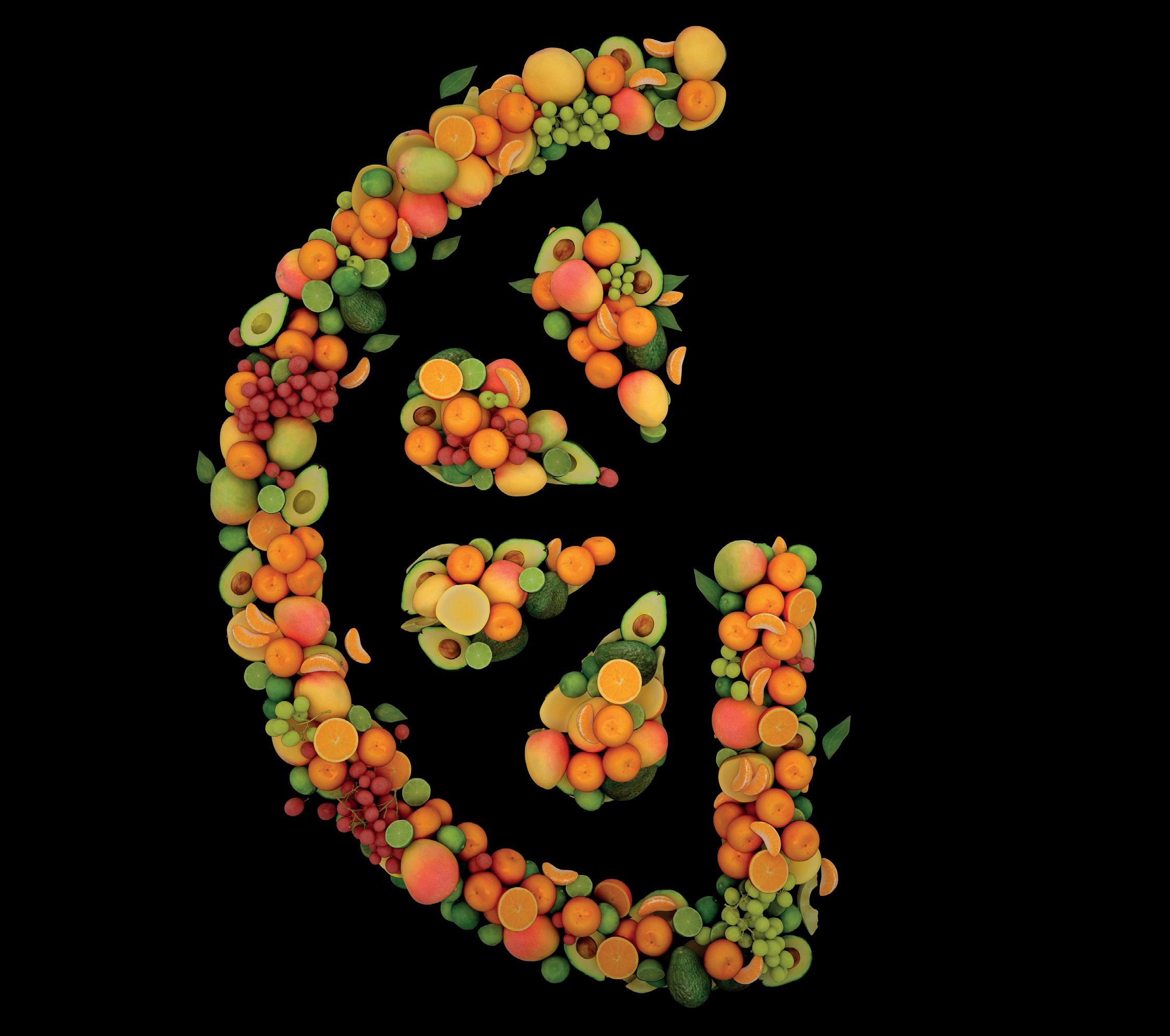
The UK market may not be as attractive as it once was for overseas suppliers. But it still holds plenty of potential says John Giles, divisional director of Promar International.by John Giles

The UK is still one of the leading import markets in the world, in terms of the sheer volume of produce handled. For many years, a whole host of suppliers across Latin and Central America and the Caribbean Basin have exported an equally wide range of fresh products to the UK, including bananas, citrus, mango, avocado, stonefruit, topfruit, berries and a range of exotic vegetables.
Recently, however, the UK market has been subject to a number of severe supply chain shocks, including the impact of Brexit, the Covid pandemic and then Russia’s invasion of Ukraine. As is often the case, there might be no one, single reason why the UK food market is where it is now, but rather a series of interrelated factors at work to produce what is being seen as a “perfect storm” of market conditions.
ABOVE—Brexit has compounded supply shocks caused by the war in Ukraine

Source: Promar International

Source: Promar International
Added to the three factors listed above, the UK farming and food supply chain has been subject to increasingly variable weather patterns, with extremes of drought and then floods seeming to happen more often than in the past, and with more severe outcomes. This has led to fresh produce companies looking to find both technical and commercial solutions to mitigate the impact of climate change and develop more resilient supply chains per se. Sustainability is now a top business issue for all serious players in the UK.
These factors have also combined to produce almost unprecedented levels of food inflation, fruit and vegetables being especially affected. In the last 12 months, the price of cucumbers has gone up by over 50 per cent, potatoes by 30 per cent and bananas by 20 per cent. The consumer reaction to this has been to shop more in discount stores, buy less food, less often and generally “trade down” and look for increased value for money and price bargains. Part of the
issue here is not just the impact of macro-economic conditions on consumers, but also on the supply of fresh produce in the first place.
The rapidly increasing cost of labour, agricultural inputs, packaging, fuel, energy and distribution have all impacted on the production of horticultural products in the UK. In many cases, growers have had limited success in being able to pass these increased costs onto customers. The net result of this has been that many growers around the UK have decided to cut back on production to reduce costs or are limiting the range of varieties they produce or switching crops to those that are seen to have better margin prospects. In extreme circumstances, they have stopped production altogether.
Growers and exporters all around the world, not just in the UK of course, have also been subject to increased costs of production and logistical problems caused by Covid, and while the costs of international transport have come down in the last few months, these are only part of the wider issue. They too have had issues with weather patterns, as witnessed earlier in this year when there were disruptions to supply of fresh produce to the UK.
Countries such as Chile, South Africa, Peru and Central American nations, for which the UK has always been an important market, have for some time now been turning their attention towards what are seen as more lucrative markets, particularly in the fastgrowing regions of Asia. While new, post-Brexit trade deals hold the promise of cheaper produce imports to the UK, it also means a greater dependency on long distance suppliers.
Even if the hostilities in Ukraine were to end tomorrow (which they will not), it might take anywhere between three to five years before world markets return to anything like what might be regarded as normal. In fact, the reality is that the “new normal” is more likely here to stay: volatile prices for both inputs and outputs; operational uncertainty caused by climate change; and disruption to established production and trading patterns.
This all adds up to a situation where the resilience of the UK fresh produce sector – be it with regard to domestic production or imports – should no longer be taken for granted. The UK still has 65m relatively affluent consumers. Its basic appeal remains. But fresh fruit and vegetable suppliers all around the world, including those in Latin and Central America need to understand fully what is happening in this market to take advantage of the opportunities that exist. E
Invaio achieves first registration for Trecise technology, which is designed to suppress citrus greening in oranges.
by Carl Collen @carlfruitnet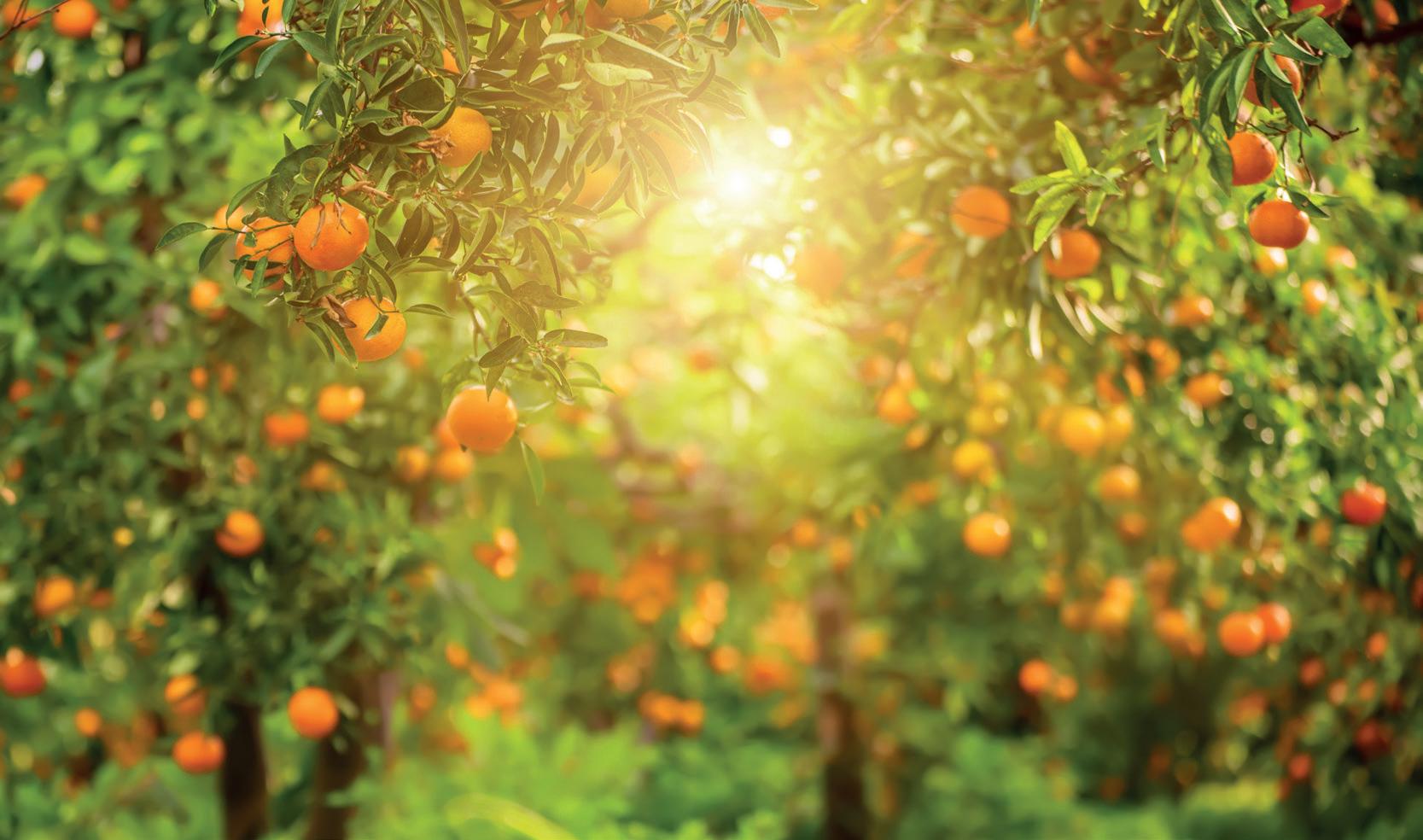
Bio platform company Invaio Sciences has announced that its citrus health solution to suppress citrus greening in oranges has received approval from the Florida Department of Agriculture and Community Services (FDACS) under section 24(c) of the Federal Insecticide, Fungicide and Rodenticide Act (FIFRA).
According to the group, its citrus health solution treats citrus greening disease, also known as Huanglongbing (HLB), which is spread by the Asian citrus psyllid and has been a thorn in the side of Florida growers for nearly two decades.
The solution will deliver ArborBiotic through Invaio’s application technology, Trecise. Invaio explained that, unlike conventional injection treatments,
the minimally invasive system required 90 per cent less active ingredient as it delivered directly into the tree’s vascular system.
“Invaio’s Trecise technology offers a real breakthrough in the fight against citrus greening, a disease that has devastated the industry for more than 15 years,” said Ignacio Martinez, founding CEO of Invaio. “This is the first of many Invaio technologies that will benefit growers, crops and the environment.”
Trials of the solution showed an average yield increase of 30 per cent a er just one treatment as well as increased in brix and a reduction in fruit drop, the company outlined.
“I’m really excited about what Invaio is doing,” said Ned Hancock, a fi h-generation Citrus Grower. “This is probably the first time in my lifetime our industry has seen truly new technology. I see this as potentially revolutionising the way we manage citrus.”
Invaio said that the Trecise system had several key advantages
for growers and applicators. These advantages included the fact that Its 120-day pre-harvest interval was 60 days shorter than conventional injection treatments, and that there was no need for drilling which made it suitable for young trees that had few treatment options available.
Because it applied active ingredients directly in the conductive tissues of the tree, the solution needed lower rates for equivalent efficacy, reducing the risk of misapplication and residues, and cu ing the risk of exposure to workers and the environment, the group noted.
“We’re excited to launch our Trecise system and are optimistic about the future of Florida’s citrus industry,” said Dave Gerrard, head of commercial US. ”With our initial focus on treating young and nonbearing trees, we hope to show that growers can get trees to bearing age with minimal disease symptoms and build confidence for replanting.
“This is just the first step,” he added. ”We’re commi ed to delivering further solutions to help Florida citrus growers regain their pre-HLB yields.” E
ABOVE—Invaio’s Trecise technology offers a “real breakthrough”
BELOW—The Asian citrus psyllid spreads citrus greening


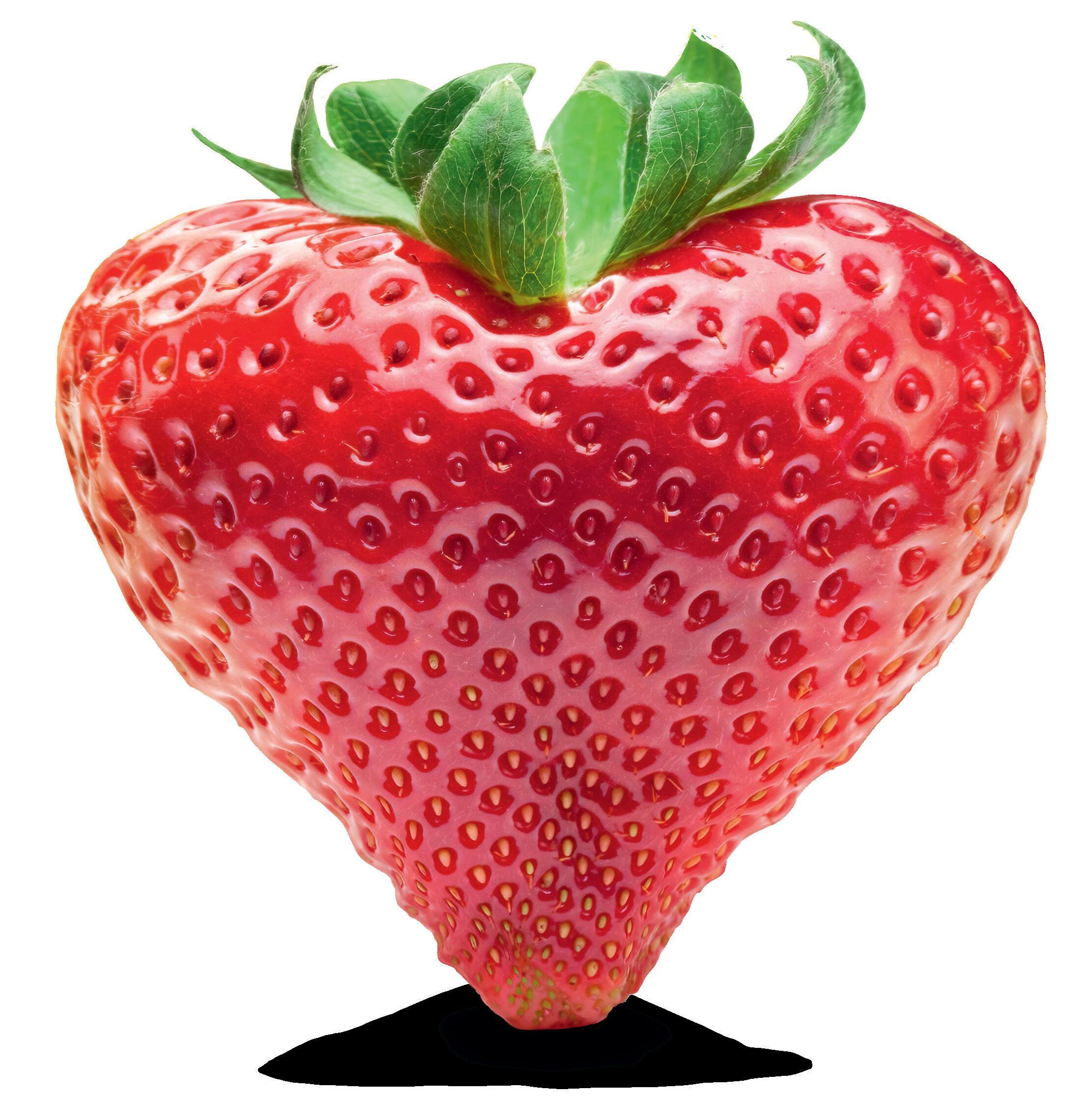
The game-changing technology has become an essential tool to help keep produce fresher for longer.
by Maura Maxwell @maurafruitnet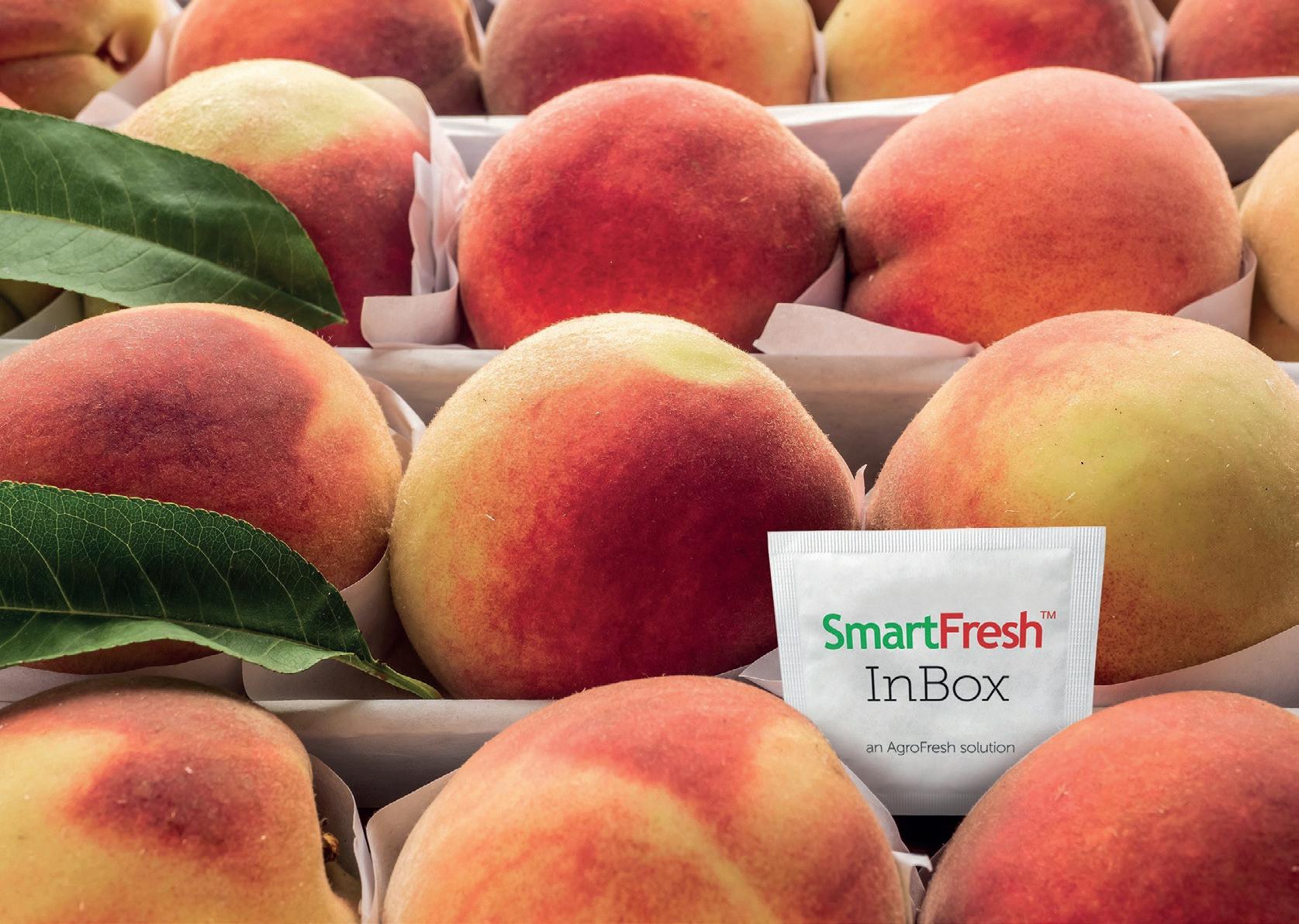
This year marks the 20th anniversary of the launch of AgroFresh’s flagship ripening management solution SmartFresh, the original 1-Methylcyclopropene (1-MCP) technology that puts the ripening process of fruit “on hold” to delay softening and over-ripening.
Since then, the company has developed a number of scientific and commercial applications of SmartFresh to keep produce fresher, longer. “Over the last 20 years, growers and packers have come to rely on the gamechanging technology of SmartFresh to deliver the freshest produce to consumers around the world by maintaining optimal quality and freshness and preventing the challenges that impact the shelf-life of fruit,” the company says. “For operations of all sizes, from all fruit-growing regions of the world, SmartFresh optimises grower resources while offering more resiliency and sustainability, resulting in be er return on investment for growers, packers and retailers.
“Today, thanks to numerous years of close cooperation with international researchers, universities and customers – as well as an investment in seven global innovation centres and strategic partnerships – AgroFresh has extensive knowledge of fresh produce quality management. Our innovative team continues to expand the possibilities by offering new product formats of the SmartFresh Quality System to fit multiple crops in the field, storage rooms and in transit.”
Chief technology officer Duncan Aust oversees research and development, regulatory and external innovation at AgroFresh.
He puts the impact of SmartFresh down to the close relationship the company maintains with growers and packers to be er understand their needs and challenges.
“We enjoy working very closely with the scientists that we have on our team, the scientists within some of the larger grower-packer operations and the individual farmers in the orchard,” he says.
The 1-MCP growth regulator behind the SmartFresh solutions was discovered nearly 30 years ago, in 1994, at North Carolina State University by biochemist Edward Sisler and horticulturalist Sylvia Blankenship ushering in new possibilities for the fresh produce and floral industries.
When asked about bringing the technology to market and the longterm vision of 1-MCP, Blankenship had several insights and stories to share from her perspective as a horticulturist who could only dream of the impact her discovery has made.
“Never in a million years did I think that things would end up the way that they are,” says Blankenship. “My goal from the time I took my job was to help the produce industry. My goal was to come up with a be er-quality product that would save time and save money.”
Both Aust and Blankenship share a passion for sustainability. And the benefits of the technology throughout the global supply chain have continued to scale from Sisler and Blankenship’s lab bench to Aust’s pipeline of innovative solutions that work to solve the global issue of food loss and waste. E


Shipments almost doubled in the five years to 2022, but climatic events have wiped out this year’s expected double-digit increase.
by Maura Maxwell @maurafruitnetPeru is on course to export 577,000 tonnes of avocados this year, just 2.5 per cent more than in 2022. The latest forecast, released by industry association ProHass, indicates that shipments will fall well short of the initial estimate of 630,000 tonnes. ProHass president Juan Carlos Paredes put the shortfall down to climatic events. Speaking to Agraria.pe , he said weather anomalies had stymied hopes of a 14 per cent increase in exports this year.
Higher temperatures have impacted fruit growth, leading to an abundance of medium and small sizes.
Shipments to the US have been minimal this year due to the market being well supplied with
avocados from Mexico and California. This has led to more fruit being sent to the European market, which has caused prices to drop in recent weeks.
As a result, Paredes said fewer containers would be shipped to Europe in the late summer and autumn to help regulate supply. “In the first half of the year, there were weeks where Peru shipped more than 700 containers per week to Europe, then we dropped to 600 containers, today we are at 550 containers and the expectation for the following weeks is to export around 500 containers per week,” he said.
“Europe will have the minimum amount of Hass avocado it needs and with that prices will gradually increase because the population in the old continent is on vacation and the trend is to consume less avocado.”
Looking ahead to 2024, Paredes noted that higher temperatures caused by El Niño are already impacting trees.
Speaking in early August he said: “The heat has come precisely at the time when floral differentiation occurs in the buds. If this continues in the months of August and September, the trees will have a tendency
to become tropical, that is, to give more leaves than fruits.”
However, he noted that there are a number of agronomic techniques that can be applied to trees to prevent 2024 from being a year of low production. “In Peru we have become used to the fact that avocados grow practically by themselves. This year is special, trees will have to be forced to produce,” he said.
Around one-third of Peru’s 60,000ha avocado acreage is in the hands of small producers who will need to be trained to carry out these procedures to prevent the crop from falling significantly.
Longer-term, Peru’s export growth is set to see a significant slowdown in the coming years due to a deceleration in new plantings. According to ProHass, acreage was growing by 12-15 per cent year-onyear, but this has virtually stopped due to a number of political, financial and logistical factors. E
Hass Avocado Board celebrates 10th anniversary of Fresh Avocados – Love One Today and First Research Publication.
by Maura Maxwell @maurafruitnetAs it continues to drive avocado sales in the US by advancing awareness of their health benefits, the Hass Avocado Board (HAB) is celebrating the 10th anniversary of its sciencebased resource Fresh Avocados –Love One Today.
Founded in 2013, Love One Today has focused on reducing purchase barriers by telling avocado’s nutrition story, starting with the benefits of good fats amidst a challenging landscape of contradictory policy opinions.
According to a 2023 HAB tracking study analysing health professional’s a itudes and awareness, 80 per cent of surveyed registered dietitians now recommend avocados as a source of good fat to their clients, reflecting a 25 per cent increase since 2013.
“For ten years, Love One Today has been steadily improving public opinion and advocacy for the nutritional value of fresh avocados because the health benefits are a key purchase driver,” said Gina Widjaja, HAB’s senior director of marketing and communications.
“The impact on demand as well as pop culture thanks to targeted programmes for registered dietitians validates the approach and prompted successful campaigns focused on physicians and nurses who increasingly want to be more confident advising patients about nutrition.
“We are driven to keep supporting the industry by moving
BELOW—Love One Today has become a leading source of information on the health benefits of avocados and a major driver of sales in the US
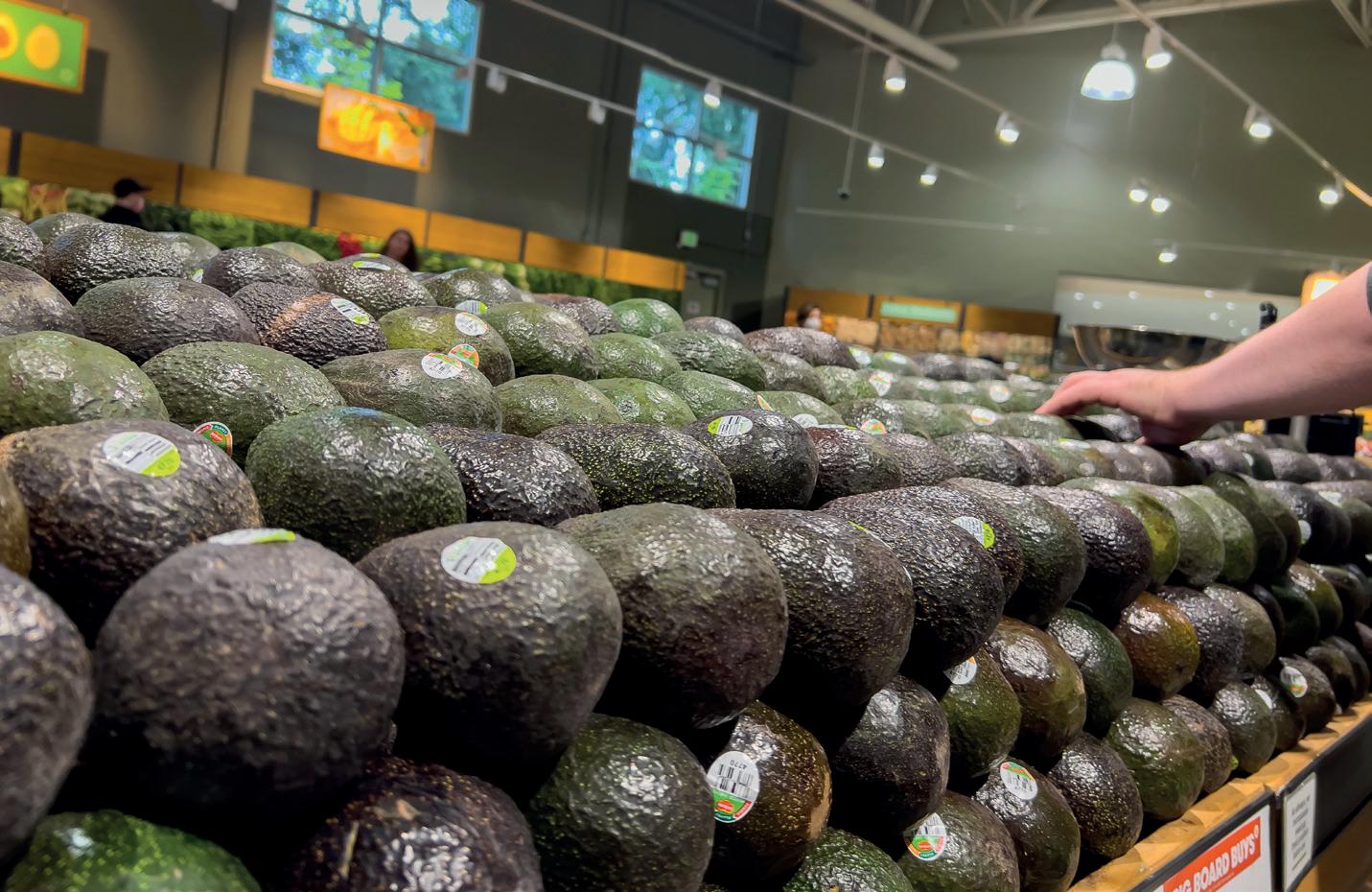
the conversation from avocados being a fad, party food to an invaluable investment in good health.”
Love One Today works in partnership with the Avocado Nutrition Centre, HAB’s research resource dedicated to studying the role of fresh avocados in improving human health.
“This year also marks the 10th anniversary of the first publication supported by the Avocado Nutrition Centre,” said Dr Nikki Ford, HAB’s senior director of nutrition.
“A er a decade of learning and nearly 50 peer-reviewed publications, passion still runs high to add to the growing body of evidence supporting avocados’ benefits on heart health, weight management, diabetes and healthy living across the lifespan.”
Love One Today is increasingly recognised as a leading source information on the health
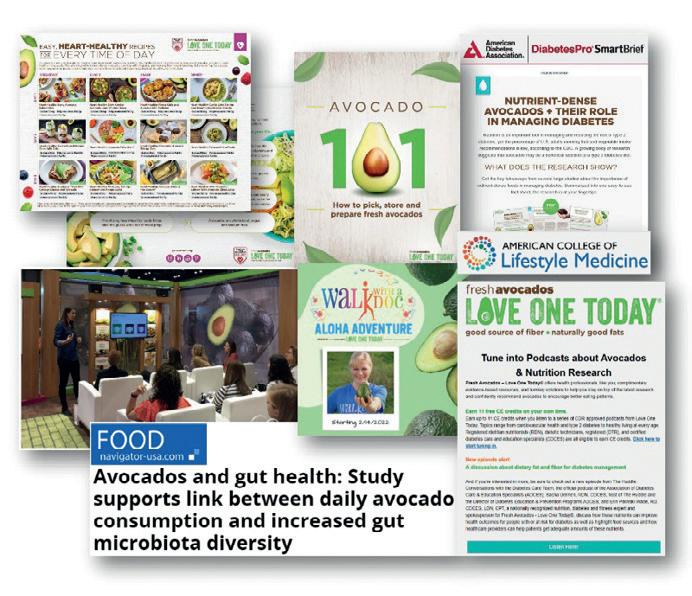
benefits and versatility of avocados. The resource provides a robust pipeline of free recipes, educational handouts, and easy-to-follow meal plans to help health professionals break down the science and further inspire their clients to enjoy avocado’s goodness every day.
“The Love One Today nutrition marketing programme and research supported by the Avocado Nutrition Centre are key to driving public trust in how Hass avocados are healthy for people, a core tenet of HAB’s five-year objectives,” HAB said.
“The opportunity for the future of the industry grows as the science-based relationship between avocados and priority health pillars is be er understood and promoted.” E

Company will embark on new cultivar trial during New Zealand’s winter as it looks to meet rising demand in Asia.
by Mike Knowles@mikefruitnet
Kiwifruit marketer Zespri has told New Zealand media outlet Stuff that it will shortly begin pre-commercial trials of a new red kiwifruit cultivar in the country.
Zespri chair Bruce Cameron was reported as saying that the move was a response to “high demand” for its RubyRed brand in international markets, especially in China, Japan, Singapore and Taiwan.
Earlier this year, the company said export sales of the redfleshed kiwifruit had risen to around 330,000 trays, almost triple the result achieved in its 2022 campaign.
Cameron added that additional
plantings could mean the group will supply around 6.9m trays of the fruit by 2027/28.
“The decision to progress another red variety to precommercial trials is part of our effort to explore how to extend our supply of Zespri RubyRed Kiwifruit throughout the season and return more value to growers,” he told Stuff.
“The new cultivar that will enter pre-commercial trials is expected to have different seasonal timing to Red19, making it a complementary variety.” E
ABOVE—
Italian group Mazzoni has strengthened its kiwifruit and apple offer as it looks to develop new business opportunities in Asia and elsewhere. The group plans to expand its Greek kiwifruit programme this season after opening a state-of-the-art packhouse in the country last October, from which it will store, process and ship fruit to markets worldwide.
Mazzoni has also added a brand new variety to its apple line-up, Joya, which comes from the same breeding programme as Rosy Glow and joins the group’s flagship Pink Lady offer, which it has been supplying to national and international customers year-round for the past 20 years.
Sales director Matteo Mazzoni (pictured below) commented: “Our apples are produced either in our or in our partners’ farms, located in the plains of Ferrara. For both Joya and Pink Lady we are expecting a harvest with excellent organoleptic qualities and a long shelf-life.”
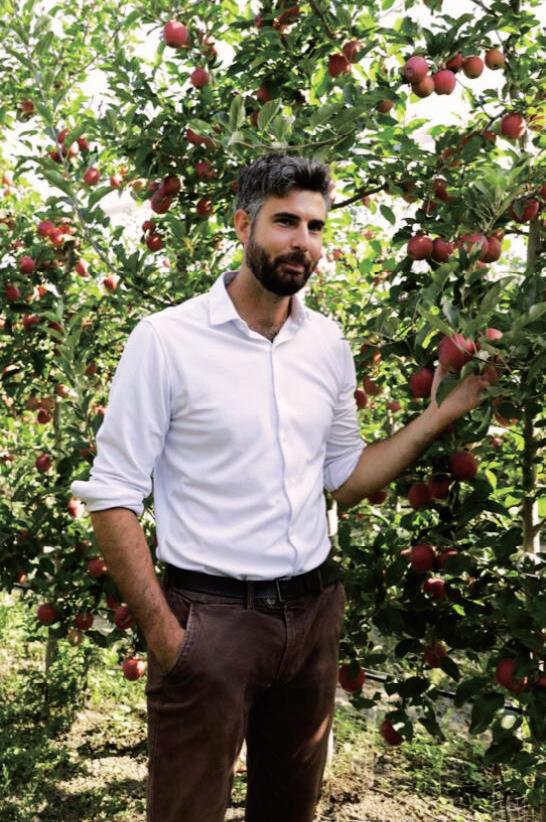
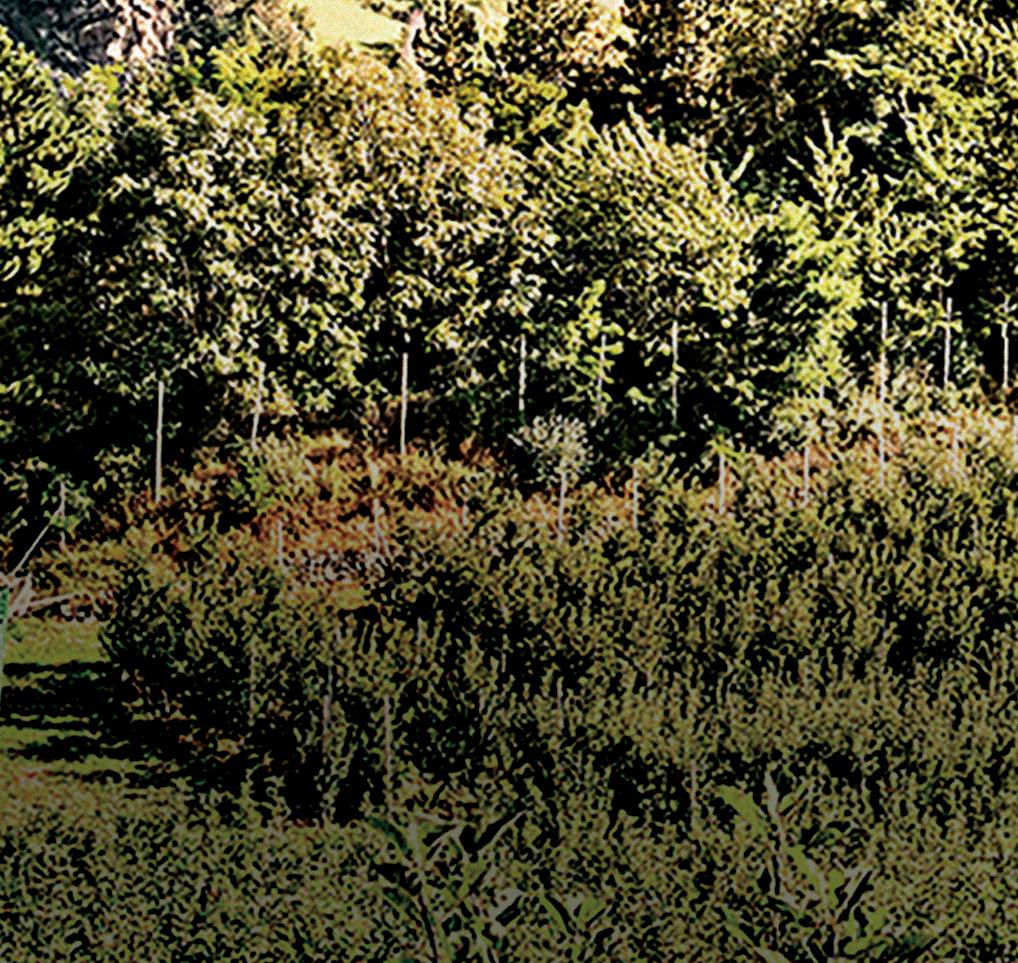




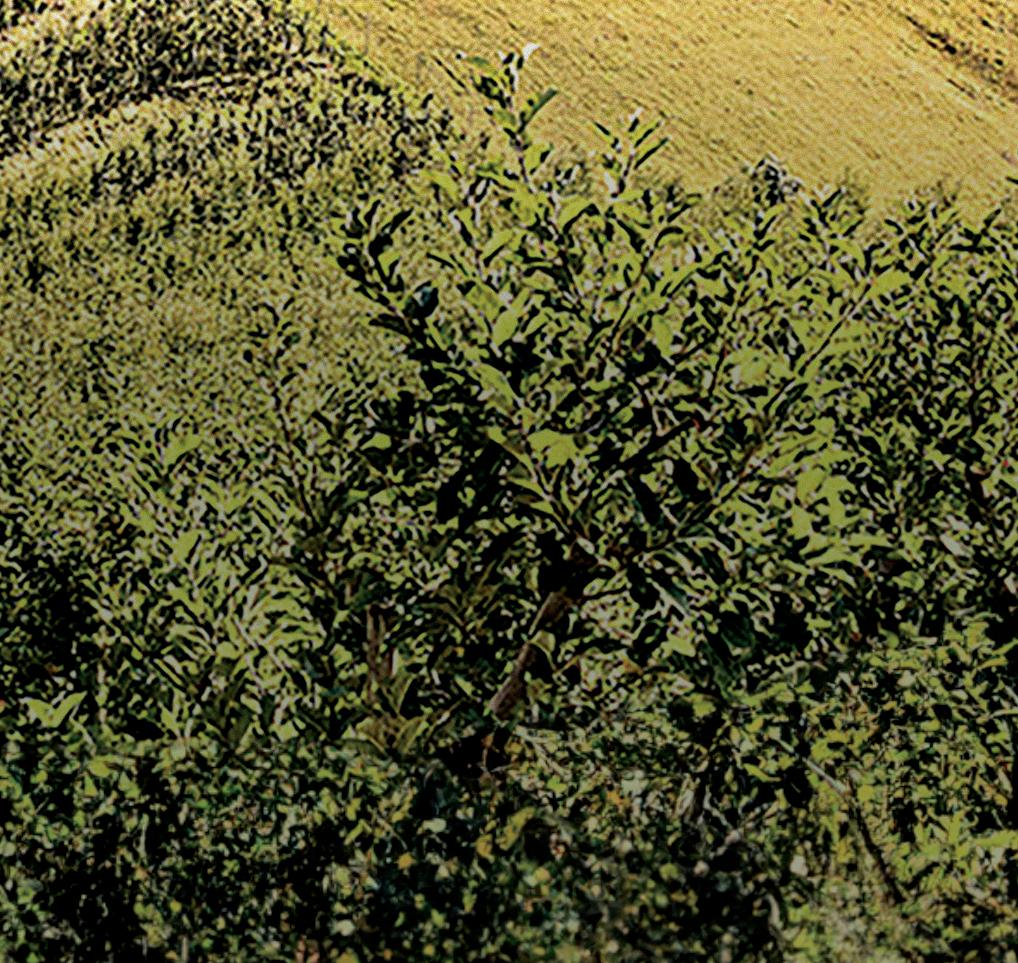






Now in its ninth year, the promotional vehicle continues to drive the group’s sustainability message.
by Mike Knowles

Atotal of seven branded double-decker buses brought brightness and cleaner air to parts of London this summer, thanks to multinational fruit company Chiquita’s continued commitment to this method of ambient consumer marketing.
The recurring outdoor advertising has become an iconic feature of the UK capital’s streets since it was first rolled out back in 2015. And its success has also inspired other fruit brands to hop aboard, including RedPop apples and the World Avocado Organization ‘s Avocado Fruit of Life campaign.
From the beginning of July to mid-August, for the ninth consecutive year, the full-electric buses carried Chiquita’s signature yellow-and-blue branding along major transportation routes in the centre of the city, where pollution levels caused by road traffic have historically been high.
According to Chiquita, the CO2-neutral vehicles are designed to showcase the company’s commitment to fighting climate change, by promoting the environmental and societal benefits of public transportation while highlighting the brand’s superior taste and quality, and encouraging healthy living.
“Chiquita is so excited to be back on the bustling streets of London, embracing the tenets of sustainability as we forge ahead on our journey towards climate solution,” said Peter Stedman, Chiquita’s director of sustainability.
“We remain unwavering in our mission to a sustainable tomorrow, and these bright buses will continue to help consumers to build an environmentally-friendly future.”
John Cockle, the group’s sales and market director for UK and Ireland, added: “Chiquita is devoted to sustainability, not only in its everyday brand initiatives, but also with its partnerships. When consumers see the London buses once again this summer, we hope that they recognise the mission behind our esteemed Blue Sticker, and our rich heritage and commitment to forging a sustainable future.”
The initiative coincided with the recent launch of a global campaign called It Peels So Good, which aims to make an emotional connection with consumers by highlighting Chiquita’s history and future plans. E
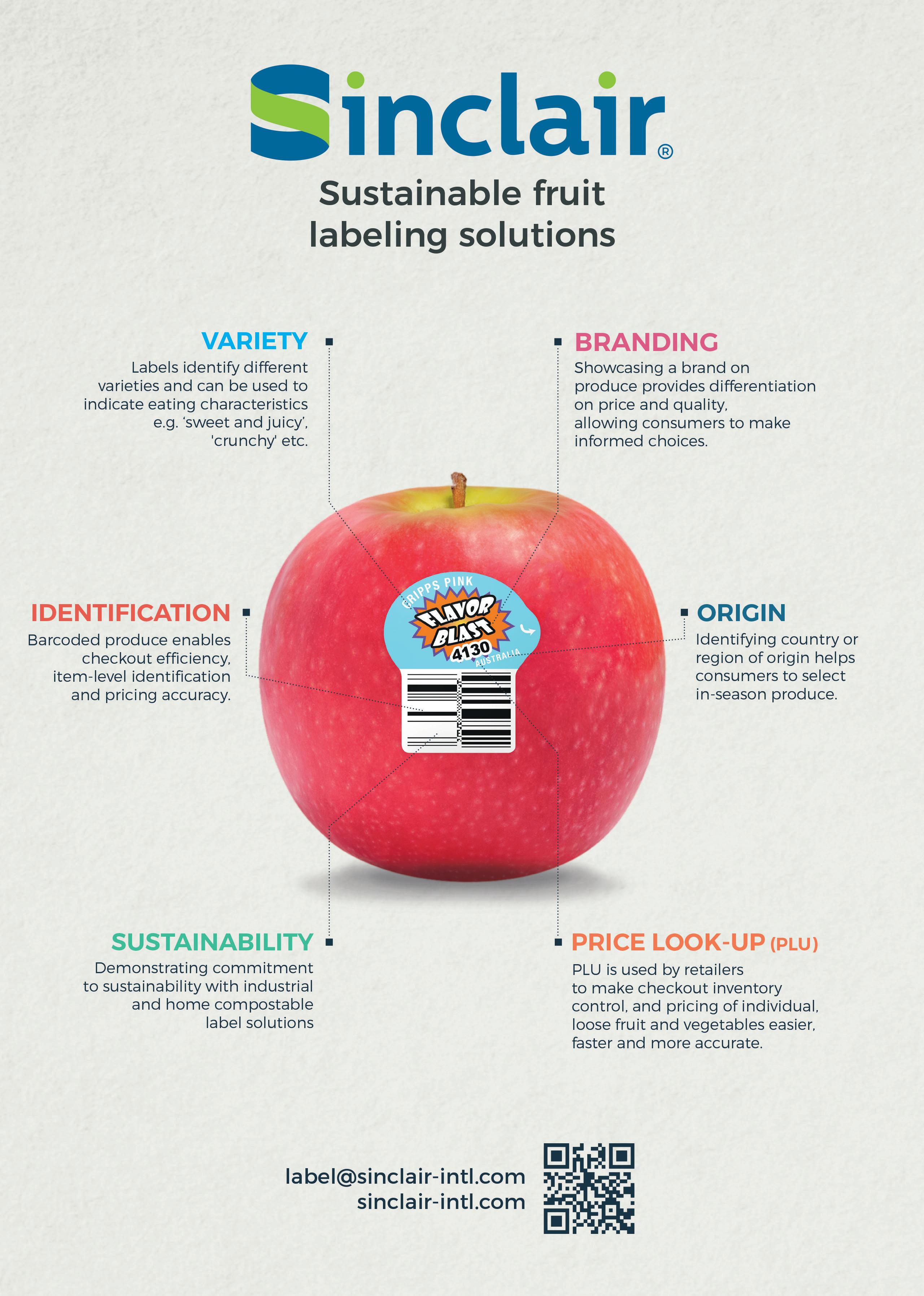
Global shopper research is helping Growers United understand the consumer decision-making process.
by Carl Collen@carlfruitnet

Netherlands vegetable specialist Growers United has said that it is using international research to help it understand “what makes shoppers tick”.
The Maasdijk-based group said it had been conducting extensive research on shopper motivation for many years, as it strived to pick apart what drives consumers throughout the purchasing process.
“Through various methods, Growers United analyses at what moment shoppers make which decisions and why,” explained Wim van den Berg, retail marketing manager at Growers United.
“This enables us to decide how to respond accordingly. Together with retailers, we develop a fi ing marketing strategy that helps shoppers, retailers and their suppliers to move forward.
“Not only in the Netherlands,
“As a result of the new information, Growers United keeps a clear view of local changes and trends”
LEFT—A number of elements affect buying behaviour
BELOW—The research helps Growers United keep abreast of consumer trends
shoppers to purchase fresh vegetables; when the purchasing decision is made; whether shopper motivation to purchase fresh vegetables changes; and if shoppers focus more on sustainable and healthy products today than in previous years.
In addition, the company analyses consumer buying behaviour triggers by, for example, assisting retailers with their in-store marketing actions for a set period while measuring sales results.
“Growers United not only assists retailers in marketing and sales but helps their shoppers too,” van den Berg noted. “When research results show that shoppers have different needs in their purchasing process, we should respond accordingly. For example, we can make sure that our products meet their needs even be er. As not only taste, colour and shape are considered important nowadays, but the way that fresh vegetables are produced is too; for example, via a sustainable production process.”
It is not just the products but also elements like packaging that affect decision making and buying behaviour, van den Berg outlined.
“For shoppers, the right packaging can be a decisive factor when purchasing a product,” he confirmed. “Packaging can be used to emphasise diversity and quality within the fruit and vegetable department. Also, cleverly designed packaging can boost user-friendliness. And the choice of material is important too.
“What it comes down to is continuously inspiring and encouraging shoppers with an appealing fruit and vegetable department that meets their demands,” van den Berg added.
“They should be convinced that the fresh vegetables on display are worth buying.” E but also in Germany, the UK and Poland have our discoveries provided valuable insights into consumer decision-making processes and buying behaviour,” van den Berg continued. “As a result of the new information we have gathered throughout the years, Growers United keeps a clear view of (local) changes and trends.”
Some of the questions that Growers United is looking to answer include what triggers
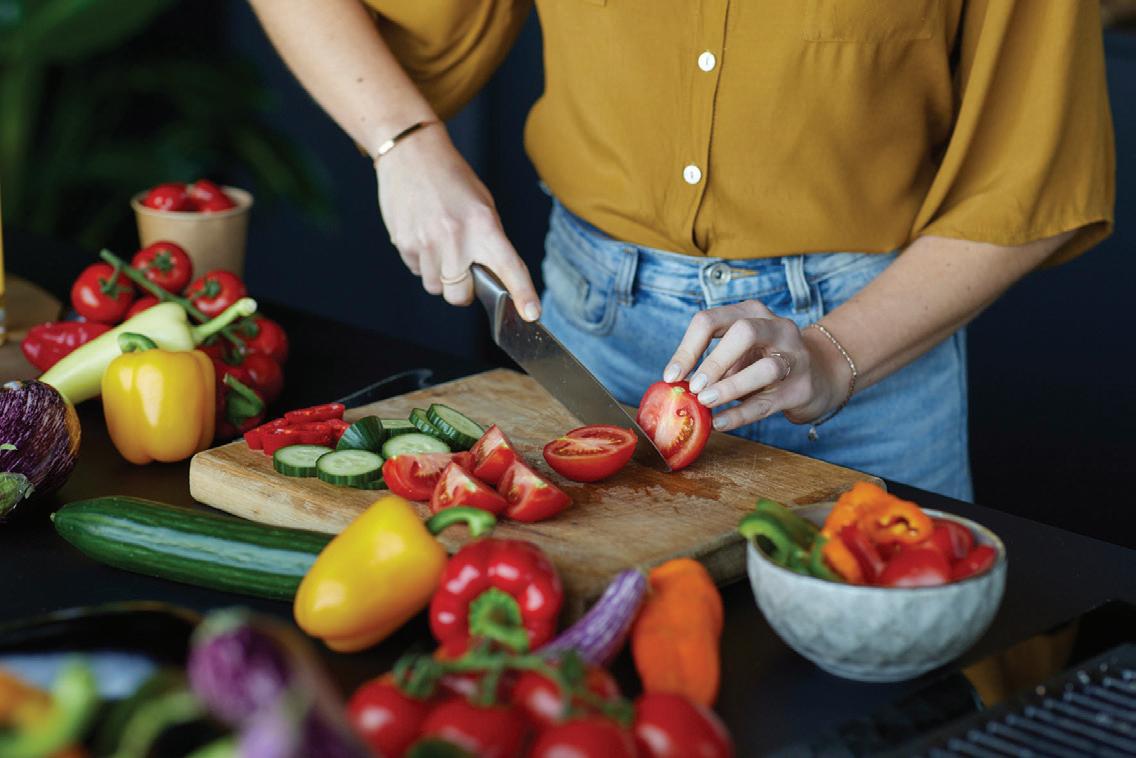





















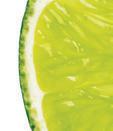




























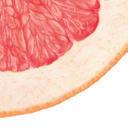





Call your citrus sales representative at 661.778.1458 or email Amanda.Meneses@wonderful.com



The trade fair has come a long way since it was first held in 2008. Over the next 44 pages, Eurofruit takes a look at some highlights of the 2023 edition.
by Maura Maxwell
All eyes will be on Spain this October as Europe’s leading exporter of fresh fruit and vegetables – and the third largest in the world – gears up for the start of its winter campaign. Over the next few months, Spain’s farms, greenhouses and orchards will keep produce aisles throughout Europe supplied with a vast array of fresh produce, from greenhouse grown peppers and tomatoes to the sweetest mandarin varieties.
October also marks the return of Fruit Attraction, the international trade fair for the fruit and vegetable business, which this year celebrates its 15th anniversary. The event, jointly organised by Madrid exhibition centre Ifema and Spanish fresh produce federation Fepex, has come a long way since its launch in 2008. In its inaugural year it hosted 350 exhibiting companies in two halls. This year’s fair will cover more than 58,000m2 of exhibition space spread across nine halls and its organisers expect more than 1,800 companies from 55 countries to take part.
Once again, Latin American companies will make up an important number of exhibitors, alongside those of Italy, France the Netherlands, Belgium, Portugal and Germany, amongst others. Thanks to its timing and location – October is a key point in the fresh produce production and planning cycle and Southern
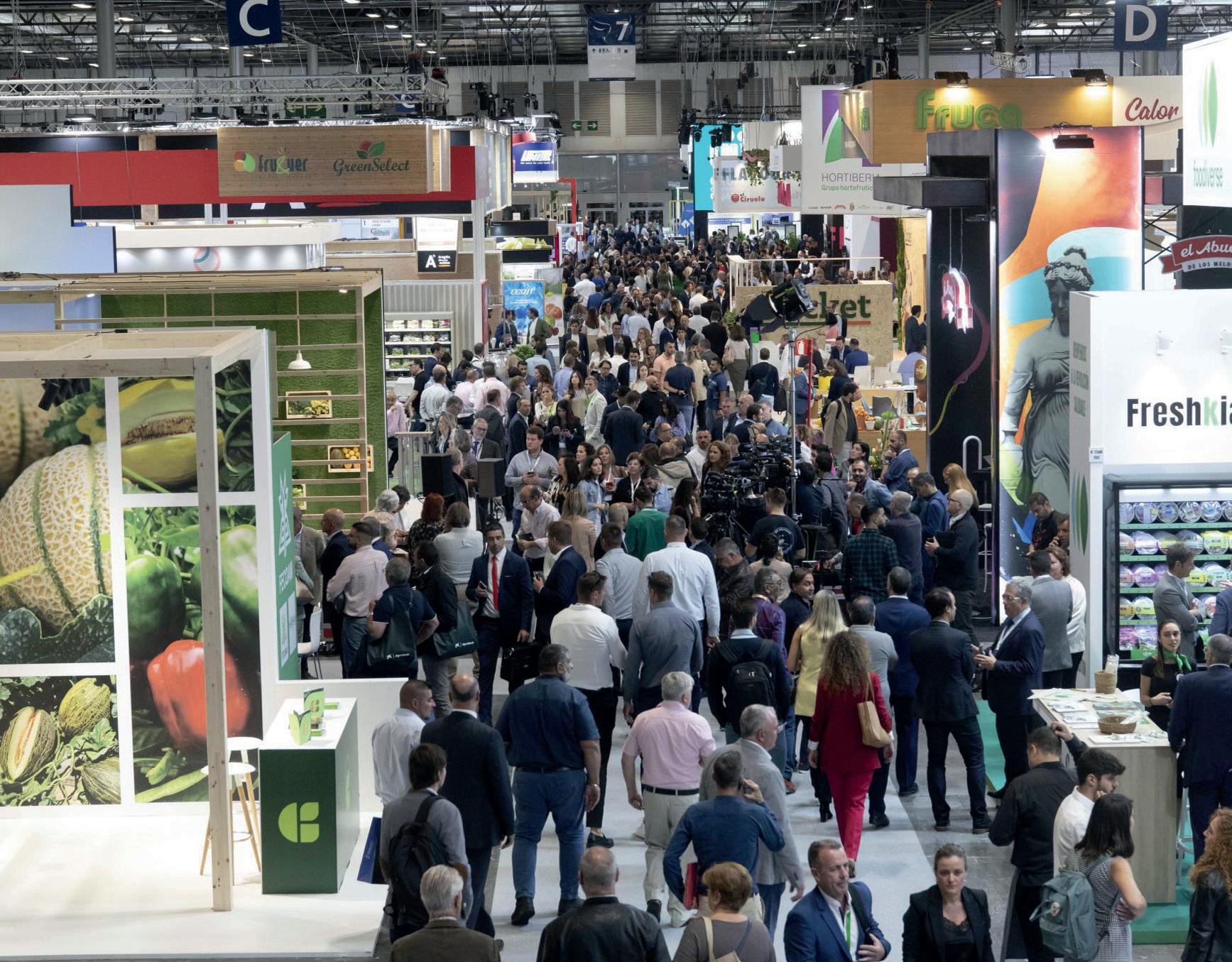
Europe has become a gateway for produce from Latin America – Fruit Attraction has become a key fixture in the fruit and vegetable calendar in the 15 years since its launch and an important complement to the bigger and more established Fruit Logistica, which takes place each February in Berlin.
“Fruit Attraction is an unmissable event for us. It continues to grow year after year and it is clear that for us it is the most important meeting point for the national market,” says Jorge Bretó, CEO of post-harvest solutions specialist Citrosol. “And thanks to its timing, it is also attracting an increasing number of clients from other countries.”
Under the slogan “Growing together!”, the fair will be organised around six exhibition areas. The biggest and most widely represented will once again be Fresh Produce – which features the full range of fruits and vegetables, in addition to
related companies from across the entire value chain of the industry –and Fresh Food Logistics, the space for logistics, transport and cold chain management for foodstuffs.
Smart Agro, meanwhile, is an area specialising in innovative products that apply information and communication technology to the produce industry, while Biotech Attraction, is a space dedicated to research and technological development in plant genomics. Ecorganic Market once again steps up, as the exclusive space for the marketing and export of organic products continues to gain momentum. Additionally, lettuce stands out as the star product of Fruit Attraction 2023.
The Innovation Hub and Fruit Next are dedicated to innovation and new business developments in the industry. Once again, Fruit Attraction will host the Innovation Hub Awards, which have become a fundamental event for supporting the business entrepreneurial commitment in the industry.
“Spain’s influence as a world leader in the fruit and vegetable market is reflected by the presence of almost all the autonomous communities producing fruit and vegetables in the country, confirming Fruit Attraction as an effective tool for generating business opportunities and accessing new international markets, precisely in a key month for planning campaigns,” Ifema says. E

A focus on premium, ripe and ready-to-eat mangoes and avocados has yielded good results for the company.by Maura Maxwell
@maurafruitnet
When Barcelona-based Cultivar set up its Cultipalta division in 2020, it was with the aim of providing the very best quality avocados and mangoes through a company dedicated exclusively to the importation, ripening, packing and marketing of these fruits. Behind the venture was a team of professionals with 40 years of experience in selecting the best varieties from the best origins, an in-depth knowledge of the market and cutting-edge ripening technology.
The company has built up 40 years of experience in selecting the best varieties from the best origins
new centre, which is expected to be completed in early 2024, will house state-of-the-art ripening chambers and machinery capable of selecting the fruit according to the size, degree of ripening and internal condition of the pulp.
According to marketing manager Sandra Sitjar, demand for tropical fruits is growing steadily in Europe thanks to improvements in logistics, the availability of tastier and more resistant varieties and a growing awareness of healthy eating. One of the biggest gamechangers has been the introduction
Cultivar has installed 447 solar panels at its warehouse in Mercamadrid as part of its ongoing commitment to become greener. These will apparently generate around one-fifth of the energy required to run the facility each year. “At Cultivar we have implemented different strategies in recent years aimed at making our business model more sustainable,” says marketing manager Sandra Sitjar. “We have invested in products and systems aimed at reducing polluting gases, as well as generating energy through more sustainable means, and we now offer our customers compostable packaging and other alternatives to plastics.”
BELOW— Cultipalta’s fruit is sold at its optimum point of ripeness
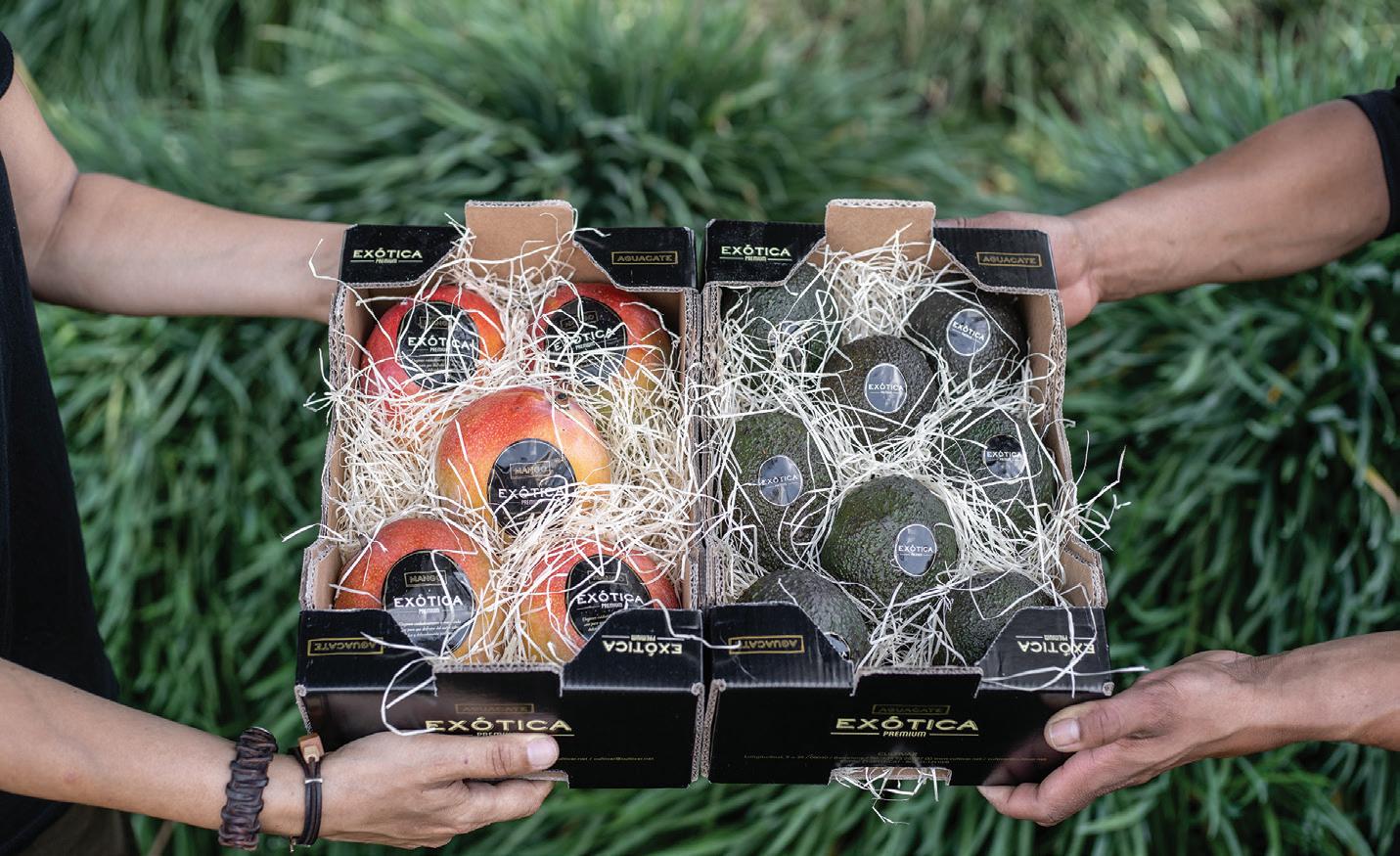
of ready-to-eat mangoes, which has drastically improved their quality by allowing them to be sold at their optimum point of ripeness.
“Many factors have contributed to the democratisation of tropical fruit. Today we can find them in any corner of our country, in small specialist stores, supermarket chains or restaurants,” she says. “Increasingly well-travelled and international consumers are looking for different and a ractive fruits that will brighten up their shopping basket a li le.”
With mangoes or avocados having moved firmly in the mainstream, Sitjar says products such as papaya and pitahaya are gaining new followers. She believes that as production of these fruits steadily increases in Spain, this will in turn help to increase consumption.
Asked if the current cost-ofliving crisis has put a dent in demand for exotics in recent months, she notes: “The last few years have come full of uncertainty but despite this we have not seen a decrease in sales volume. This year we’ve observed a stagnation in growth due to price inflation, but there is still demand for exotic fruit and premium products. Exotics are now an essential component of the offer of any retailer.” E

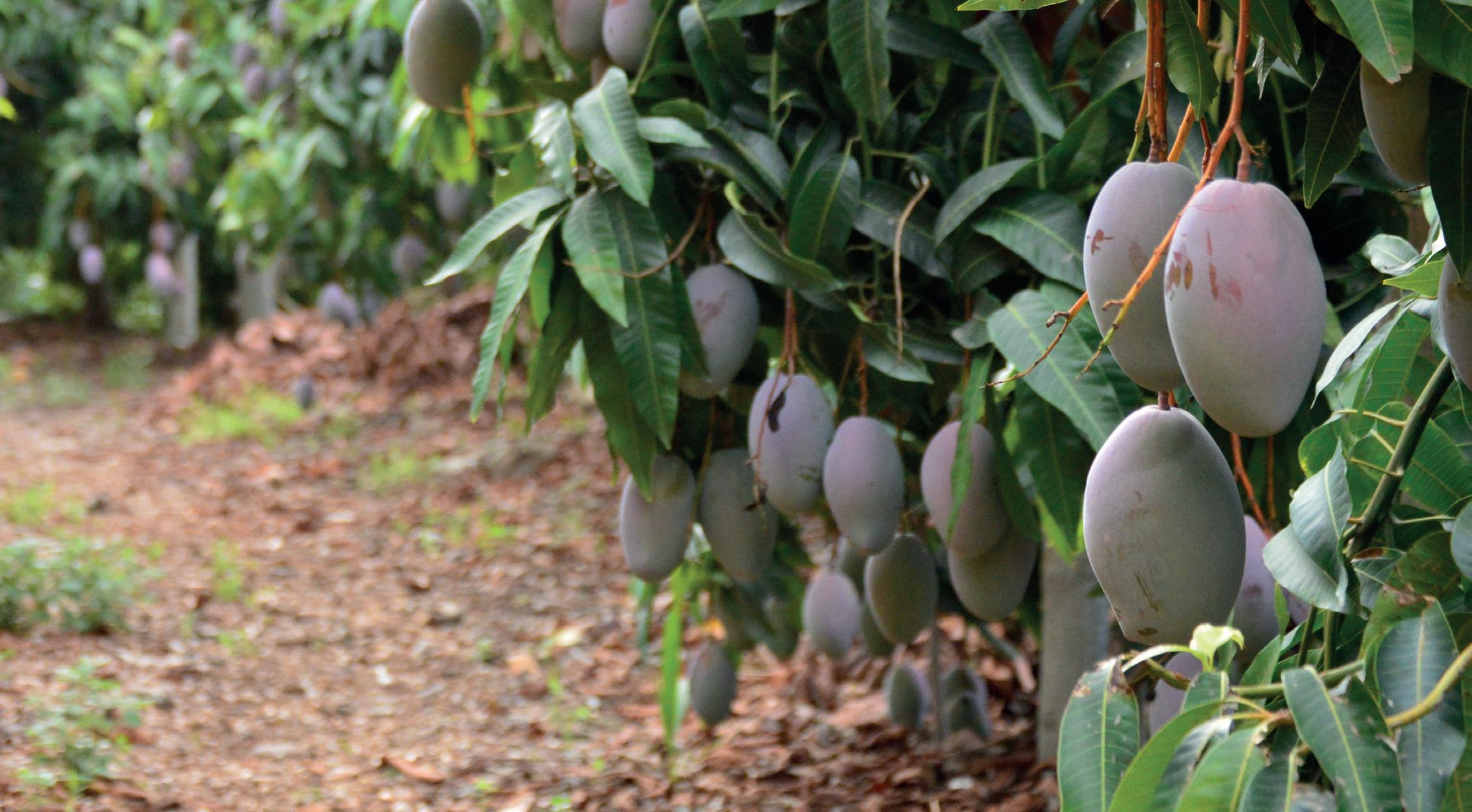
The company has given its backing to a new project that will create a sustainable seawater desalination cycle, powered by solar energy.
by Maura Maxwell @maurafruitnetAprolonged drought has gripped the county of La Axarquía in Andalusia, the cradle of Spain’s tropical fruit industry, and home to some of the country’s biggest producers of avocados and mangoes. According to Enrique Colilles, managing director of Trops, harvests of both fruits could be down by has much as 80 per cent in some areas this year as a result.
Not surprisingly, the worsening situation has prompted a radical rethink on how the region uses and manages its increasingly scarce water supply. One novel solution developed by the Institute of Domotics and Energy Efficiency of the University of Malaga (IDEE) is to tackle the drought using desalination plants powered by solar energy.
The Agua+S project – which Trops is fully behind – involves the construction of a desalination plant near the coast, along with a network of pumping stations, all powered by a renewable solar energy obtained from a floating photovoltaic park installed on a nearby reservoir. Colilles sees this as an economical and sustainable way of reproducing the natural water cycle to achieve affordable water without generating waste.
“There is no scarcity of water in coastal areas, it all depends on our will to have it or not have it,” he tells Eurofruit. “This is an easy solution that is already being used in other parts of the world, such as the Canary Islands. Once the necessary infrastructure has been built, the surrounding farms will be restored to their previous
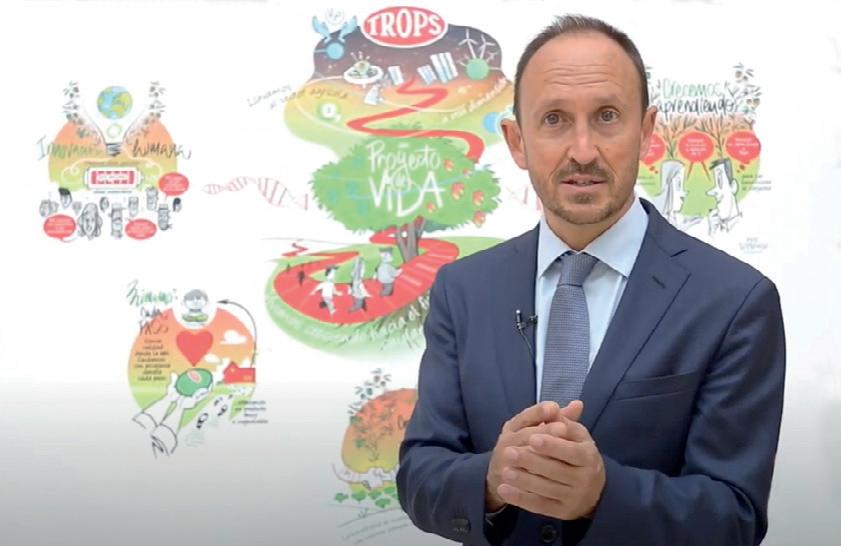
condition and will be able to produce a plentiful supply of high quality product.”
For some years now, Trops has been expanding its production area across the Iberian Peninsula with the aim of extending its production window and mitigate the risk of supply shortages. Today, more than half the avocados and mangoes marketed in Spain and Portugal are sold under the Trops brand. “Consumers know that when they buy a Trops avocado or mango they are guarantee quality and optimal ripeness, “Colilles says.
To help it achieve this, the company continues to invest in three key areas – training farmers and providing digital tools to allow the next generation to take advantage of the years of knowledge accumulated by the predecessors; optimising its production processes to reduce the time from when the fruit is picked to when it reaches the consumer; and technologies to guarantee the organoleptic properties and safety of the fruit.
“All this is backed by extensive marketing activities that reinforce the message that our avocados and mangoes are synonymous with quality,” Colilles says. E
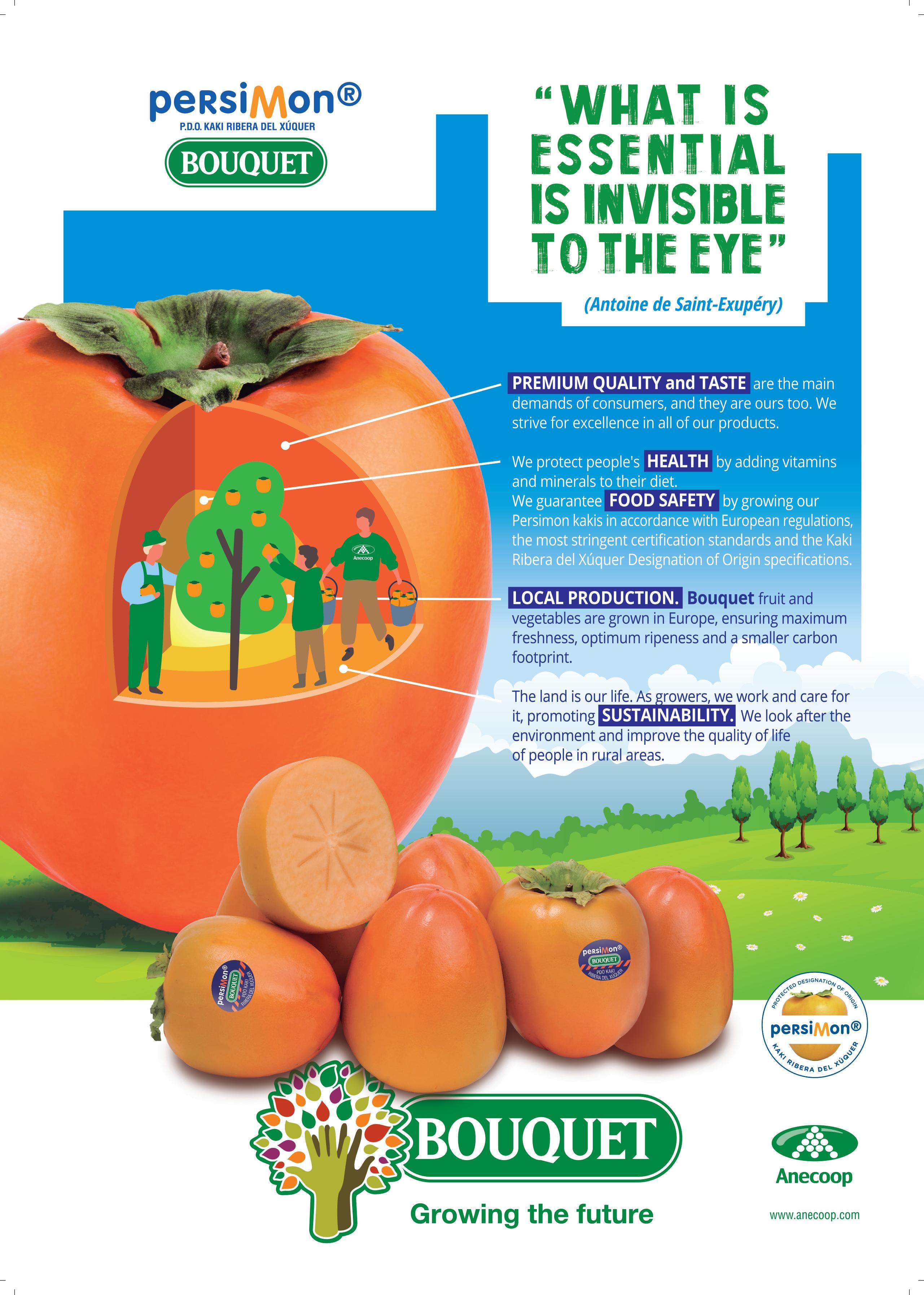
Commercial director Jorge Ignacio Brotóns explains how the company’s pivot to premium is reaping results.
by Maura Maxwell @maurafruitnet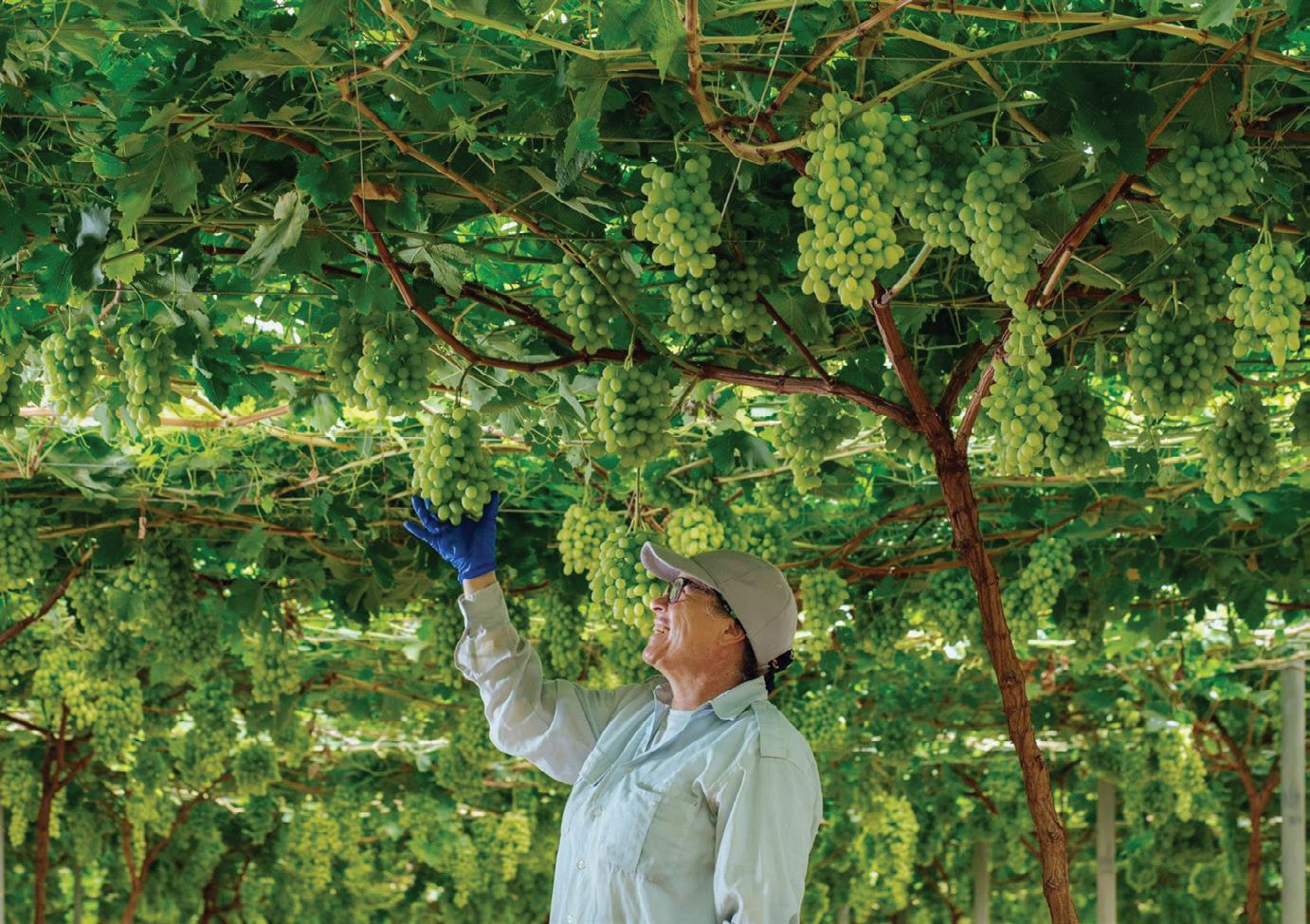
Afew years ago, Bonnysa took the decision to refocus its core tomato business on premium varieties with high added value to futureproof the company in the face of everincreasing competition from third countries. Buoyed by the results, it subsequently decided to invest in other premium categories including table grapes, tropicals and fresh-cut and convenience products.
The strategy turned out to be a sound one for the company, which is set to double its production of premium grape varieties this year. “We’re very pleased with the feedback we’ve had from our customers, both for the quality and flavour of our grapes and the presentation,” says commercial
director Jorge Ignacio Brotóns.
During the past year the company has also successfully positioned itself as a supplier of Canary Islands-grown papayas to the European market, offering a more sustainable alternative to fruit coming from further afield. “Our papaya has the same pure, tropical flavour as those grown elsewhere but is sold at the optimum point of ripeness and has a lower carbon footprint as it is grown on the island of Tenerife,” Brotóns says.
The same can be said for Bonnysa’s Canary Island banana programme. The award of a Flavour of the Year quality seal and a tie-up with the Minions film franchise has boosted consumer awareness of the Plátanos de Canarias brand,
enabling the sector to maintain reasonable price levels in spite of he y competition from dollar and ACP bananas.
Last but not least, the company has added three new lines to its convenience range – broccoli mole made with 60 per cent fresh avocado, beetroot dip and artichoke dip.
According to Brotóns, Bonnysa’s expansion of its healthy snack offer to include products like dips and salsas is in line with its strategy of introducing more value-added products to its line-up.
Big changes are afoot when it comes to the company’s sustainability strategy too. It is in the process of installing solar panels at its main facility as part of a move to renewable energy, while inside the packhouse it has switched to 100 per cent recyclable packaging including FSC-certified cardboard.
“We are also introducing the first range of packaging in Europe made from non-fossil sources into our fresh-cut range, which will be gradually rolled out to all products to replace plastic,” Brotóns says.
In September, Bonnysa travelled to Hong Kong to take part in Asia’s biggest trade fair for the fresh produce industry, Asia Fruit Logistica, where it presented its portfolio of red and white seedless extra sweet grapes to the market.
“This is a new market for us. Asian retailers are commi ed to – and value – quality and this is where Bonnysa has a lot to offer,” Brotons says, adding that the company is not seeking mass distribution but rather to supply a premium selection to the top end of the market. E
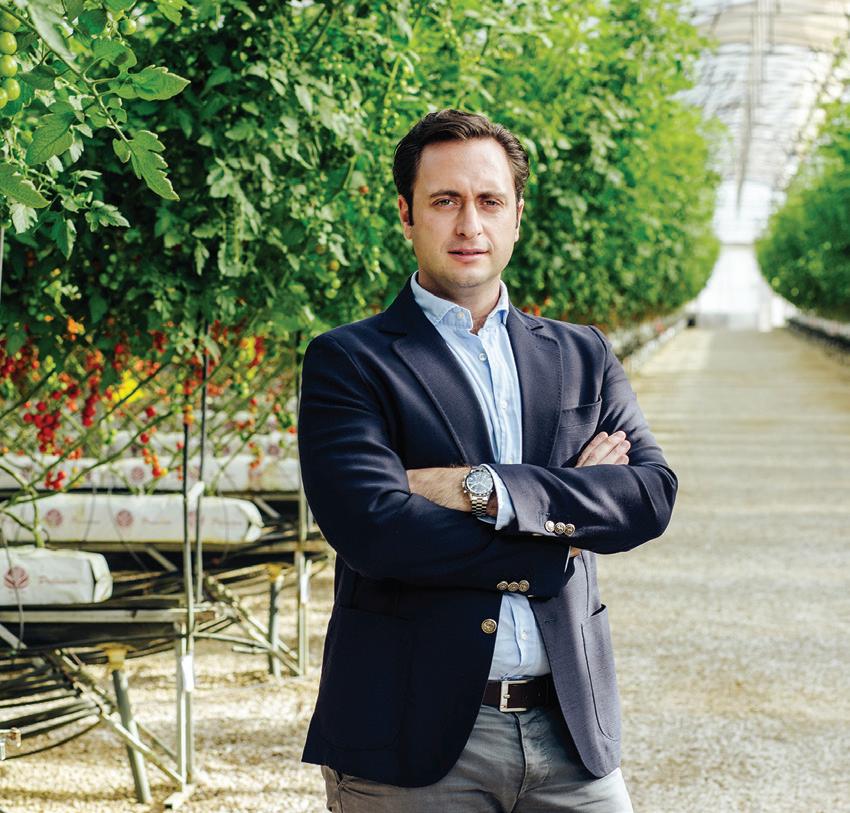
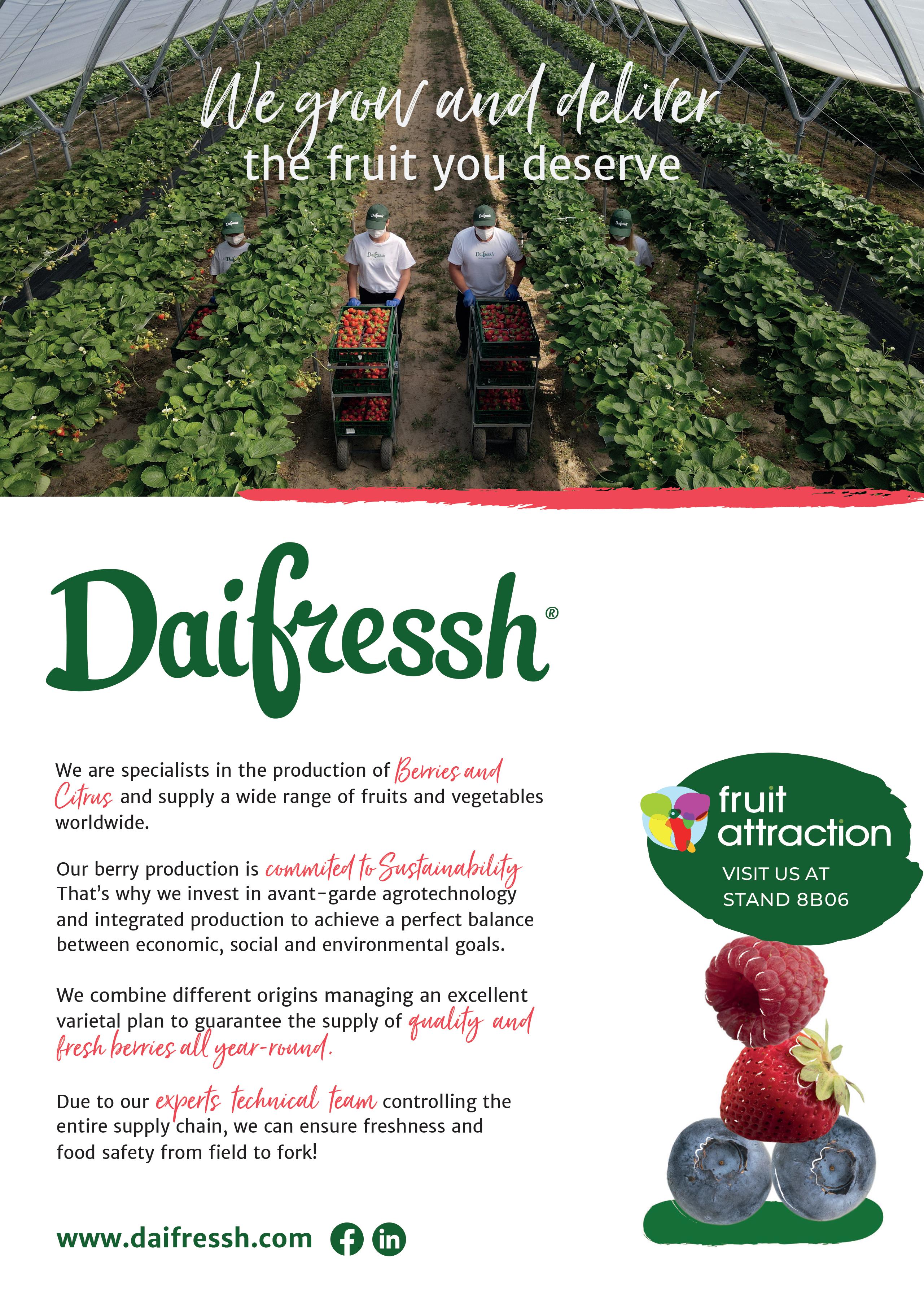
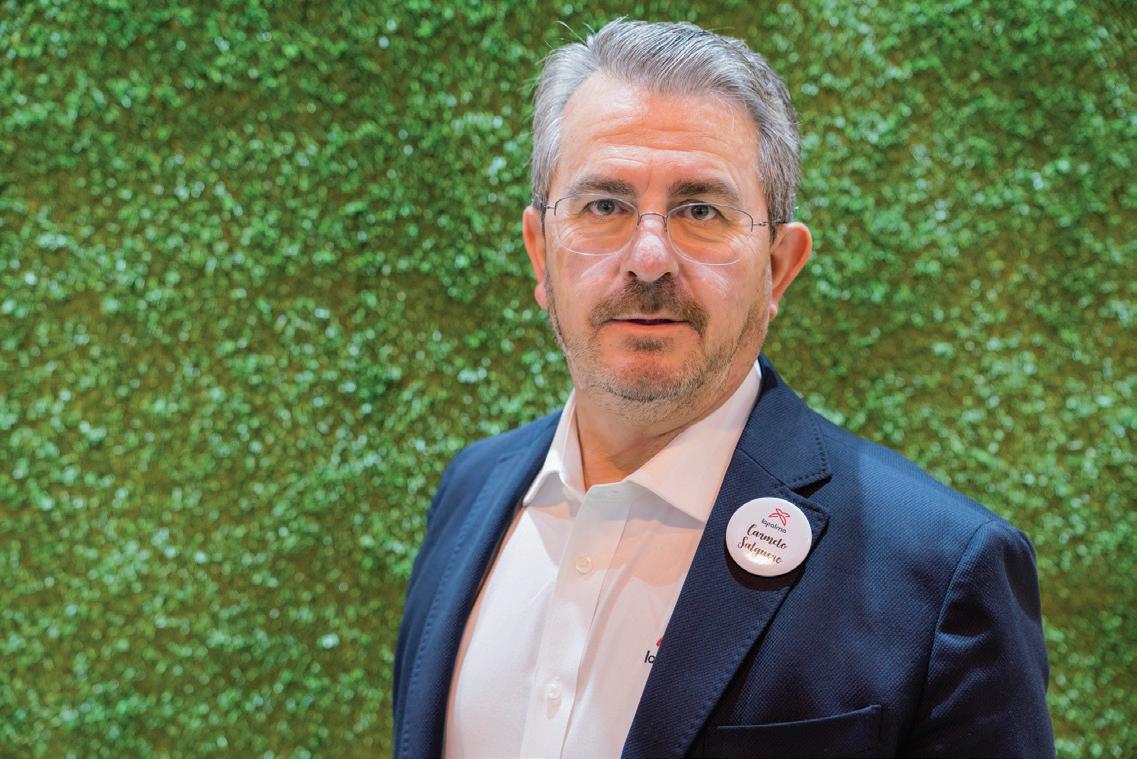
Commercial director Camilo Salguero outlines the cooperative’s strategy for sustainable growth.
by Maura Maxwell@maurafruitnet
Since its creation 50 years ago, Spain’s La Palma cooperative has focused on growing highly specialised products that generate maximum profitability for its members. Today, as well as being a European leader in the production of tomatoes and mini vegetables, the company boasts a rapidly-expanding processed line to satisfy growing consumer demand for healthy products.
Over the past two years, the company has launched more than 20 new fresh and processed lines, most notably a plant-based range that includes vegan burgers made without preservatives or colourings, vegetable spreads, gazpacho and salmorejo made with cherry tomatoes, and a vegetable soup made from La Palma’s brown ribbed Primora tomato. The aim, says Salguero, is to optimise the
use of raw materials by giving a second life to fresh products with a reduced shelf-life. Even though competitors like Morocco supply Europe with a huge volume of lowpriced tomatoes, La Palma retains a dominant position in the market – a fact Salguero puts down to the efforts and resources the company pumps into improving quality.
“Our focus on product excellence is what reduces the risk of losing market share. We produce a type of tomato that countries like Turkey are not growing,” he says.
“And our greenhouses have gone through an important conversion process to make them more efficient – as well as employing the latest irrigation technology, we’ve made
LEFT—
BELOW—
structural improvements such as the installation of double roofs. At the same time our farmers have been professionalised through continuous training and are focused on offering a unique product, full of flavour and respectful of the environment.”
This last point is underscored by the company’s widereaching sustainability strategy that includes the use of integrated pest management and biological controls, investment in renewable energy and a zero waste policy. Forty per cent of its greenhouses now employ biomass heating, 50 per cent are controlled electronically and 100 per cent of them use biological control methods.
Water usage is another priority for La Palma, this being a particularly acute problem in the area south of Granada where the cooperative is based. “Granada’s water, which comes from the Sierra Nevada mountains, is endowed with a special quality due to its purity. It has the best quality in Spain and is an excellent natural resource,” says Salguero.
“However, we are absolutely dedicated to reducing our water footprint. In the last five years we have managed to cut the amount of water needed to produce 1kg of tomatoes by 10 per cent, mainly by increasing our hydroponic production, which now accounts for more than 31 per cent of our surface area, and boosting investment in new so ware and hardware to improve our irrigation system.”
As a result, Salguero says La Palma is able to grow tomatoes of the highest quality using just 10 litres per kilo compared to the industry average of 60-70 litres. E
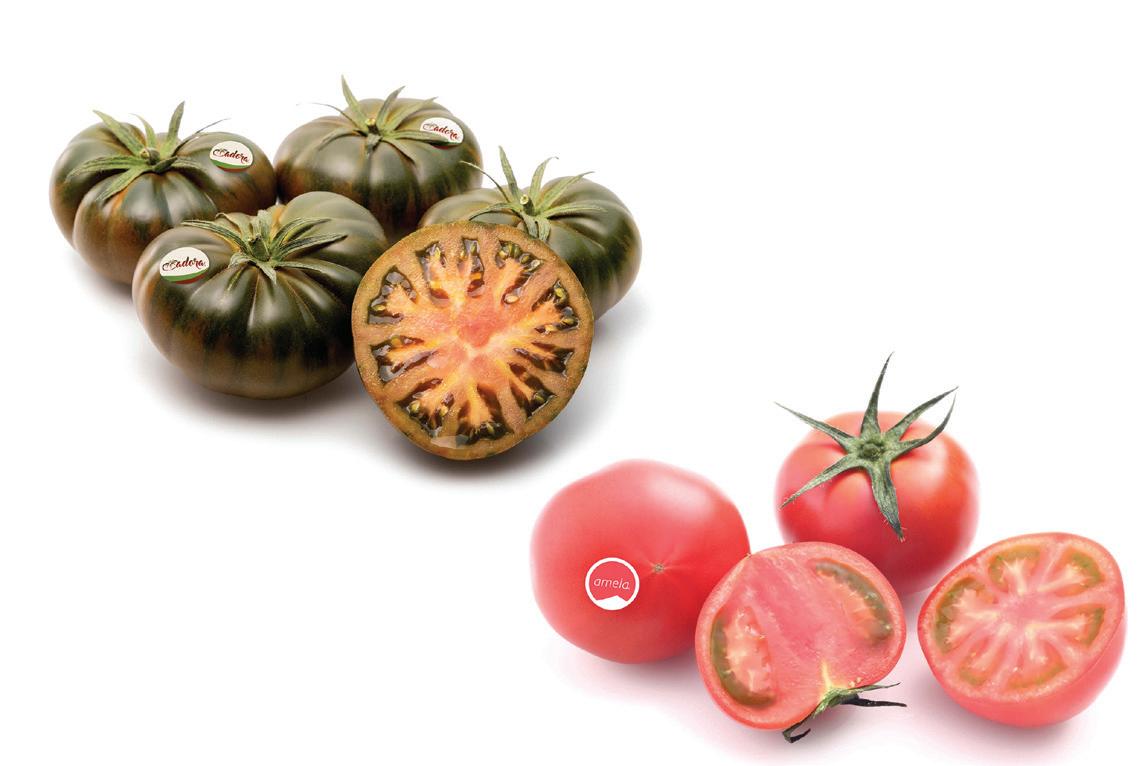
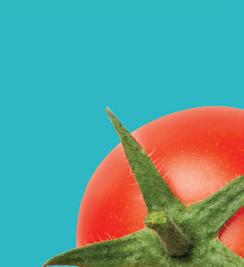

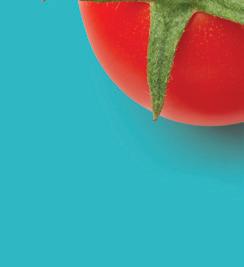
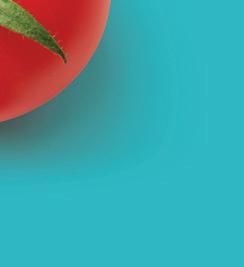

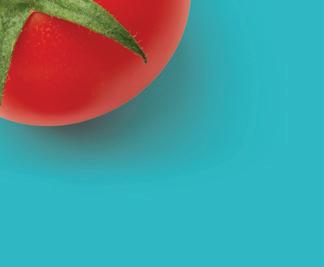

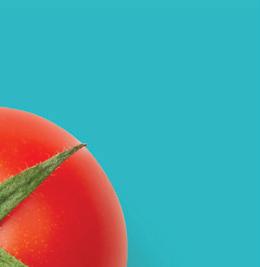
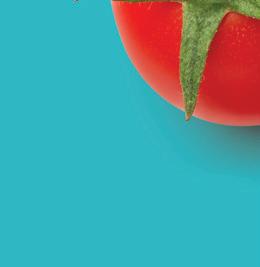
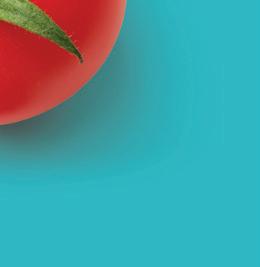



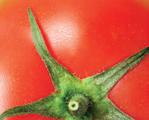








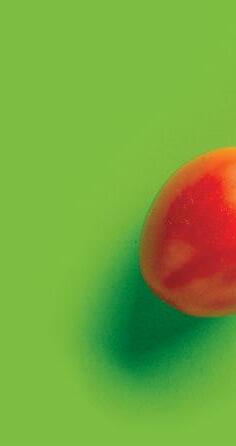
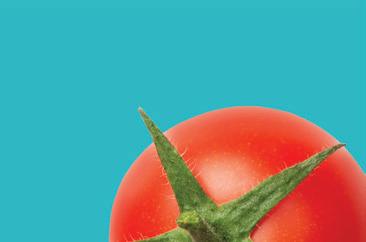

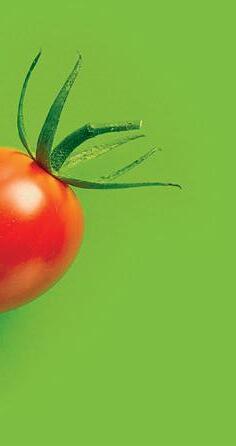

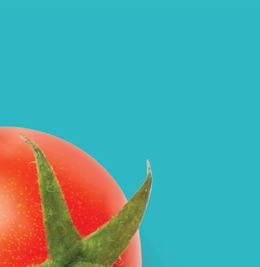
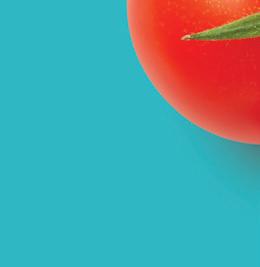
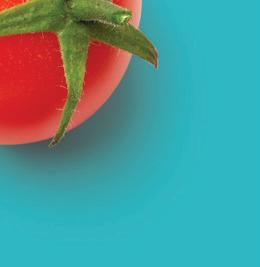

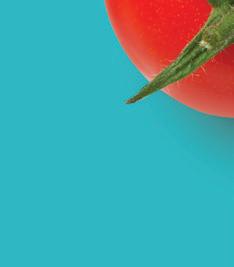

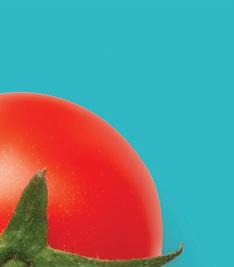

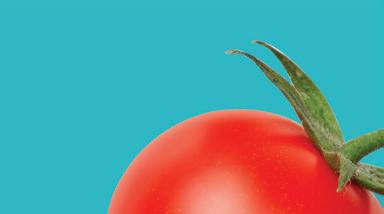


Teresa Cercós
@maurafruitnet
Eliciting an emotional response in the consumer is becoming increasingly central to the success of a food product according to Teresa Cercós, general director of quality, environment and innovation at leading dried fruit and nut company Importaco.
In a speech made at the World Food Innovate Summit – the congress dedicated to innovations in the food sector, Cercós highlighted how neuroscientific investigation can help companies win the loyalty of consumers.
“Every food business is on the one hand operating in a fiercely competitive context, while on the other it has to win the trust of consumers who are increasingly well informed and aware of what they are purchasing,” Cercós said. “To operate in this situation, we believe it is fundamental to change the paradigm compared to the past, basically by starting from the endpoint: the consumer themselves.”
Here, the neurosciences come into play. Importaco has invested €6m in innovation, using neuroscientific research to analyse the relationship between nut consumption and the improvement of people’s mental health; as well as the consumer’s interaction with
the natural product, to guarantee the highest quality and food safety standards.
“We use neuroscience to properly understand the needs of the consumer, the ones that are explicit and implicit,” Cercós explained. “It helps us understand which parameters of the product cause engagement in the customer so we can include these requirements in our designs. If customers find what they need in our products, loyalty is guaranteed.”
This intensive research has already yielded its first results, with Importaco recently launching a range of nuts enriched with nutderived natural probiotics that may help improve the immune system, prevent ageing, and boost health.
“Nutrition experts consider nuts to be beneficial foods for human health and there are plenty of scientific studies showing that they are good for preventing many diseases,” Cercós said. “Importaco uses the knowledge provided by neuroscience to deliver safe, nutritious, and healthy products and make them more a ractive to consumers.”
The willingness to harness the power of neuroscience underscores Importaco’s wider commitment to scientific research as a means

of finding answers to the challenges it faces. It’s an approach that appears to be bearing fruit: In 2021 Importaco’s turnover increased 9 per cent to €721.7m, reflecting the growth in the group’s business and its expanding presence on the European market further to the acquisition of Besana in 2020.
That year the group invested over €19m, mainly on improving its production centres. It also launched a number of sustainability initiatives, including certifying its nut plant under the Aenor Zero Waste standard and cu ing industrial waste in this sector by 20 per cent. It now aims to certify all the group’s production centres under this standard by the end of 2025.
Moreover, 90 per cent of its electricity now comes from renewable sources, which has led to a saving of 15,612 tonnes of CO2. Overall, it has cut its energy consumption by 12 per cent through energy saving plans. Importaco says it will further improve these plans in the coming years, to achieve Net Zero by 2050. E
TOP—Teresa Cercós, general director of quality, environment and innovation at Importaco
BELOW—The company is commi ed to scientific research as a means of finding answers to the challenges it faces



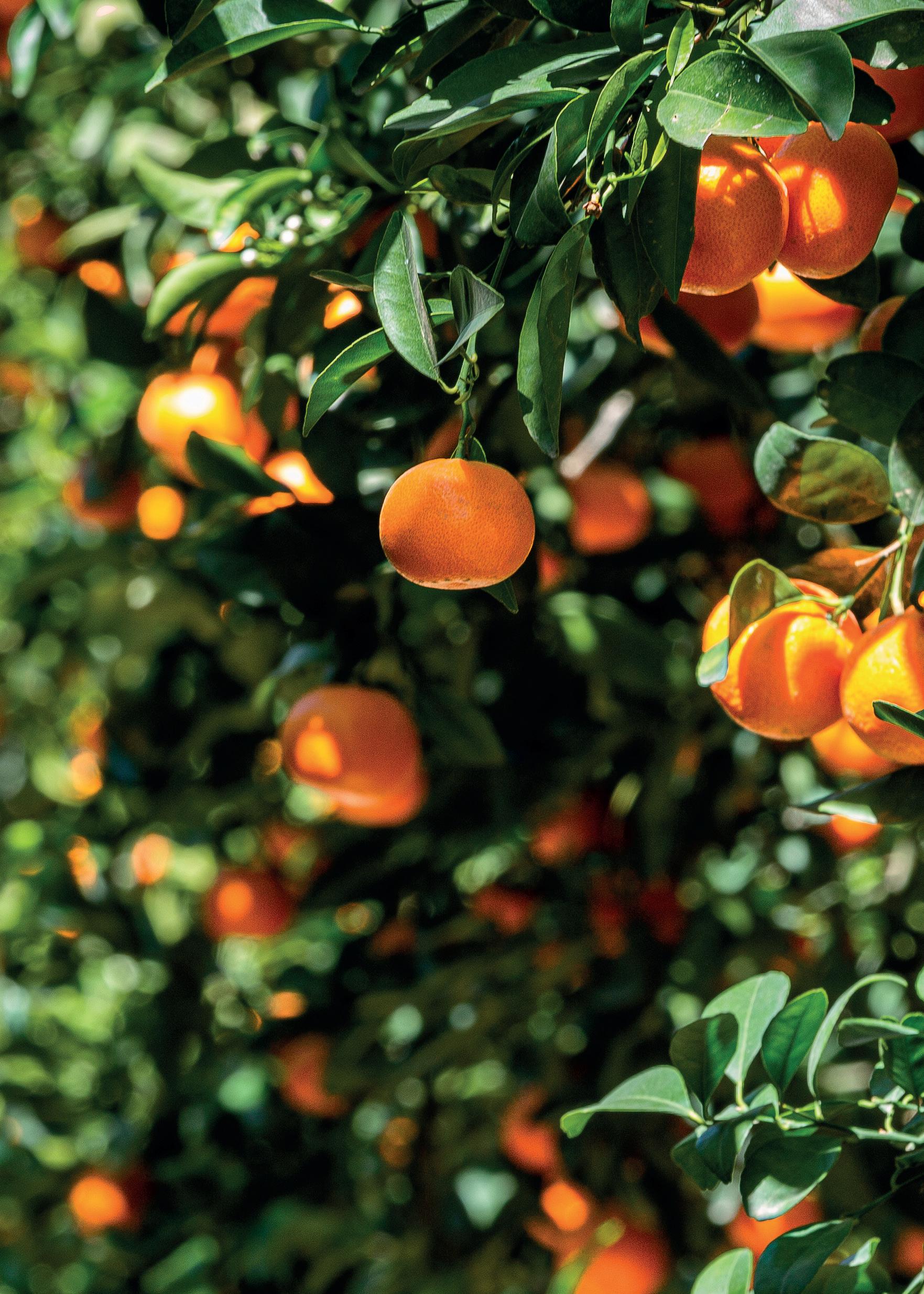
The company continues to expand its product range and markets, says CEO Jorge Bretó.
by Maura Maxwell @maurafruitnet
Citrosol’s international expansion is gathering pace. The Valencia-based post-harvest specialist’s sales in overseas markets surpassed domestic sales for the first time this year and now account for more than 50 per cent of the company’s total turnover – a trend that CEO Jorge Bretó believes will continue in the coming years.
He says sales in Spain are also increasing – albeit at a more moderate pace. “It’s not easy to keep growing in a mature market like Spain, but the innovative new products we are developing have been decisive in contributing to our ongoing growth trajectory,” he tells Eurofruit
A key part of Citrosol’s expansion strategy was last year’s acquisition of two Spanish post-harvest specialists, Fomesa Fruitech and Brogdex Ibérica. This has allowed it to significantly increase its presence across the Mediterranean basin, as
well as position itself in a number of Asian and Latin American markets.
“We have also incorporated their know-how and this has helped us improve our post-harvest solutions, in addition to providing us with technologies that we did not previously have, such as fumigation applications for fruit treatment,” Bretó says.
At this year’s Fruit A raction Citrosol will present a new corporate image, reflecting the brand’s evolution over the past decade. “Citrosol was born as a specialist in post-harvest treatments and technology for citrus, but for more than 10 years, as a result of extensive research and development work, we have developed solutions to extend the commercial life of avocados, peppers, tomatoes, peeled garlic and other fruits and vegetables,” Bretó explains.
“Our updated image shows more clearly all the solutions we offer, along with our values. It reflects our forward-looking ethos without leaving aside the origins of the brand.”
Looking ahead, the company is set to continue expanding its BioCare by Citrosol range of green solutions in response to the European Union’s increasingly restrictive legislation on pesticides. While there’s no doubt that the Farm-to-Fork strategy, which seeks to cut the use of chemical pesticides by 50 per cent by 2030, represents a major challenge for post-harvest companies, Bretó says Citrosol has been working on ‘green chemistry’ solutions for many years and as a result, has developed a range of products with a low toxicological and ecotoxicological profile that as efficient – if not more so – than conventional solutions.
These include the Citrocide disinfectant washes and PlantSeal vegetable coatings to control weight loss and cold damage, which are certified for use in organic farming.
Asked where he sees the best opportunities to further grow the business over the medium to long term, Bretó notes that while all markets are important, it is countries where fruit and vegetable production expanding most rapidly that show the greatest potential.
“I am not only talking about citrus, but also other crops for which we have been developing solutions for years, such as tropical fruit or stonefruit ¬– in fact, we have just developed a suite of postharvest solutions for cherries,” he says. E

A new generation of LET cucumbers by Enza Zaden offer better fruit quality and longer shelf-life, even without being packed in plastic. LEFT—
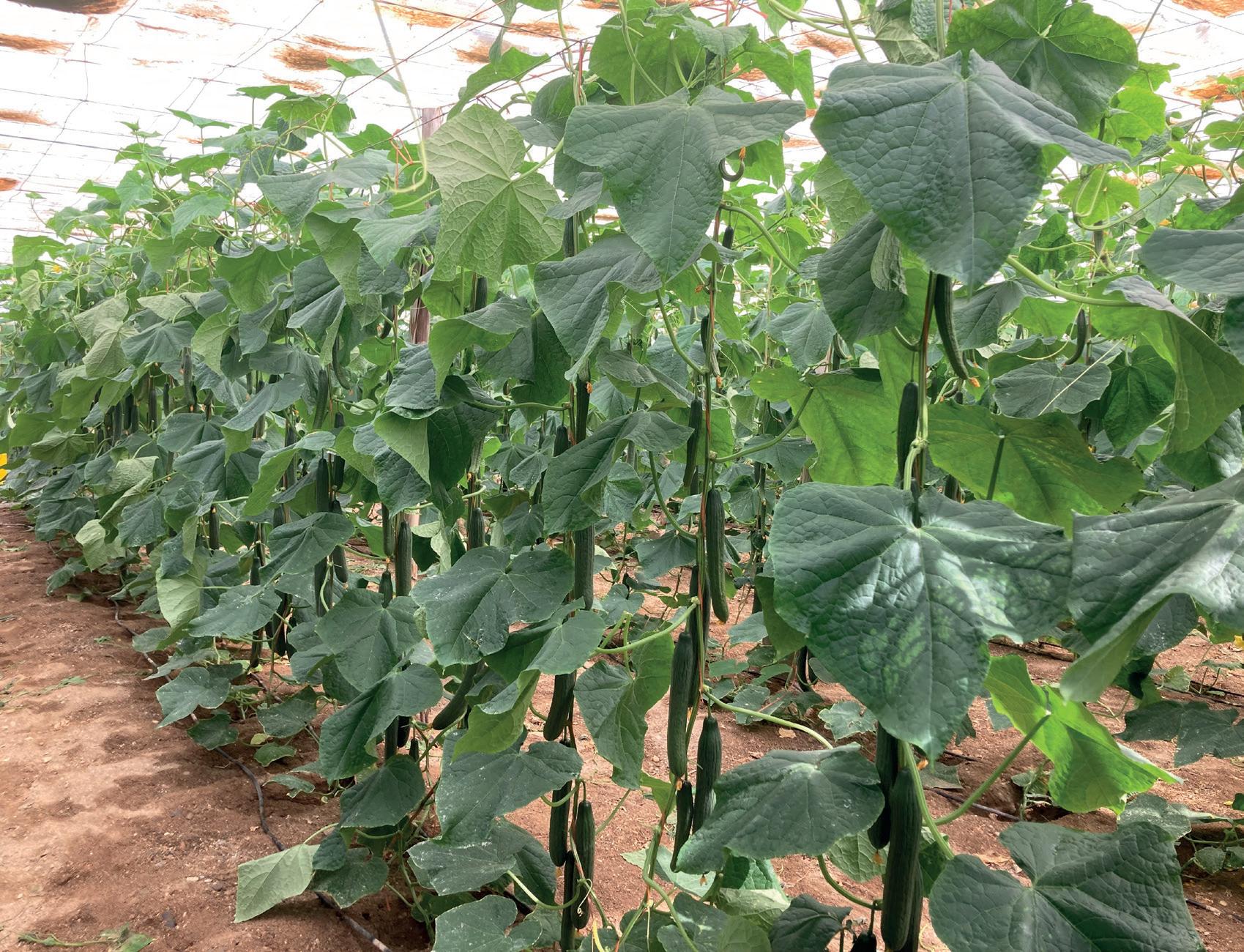
One of Enza Zaden’s goals has always been to give solutions to the industry through breeding and, when it comes to sustainability, one of its solutions is the Greencumbers’ portfolio. Greencumbers is a new generation of LET cucumbers that offer better fruit quality and longer shelf-life, even without being packed in plastic.
In most of the European retailers, except for Germany, cucumbers are normally covered with a plastic film to prevent water loss and dehydration; Greencumbers
are proven to experience less dehydration – thereby having a longer shelf-life than the market standard, even without the plastic film.
Together with a better fruit quality and a darker skin colour, all the varieties included in the portfolio offer up to five days more of marketability in the stores, helping to reduce food waste and move to a more sustainable world.
The entire Greencumbers portfolio can also be grown 100 per cent organically through Vitalis seeds, the branch of the company that produces and sells 100 per cent organic seeds.
The Greencumbers portfolio currently includes more than five different varieties, allowing producers to grow all year round, guaranteeing the same high
quality and high standards throughout. This is important as it helps final consumers understand the differential value of the product, encouraging repeat purchases.
An independent study from Agronomy highlighted that 95 per cent of Levantino and Poniente cucumbers, both varieties inside the Greencumber portfolio, are still perfectly saleable ten days after harvest. And for Braganza, another star variety, this goes up to 14 days. These results add a significant amount of marketable days if compared to the market standard varieties.
With Greencumbers, Enza Zaden meets the increasing demand from the market to reduce food waste and reduce plastic use. “We are quite proud of that,” says sales manager Mari Carmen Manjon, “because, naturally, sustainability and the environment itself are at the top of our list as well. With Greencumbers, we have such a great solution for our customers, and we are happy to contribute to a more sustainable world.”
Global marketing manager Silvia Madureño sets out the company’s growth plans for the years ahead.
by MauraMaxwell
@maurafruitnet

What important milestones has Symborg achieved this year that you would like to highlight?
Silvia Madureño: In early 2023, Symborg was acquired by Corteva Agriscience, marking a critical milestone in the company's evolution. Now, Symborg solutions will be available to farmers as part of Corteva Agriscience and its new Biologicals Business.
In what ways will your acquisition by Corteva expand your market presence?
SM: As part of Corteva Agriscience, Symborg will be able to tap into greater resources, increasing our capacity to innovate and accelerate the development of new products. In addition, it will undoubtedly extend our reach, enabling us to respond to the challenges and requirements of a greater number of farmers with our biological solutions.
The bioproducts sector is becoming increasingly crowded. Is it difficult to convince customers that your solutions are more effective than those of your competitors?
SM: There are a number of elements that differentiate Symborg’s products from those of our competitors. Our biological solutions are formulated from exclusive and patented strains of microorganisms that have been selected for their unique characteristics, and whose effectiveness has been scientifically proven. In addition, they have already been used successfully hundreds of times all around the world.
Our products are backed by solid data, endorsed by the main official agricultural organisations and, of course, we work with universities, independent laboratories or certifying companies to provide our products with conclusive scientific and agronomic evidence. Thus, we provide farmers with the security they need when adopting a new technology such as organic production.
On the other hand, we are also one of the few companies in the sector that controls the entire value chain of our products, from research and development right through to distribution, and we do so globally from our headquarters in Murcia.
What main projects do you have lined up for 2024?
SM: At Symborg, we are constantly exploring new areas of research to respond to our customers' needs, and we are currently working on a new portfolio of products to bring to market.
We focus on developing products that harness the power of microorganisms and biomolecules to improve plant health and increase crop productivity. We are especially interested in the potential of these microorganisms as the basis for biocontrol solutions, which provide farmers with biological mechanisms to control pests and diseases. In fact, the biocontrol products market is expected to grow by 15 per cent annually in the next five years. E
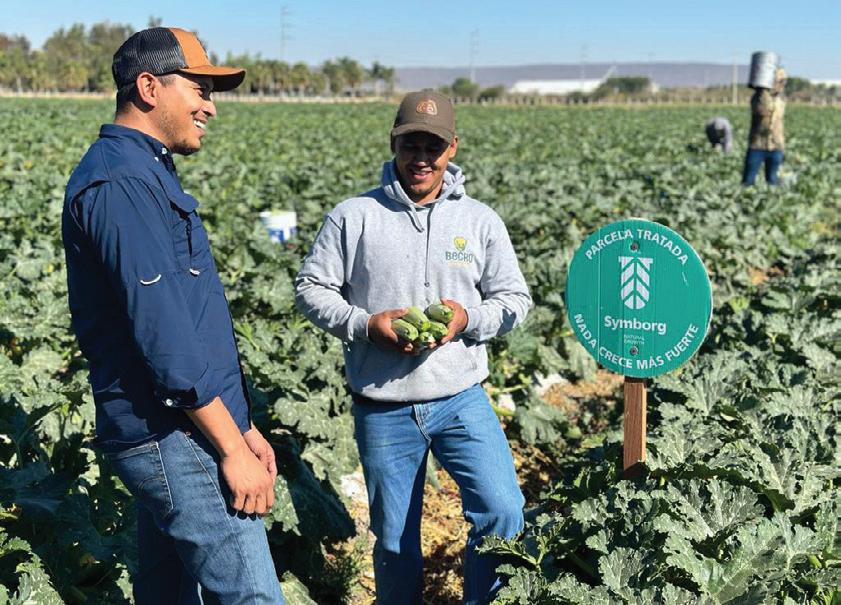
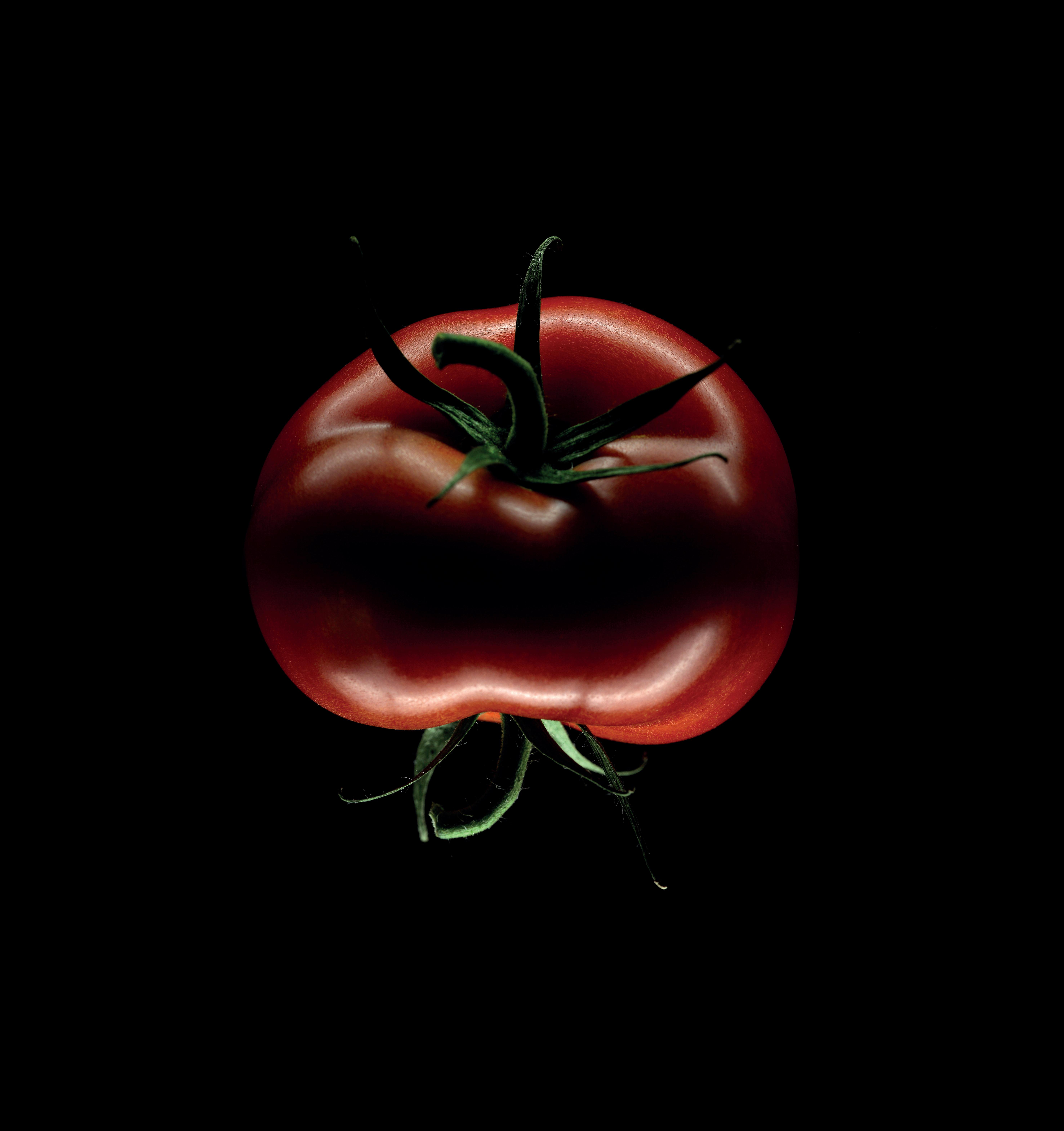
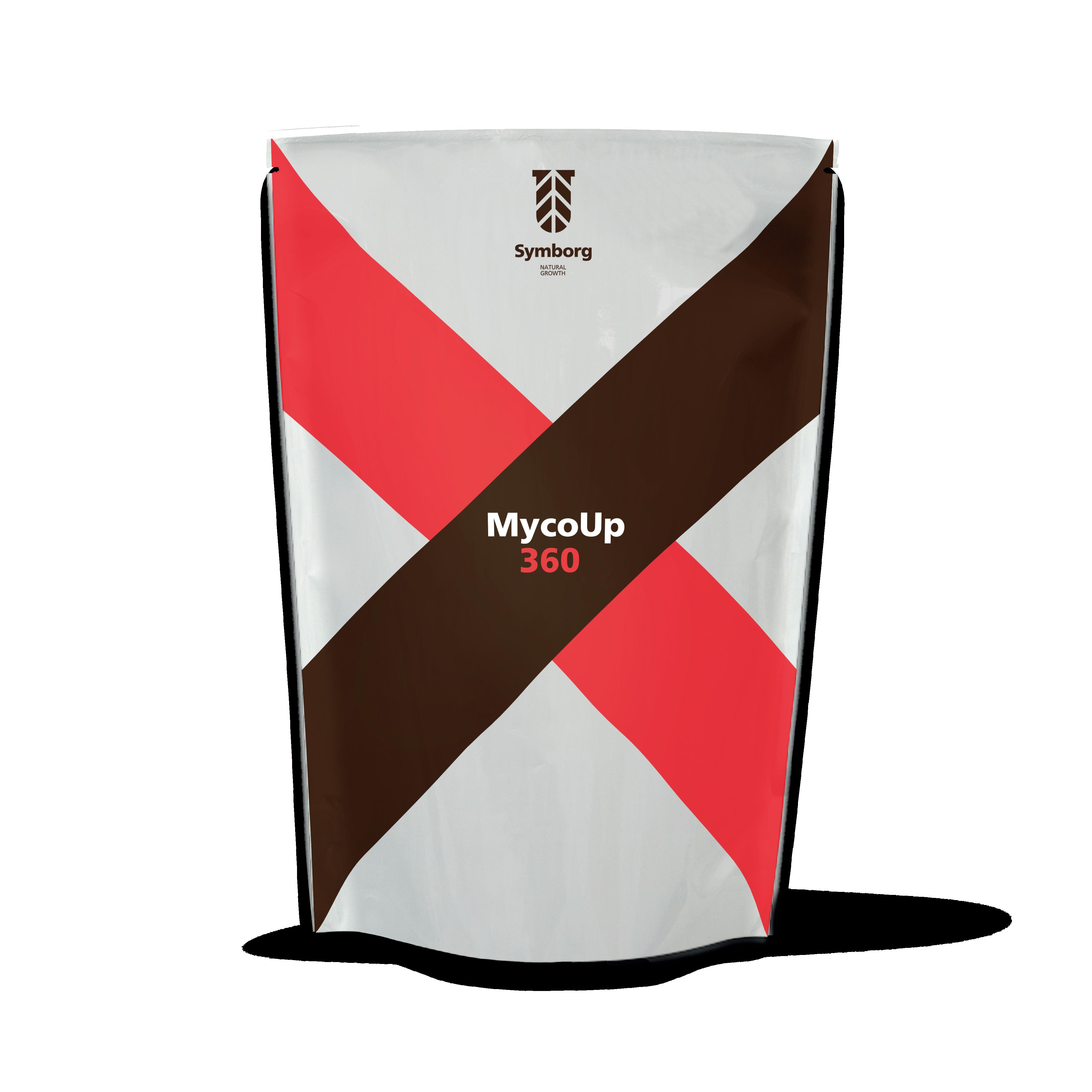




New general manager Yesenia Trascastro Pulgar is bringing a more flexible approach to the company in order to deal with today’s rapidly evolving market conditions.
by Maura Maxwell @maurafruitnet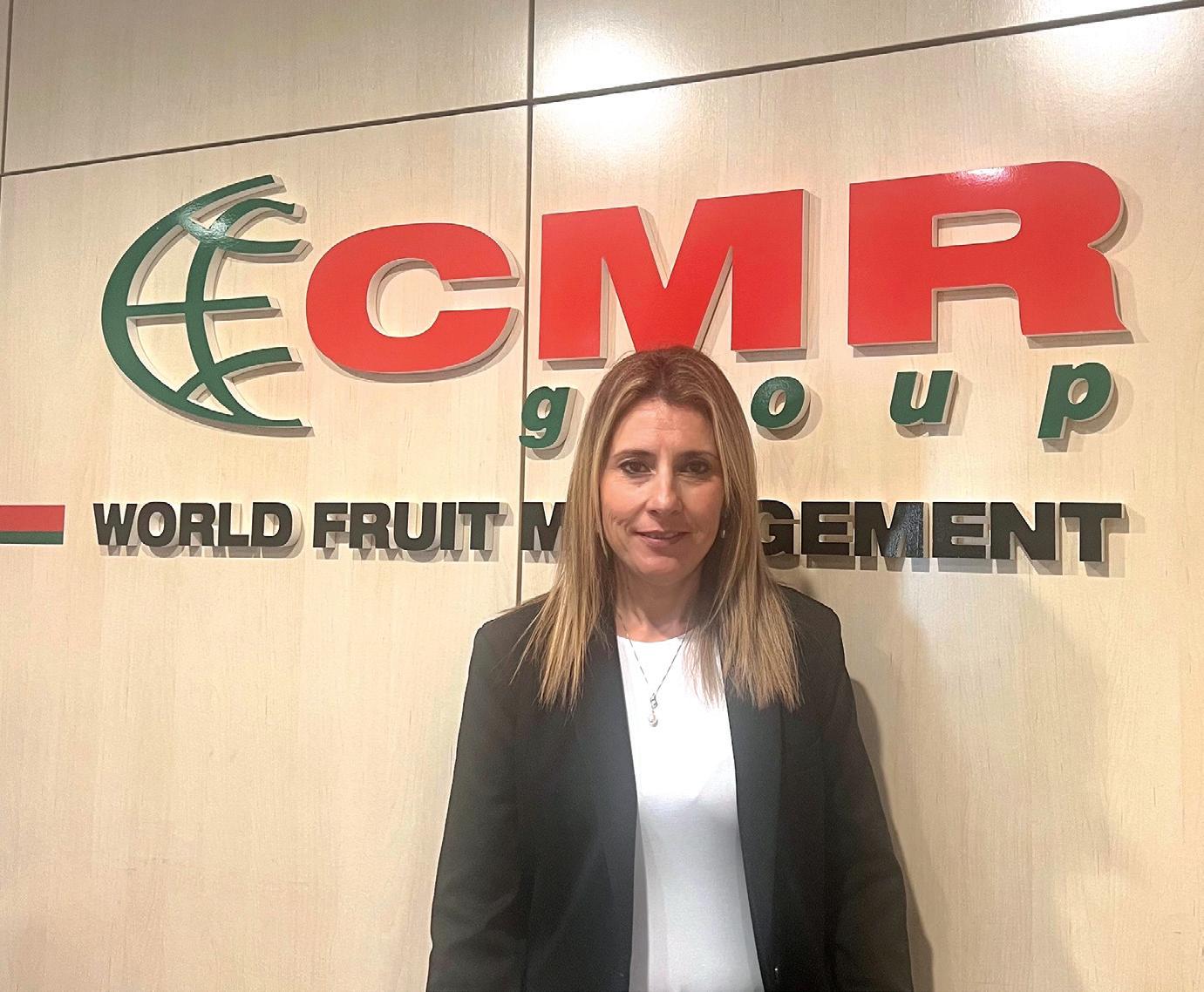
You took over as general manager of CMR at the beginning of this year.
What have you been focusing on in these first few months?
Yesenia Trascastro Pulgar: CMR Group has very solid and consolidated foundations going back more than 140 years. I have been very clear from the outset that an organisation that has managed to improve year after year for such a long period of time and through five generations knows how to manage all its resources and its day-to-day business very well.
My job, therefore, has focused on adapting a company with great
know-how and experience to a new, much more dynamic market environment with increasingly concentrated distribution channels. Recent economic, social and political factors have disrupted the normal functioning of the market and this requires an agile and flexible response that includes the digitalisation of processes and the search for greater efficiency in all areas of the business.
At the same time, I have continued the internationalisation strategy that the company has embarked on to improve its service and global coverage, through the opening of new commercial offices in Portugal and Rungis, France.
“My job is to adapt a company with great know-how and experience to a new, more dynamic market environment”
What new developments are you going to present at this year’s Fruit Attraction?
YTP: As well as introducing the industry to staff from our new commercial offices in CMR Portugal and CMR France–Rungis, Madrid provides the backdrop for the launch of the digital media campaign for our extra quality pre-ripened avocado and mango brand Aurum. This features plenty of information on consumption methods and moments, recipes and the health benefits of both products.
We’ll also be showcasing the new brand identity for our Cosarica brand of Brazilian-grown melons and watermelons, which features new labelling and packaging.
And once again our stand has a corner dedicated exclusively to presenting Sprim, our range of 100 per cent low fat natural fruit ice creams. They are suitable for vegans and free of allergens, making them an ideal way for consumers to enjoy all the health benefits of fruit in a refreshing and tasty frozen format.
In April CMR published its annual sustainability report. What important milestones would you like to highlight from the report?
YTP: At CMR Group we are very proud of not only planning, but also implementing corporate social responsibility policies that favour the environment and local communities in the regions in which we operate.
In 2022, we launched a range of projects to reduce our environmental impact, such as the regeneration of
agricultural land, deforestation actions, moves to reduce contamination of aquifers from our water and waste footprint, the promotion of the circular economy and the generation of clean energy.
Likewise, we have invested in infrastructure and technologies for more efficient recycling and the reduction of food waste, as well to tackle the fight against hunger. We also launched actions that reaffirm our firm social commitment to the community and workers and their families who make up the CMR group.
Rising costs, stricter EU regulations on chemicals and packaging, climate change and increased competition from third countries create a challenging outlook for the Spanish fruit and vegetable sector. What are you doing as a company to mitigate the worst effects of the current situation?
YTP: The economic, social and environmental situation we face is affecting the day-to-day operation of the market, introducing new variables that are difficult to gauge both currently and in terms of their future impact. We have to learn to adapt to this situation because, while some factors, such as cost increases, are temporary, others, like climate change and new phytosanitary rules, are here to stay. In the case of all of them, the key is to be as flexible as possible so that we can adapt rapidly to any situation.
To do this we have created a committee made up of heads of the different departments to look at different scenarios and propose and implement an effective plan of action in each case.
What impact is the cost-of-living crisis having on demand? Have you observed that consumers are switching to more affordable options?
YTP: Demand is adapting to the current situation as it has always done, in the end it is a balance between supply and demand, seasoned by external elements, that shape the market. Speaking from a generalised view – since each geographical region is different – I would say that the typical consumer is opting for lower value options, such as bulk or seasonal produce, as well as making more frequent and regular purchases and prioritising sales channels offering greater price reductions. E
Barcelona-based CMR Group appointed Yesenia Trascastro as general manager in January of this year. She replaces Carles Martí, who maintains the presidency of the corporation together with his wife, Montserrat Inglada.
Trascastro joined CMR in 2021 after collaborating as an external advisor to the group since 2016. During her time as deputy to general management, she worked on the group’s consolidation strategy, a line that work will continue together with the management committee, also made up of Carles Martí and Jordi Martí in their respective positions of international sales director and national sales director. They are the fifth generation of the familyowned company.
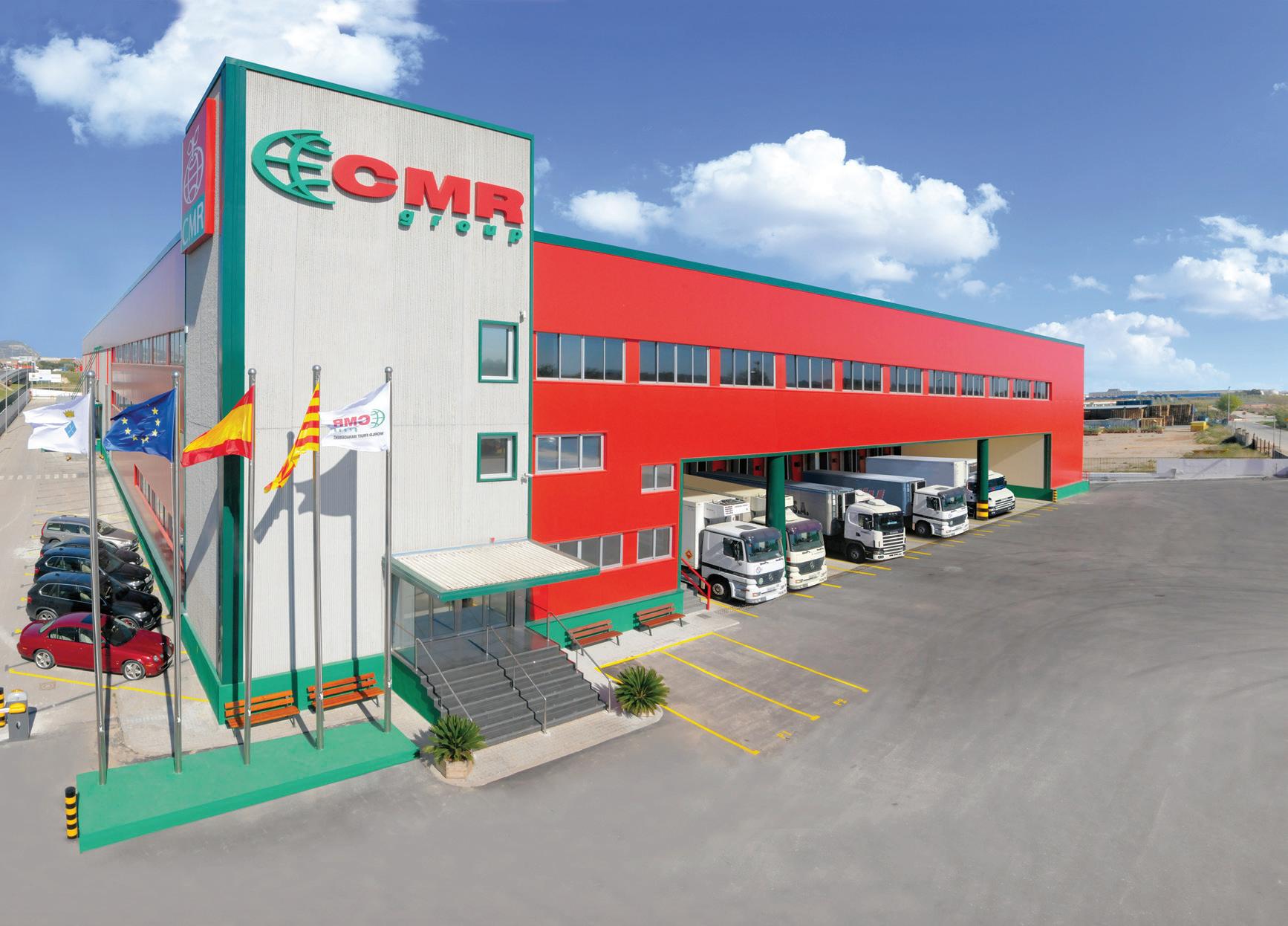
OPPOSITE—Yesenia Trascastro Pulgar LEFT—CMR has been run by five generations of the Martí family since its creation 140 years ago
South Africa, Turkey and Egypt are grabbing a bigger share of the global citrus market. But can they unseat Spain as the world’s leading exporter?

SPACO BORRÁS Fresh produce consultant Spain
pain has topped the citrus export table ever since the global trade began in the mid-19th century, save for a few years around the time of the Spanish Civil War. The data that I analyse in this article is based on calendar years, regardless of the fact that Northern Hemisphere citrus campaigns run from autumn to spring.
Chart 1 shows the proportion of worldwide exports
that Spain has accounted for over the last 80 years. From this we can observe four distinct periods: Between 1961 and 1983, Spain was responsible for around 25 per cent of global trade. In the next 20 years between 1984 and 2004 this went up to an average of 30 per cent, peaking at 36.75 per cent in 1993. The it returned to around 25 per cent between 2005 and 2015, before falling to 20 per cent from 2016 to the present day.

Source: Faostat 2023
Table 1 shows the figures from the top 10 citrus exporting countries in 2022, in absolute terms and in terms of share of global exports, allowing us to observe their evolution over the last decade.
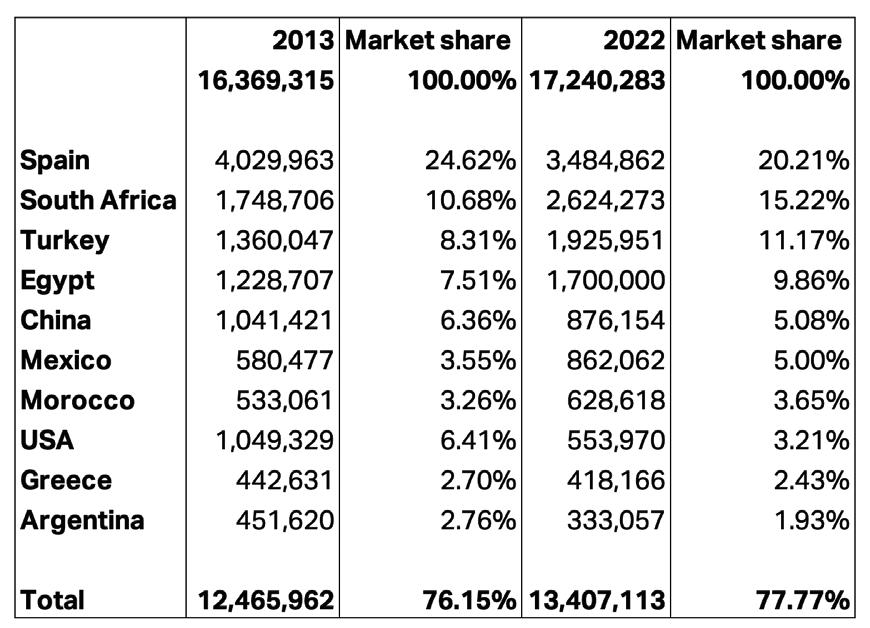
Source: Trademap, Faostat 2023 and own data
Together, these ten countries accounted for around 77 per cent of total world exports in both 2013 and 2022. However, significant changes occurred within this period. While there was no change in the order of the top four countries, Spain’s export volume decreased by just over 500,000 tonnes, and its market share went from 24.62 per cent in 2013 to 20.73 per cent in 2022.
South Africa, meanwhile, saw exports grow by nearly 900,000 tonnes and its market share rise to more than 15 per cent. Turkey and Egypt, the two countries that are Spain’s direct competitors in the Mediterranean, together went from exporting 2.5m tonnes in 2013 to 3.6m tonnes in 2022, which surpasses Spain’s shipment volume. The US lost 50 per cent of its exports, or 500,000 tonnes, and saw its market share shrink from 6.41 per cent to 3.21 per cent. China’s export volume decreased by 170,000 tonnes, Argentina’s by 120,000 tonnes and Greece’s by 25,000 tonnes. Mexico’s shipment volume grew by 280,000 tonnes and Morocco’s by 90,000 tonnes.
Chart 2 provides more detail of what has happened in recent years among the four countries that lead the global export rankings.
As you can see, only Spain’s export volume has fallen while South Africa’s, Turkey’s and Egypt’s has grown. Over the coming years, two things would have to happen for Spain to lose its top spot: it would have to experience a big drop in its export volume while at the same time the other three countries would have to grow significantly.
Whether this will occur depends on factors such as planted area, productivity, the availability of water and land for new plantations, climate and, of course, market potential.
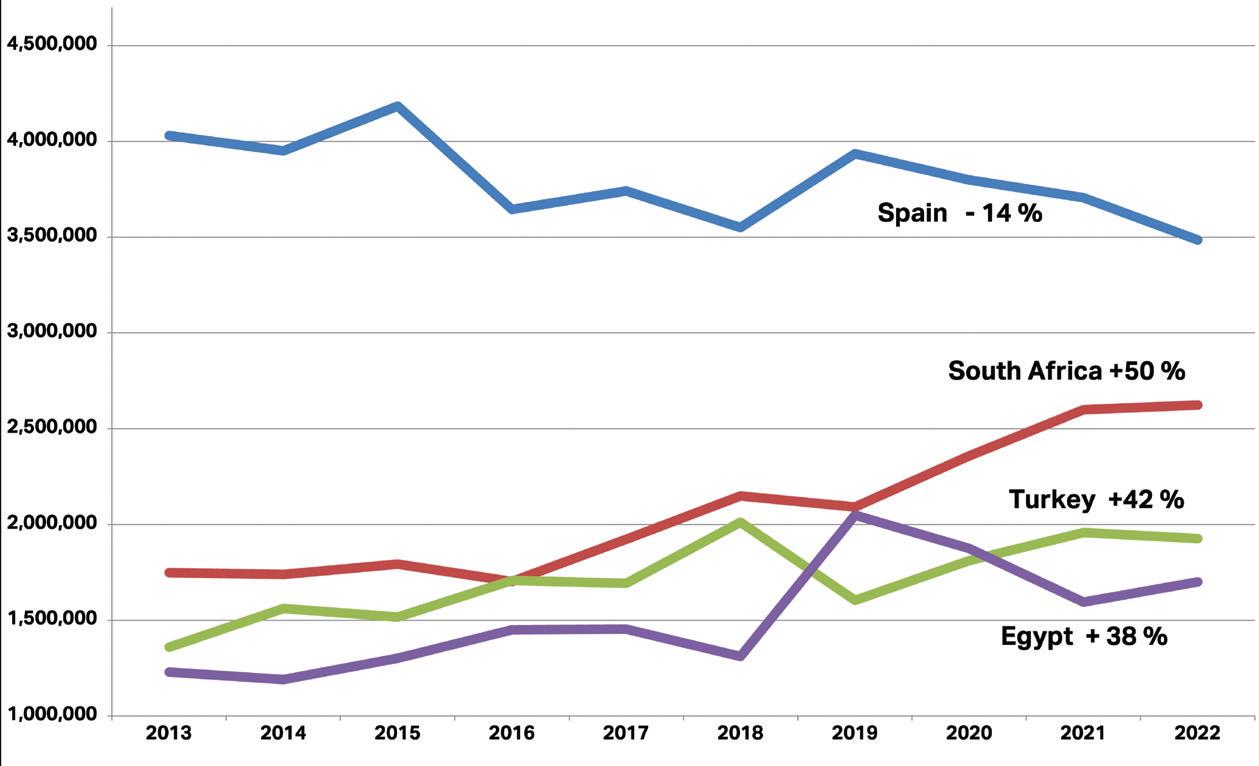
Source: Trademap, Faostat 2023 and own data
Based on Faostat 2023 data, the number of hectares and productivity per hectare for each of these four countries in 2021 is shown in table 2 (following page). It is key to note that the figures are provided by each country and are an estimate of their Ministries of Agriculture. The export data we handle, being customs data, is more real data.
The fact that average productivity in Spain is the lowest of the four countries can only be interpreted as being because of the age of its plantations and the level of abandonment of groves that has existed since the beginning of the current century. In the Valencian Community alone, 35,000ha of citrus have been abandoned. Most have suffered a period of decline of more than a decade during which their health and consequently their productivity has deteriorated. And the vast majority of these abandonments have occurred within Valencian smallholdings, with plots averaging 0.3ha.
By contrast, Egypt’s low productivity levels may be due to the number of new plantings seen over the past five years, most of which are beginning to come into production.
In South Africa, the high productivity can be explained by the preponderance of large farms with a great regenerative capacity. The data from Turkey is also very high but it is the FAO data. »
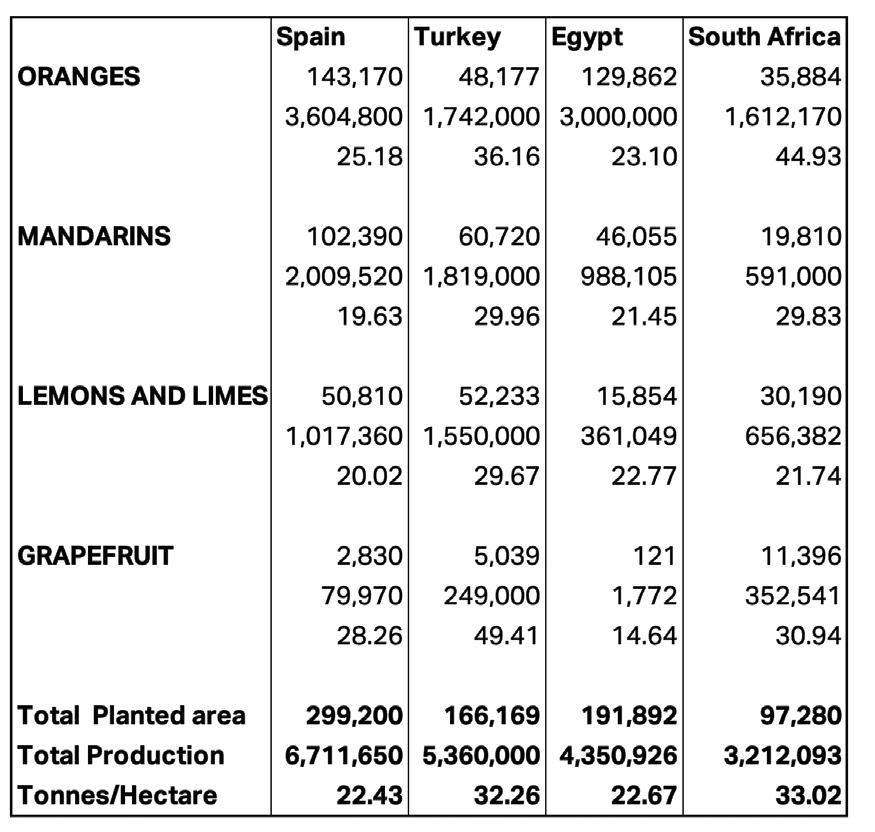 Source: Faostat 2023
Source: Faostat 2023
The climate is perhaps the most important determinant of the planting potential and optimal harvest time and export window of different varieties.
As can be seen from Chart 3, the monthly distribution of exports varies widely between the four biggest exporting countries.
Egypt is the country with the shortest export window, with 91 per cent of exports occurring in the five months from December to April. Turkey’s export
window is six months, from October to April, during which 93 per cent of its volume is exported, and similarly South Africa’s is also six months, with 93 per cent of the volume exported between October and May.
Spain’s export season is the one with the fewest peaks and also the longest, with 93 per cent of exports occurring in the nine months from October to June. This is largely down to the agri-climatic conditions, which favour a long production window than the other three countries.
Worldwide, citrus consumption will continue to grow gently as more new markets open up. The exception is grapefruit, consumption of which has stalled. Barring some major breakthrough, it is difficult to see how this will rebound. Oranges, too, are showing signs of slowdown in mature markets so it will take new markets to maintain growth in the coming years. By contrast consumption of mandarins, lemons and limes continues to grow, even in
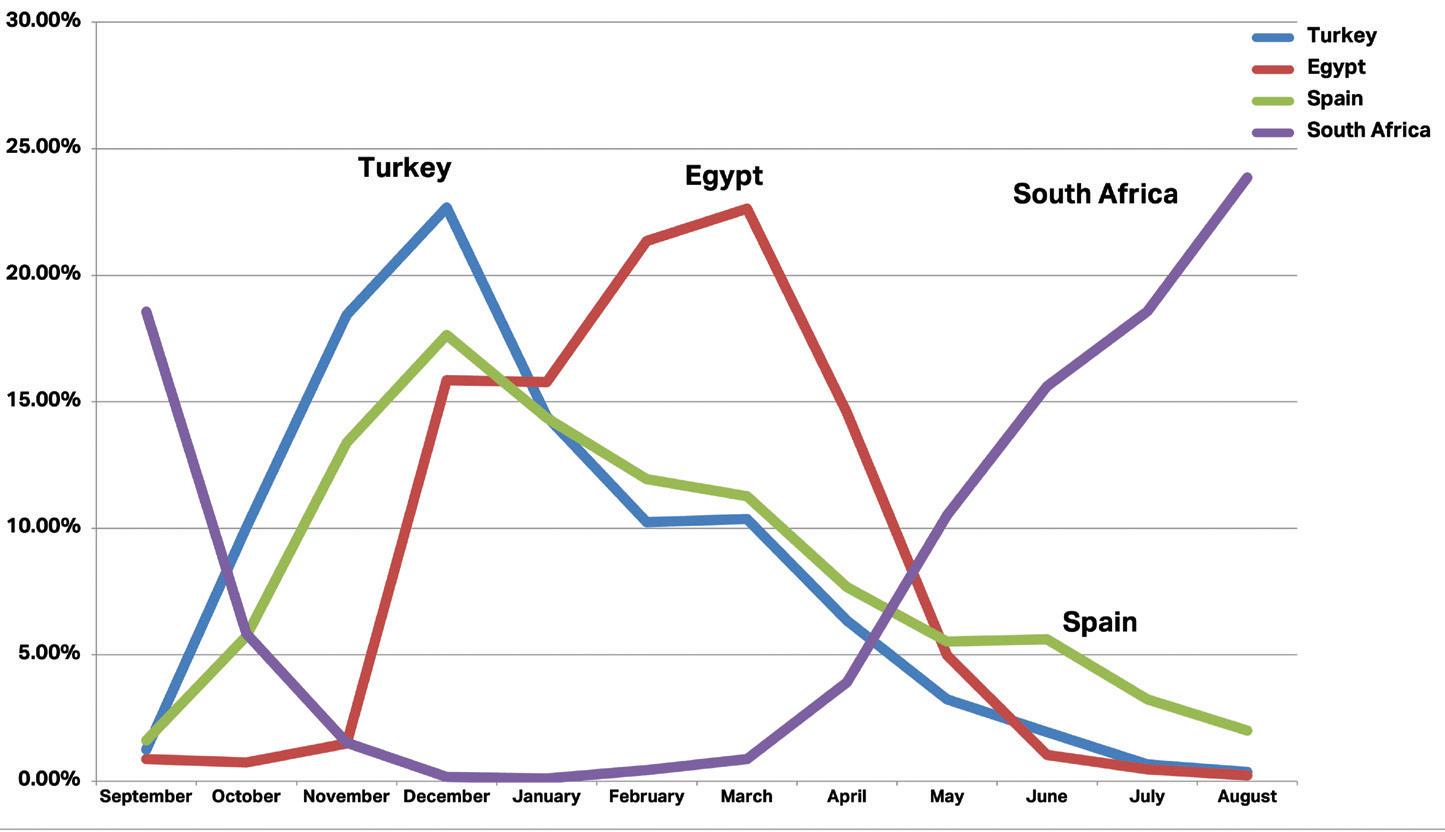
Source: Trademap
mature markets. It’s worth noting that there have been no major promotional campaigns for oranges and tangerines for several years.
Turkey’s output will grow, albeit only slightly, and the country will soon begin to experience the same profitability falls in smallholdings as Spain. Egypt will see its production grow due to its abundance of desert land with water in the subsoil. But it has the problem of a relatively short export window, which could mean that it may be overwhelmed logistically during its peak harvest time. Another challenge Egypt faces is the presence of certain pests that can cause incidents in some markets.
In South Africa, orange and grapefruit growth has stalled as producers bet instead on mandarins and lemons. But it is in the Southern Hemisphere and in summer less citrus is eaten in the Northern Hemisphere.
And what of Spain, with all the agro-climatic advantages it possesses? With the exception of Guadalquivir valley, which is suffering from a prolonged drought, there’s no reason why Spain cannot recuperate part of the 35,000ha of smallholdings that have been abandoned in recent years, converting them into larger and more efficient farms run either privately or by the state. The recently published Comprehensive Citrus Plan of the Valencian Community sets out possible pathways to achieving this.
Meanwhile, the present drought will come to an end and Spain will go back to producing 7m tonnes of citrus and year and exporting 4m tonnes. Because, as many experts affirm, Spain is still the best country in the world for citrus production. E



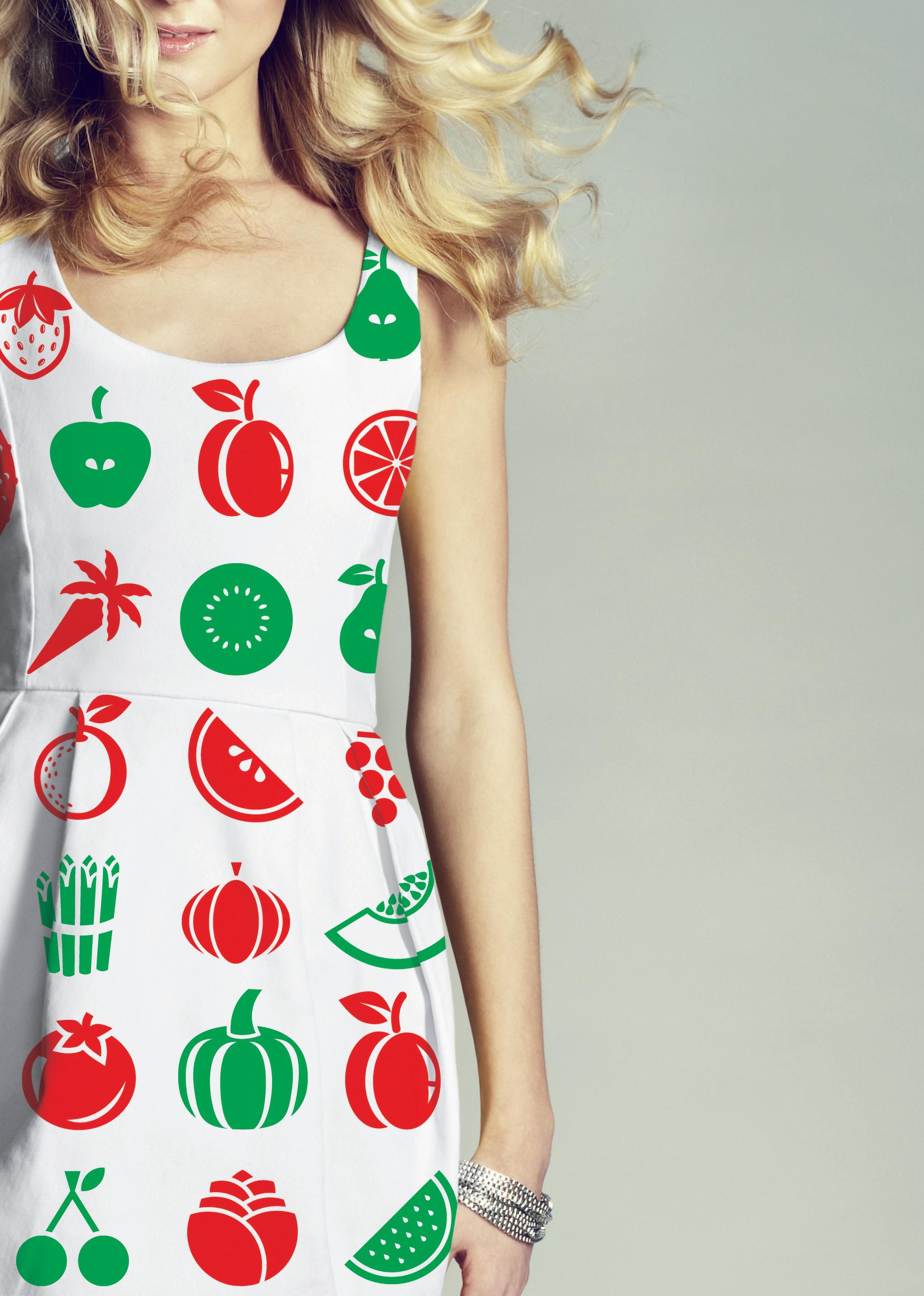



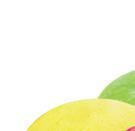

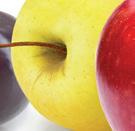






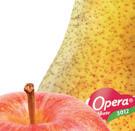





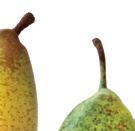

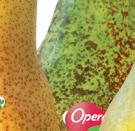
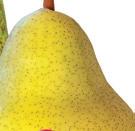
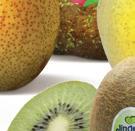

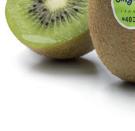



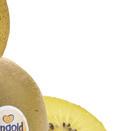
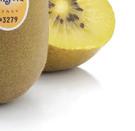


The nursery is bringing in new varieties, formats and production systems in a bid to overhaul Spain’s stonefruit sector.
by Maura Maxwell @maurafruitnetSpain’s stonefruit sector is fighting back. After years of overproduction, poor commercial planning and rockbottom prices, a major overhaul appears to be underway as growers adopt new and better varieties and introduce more modern growing techniques to improve yields and keep costs in check.
Valencia-based Viveros Hernandorena is one of the companies leading the revival. The nursery, which specialises in supplying stonefruit trees, acknowledges the mistakes of the past and is now on a mission to overhaul its varietal offer by focusing on premium varieties with ‘exceptional’ flavour profiles that are be er suited to mechanisation
and robotic harvesting.
“Like everyone in the stonefruit sector we have looked at what we’ve done wrong. This has led to a reorganisation, a rebalancing and greater professionalisation, pu ing us on a good footing to recuperate lost market share and be er satisfy consumer demand,” commercial director explains Rosa Hernandorena.
While a decade ago Spain produced an abundance of bland varieties with low brix levels, today Viveros Hernandorena has licensing agreements with top breeders like PSB and IPS to introduce improved genetics to the market.
“For example, from next year
we will be marketing a new range of platerinas (flat nectarines) with exceptional flavour and brix levels, low susceptibility to cracking and a range of other benefits,” says Hernandorena.
The nursery also has a deal with Italy’s Geoplant nursery for the propagation of two of its premium nectarine varieties, Gea and Febe, and is in the process of obtaining a similar deal with Cot Internacional.
In addition, the nursery is focusing plants be er adapted to new planting models. “The idea is to follow the same planting model used in olive and almond orchards – narrower planting frames, with trees in a hedgerow formation, which will allow for mechanisation and robotic harvesting to make farms more efficient and profitable,” Hernandorena explains.
The company works with another nursery, Agromillora, whose Rootpac 40 rootstock breeding programme allows it to control the vigour of the plants and adapt to this type of hedgerow formation, especially for early and mid-season varieties.
Viveros Hernandorena is also adapting its sales formats to customer demand by offering more bareroot plants, which it can produce at a great volume more affordably, and as a result expects to be able to sell more than 250,000 fruit plants annually.
Viveros Hernandorena has developed its own Varietal Reliability seal that guarantees 100 per cent homogenity in all its plant material, as well as varietal health, guaranteeing the control of pests and diseases from the initial material to the final sale of the plant.
“We gra 100 per cent of the material in our facilities, which allows us to have absolute control of the traceability of all the material and to be able to respond to the demands of our customers at any time,” Hernandorena says. E
ABOVE LEFT & BELOW—Thanks to licensing agreements with top breeders like PSB and IPS, Viveros Hernandorena now offers premium varieties with ‘exceptional’ flavour profiles that are more suited to mechanisation and robotic harvesting


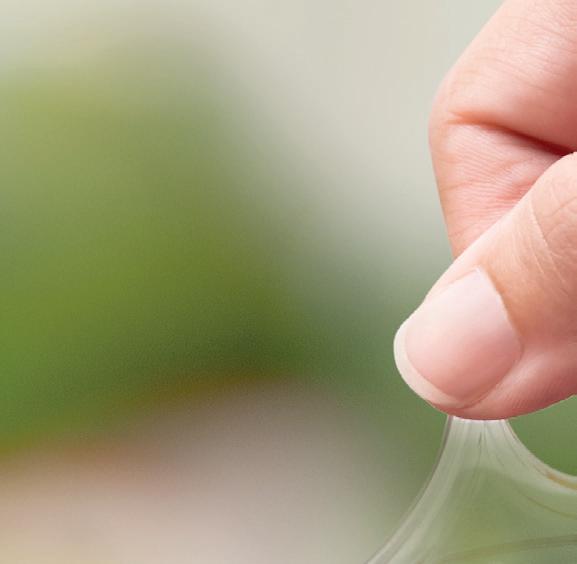
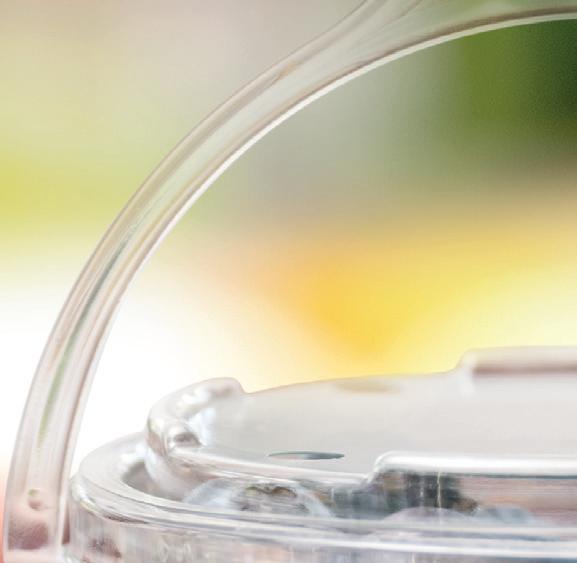

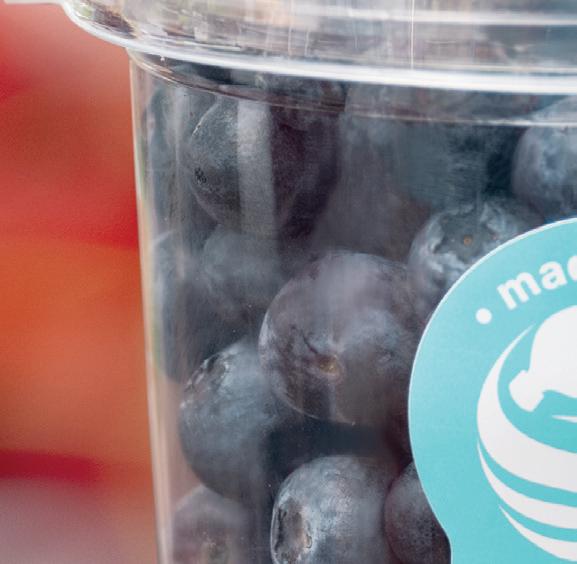
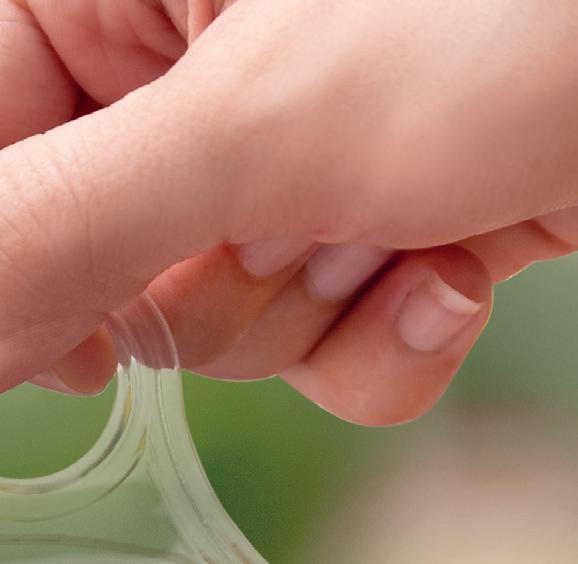
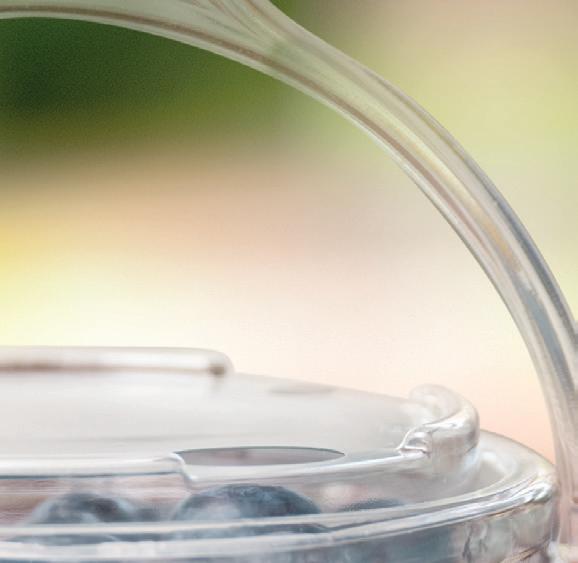
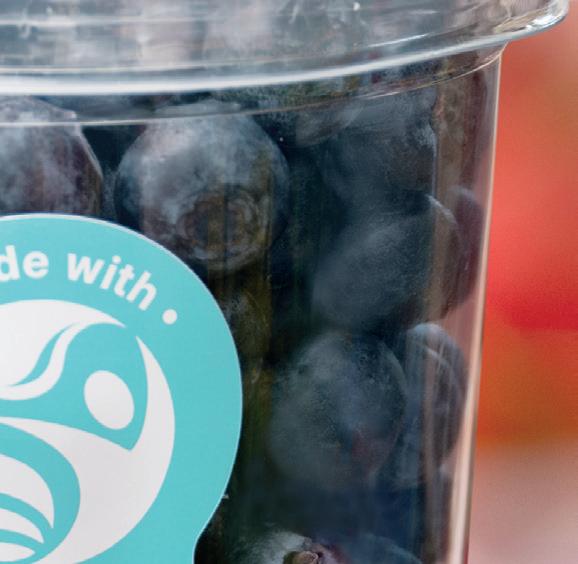
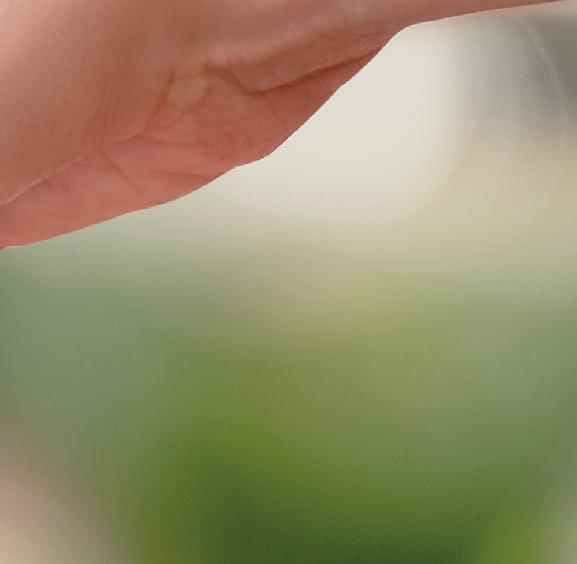






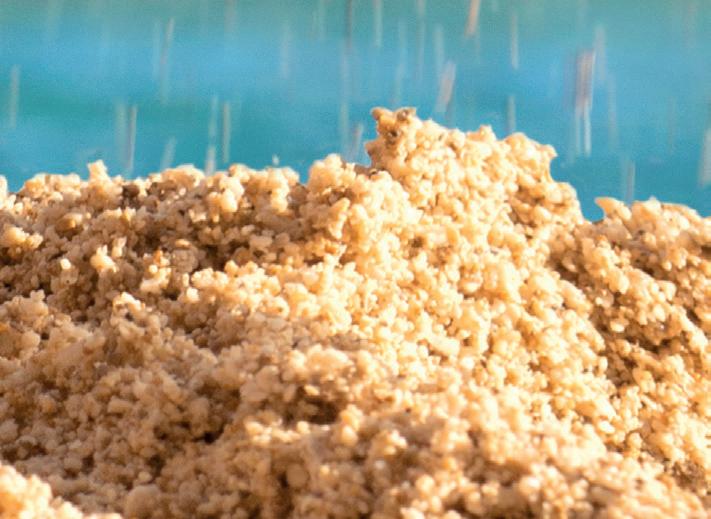
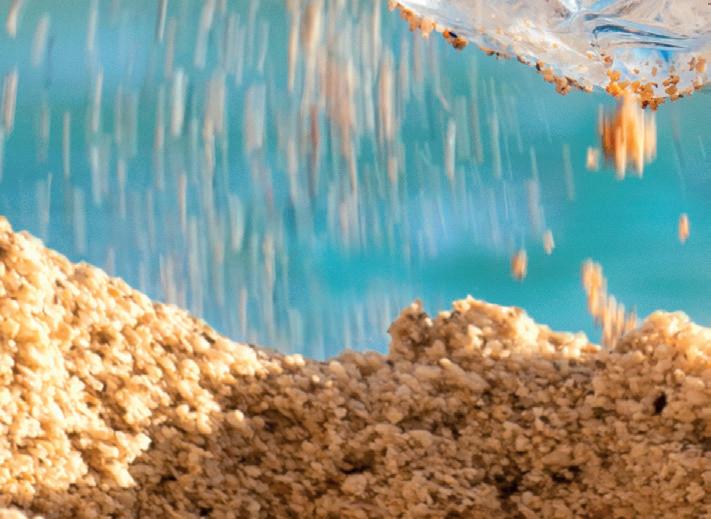
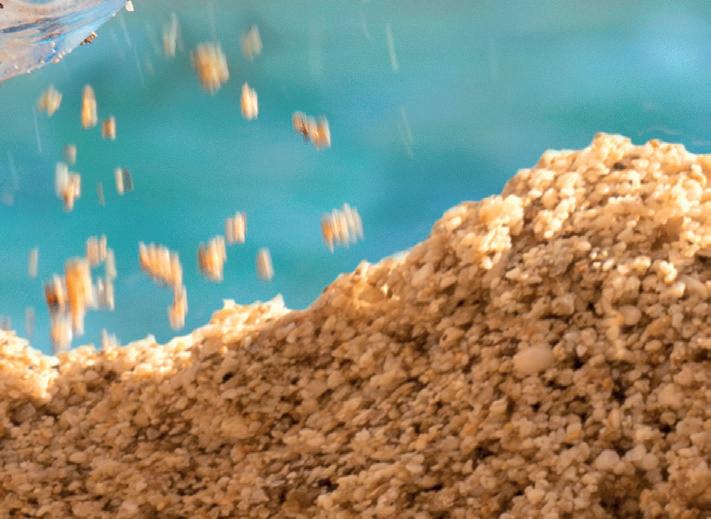
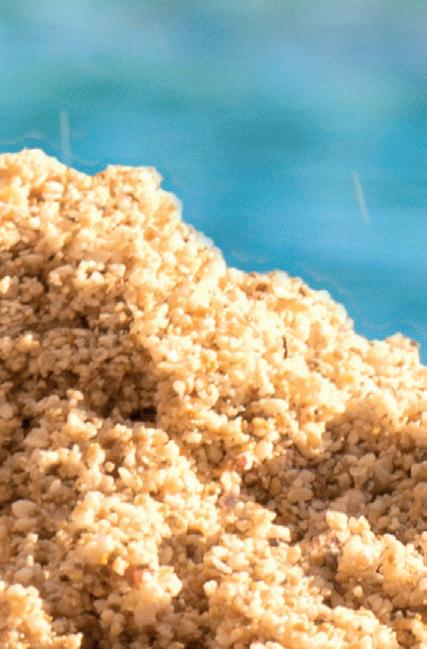
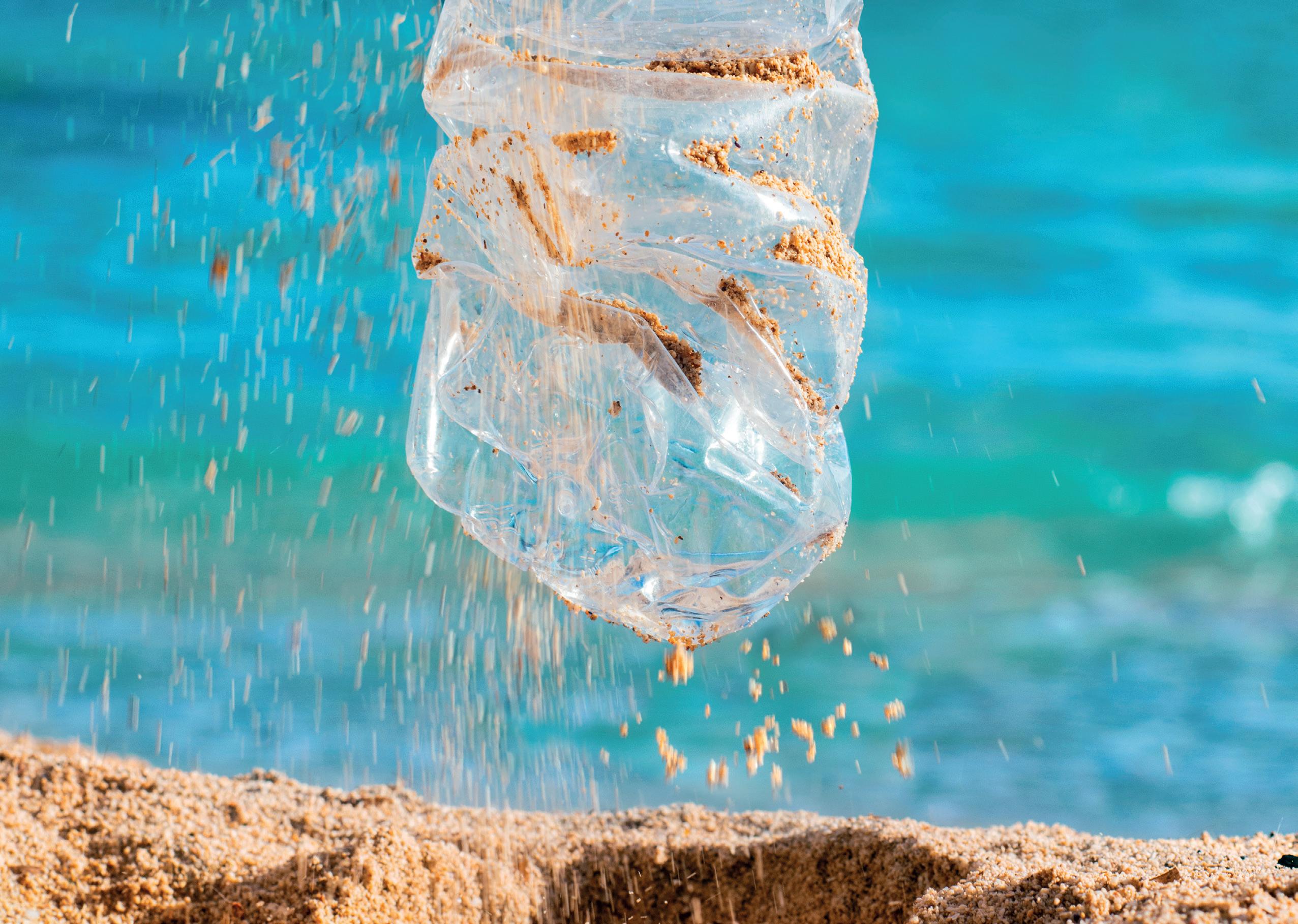
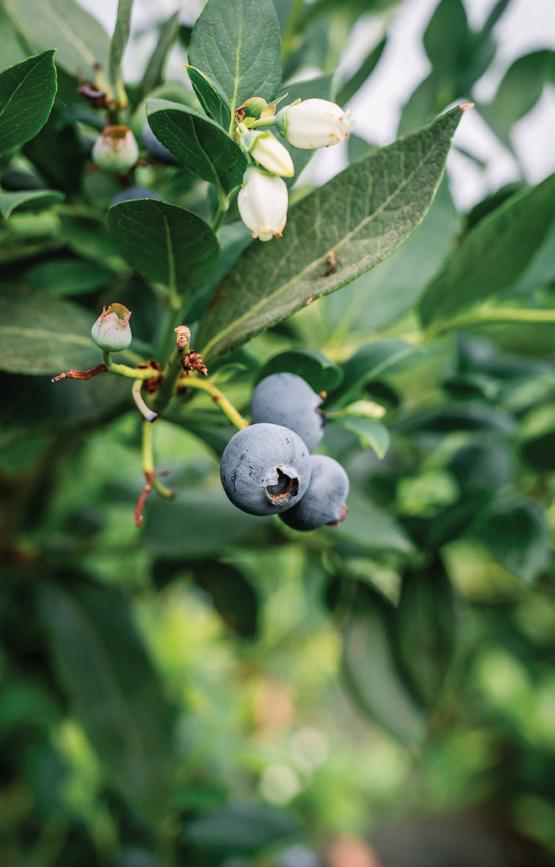

The leading berry supplier continues to work closely with its strategic partners to drive year-round demand for superior tasting fruit.
by Maura Maxwell @maurafruitnetAs it approaches its 30th anniversary year, BerryWorld Group maintains its commitment to improving its 52-week supply through its ongoing focus on new varieties and new geographies.
In blueberries, for example, BerryWorld’s South Africa season, now in full swing, will be followed by Egypt, a new supply source that the company added to its portfolio last year in order to provide a be er tasting product than what is generally available in the market in the December to February window. Egypt will then be followed by Moroccan then Spanish and Portuguese production, maximising BerryWorld’s production window of exclusive blueberry varieties.
“Now, more than ever,
BerryWorld principles remain the same. We pride ourselves on long-standing grower and customer relationships, proprietary breeding, leading market insight and marketing, and an exclusive varietal offer available all year round,” says Adrian Olins, divisional CEO of the BerryWorld Group.
To date, eleven of BerryWorld’s varieties have received awards from the International Taste Institute for their superior flavour. These include BerryWorld Jewel, BerryWorld Gem and most recently BerryWorld Iris, all proprietary raspberries from the BerryWorld Plus programme, while in blackberries BerryWorld Midnight from the Beekers Berries Breeding programme enhances the
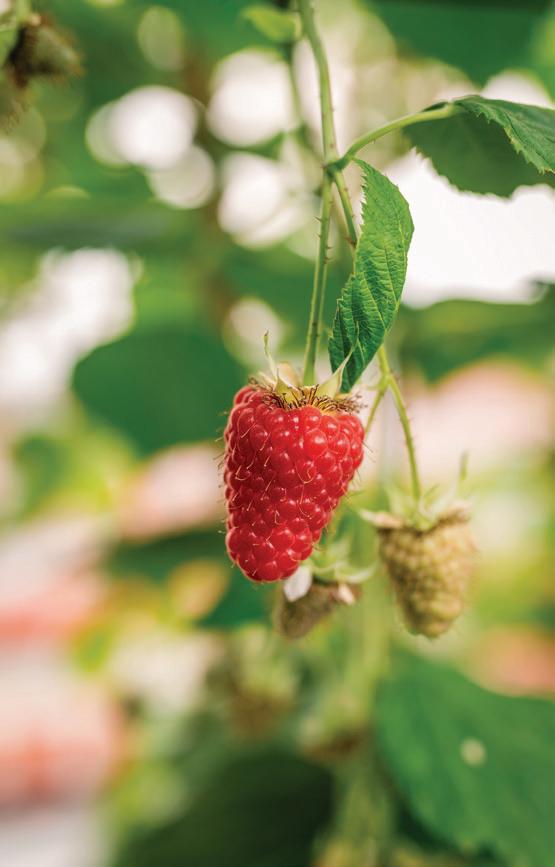

company’s premium offering.
Securing access to the Mountain Blue programme almost ten years ago has yielded strong results in blueberries, with well-established demand and awards for varieties such as BerryWorld Eureka and BerryWorld Eureka Sunrise.
A selection of strawberries, including Sweet Eve and Eves Delight, from the Edward Vinson breeding programme have also been internationally awarded by the same body.
BerryWorld is involved in every stage of the supply chain, focusing on breeding and commercialising varieties which perform for growers, retailers, and consumers alike so that the global berry market can continue to thrive.
As it moves into its fourth decade in the berry industry, the company says it plans to release a number of new variety selections to market, which will continue to drive consumer demand for superior tasting berries. E
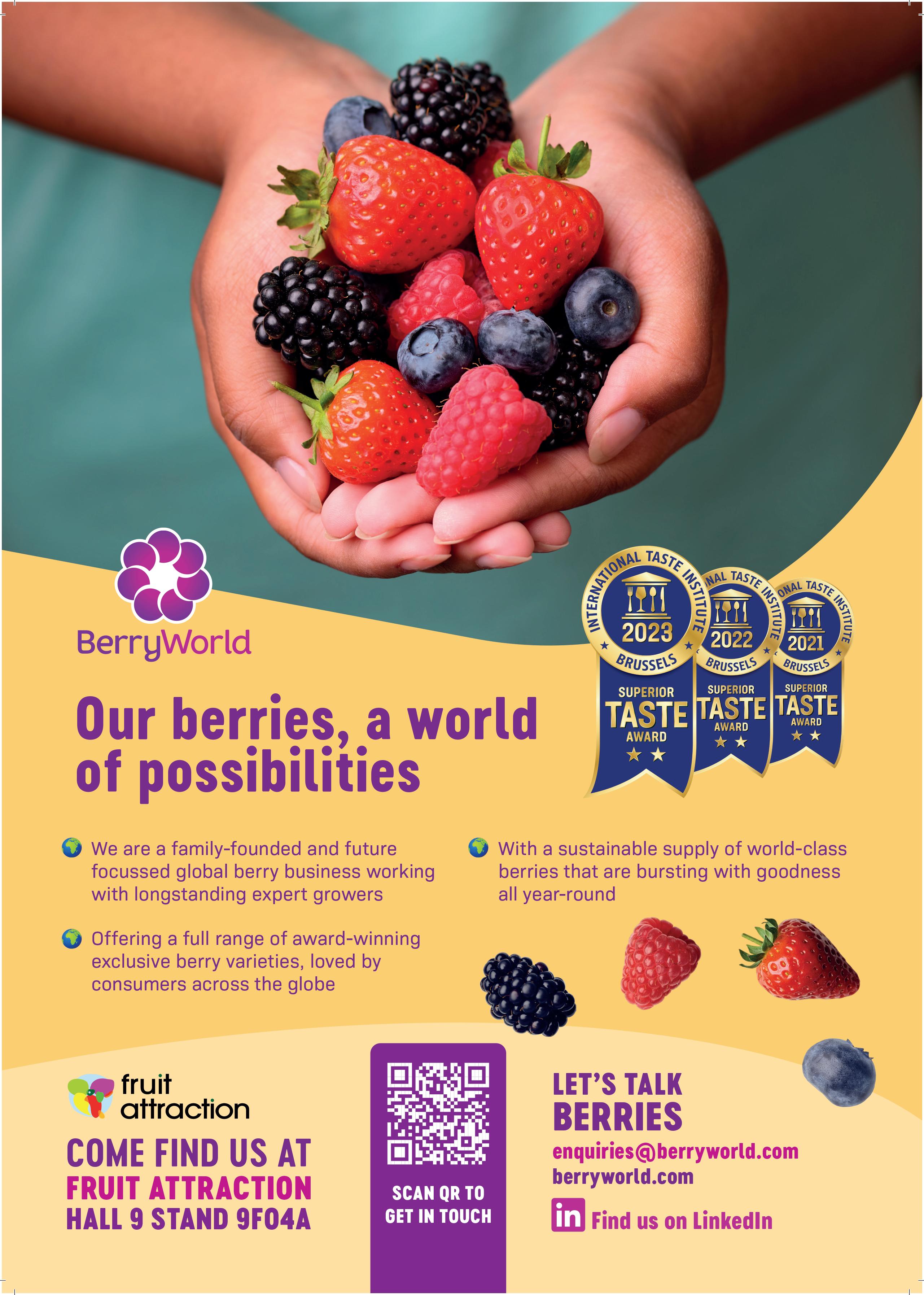
Managed by Molari-owned company G-Berries and developed by Verona-based Lucchini Berries, two new raspberry varieties called EasyStar and EasyRock appear to offer something special.
by Mike Knowles @mikefruitnetSimplicity is key to the apparent success of the Easy Concept, the strategy behind two new raspberry varieties called EasyStar and EasyRock.
Developed in Italy by Alessandro Lucchini, owner of Verona-based Lucchini Berries, the pair are said to offer shelf-life that is good enough to allow them to be harvested every other day, instead of daily. As a result, the workload for growers and pickers is, well, easier.
In a world where labour costs are higher than ever, that simplicity is an important a ribute. And the results, says Lucchini, are plain to see: the varieties can apparently produce up to 40 tonnes per hectare per year, yields he says have not been seen with other varieties.
In addition, the average productivity of its pickers is more than 1kg per hour higher at 5kg per hour, which translates into a 20-25 per cent saving on labour costs during the harvest.
These encouraging results convinced Lucchini to approach growers in other parts of the world to test EasyStar and EasyRock in other climates and growing conditions. As a result, a
collaboration with Molari-owned R&D company G-Berries was launched to manage both varieties globally – firstly in Europe in 2022, then a year later in Europe, Africa, Central America, Middle East and Asia.
Today, G-Berries runs three production clubs in Mexico (MEC),
Morocco (MEP), and India (IEC), while other trials continue elsewhere.
The varieties reportedly adapt well to Mediterranean areas, for example Huelva in Spain, the south of Portugal, parts of Greece, and Sicily and Calabria in Italy.
EasyRock produces firm fruits that are suited to autumn and spring production, but also suits summer production if transplanted in February-March. EasyStar, meanwhile, can produce fruit even in winter, when daylight hours decrease and temperatures cool.
“Normally, under these conditions, other raspberry varieties tend to go into dormancy and finish production,” explains Alessandro Gualandi, variety development manager at G-Berries. “EasyStar does not, it continues to flourish even in these conditions, which makes even late transplants, made during the summer to get good winter production, very interesting.”
EasyStar and EasyRock also detach easily even if temperatures are low, he adds. This is fundamental for growers who want to produce raspberries in winter. E
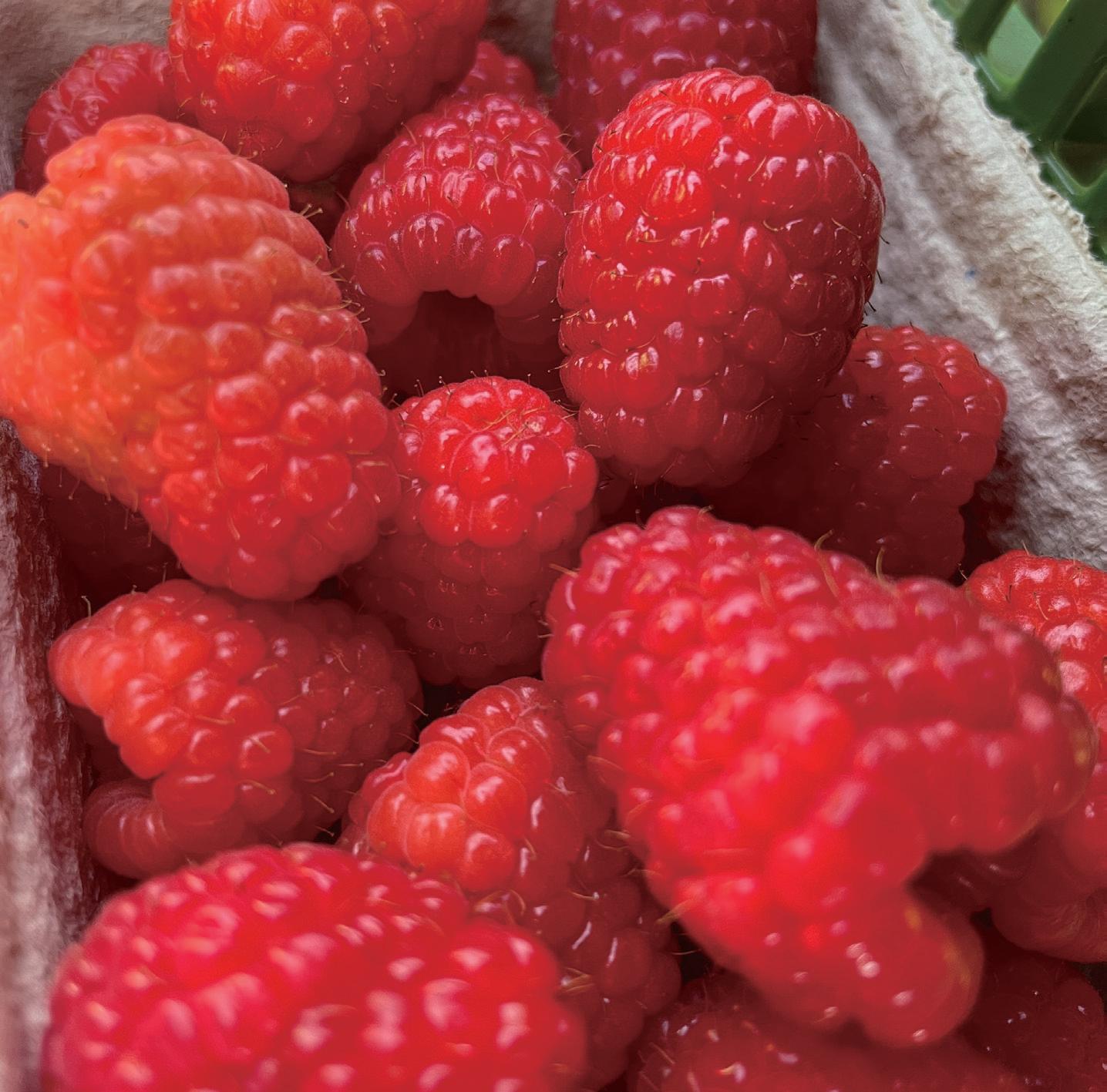
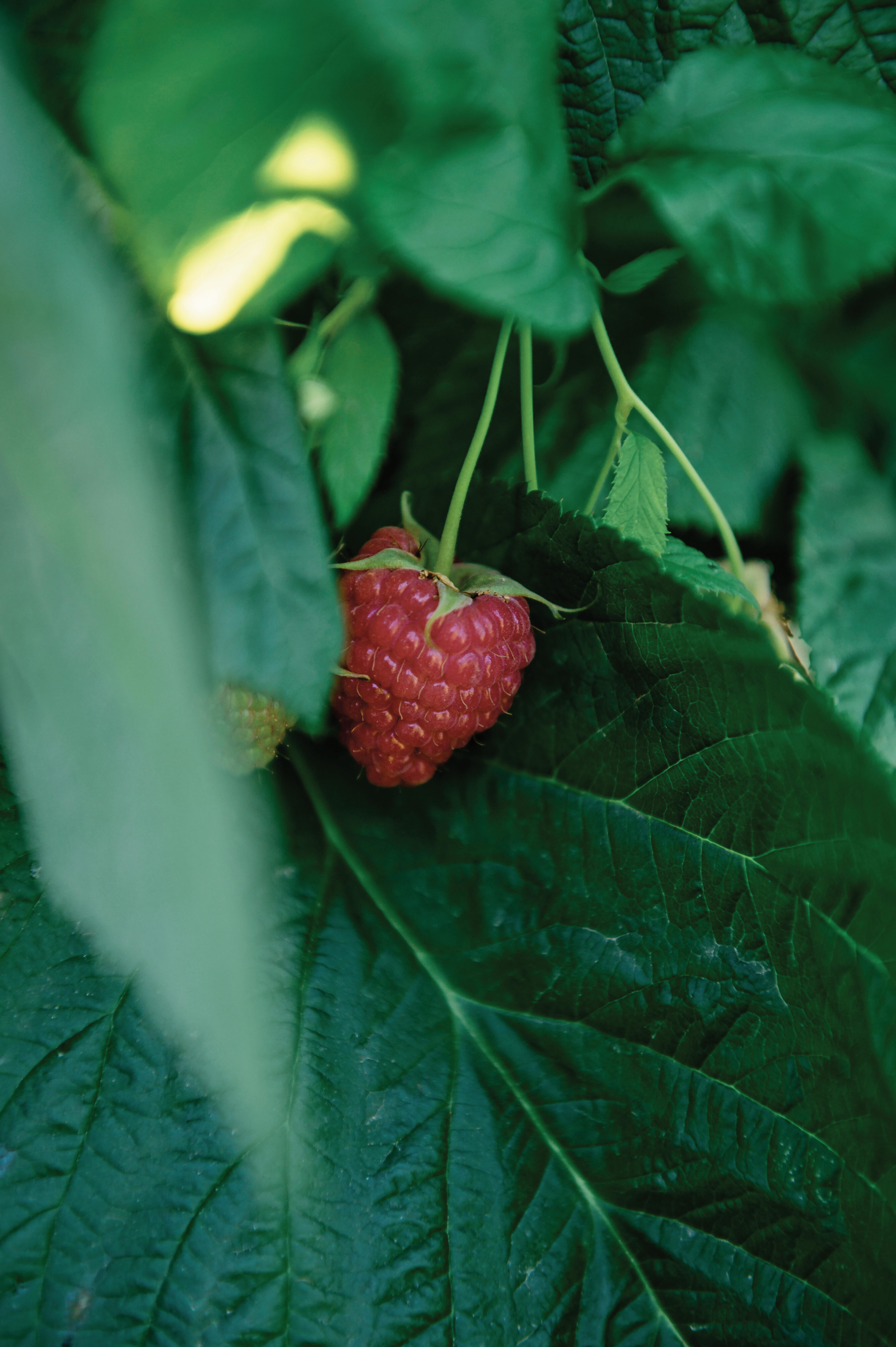
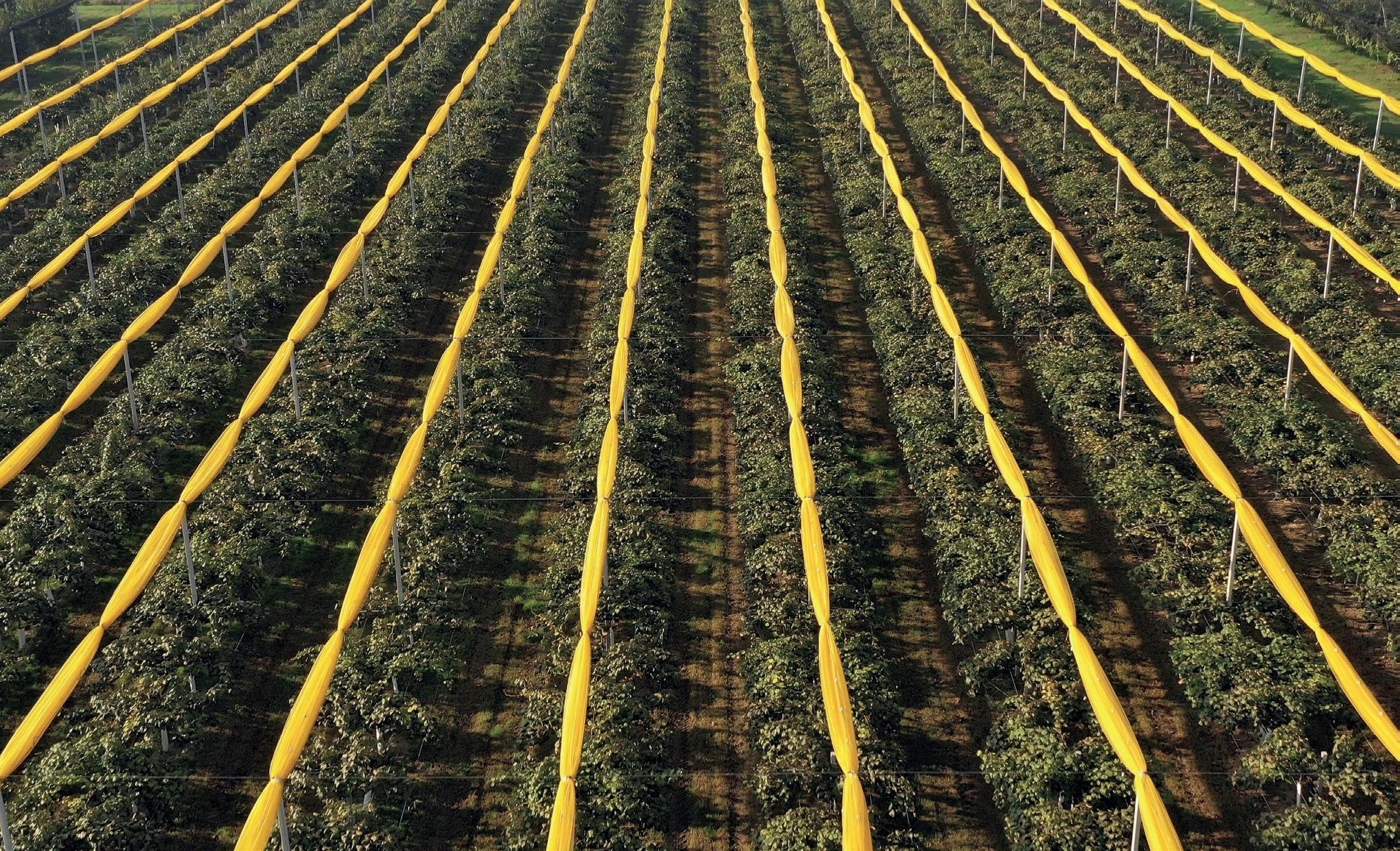
Italy’s largest kiwifruit marketer supports its growers with investment in R&D to ensure its supply base remains sustainable and profitable.
Italian kiwifruit has its roots in Emilia Romagna, where fruit company Alegra is based. This is where kiwifruit cultivation started in Italy in the 1970s, and over the years it has become one of the most suitable areas in the Northern Hemisphere. From here, Alegra’s kiwifruit reach the four corners of the world.
Today, Alegra’s members produce 45,000 tonnes of kiwifruit per year, a figure that places the company among the biggest players in the national and international market.
Naturally, many things have changed since it all began. Nowadays, more that ever, in
an ever-changing scenario and amid increased competition from other countries, it is always vital to be ready to face the constant changes in the market and in consumer tastes. It is also essential to be prepared to confront challenges that climate change brings, and to remain focused on our goal to deliver sustainable development throughout all our activities.
That is why Alegra supports the sound agronomic expertise of our associate growers with a constant commitment in the name of innovation, all along the supply chain from orchard to table. And it is right there in the orchard that innovation
plays a key role to help achieve an increasingly sustainable agriculture.
For example, the ultra-low pressure drip system of microirrigation enables our growers to reduce water usage by onethird and to cut the energy used during irrigation by 70 per cent. Furthermore, we have implemented sensors that detect the needs of each tree and release the exact amount of water only when and where is necessary.
Just to give you an idea, in a 3ha kiwifruit orchard, this translates into a saving of about 5,000 cubic metres of water, the equivalent of two Olympic swimming pools, per year.
ABOVE—Kiwifruit production in the northern Italian region of Emilia Romagna
OPPOSITE TOP—
The Alegra brand is well known in the European kiwifruit business
OPPOSITE BELOW—
New systems have been added to help tackle the challenges of hail and frost
Over the last few years, out-ofseason spring frosts have affected our orchards heavily. As this is becoming a new pattern, we could not just sit and wait for better times. We had to find new active frost protection methods for our kiwifruit production.
So, as well as introducing anti-frost installations over and under the tree foliage, most of our growers have installed antifrost wind machines. These help to create a large mass of relatively warm air, which helps to bring the temperature in the orchard area above the critical level.
Innovation also means research to develop new varieties. Alegra’s production started with green kiwifruit, but over the years the taste of gold kiwifruit has started to win over consumers with its sweetness. More recently, a new red variety with a sweet and exotic taste has been introduced as part of our product range.
The latest addition is a new green kiwifruit variety with a very high Brix value. Part of a club project established four years ago, it offers a perfectly balanced taste with every bite. At the moment, the volumes available do not allow it to be sold globally, but commercial tests suggest a very positive outcome: over 80 per cent of those who have tried this new green kiwifruit were impressed by both its taste and texture and went on to buy it.
Innovation is also crucial in postharvest processes. In its packhouses, Alegra carries out constant research and invests in state-of-the-art technology for its kiwifruit sizing, selection, coldstorage and packaging. This is all to improve the efficiency of the product cycle up to the point of sale, and Alegra recently introduced new ERP software (SAP) so that every department in the company can access and share its data.
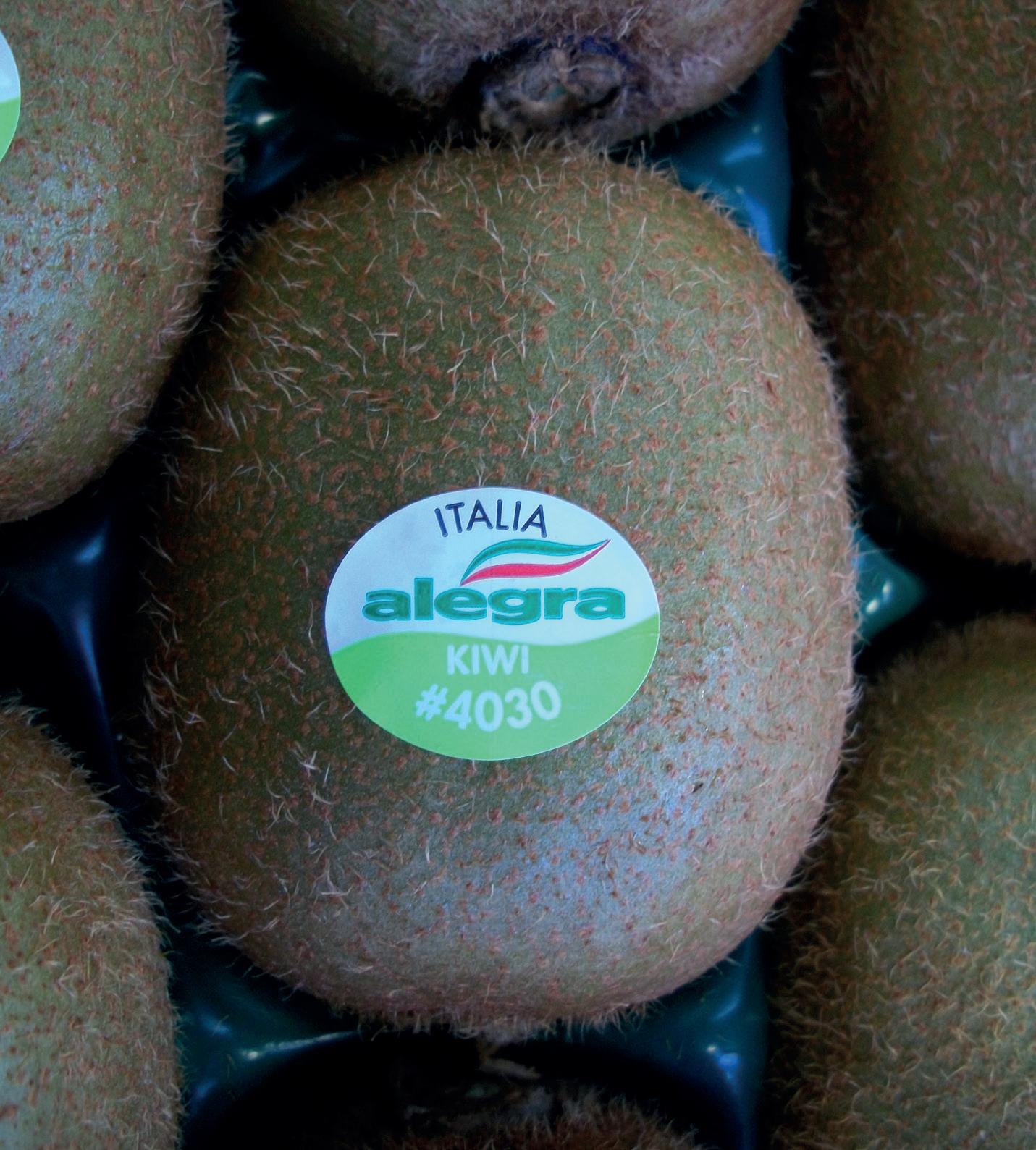
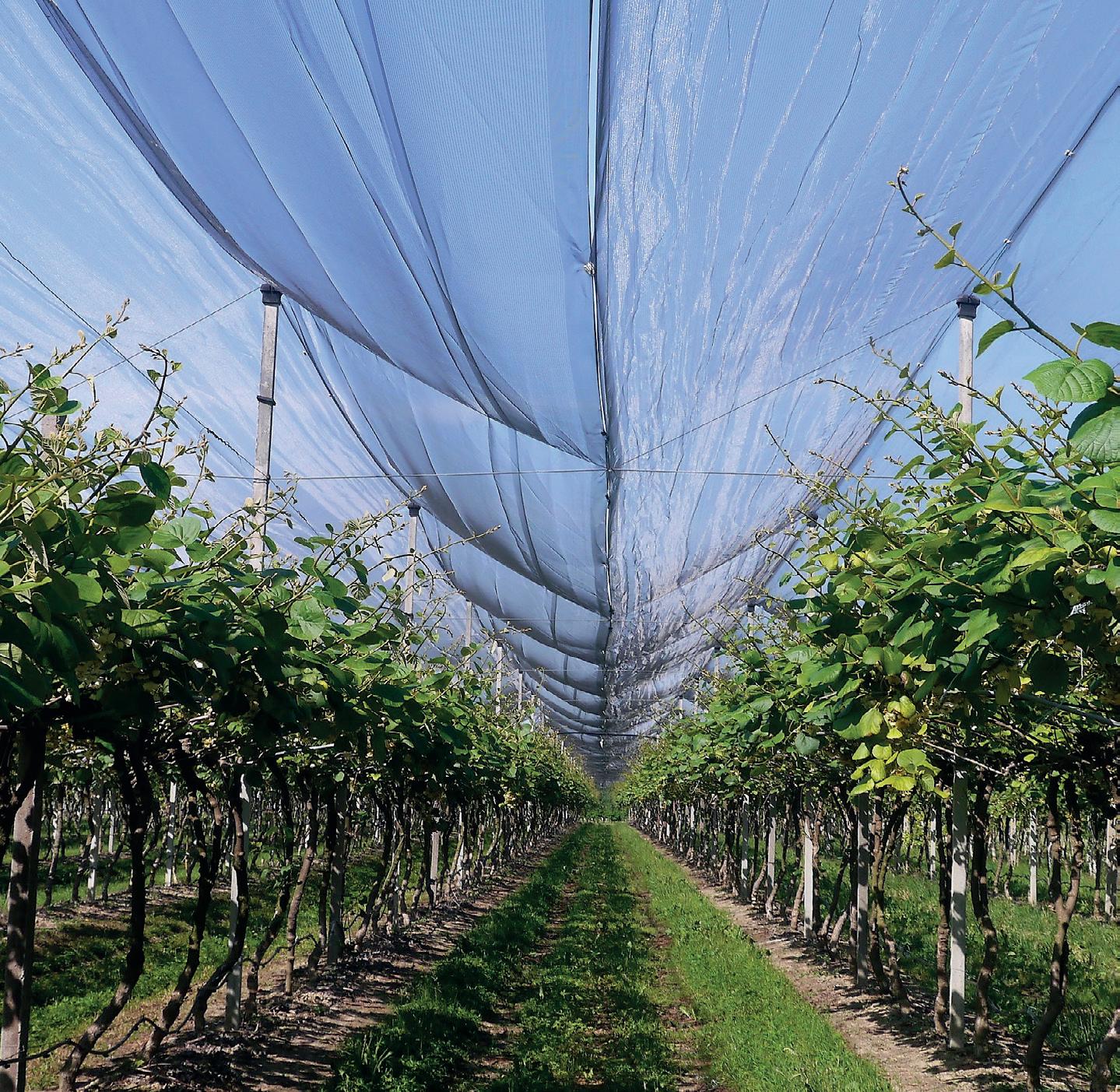
A visit to Fruit Attraction in Madrid represents an important stopping-off point for the Italian exporter as it heads into the autumn-winter season.
by Mike Knowles @mikefruitnetAlegra will be bring its entire sales team to this year’s Fruit Attraction, as it prepares to meet export customers, update them on recent developments, build on new business opportunities, and underline its product range to those who visit its stand.

For the group’s international marketing executive, Rita Biserni, it remains more important than ever to connect with customers outside of Italy. “Over 50 per cent of our turnover is generated by sales in foreign markets,” she reveals, “which is why international events such as Fruit A raction are essential to promote the produce of our associated growers.”
The Madrid exhibition takes place just before the start of the European kiwifruit campaign, which makes it an ideal place for Alegra to plan commercial activities with its customers and to tell new potential clients about the fruit.
As a key player in the international kiwifruit market, the company still sees a lot of room for

growth.
“We will take this opportunity to elaborate on the estimated harvest volumes for our full range of green, gold and red kiwifruit,” Biserni adds. We will also introduce a new green kiwifruit variety to those that still do not know about it. This is the result of a long breeding research programme, and it is characterised by very high Brix levels and perfectly balanced taste.”
Alongside kiwifruit, Alegra will also promote several other products. These include persimmons, which are available from October to January in three different market segments: conventional, organic and premium.
It will also highlight late plum varieties, a key product for the group during the autumn season both in Europe and overseas, as well as Ondine, a new type of flat
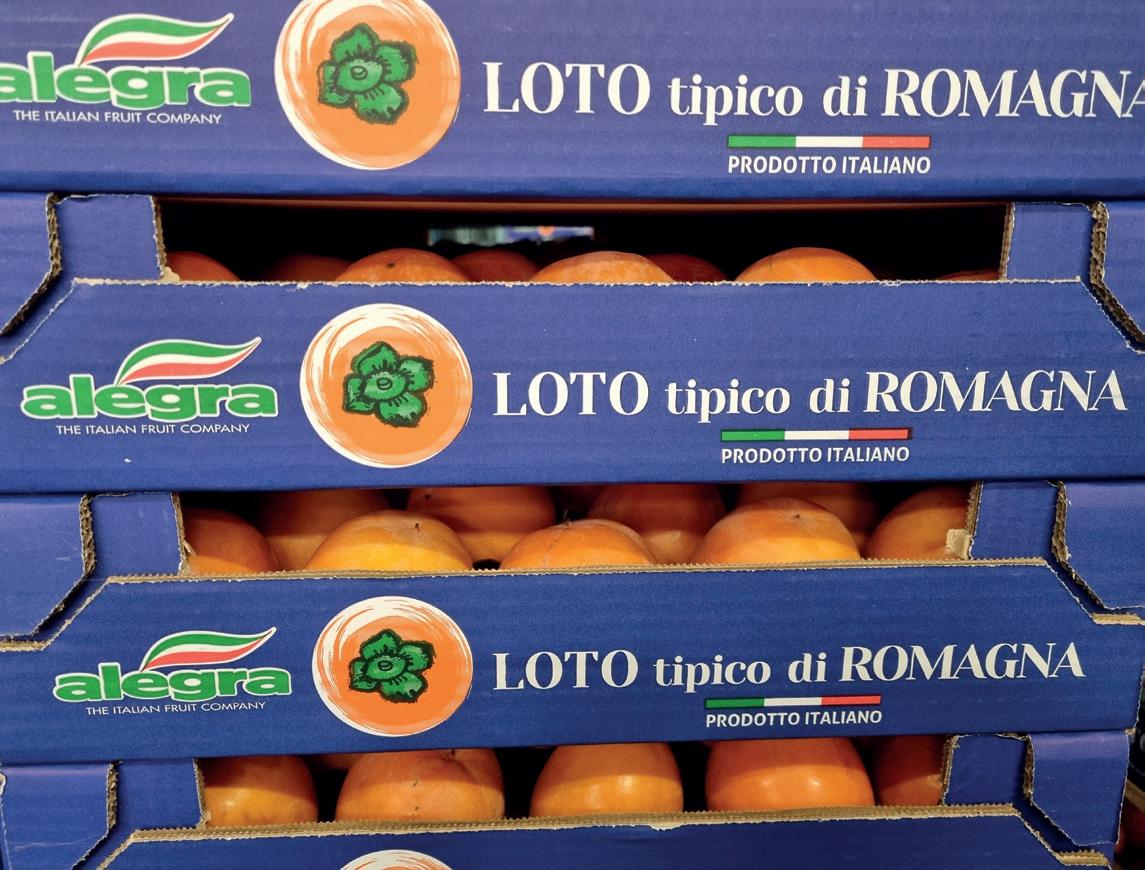
nectarine which has apparently a racted considerable a ention among consumers with its “delicious taste”.
“Although the summer season is over, we will keep the spotlight on Ondine,” says Biserni. “Next year, we will reach full production and, together with the other two Italian members of the Ondine club, we will be able to increase the market penetration in our domestic market as well as in Europe.” E
TOP—Alegra’s team line up for another trade fair appearance
ABOVE—Persimmons are an important product in the group’s portfolio
ABOVE LEFT—Another of Alegra’s flagship products, Angelino plums

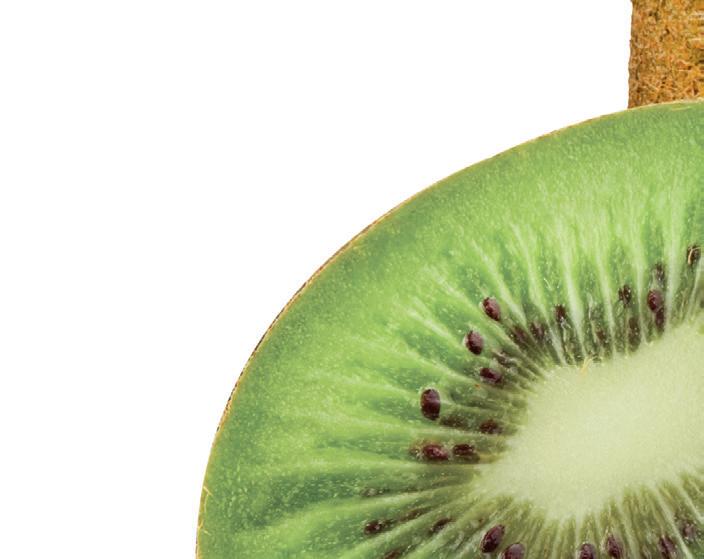


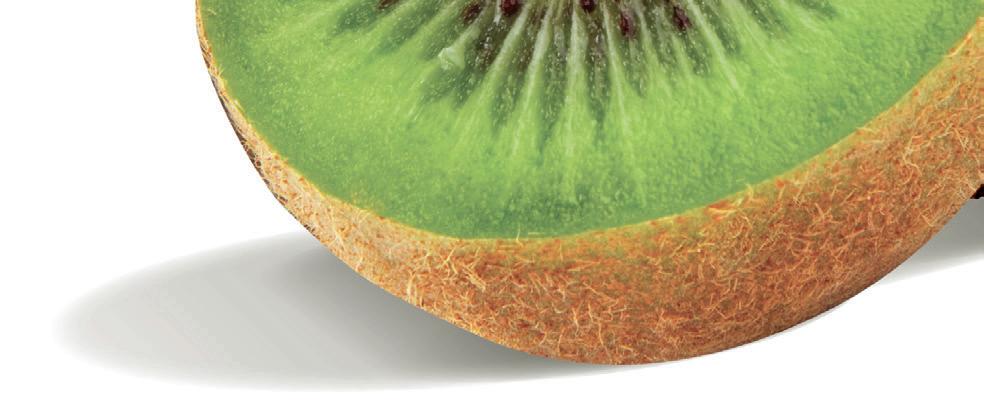






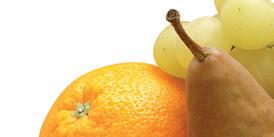

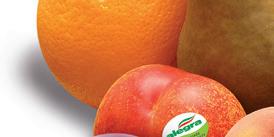
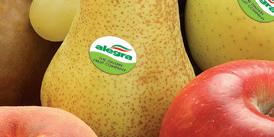
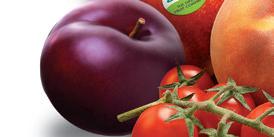
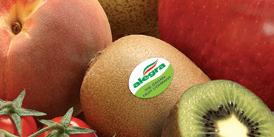

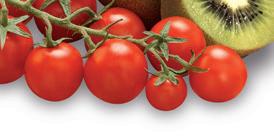

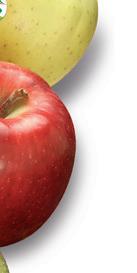

Apple trademark Marlene returns to centre stage on Italian consortium Vog’s stand at Fruit Attraction 2023, as the marketer’s new season of promotional activities in support of its branded varieties gets into full swing.
Among a wide range of apples supplied by the South Tyrolean group during the entire year, the so-called Daughter of the Alps continues to embody the guaranteed origin, healthy properties, and flavour of its five classic varieties – Royal Gala, Golden Delicious, Red Delicious, Fuji and Granny Smith.
And at the Madrid trade show, all of these Marlene apples –including organic versions sold
under the name Marlene Bio – will feature prominently.
“Join us on a culinary journey” is the core message of this year’s communication. It centres on a marketing device called an aroma wheel, which Vog launched in the spring to reinforce its positioning as a cultural ambassador for apples.
The wheel is a visual aid that helps consumers to understand the aromas, consistencies, flavours and potential combinations of each of the Marlene quintet. On the brand’s website, consumers can choose a variety and one of four basic tastes – sweet, tart, bi er, salty – to discover ingredients with which their apple best combines.
Via links and QR codes on promotional materials and digital
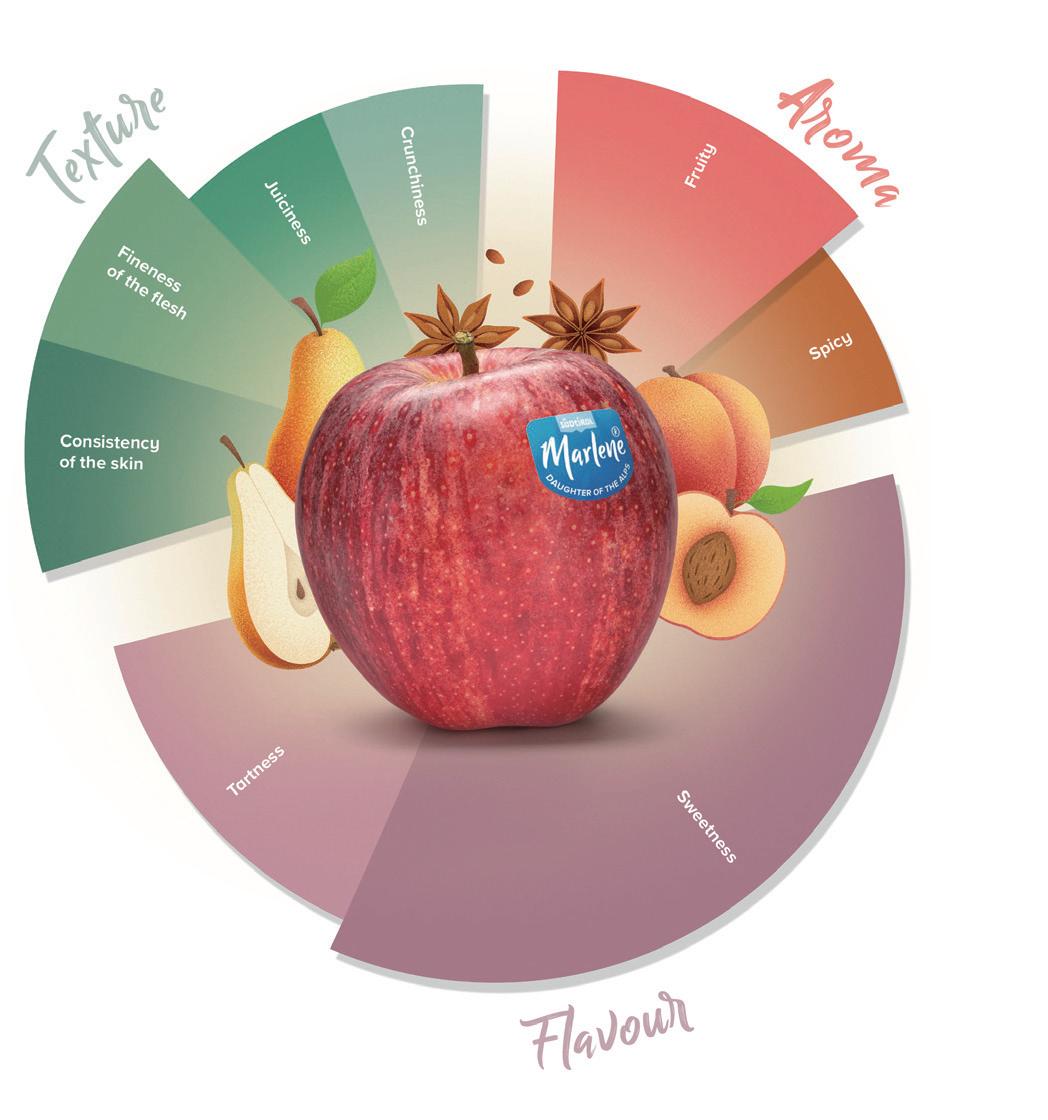
banners, they can also access recipes by top chef Norbert Niederkofler and his colleagues that feature the fruit across different seasons.
To support the Marlene concept and sales, Vog plans a media campaign in its main country markets, with autumn and spring messages on television plus out-of-home, digital and social media channels, as well as in the consumer press.
In-store initiatives will also play an important role and use the aroma wheel to help consumers choose the right apple variety for them. Innovative sampling programmes are also expected to feature.
In the second part of the season, a project linked to the aroma wheel will whisk a lucky group of consumers straight to South Tyrol for a gala dinner. The event’s theme will be flavours and the local area. E
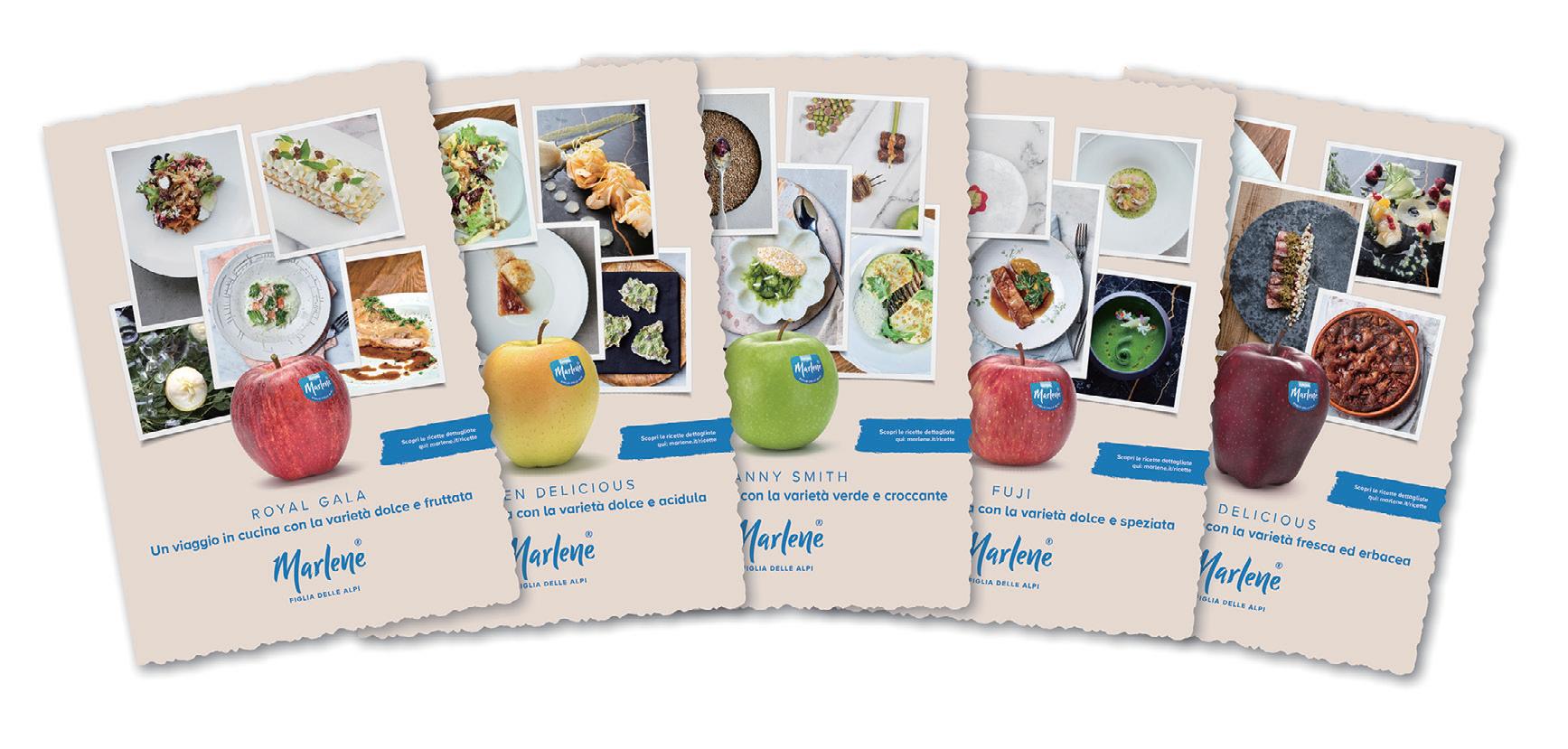
We excite consumers in every season.

 Matured in an alpine-mediterranean climate
Rigourously controlled
Year-round availability
From small family-owned farms
Enticing varieties for all tastes
Special quality thanks to the different seasons
Matured in an alpine-mediterranean climate
Rigourously controlled
Year-round availability
From small family-owned farms
Enticing varieties for all tastes
Special quality thanks to the different seasons
Despite a long list of major challenges, Fruit Modena Group president Adriano Aldrovandi believes the Italian pear industry has what it takes to engineer a return to form in the next few years.
by Carl Collen @carlfruitnetItaly’s pear sector has faced some tricky times in recent years. As well as geopolitical instability in key export markets, dramatic increases in production costs, and severe consumer price inflation, it has also faced some
severe hailstorms and extreme heat that le parts of Italy’s fruit and vegetable production ba ered and bruised in July.
All of which led to a new-season forecast which put the 2023 Italian crop at 187,000 tonnes, the country’s smallest crop in the last decade and less than half the previous three-year average. Ten years ago, Italy
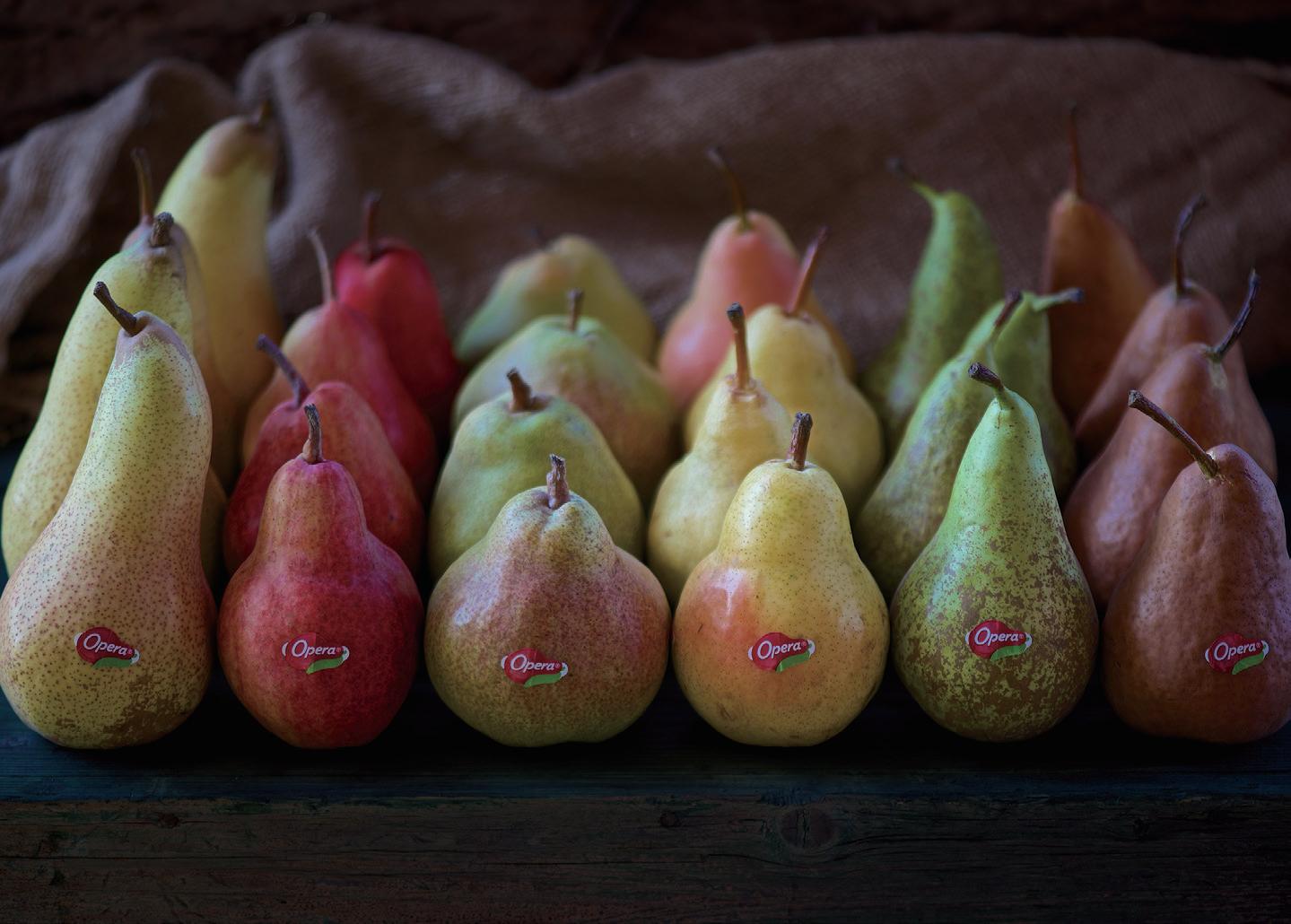
tough phytosanitary problems –most notably a widespread and persistent infestation of brown marmorated stink bug.
As if that were not enough, growers have had to contend with increasingly extreme and frequent climatic events, including the devastating floods that hit Emilia Romagna in May, as well as the
produced more than 730,000 tonnes of pears, a figure which made it by far the largest producer in Europe.
“This is certainly a critical moment for Italian periculture, but the only option is to hope that it provokes a response to adversity and gives us the chance to return to producing adequately,” reflects Adriano Aldrovandi.
As well as being president of leading supplier Fruit Modena Group, he also heads up no less than three of Italy’s key pear institutions: marketing consortium
Opera, regional promotional entity PGI Pera, and the recently established AOP (association of producer organisations), UNAPera. As such, he appreciates the gravity of the current situation.
“It is a moment of reflection to find new energy to help our fruit growers identify solutions, to transform existing and new orchards, and to make them more resistant to the extreme environmental conditions that are increasingly frequent in Italy and Europe.”
In such a difficult situation, collaboration appears a hugely sensible strategy. That sense of cohesion has been helped by the 2015 creation of Opera, which serves as both a marketing club and a brand that is now recognised internationally. As a result, in promotional terms, many more of Italy’s pear producers now sing from the same hymn sheet.
“From there, interest in the sector has never waned,” Aldrovandi insists. “On the contrary, from this positive experience, UNAPera was born in May 2021, of which Opera is obviously also part.”
UNAPera is Europe’s largest AOP and currently represents 60 per cent of pears sold on the Italian market – a figure which would have been 70 per cent without the Emilia-Romagna floods.
“It’s a group based on very specific aims,” explains Aldrovandi. “Increase the quality of pear supply, restore profitability to its producer members, regain consumption and consumers, and support the region’s flagship product, namely PGI EmiliaRomagna pears.” E

A larger number of CSO Italy members will be present at Fruit Attraction 2023, as part of a shared exhibition stand designed to showcase the country’s produce industry potential.
by Mike Knowles @mikefruitnet
Marketing and research agency CSO Italy will coordinate a delegation of 14 Italian exhibitors at this year’s Fruit Attraction, with a shared stand of almost 320m 2 representing a 25 per cent increase on the previous edition.
Among various innovations on display will be Jingold’s first yellow-fleshed kiwifruit grown in the Southern Hemisphere, as well as Granfrutta Zani’s Metis plum, a new variety which is in fact an apricot-plum cross.
Apofruit, meanwhile, will encourage visitors to investigate its new sweet-tasting, bicloured apple Candine.
Companies from other parts of the fresh produce business will also form part of the collective display.
“The CSO Italy collective will be larger this year, not just with the presence of producer members but thanks to supply chain members like international shipping company Tramaco,” says Luca Mari, the organisation’s marketing manager.
The following CSO members will exhibit at Fruit Attraction: Opera, Alegra, Jingold, Naturitalia, Granfrutta Zani, Kingfruit, Fratelli Clementi, Almaverde Bio, Apofruit, CIV, Mazzoni Group, Orogel Fresco, Tramaco, and Origine Group. E
As the Northern Hemisphere kiwifruit season gets underway, Italian marketer Jingold is ready to press ahead with the Marvel-branded promotional activities it debuted 12 months ago.
For the past year, Marvel characters including Iron Man, Thor and Spiderman have featured prominently on packs of the company’s smaller sized European kiwifruit, thanks to an exclusive licensing agreement with Disney.
“This time, we will give ocnsumers a chance to enter a competition and win some fantastic prizes as part of the Minikiwi Super Heroes project,” says marketing manager Federico Milanese. “From this year, it will also be possible to scan the packs and play an augmented reality game.”
And with compostable labels, plus packaging that is 100 per cent sustainable, Jingold itself is doing its level best to save the planet.
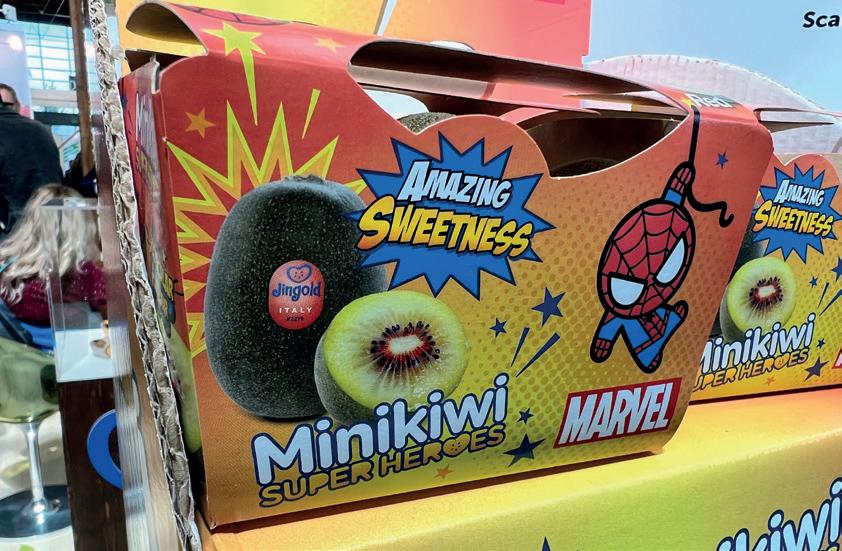




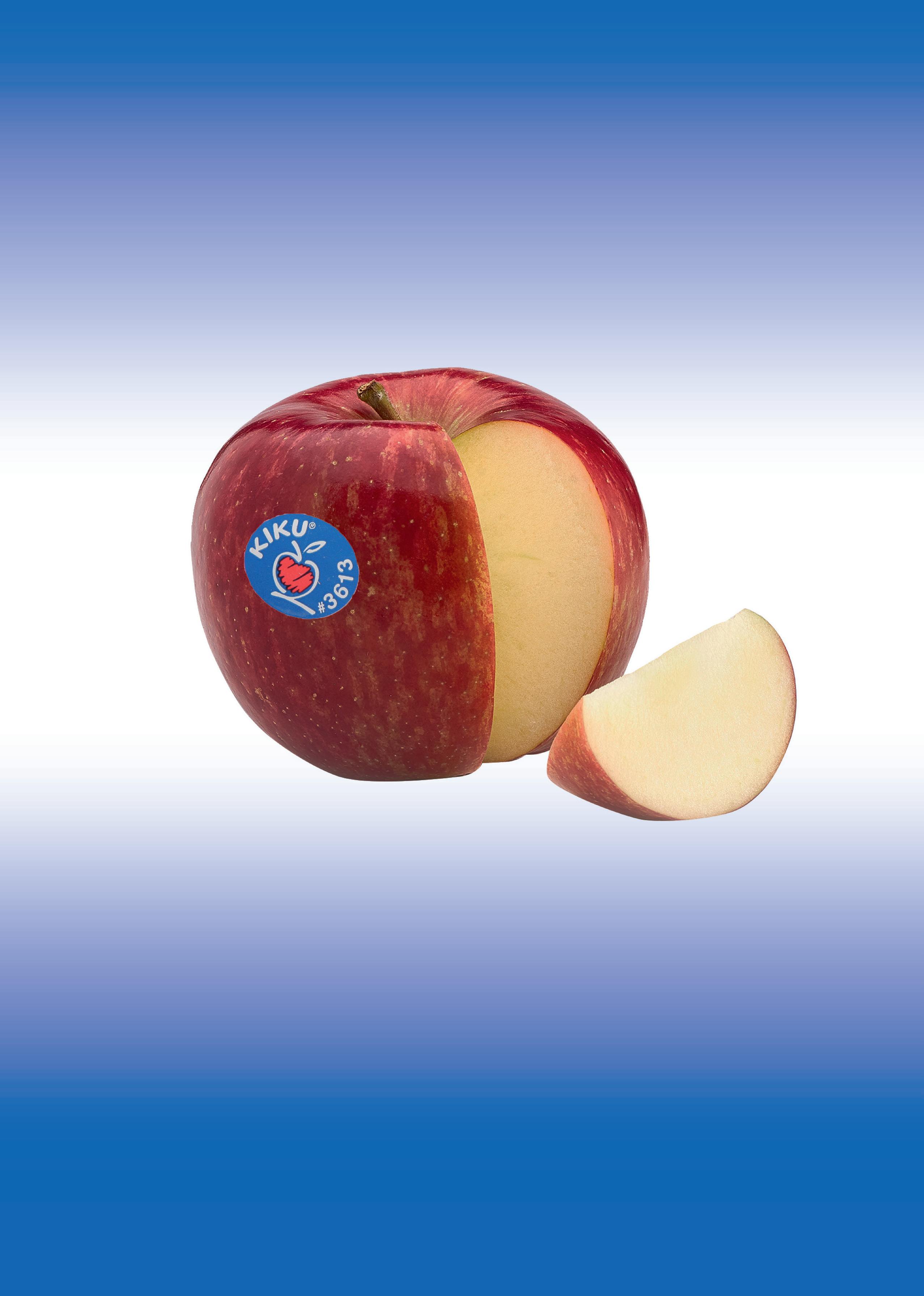

As a key supplier of seedless table grapes to premium markets around the world, the Italian company says it must keep a close eye on all areas of its various supply chains.
by Mike Knowles @mikefruitnet
Italian supplier Peviani has started its seedless table grape campaign with a renewed focus on sustainability along its whole supply chain. In practice, that means attention to detail in all areas of its business, from logistics arrangements to varietal selection.
“Beyond making our packaging more sustainable, this year we have optimised logistic and management costs,” explains Saverio Fuccillo, the group’s export manager. “In addition, our core strategy is to select only the best grape varieties, so that they are also sustainable in terms of output.”
To achieve greater sustainability in the field, Peviani has introduced specific techniques and tools that have enabled its growers to reduce fertiliser use
and to save water. According to Fuccillo, these new practices have helped to prevent diseases and to reduce waste.
“As well as BRC, IFS and GlobalGAP, we have received a Smeta certificate and another important Italian certification, which prove our transparency along the whole supply chain,” he notes.
Today, seedless grapes are very much a flagship category for Peviani. “We understood the potential of this product around 15 years ago and started investing by bringing new technologies to Italy, where we established a new market,” Fuccillo recalls. “In the last few years, we have focused on late crisp varieties in order to make our commercial calendar
Italian exotic fruit specialist McGarlet has stopped using tray inserts made from polypropylene for its loose produce, and switched to alternatives made entirely from recyclable paper. Protective nets made from the same type of plastic have also been replaced with cotton, a natural material that can be thrown away with paper (pictured below).
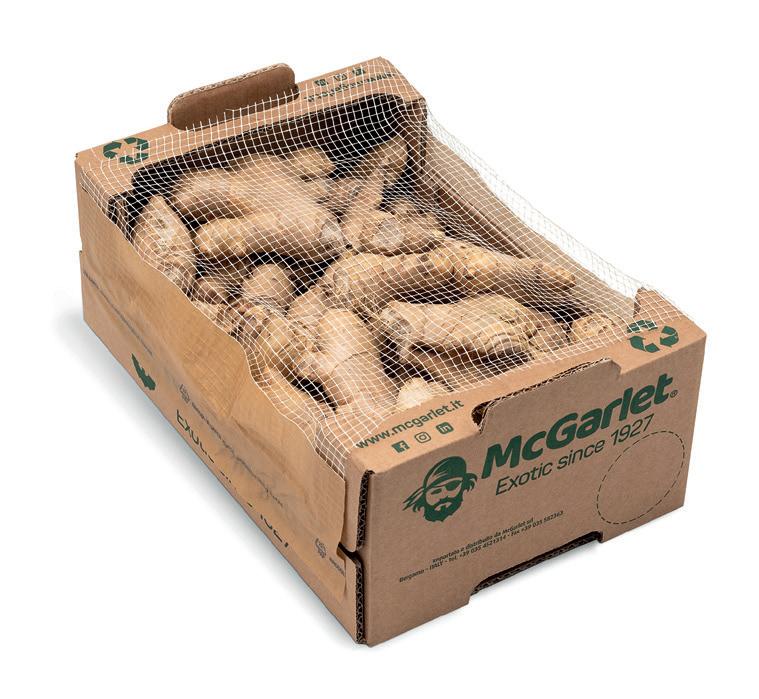
In the meantime, the height of cartons used to market its Ready To Eat range has been lowered to eliminate empty spaces, while the labels attached to the fruits themselves have been made smaller. These subtle changes have allowed the group and reduce the volume of cardboard and paper used. Elsewhere, the film used to cover packaged products comes from fully compostable domestic supply, while its gourmet line now features paper trays and compostable lids.
longer, now lasting at least until the middle of December. This helps us face up to competition with Spanish suppliers on European markets.”
As a result, says Fuccillo, Peviani remains a reliable supplier of seedless grapes all over Europe, a market which he says is constantly growing. And more recently, that growth has extended to Asian markets, where discerning consumers want precisely the kind of quality that Peviani has to offer. E
Avocados, berries and herbs from a range of countries are among the products that will be on show at Fruit Attraction.by Carl Collen
@carlfruitnet
New procurement opportunities offered by producers from developing and emerging countries will be presented by the Import Promotion Desk (IPD) at Fruit Attraction.
Avocado producers from Peru, Ecuador, Kenya and Morocco will feature on the IPD stand, and the initiative will also arrange contact with suppliers of berries from Egypt, Morocco and Jordan. In total, the IPD stand will provide a platform for around 30 companies.
”At the IPD stand, interested buyers will get to know producers of Hass avocados from four different countries,” says the organisation. ”Peru is one of the largest and best-known avocado producers in the world. Ecuador is less established on the avocado market, but also offers excellent quality.
”The African producers from Kenya and Morocco are expanding their availability of avocados on the European market. Kenyan producers, for example, can deliver from spring to autumn. Compared to Kenya, Morocco is not yet a well-known avocado producer. However, the IPD companies from Morocco can convince with their product quality and their proximity to Europe.”
The IPD spokesperson added that it had also responded to the popularity of fresh berries and expanded its range accordingly.
”Moroccan producers will bring strawberries, blueberries and raspberries,” it revealed. ”The short distances to Europe are a strong argument in favour of Morocco, in addition to the high quality. The berry harvest in Morocco starts a few weeks earlier than in Europe as well. Because of this, Moroccan berries optimally complement the European offer.” E







Despite a challenging 12 months, Hillfresh has still seen much change and category growth, according to Hans van den Heuvel.
by Carl Collen @carlfruitnetDutch fresh fruit and vegetable importer Hillfresh has taken steps forward both in-house and in the field this year, enhancing its operations and its product offering.
“We have a very challenging year behind us as we implemented our new IT system Business Central last year,” explains Hans van Den Heuvel, managing director at Hillfresh. “It is a big investment to be ready for the future and of course such an implementation always comes with the necessary extra workload to get everything done properly and as planned.”
As if that were not enough, a day before Christmas the group moved to a new, state-of-the-art office on Pesetastraat in Barendrecht. “On the site of our old office, the Barendrecht municipality expects to build 4,000 houses. It is a great pleasure for all employees to work from there now every day,” Van den Heuvel adds.
“We look forward to building more programmed sales in the UK, Scandinavia and Southern Europe for the coming season”
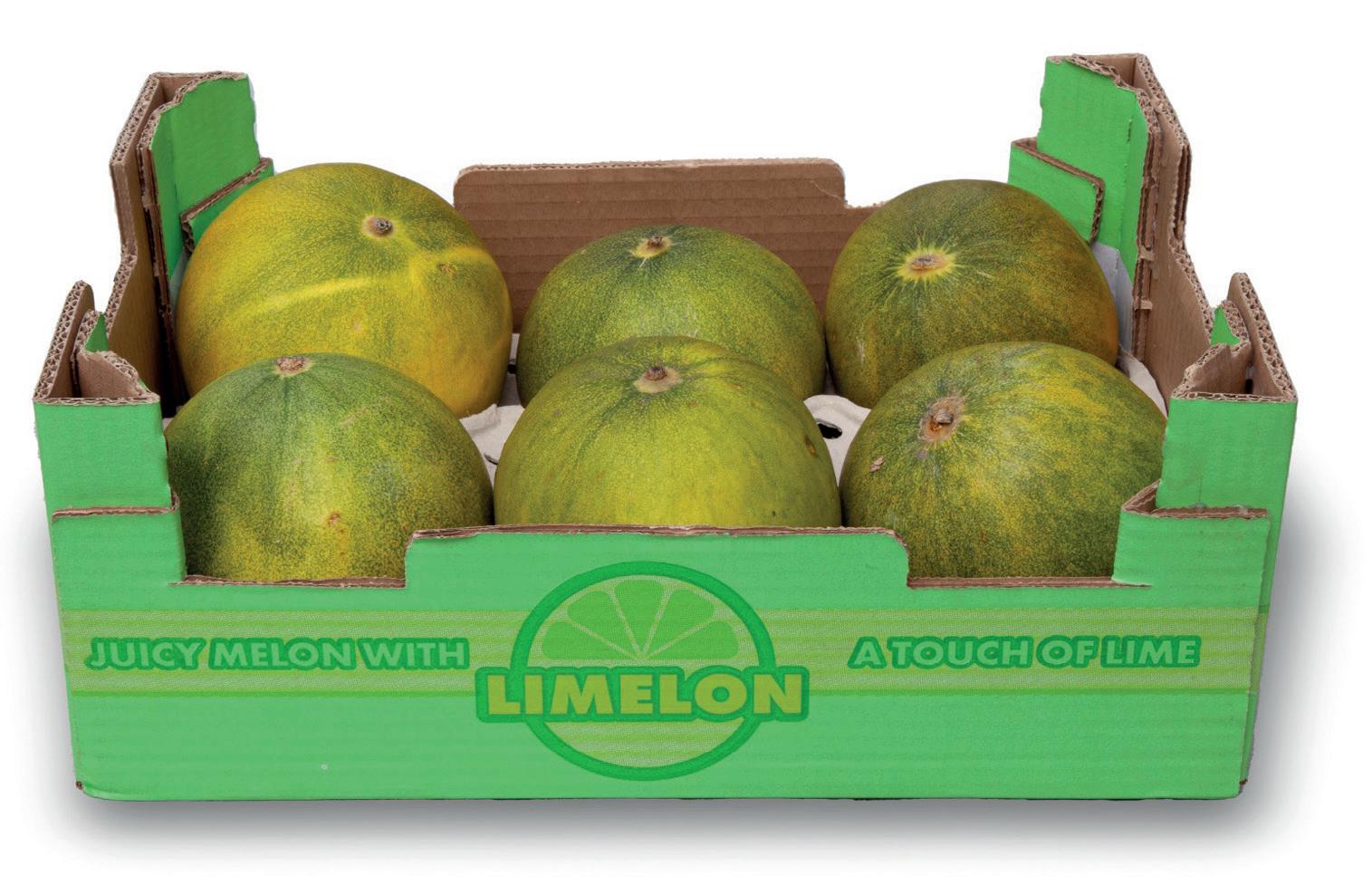
Hillfresh has spent a great deal of effort this year to expand its retail and customer service team, and Van den Heuvel says the group will soon further strengthen its retail sales in continental Europe. In terms of products, its focus remains on grapes, citrus and melons, which account for 75 per cent of
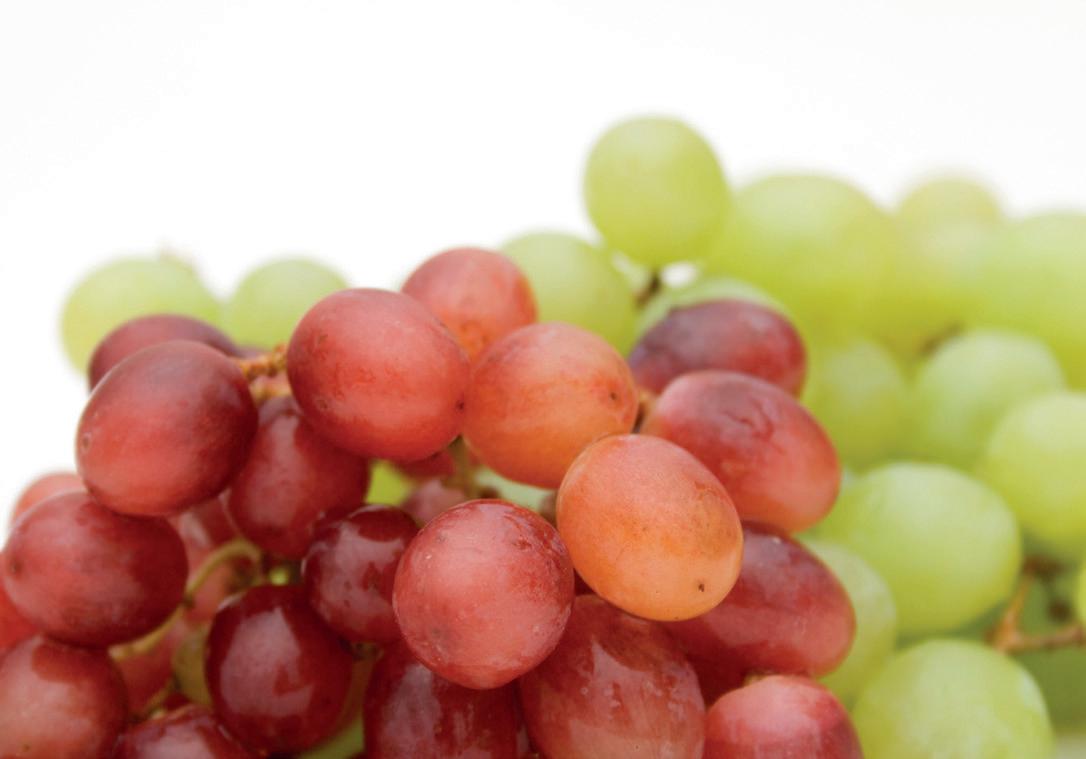
the business, while the exotics category is “growing rapidly”. There is also upwards movement at Hillfresh’s exclusive cooperation in Namibia with Solar Grapes, where some 800,000 cartons are planned for this season. This is forecast to rise to a million boxes in the next two years.
Elsewhere, Hillfresh continues to champion Limelon, which Van den Heuvel refers to as the “shining star” of the melon category. “With our refreshing and surprising exclusive Limelon, for the first time we used four different video animations on social media in Germany to support sales,” he explains. “We look forward to building more programmed sales in the UK, Scandinavia and Southern Europe for the coming season. It is great to hear from our customers that the Limelon is a great addition
to the melon category. People just love it.”
The company plans to start with Limelon production in Dakhla, Morocco, to be four weeks ahead of Spain on the market and ensure a longer presence. It is also testing in Brazil and South Africa, to develop the variety in local markets and for export to Europe. Next year, it may potentially develop production and sales in the US and Canada too.
“Of course, presenting ourselves in Madrid with Limelon, together with our long-time partners Gregal in the Murcia pavilion, gives us another opportunity to plan meetings to grow the business,” van den Heuvel adds. E
New CressSingle packaging has “sustainability at its core”, according to the Dutch leafy ingredients specialist.
by Carl Collen @carlfruitnetKoppert Cress has launched a new greener packaging concept, which it says utilises more environmentally friendly material and also offers a “fresh, new look.”
According to the group, the transition from plastic to its new CressSingle cardboard packaging makes recycling “much easier” and reduces the CO2-emissions of the packaging by 82.8 per cent. “At Koppert Cress, we have always believed in the power of sustainability,”
the group states. “As pioneers in the world of greenhouse horticulture, it is our responsibility to make environmentally friendly choices that reduce our impact on the planet. The introduction of our renewed CressSingle packaging significantly contributes to this effort.”
The design of the new packaging is described as modern and contemporary, and is designed to emphasise the company’s commitment to fresh, high-quality products. Each individual cress line has been given its own distinctive pack colour and a ractive design, which references its taste and flavour friends, and provides inspiration for the user. “At Koppert Cress, we are determined to continue our efforts and constantly find new solutions to make our culinary world more sustainable.”
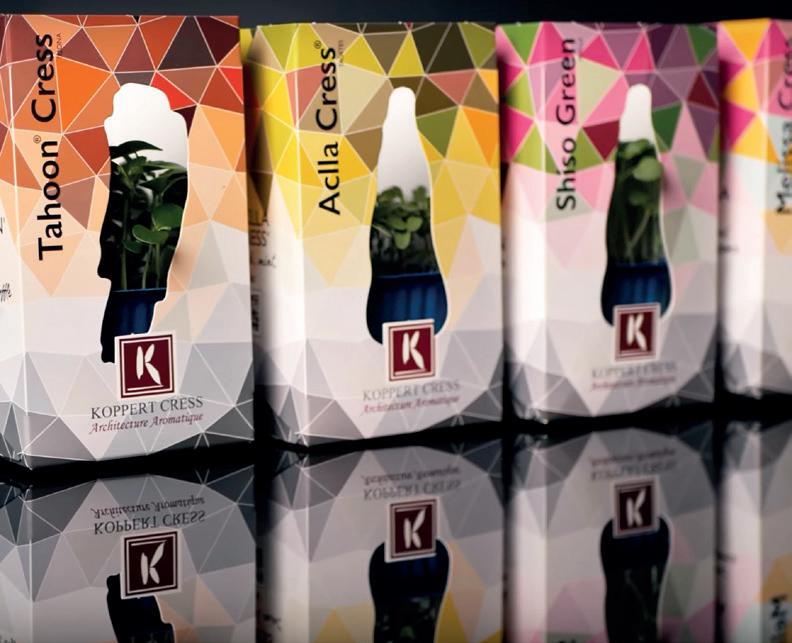
The revamped CressSingle packaging was recently made available via Koppert’s wholesale partners, starting from the second week of August. “We invite everyone to discover the new packaging,” the group adds. E
ABOVE—CressSingle packaging across a range of products
Photo: Koppert Cress YouTube
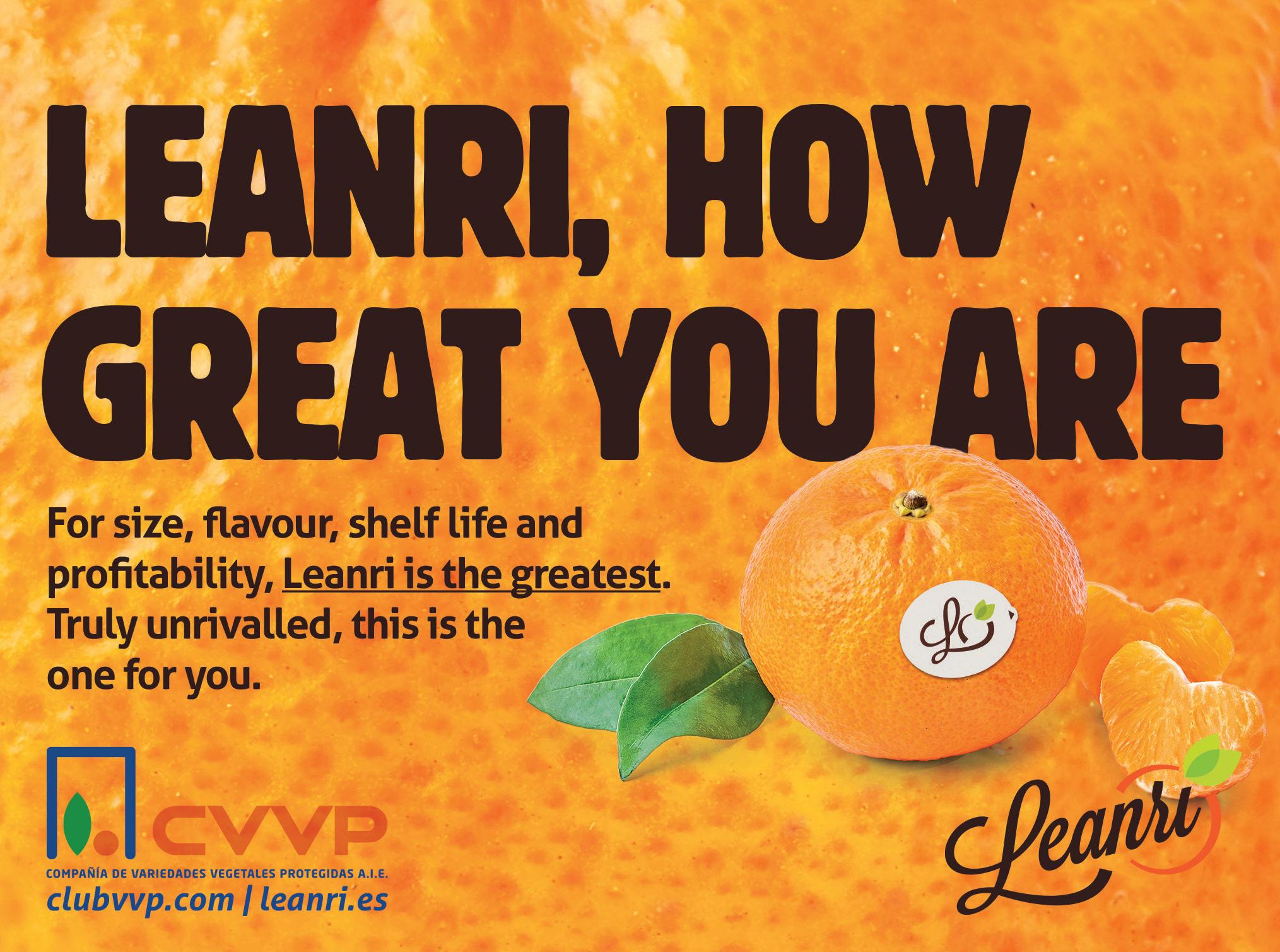

Group says its Retrofit option could decrease energy consumption in ripening rooms by 70 per cent, while it is also ready to introduce Ripe Pilot to customers.
by Carl Collen@carlfruitnet
Ripening room specialist Interko has said it is ready to introduce its Ripe Pilot control system to customers worldwide. Ripe Pilot is equipped with a fail-safe mode, a sensor-based programme that ”helps operators go one step further in monitoring, automating, and tracing their ripening process”.
Interko is also championing Retrofit, which consists of fans that are able to be monitored and controlled in a way that can reduce energy consumption in ripening rooms.
“We have carried out tests in a facility in Germany,” explained Chris Maat, managing director at Interko, “and both the customer and ourselves were impressed with the results. By using Retrofit, we were able to generate the same differential pressure, resulting in
a 70 per cent reduction in energy consumption. Electricity prices remain very high, so RoI in this case is very quick.”
LEFT—Interko’s Axesso ripening rooms
BELOW—The Optimo ripening room option
facility is conducted before we can make the necessary upgrade recommendations.”
He outlined that while Interko would include Ripe Pilot in all new installations worldwide, the Retrofit option would only be made available to customers within Europe.
In recent years, Interko has been focusing on raising efficiency and reducing the use of raw materials, in order to cut costs for its customers. The Dutch company recently introduced Reverso 2.0 fans, which it has said reduces operational costs by 20 per cent for ripeners.
Maat noted that Interko could install ripening rooms with all the latest innovative technologies for retailers, wholesalers, distributors and importers in Asia and worldwide.
The group’s ripening room line-up consists of four state-ofthe-art ripening rooms, namely Axesso, Ultimo, Optimo and Mobilo. Between these four rooms, customers can ripen bananas, avocados, tomatoes, pears, mangoes, papayas, apricots, peaches and kiwifruit. E

Spanish report finds that wood is once again the material with the lowest Punto Verde rate of €7 per tonne.
by Carl Collen @carlfruitnetEcoembes, the company responsible for the integrated waste management and recycling system covering light household packaging in Spain, has published its 2024 Punto Verde (green point) recycling centre rates for waste management. The report found that wood was once again the material with the lowest rate, at a cost of €7 per tonne.
This was well below other materials such as rigid plastic containers, which will be paid at €776 per tonne if disposable and €721 if reusable. Paper and cardboard packaging will be paid at €190 per tonne if disposable and €135 if reusable, Ecoembes noted.
“The rate obtained is further recognition for the low environmental impact of the production of wooden packaging,”
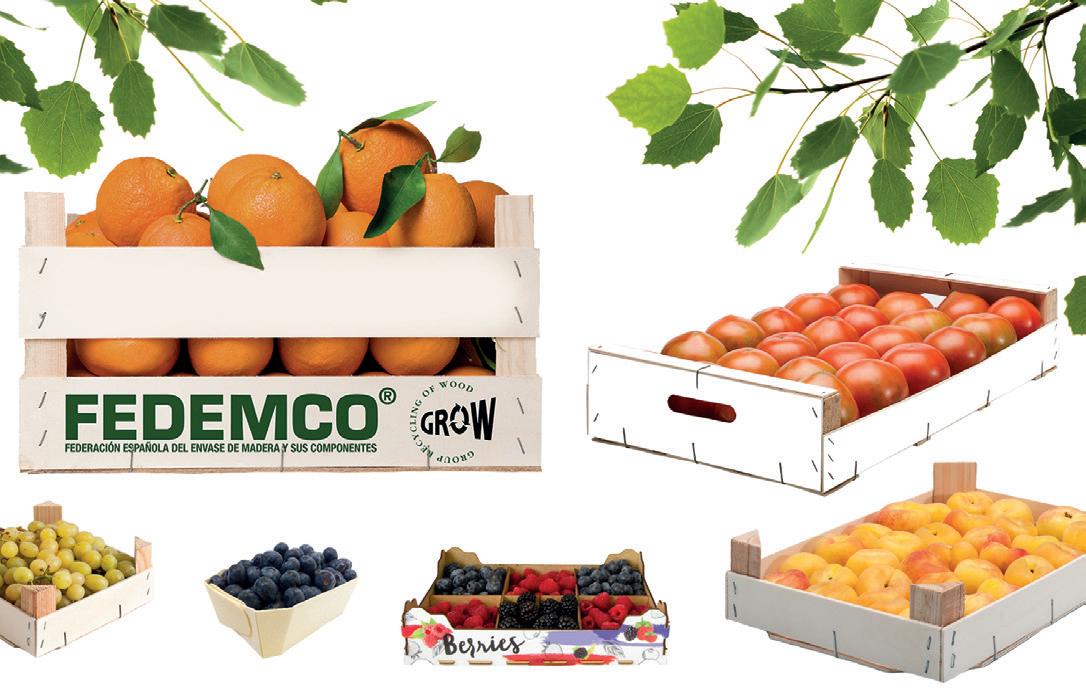
said Enrique Soler, president of Fedemco. “Packaging companies all over the world choosing wood whose products are sold in the Spanish market will benefit from this low price. In the end, it’s an additional incentive for companies to choose packaging that already stands out due to its unique properties and sustainability.”
In addition, Ecoembes found wooden packaging was the material with the highest improvement in collection and management. In 2022, the recycling of this material increased by 6.8 per cent to total more than 9,000 tonnes collected. E

Stefano Iorini, director of Dammam-based Global Star Group, talks about the main challenges that Saudi fresh produce companies face, as well as new potential to grow sales in the Middle East market.
by Tom Joyce @tomfruitnetHow is business at the moment, Stefano?
Stefano Iorini: Our business is in an exceptionally dynamic phase. Since mid-2022, we’ve experienced robust growth, pivoting from an exclusive relationship with a supplier who had limited focus on Middle Eastern markets to now partnering with over 35 dedicated growers from around the globe. These growers recognise the immense potential of the Middle East and are keen to establish a consistent presence here, leveraging our expansive network at Global Star Group.
A characteristic of our region is its market-driven importers. Many operate based on market trends, halting orders when sales plateau or making aggressive, frantic purchases when market prospects appear promising. Contrarily, at Global Star, we strive for a more balanced approach, emphasising the establishment of regular programmes for our partnered growers. Those aligned with our vision recognise the value we bring. They understand that our teams work diligently, ensuring their produce receives the special attention and value it deserves across our diverse channels, regardless of market fluctuations.
While we’re encouraged by this growth, we’re not without our
challenges. The fruit industry is inherently unpredictable with its market fluctuations, and achieving sourcing consistency amidst these variables remains a concern. Every year presents a new narrative. On one hand, growers continually seek the most favourable markets for their products; on the other, we at Global Star Group constantly hunt for quality and consistency to satisfy our customer base. Yet, despite these seemingly differing objectives, we firmly believe that with trust, transparency and a long-term vision, structured collaborations can be fostered and nurtured, ensuring mutual growth and success.
The introduction of our Delizia brand has significantly aided our growth, providing a reliable and recognised face in the market, symbolising the quality and trust that our partners and customers have come to expect from us.
What’s the story behind Delizia?
SI: Delizia is our latest brand initiative designed to revolutionise the fruit industry in the Middle East and beyond. Delizia is the culmination of decades of dedication and expertise in fresh fruit distribution. As we’ve evolved, we’ve recognised the unique tastes and demands of our consumers across different segments and geographies.
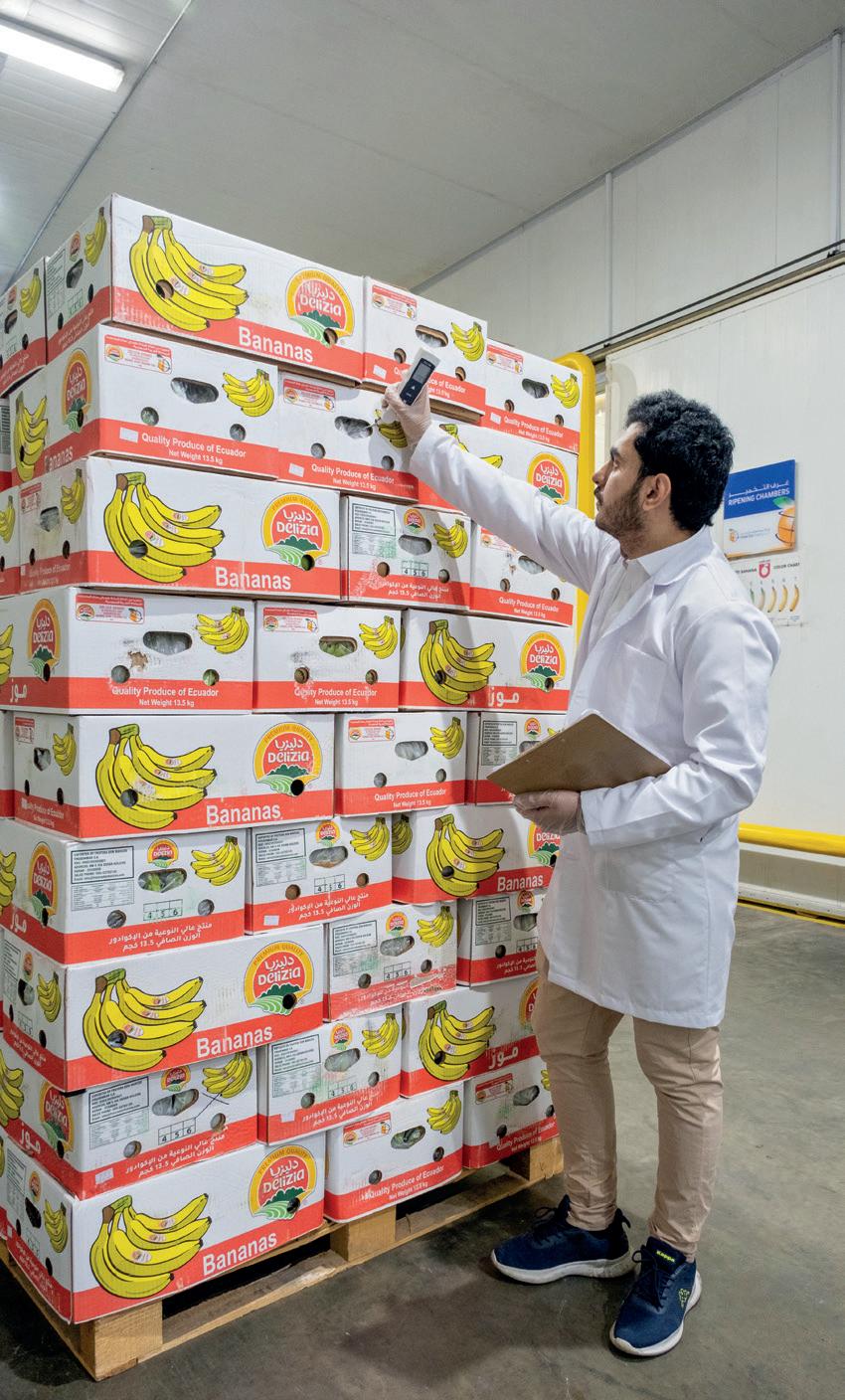
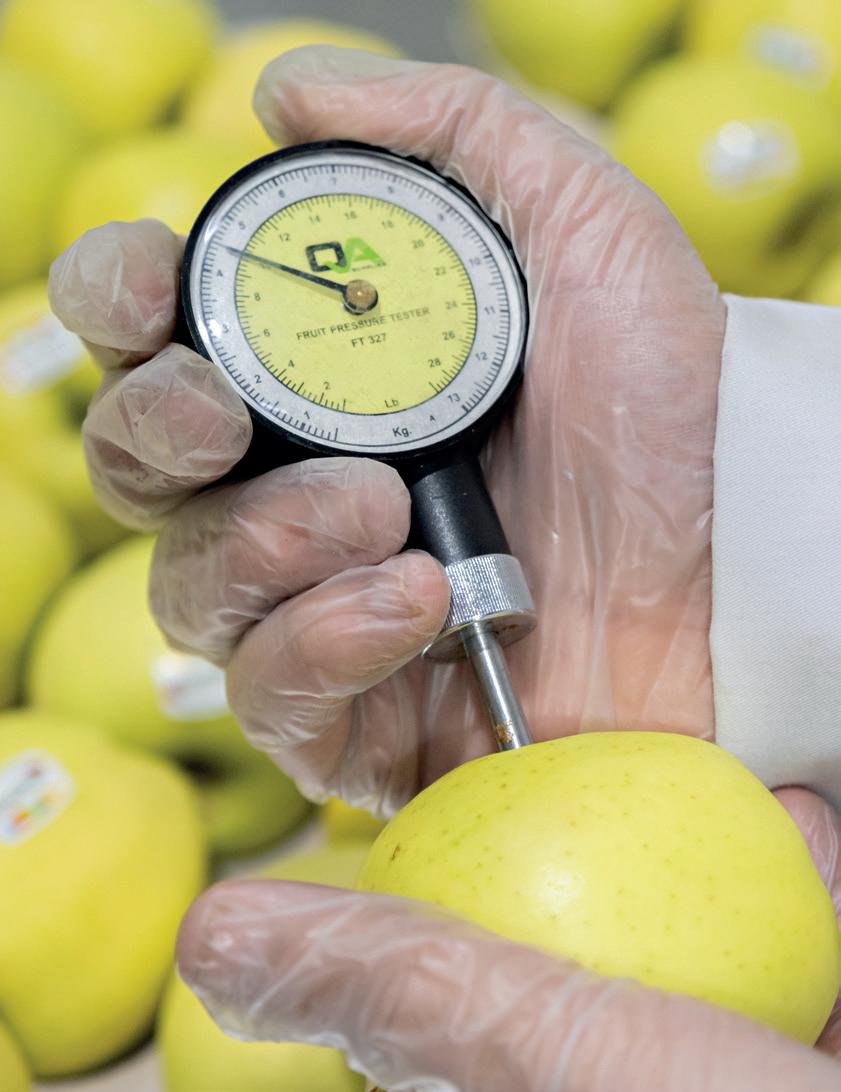
With this understanding, Delizia promises unparalleled quality and a taste experience that stands out.
Our seasoned team, with their vast experience in the industry, have worked relentlessly to ensure that every piece of fruit under the Delizia label carries a legacy of trust, commitment and proficiency. This is not just about a product; it’s about a promise – a promise of excellence that Global Star Group has been renowned for over the years.
Our brand’s reach is as diverse as the consumers we serve. From key retailers and local groceries to dynamic food services and bustling wholesale markets, our distribution network spans across multiple cities in Saudi Arabia and the Gulf. And, with our vision always
set on the horizon, we’re gearing up to introduce Delizia to the vibrant markets of India in the coming months.
Are rising costs an issue at the moment?
SI: Rising costs, particularly in the storage and logistics sectors, are definitely a concern for us and any distributor. As a proactive measure, we’ve turned our investments towards cost-effective, technologically advanced storage solutions. This way, we aim to uphold the quality of our products without burdening our consumers with additional costs. The swift rotation of our stock plays a pivotal role in managing these storage expenses. This process demands rigorous coordination among our suppliers, procurement and sales teams. Yet, even with meticulous planning, unforeseen variables can emerge, such as irregular transit times from shipping lines, which are beyond our control. Just last year, for example, we grappled with the overlapping arrivals of shipments dispatched three weeks apart. These shipments, originally scheduled for separate weekly loadings, arrived simultaneously, leading to unexpected storage needs.
The group handles sourcing through to delivery? Does this offer some advantages?
SI: Absolutely. By overseeing the entire process from sourcing to delivery, we can guarantee the freshness, quality and timely delivery of our produce. This endto-end oversight allows for better quality control and ensures we meet our commitment to excellence.
What are the main products you import and which are the main sources?
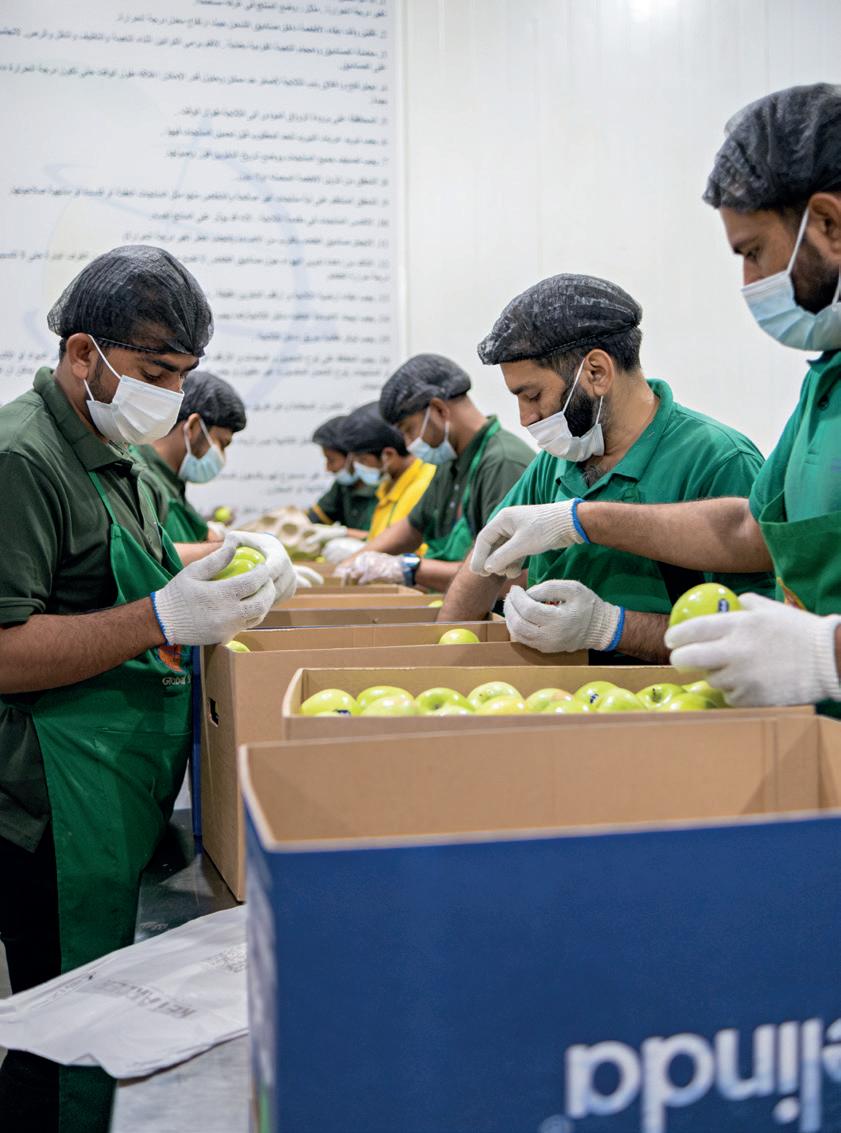
produce imported from various parts of the world. At the forefront of our imports are bananas, primarily sourced from Ecuador and India. Apples, another significant part of our assortment, are imported from Italy, Poland, Serbia and South Africa. These regions are renowned for their rich apple-growing traditions, offering a variety of flavours and textures that are both crisp and delectable.
Citrus fruits, essential to any fresh produce offering, are procured from the fertile orchards of Egypt, Spain and South Africa. Furthermore, our commitment to ensuring year-round availability is evident with our grape imports. We source from Italy, Peru, South Africa, Egypt and India, ensuring that our customers enjoy their favourite varieties irrespective of the season.
Our range doesn’t stop there. Sweet and succulent stonefruit are handpicked from the orchards of South Africa, Spain and Greece. These fruits, with their aromatic flavours and juicy textures, are a hit during their respective seasons. Additionally, we also offer kiwifruit, pomegranates, garlic, ginger, pears and several other products to provide a comprehensive basket that caters to varied culinary needs.
Are there any particular items that are growing in popularity on the Saudi market?
SI: Certainly. We’ve noticed a surge in demand for avocados and berries in recent years. Additionally, there’s a growing interest in exotic fruits and niche products, signalling an evolving consumer palette.
Given obesity issues, are consumers in Saudi Arabia and the wider Middle East looking to eat more healthily?
SI: Absolutely. There’s a growing awareness and push towards healthier diets. Consumers are now more discerning, opting for fresh and organic produce. We believe this shift is an opportunity for us to promote the nutritional benefits of our offerings.
Are you looking to add any new products or sources to your offer?
SI: At Global Star, we pride ourselves on our evolving and dynamic portfolio. We firmly believe that to stay relevant and ahead in the fresh produce market, one needs to constantly innovate and diversify. Our pursuit is not only about volume but about offering distinctive, highquality products that resonate with our consumers’ changing preferences.
While we remain anchored to our core offerings, we’re always on the lookout for emerging trends and unique produce from various corners of the world. We’re keen on identifying regions or growers who, perhaps due to their unique soil, climate or cultivation methods, can offer something exceptional to our range.
We don’t merely choose our sources based on product quality. A significant criterion for our sourcing strategy is the sustainability practices of our suppliers. We firmly believe in promoting environmentally friendly and sustainable agriculture, ensuring that while our customers enjoy the best produce, the Earth remains cared for and protected.
Take, for instance, our recent addition of iceberg lettuce. It might seem like a simple addition, but it’s a testament to our dedication to bringing a variety of fresh offerings to our consumers. The introduction of the fresh coconut is another
SI: Our extensive product portfolio showcases a diverse range of fresh »
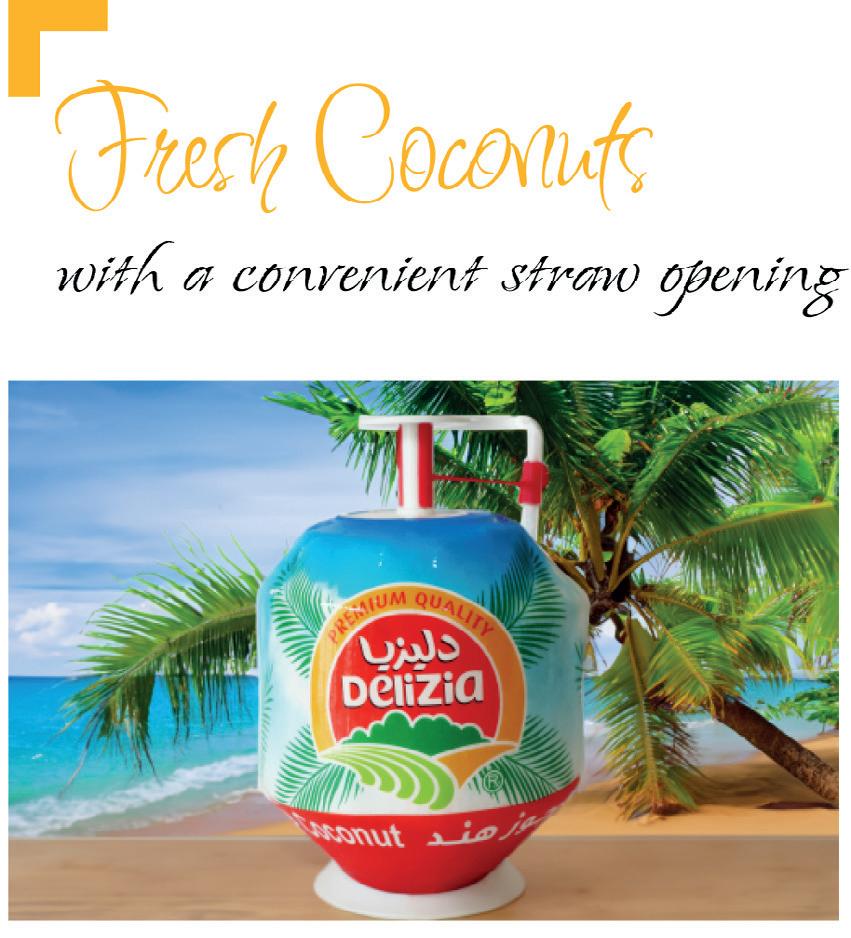
notable mention. Not only have we introduced a refreshing product, but the ease of consumption with an attached straw speaks volumes about our attention to detail and consumer convenience. While these might be considered minor additions by some, for us every product is an opportunity to enhance our customer’s culinary experience and reaffirm our position as leaders in fresh produce distribution.
Is climate change increasingly becoming an issue, especially when devising your sourcing strategy?
SI: Climate change is undeniably influencing the landscape of global agriculture, and as a major player in the fresh produce industry, we are feeling its impacts firsthand. For instance, the recent citrus season from South Africa serves as a stark reminder of these challenges. The prolonged heavy rains across
The
various farming regions not only affected the overall availability of the produce but also influenced the size of the fruits. The market preference in our region leans towards smaller fruits, but the weather conditions led to a larger yield, which is less favoured.
Moreover, the diminished availability of Spanish fruits, combined with the situation in South Africa, escalated the demand in Europe. This domino effect forced us to recalibrate our sourcing strategy on the fly, incorporating produce from South America and Australia to meet our demands.
However, it’s essential to understand that these are not isolated incidents. Climate change is expected to bring more frequent and unpredictable weather anomalies. Recognising this, we’re continuously refining our sourcing strategy, cultivating relationships with growers from diverse regions

to ensure a consistent supply, and investing in research to anticipate market shifts. We believe in being proactive rather than reactive. While we navigate these shortterm challenges, our vision is to establish a resilient and adaptive supply chain that can withstand the larger, long-term implications of a changing climate.
Are new technologies increasingly playing an important role throughout the supply chain?
SI: Technology is not just important; it’s indispensable in our modern supply chain. While we’re in the early stages of integrating AI-driven logistics, the potential is immense. Predictive analytics, for example, helps us finetune our demand forecasting by synthesising data from diverse sources like retailer demands, grower availability and shipping line transit times. Such insights allow us to make informed decisions and optimise our supply routes.
Moreover, by leveraging technology, we’re able to significantly enhance efficiency throughout our operations. This not only aids in reducing wastage but also ensures that the produce arriving at the consumer’s table is as fresh as possible. Looking ahead, we’re keen on expanding our technological arsenal, exploring innovations that can further refine our processes, and consistently deliver excellence in the ever-evolving landscape of fresh produce distribution.
How are you looking to make the transportation of fruits and vegetables greener?
SI: Making the transportation of our fruits and vegetables greener is an aspiration we wholeheartedly pursue, but it presents multifaceted challenges. One of our strategic approaches is to source from countries closer to our market, which inherently reduces emissions by shortening travel distances. However, this is easier said than done. For instance, as mentioned previously, we had to diversify our sourcing to South America this season due to limited availability in South Africa – a decision driven by necessity.
While we aim to prioritise shipping lines transitioning towards a reduced carbon footprint – be it through cleaner fuels, enhanced vessel efficiency, or other sustainable initiatives – the practicalities of our industry sometimes leave us with limited choices. For instance, when we have produce ready for shipment, the available, immediate logistics options might not always align with our green aspirations.
The broader subjects of climate change and environmental responsibility are indeed monumental, requiring a unified approach across sectors. However, it’s essential to understand and communicate that, despite our best intentions, real-world constraints can sometimes limit the green choices we wish to make. E
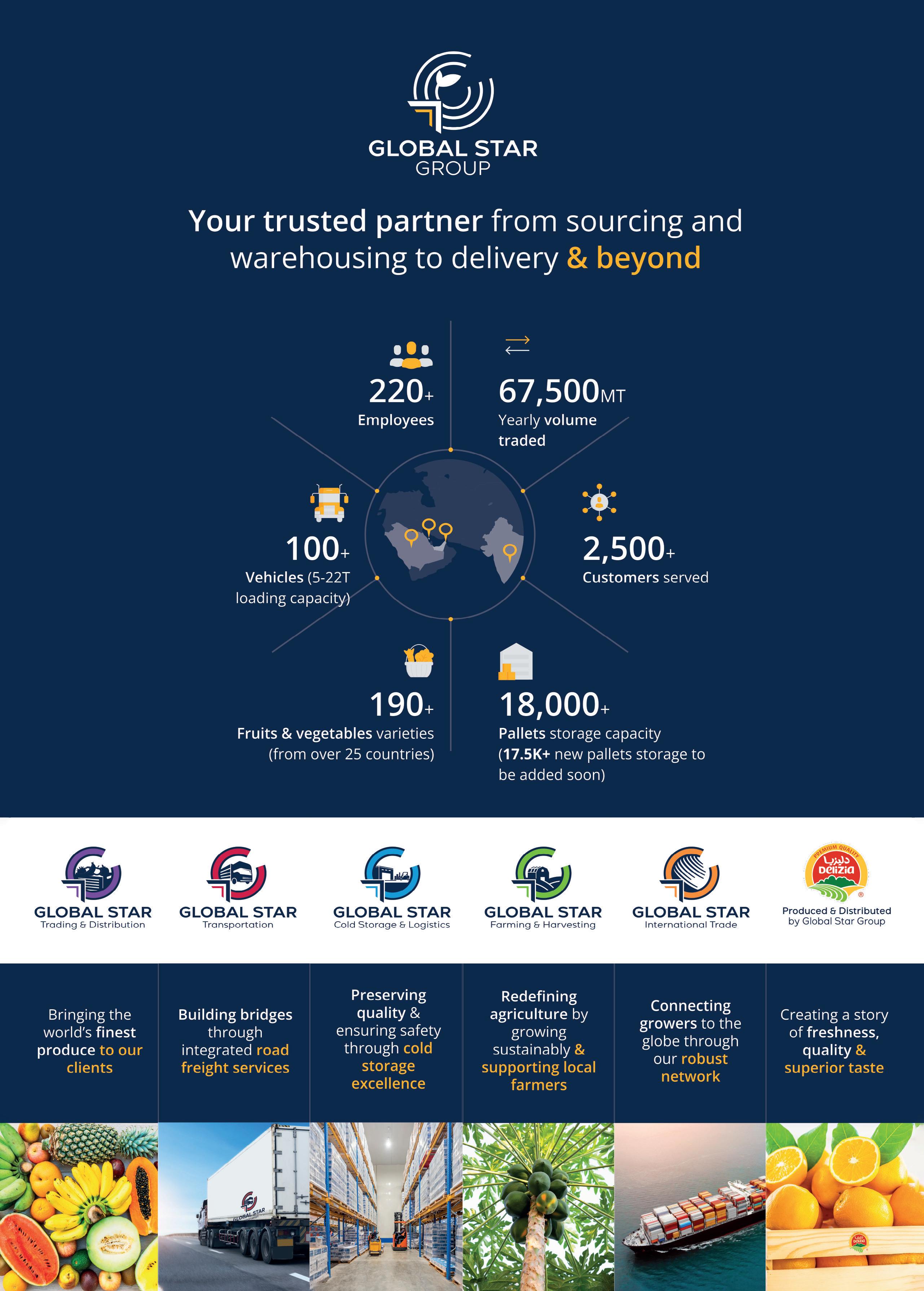
Saudi Arabia’s ambitious plan for sustainable agriculture comes from a desire to diversify away from oil and the urgent need to adapt to the new realities of climate change, says Dr Juan Carlos Motamayor of Neom Food.
by Tom Joyce @tomfruitnetNeom Food has a grand ambition, according to Dr Juan Carlos Motamayor, executive director of the Saudi group that is pioneering food production in the Kingdom. But he says it remains crucial to proceed with caution.
“We are looking at large numbers in terms of volumes, but we are also cautious,” he says. “We are not going to invest in large infrastructure with just one technology without having validated the cost efficiency. We have heard about the issues with profitability in the vertical farming industry. So we believe we have to be careful.”
This is why the group’s initial approach is for large-scale pilots with combinations of multiple technologies to minimise energy, manage heat and conserve water.
“Saudi Arabia is the largest country in the world without rivers,” says Motamayor. “But even globally, fresh water demand is predicted to outstrip supply by 40 per cent by 2030. So water scarcity is a global problem. Because of our commitment to nature and conservation, which are key values at Neom Food, we are aiming at developing agriculture based on desalinated water. We believe the world will have to adapt to the new realities of climate change and start using water more efficiently.
“We have a commitment to nature conservation, and that means not using the aquifers and
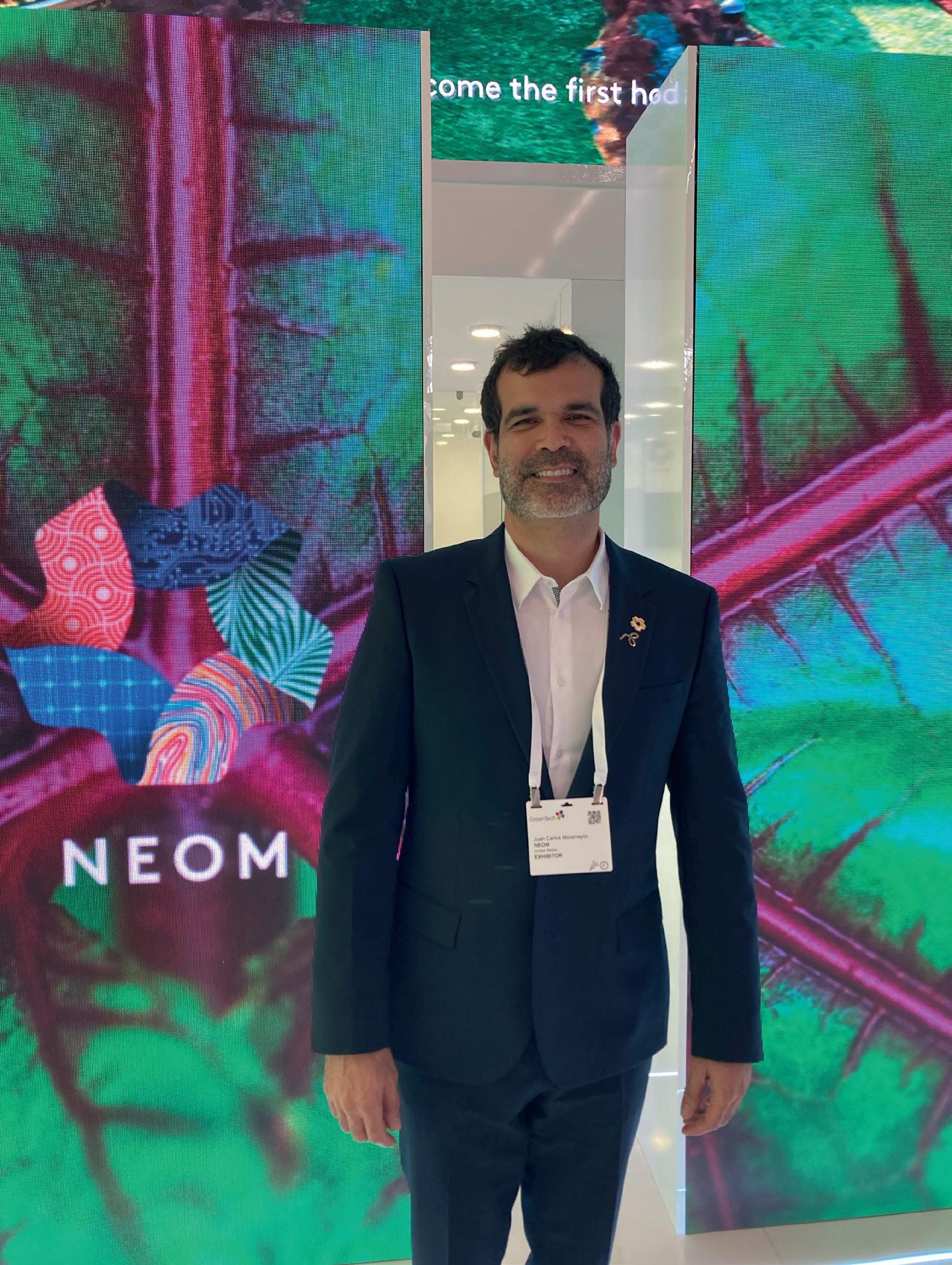
also keeping 95 per cent of the land intact. That makes you think in a different way because you need to do things completely differently, much more efficiently.”
According to Motamayor, Saudi Arabia is intent on diversifying its economy away from oil, developing future forward industries that are focused on creating solutions to some of the key challenges facing the »
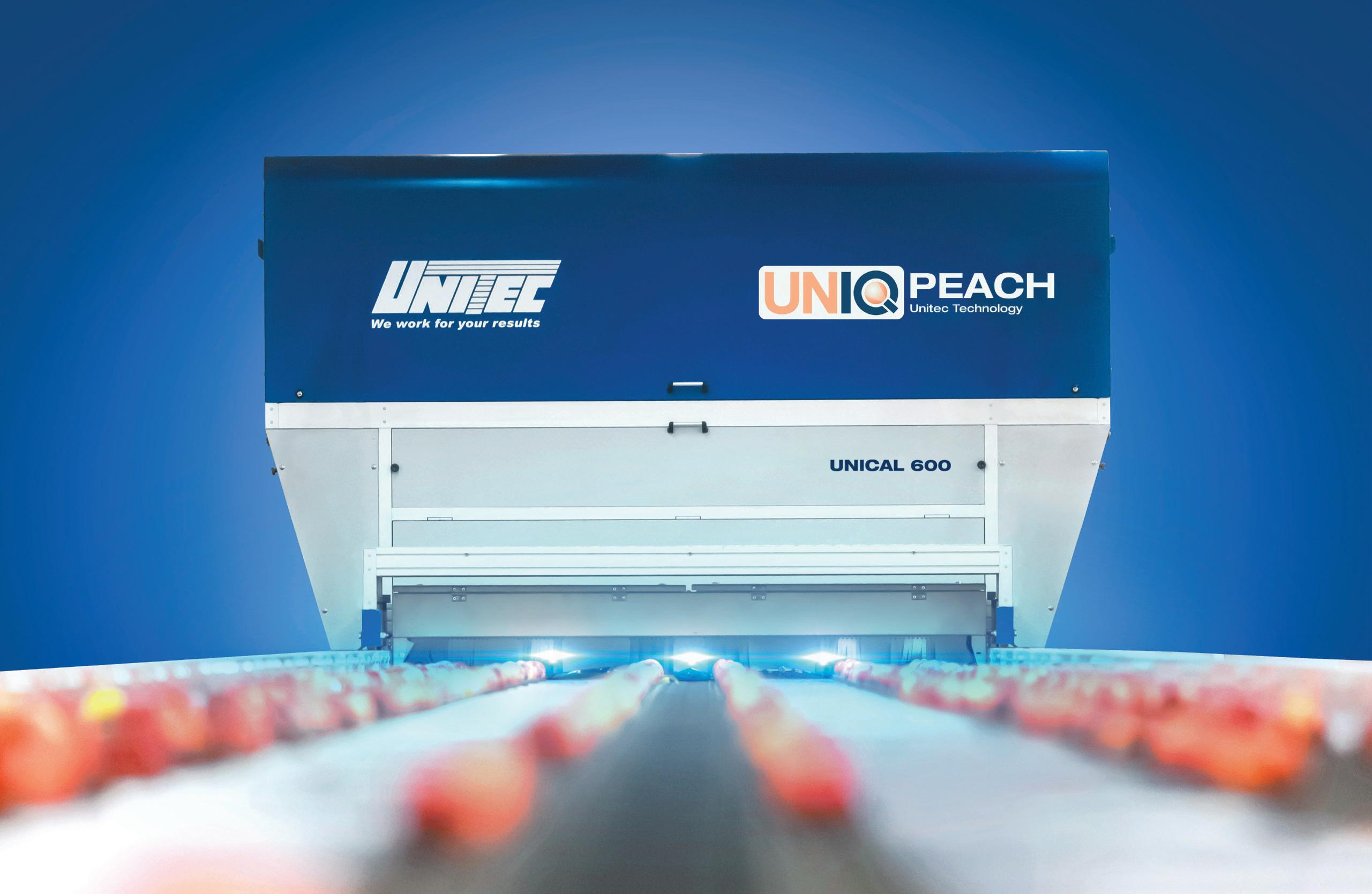

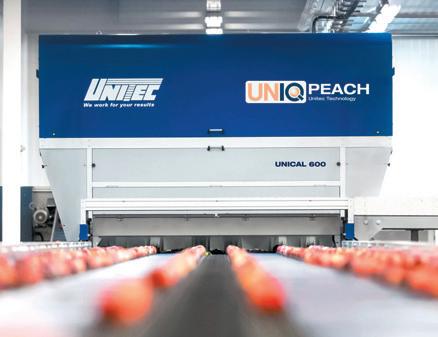
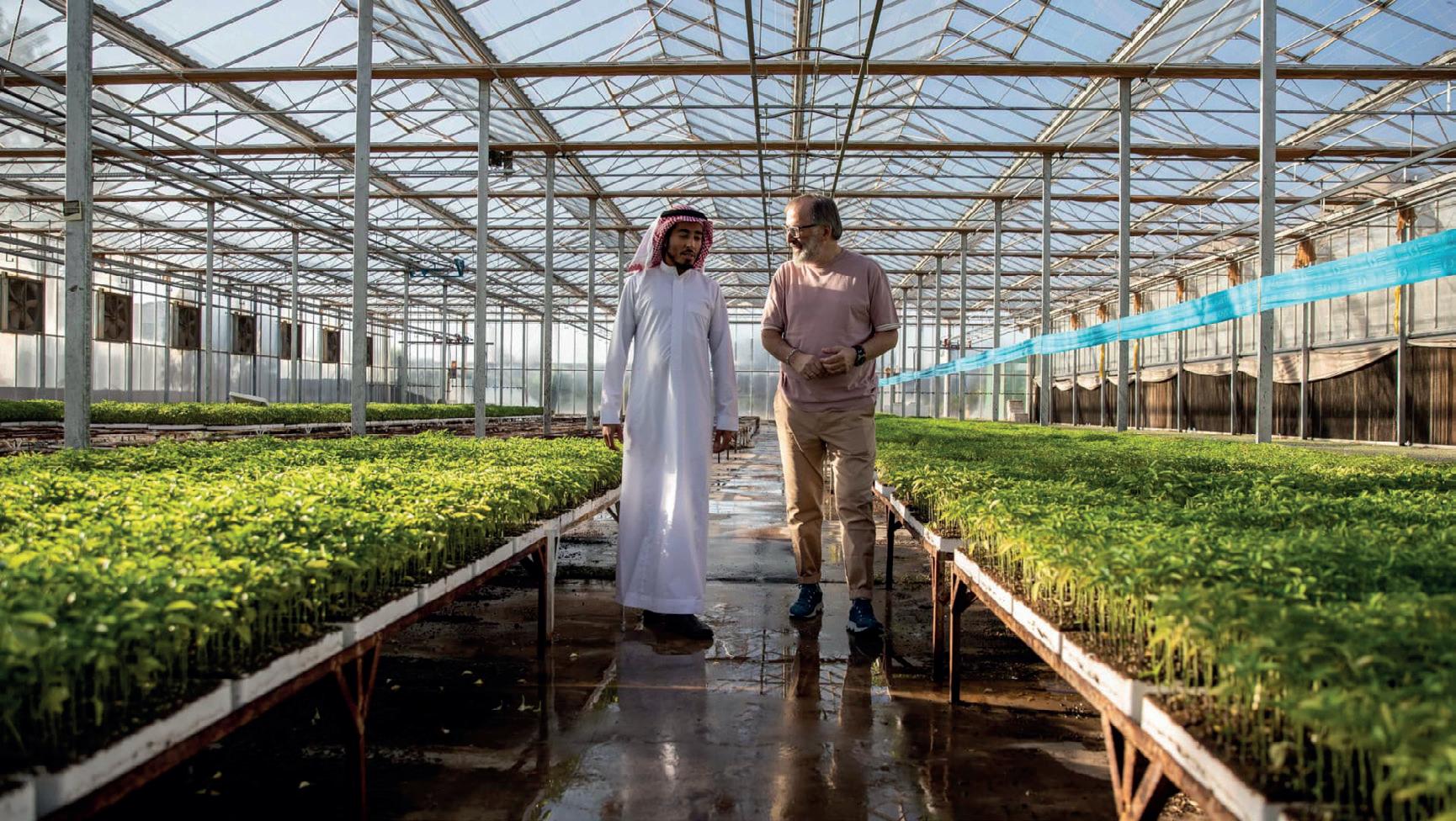
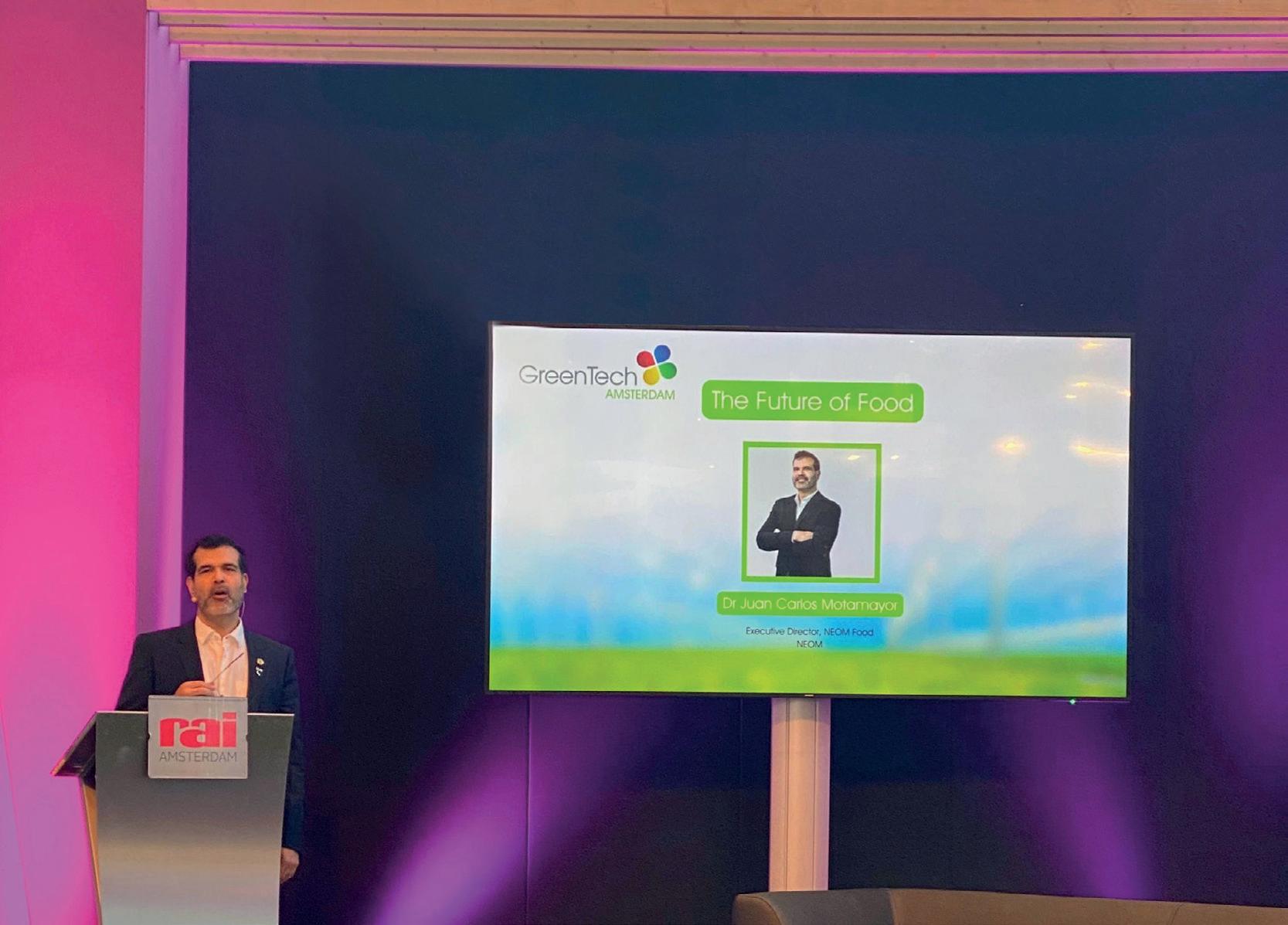
world, around climate change, the need for renewable energies, and nature conservation.
“You may have heard about The Line and other urban projects Neom is doing,” he says. “Climateproof agriculture is a key pillar for Neom Food, along with regenerative agriculture, which is addressing the perception that agriculture always has a negative impact on the ecosystem. We believe we can have a net positive
impact through different interventions. We believe these changes are needed for the planet, but we also recognise there is a growing market for such sustainable solutions.”
The other main pillar for Neom Food is food imports that match the criteria used for domestic production. “We have these targets to produce high volumes of fruits and vegetables using very specific sustainability principles and key performance indicators, and we want to apply those same sustainability KPIs to the food that we import,” says Motamayor.
Saudi Arabia is promoting healthier diets to combat
high rates of obesity and diabetes, and a consumer awareness programme to boost consumption of fruit and vegetables is a major part of that effort.
“We have a partnership with a network of Michelin chefs called Care’s, and their objective is to promote the use of locally sourced ingredients in high-end cuisine, working with farmers to reach the high standards required,” adds Motamayor. “We want to promote consumption of local fresh produce and that sometimes requires creating new uses for local ingredients. Not only do we want to be more food self-sufficient, since in Saudi we import almost 80 per cent of the food we consume, we want to contribute to mitigating climate change and reducing food miles.”
Given the expected impact of climate change, the need to develop new food systems that are more sustainable is urgent, he concludes. “It is this need for urgency that is important to communicate,” he says. “Already there will be the need to adapt and learn to live with some impacts of climate change. If we don’t work on these new systems now, we’re really going to suffer the consequences.” E



























































































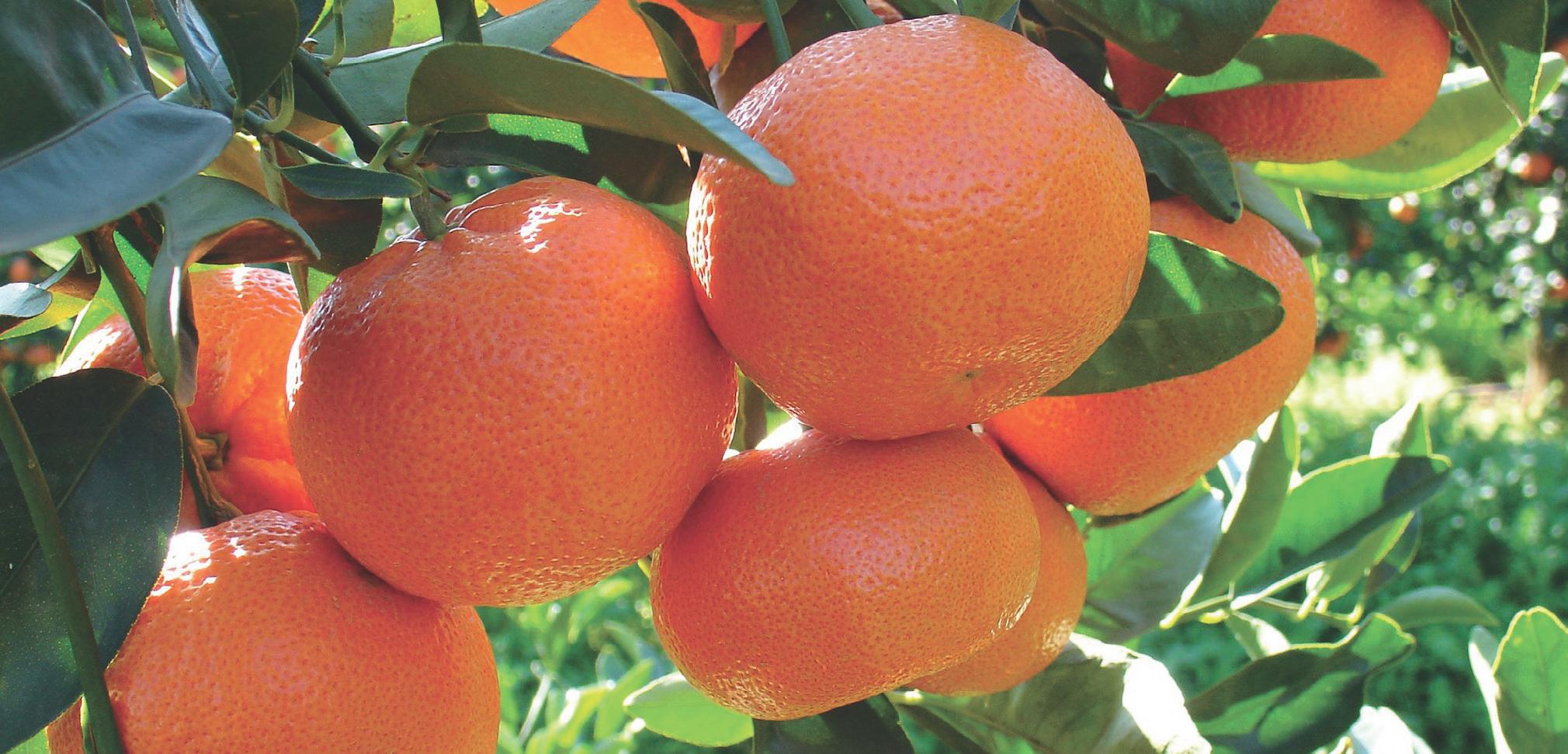
NCP has cautioned UK supermarkets about the “potential risks” associated with sales of Tango mandarins, which it claims are “unauthorised”.
by Tom Joyce @tomfruitnetNadorcott Protection (NCP), which owns the intellectual property for the award-winning Nadorcott variety of mandarin, has revealed that it has contacted nine major retailers in the UK concerning what it alleges is the “unauthorised sale” of Tango/Tang Gold mandarins.
According to NCP, “unauthorised dealings” in Tango/ Tang Gold mandarins “infringe the UK PBR [UK Plant Breeders’ Rights] that covers the Nadorco mandarin”.
Representatives of NCP say they have identified the unauthorised sale of Tango/Tang Gold mandarins in Aldi, Asda, Co-op, Lidl, Marks & Spencer, Morrisons, Sainsbury’s, Tesco and Waitrose stores in the UK.
Le ers from the NCP reportedly warned the retailers of the
“potential risks associated with unauthorised dealings in Tango/ Tang Gold mandarins in the UK”.
Ongoing proceedings are set to establish whether Tango/Tang Gold mandarins constitute an “Essentially Derived Variety”, NCP said.
“Should this classification be established either by the courts in the said ongoing or further proceedings, there will be a large impact on retailers, which will potentially apply retrospectively,” it cautioned.
The EU’s Community Plant Variety Office (CPVO), confirmed that just two differences exist between the Nadorco mandarin and Tango/Tang Gold. “In light of these findings, NCP views the Tango/Tang Gold mandarin as a dependent and ‘Essentially Derived Variety’ from the protected
Nadorco mandarin,” NCP concluded.
NCP’s Mohamed Benbiga commented: “We have been clear in our view, since the launch of Tango
ABOVE—The Nadorco mandarin originated in Morocco
“Should this classification be established by the courts in ongoing proceedings, there will be a large impact on retailers”
in the European market, that Tango/Tang Gold mandarins should be classified as an Essentially Derived Variety of the protected Nadorco variety. We will continue to take all steps necessary to vigorously defend our exclusive Nadorco rights, as well as taking steps to prevent the unauthorised exploitation of NCP’s exclusive IP.” E
PREMIUM THERMO-SEALING NOW ALSO FOR CARDBOARD TRAYS
Individual dimensions with fully customisable design - printable and perforable on 4 sides.
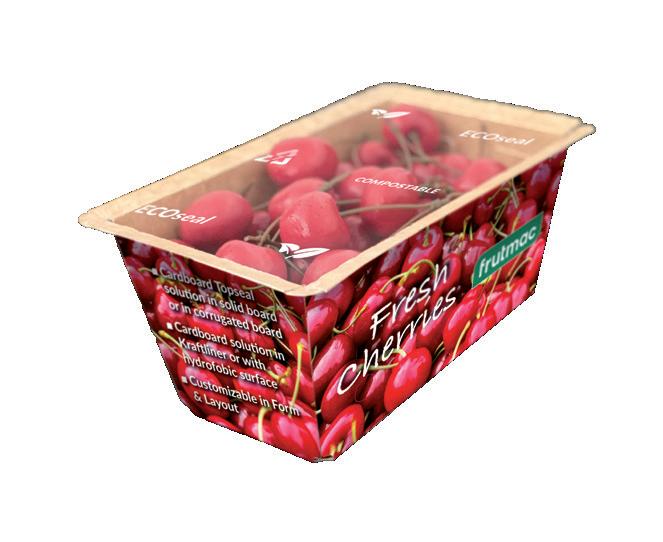
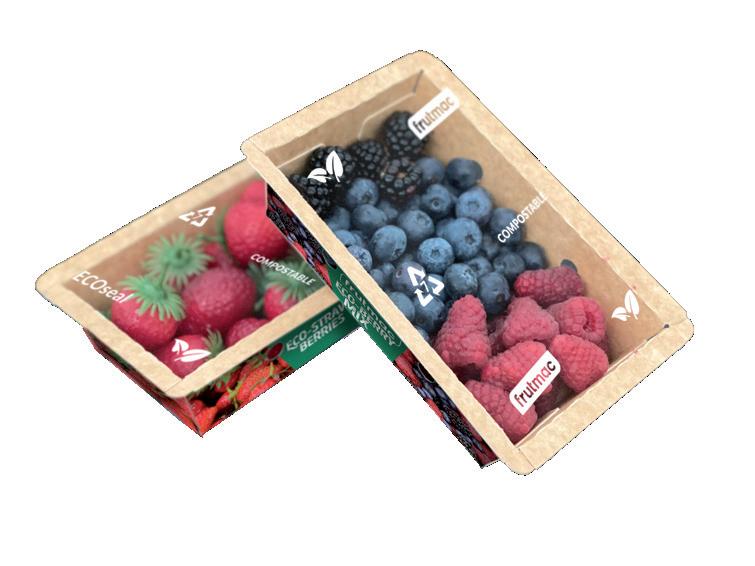
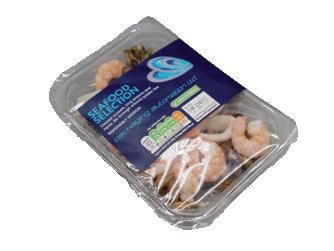

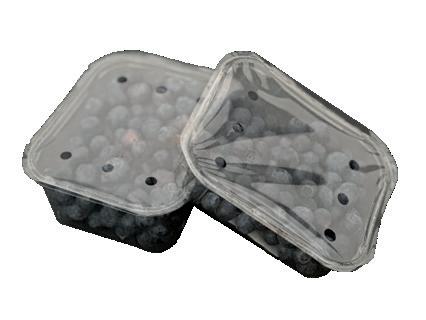

The shape of conventional trays is retained; the packaging machine does not need to be converted.
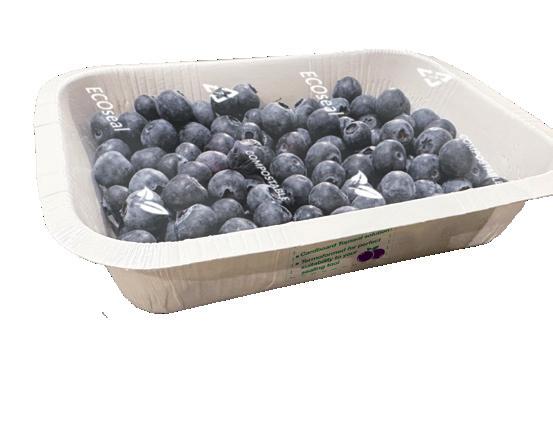
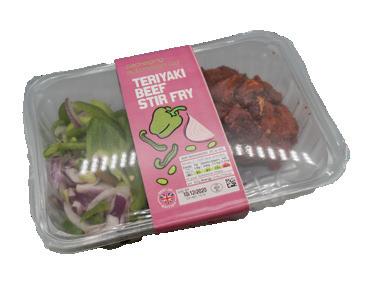
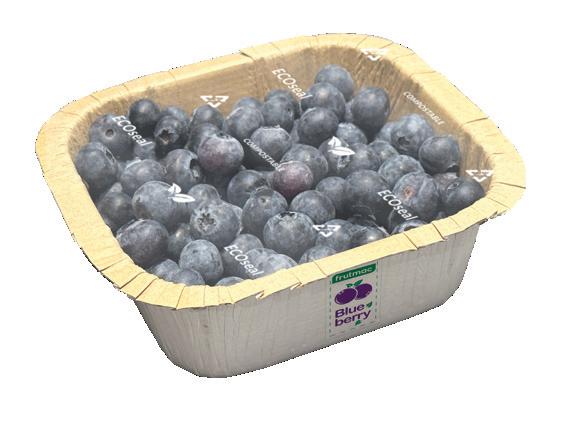

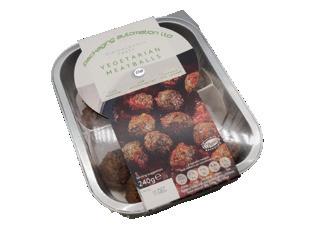
Premium quality made in Britain
Modular Sealing Tool
Syncroflex: synchronised, robotic tray flow for maximum output (45 up to 200 p/min)
ITS: intelligent transfer system
Film protection with autoadjust function

OFFICIAL PARTNER
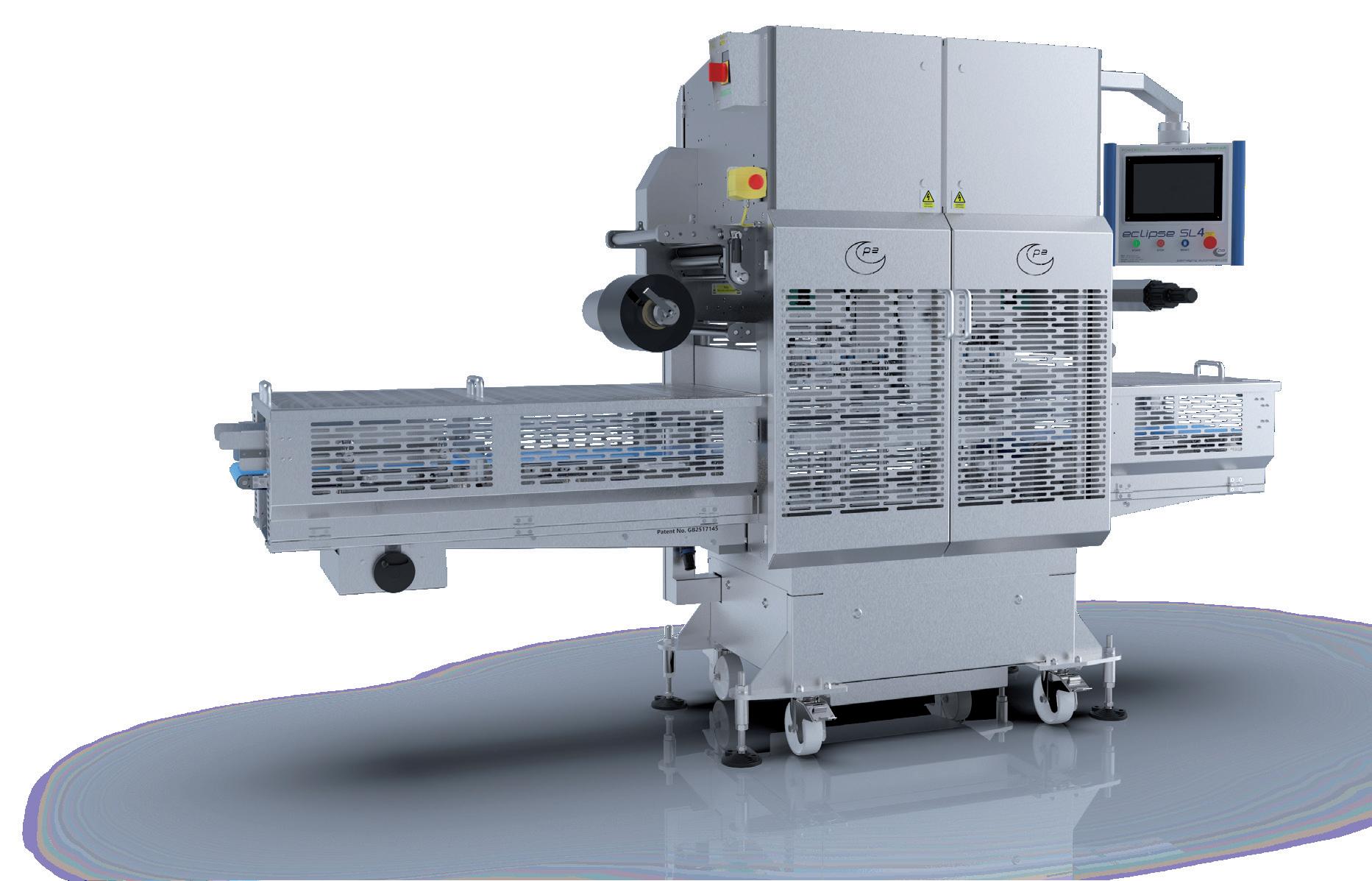
Organisation’s 2023 State of the Global Blueberry Industry Report highlights recent boom in highbush production and challenges such as rising costs.
by Carl Collen@carlfruitnet


The International Blueberry Organization (IBO) has unveiled its 2023 State of the Global Blueberry Industry Report.
“The IBO is an international growers organisation commi ed to serving the interests of blueberry
work together to increase consumption and support a healthy future for the industry.”
The report found that, in an era marked by fluctuating blueberry prices and a 77 per cent surge in highbush production since 2018, the industry had been facing mounting challenges.
”Despite such growth, there’s been a considerable squeeze on margins, with input costs in 2022 soaring between 20-30 per cent and non-harvest costs even doubling in some instances,” the report noted. “The tide seems to be turning, with costs starting to normalise.”
Additionally, the report highlighted the increasing importance of strategies like demand promotions, spotlighting the success of Poland, the emphasis on field efficiency, and the “relentless pursuit of quality”.
Emerging trends like machine harvesting and an intensified focus on environment, social, and governance (ESG) also garnered a ention, with the latest health research surrounding blueberries providing a fresh perspective.
“A well-informed industry is a resilient one,” said Cort Brazelton, chief editor and co-author of the report. “This latest edition of the Global State of the Blueberry Industry Report marks a significant step forward in our ongoing efforts.
“I’m especially proud that we can offer it free to the industry, thanks to our advertising sponsors,” he said. “The depth of analysis and insights will surely serve as a valuable resource for all stakeholders, ensuring we can make informed decisions and understand the shi ing dynamics of our industry.”
Colin Fain, who spearheaded the team behind the report, said that the report was a testament to the “evolution and dynamism” of the blueberry industry.
“It’s not just about numbers; it’s about drawing connections, understanding global trends, and equipping stakeholders with knowledge,” he said.
“From plantings and production to trade dynamics, we’ve delved deep, ensuring the industry has a holistic overview to chart its course in an ever-changing marketplace.” E growers around the world,” said Peter McPherson, chairman of the IBO.
”An important part of our mandate is to provide information to empower transparency and informed decision making as we
As 2023 draws to a close, we round off the year with our bumper November/December issue of Eurofruit. Packed full of interviews and analysis, Eurofruit takes a deep dive into the latest developments in key trades including Southern Hemisphere grapes and stonefruit, kiwifruit, avocados and persimmon. We also bring you industry and market updates from South Africa, China, Morocco and Serbia
Eurofruit November/December also includes our special publication, Fresh Focus Berry, published ahead of the Global Berry Congress which takes place on 28 November.

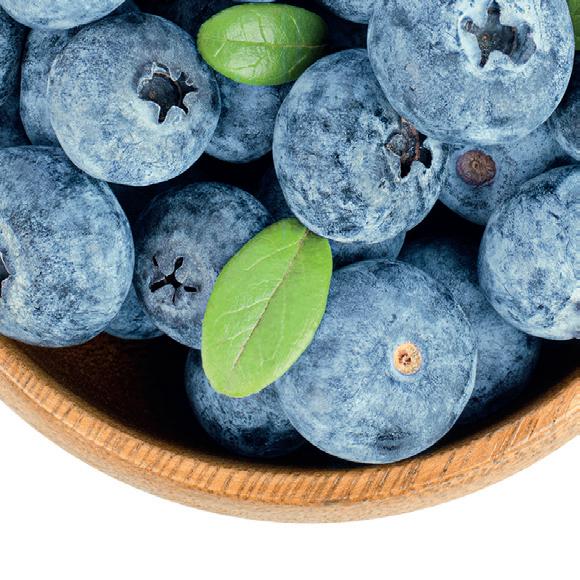


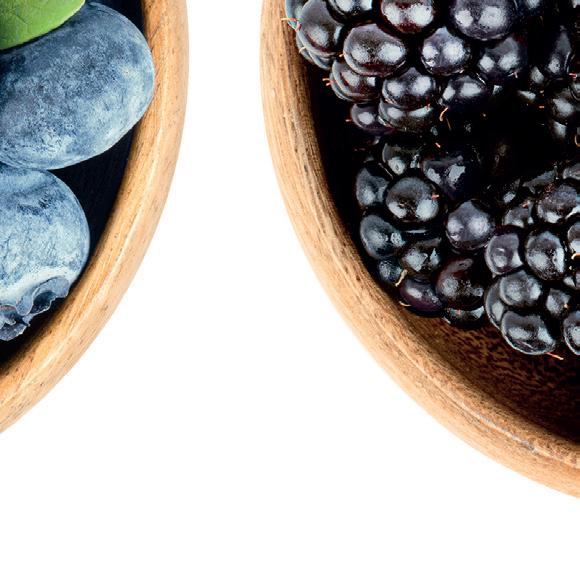
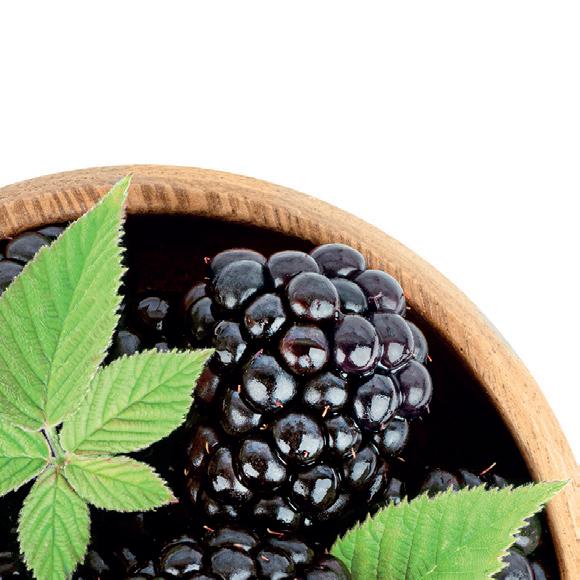
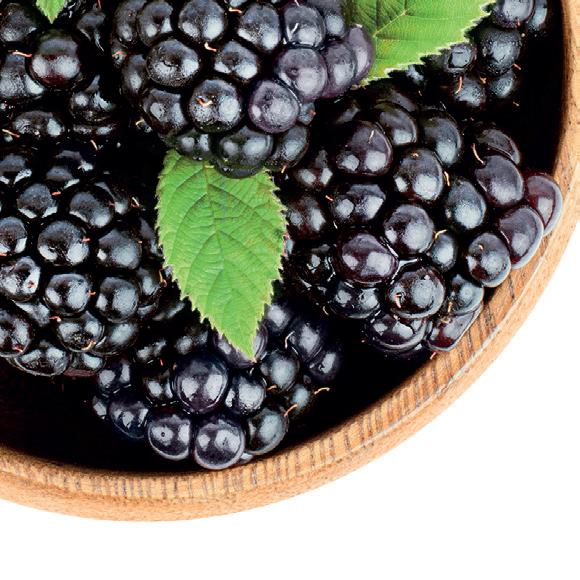

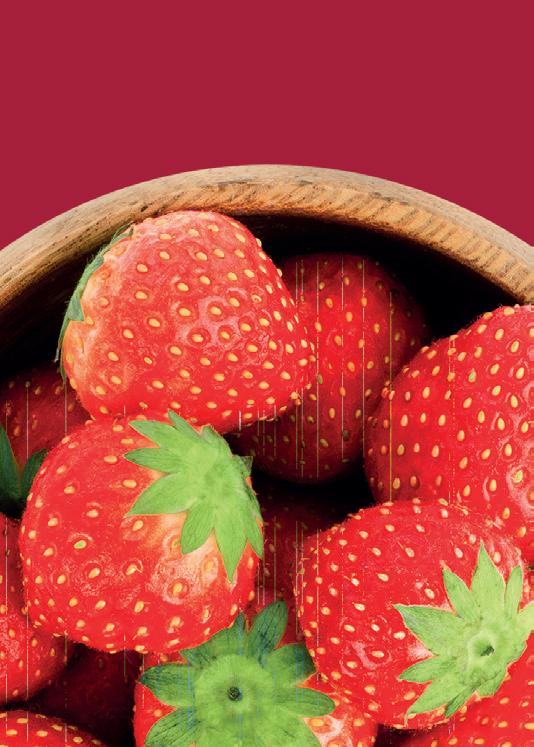

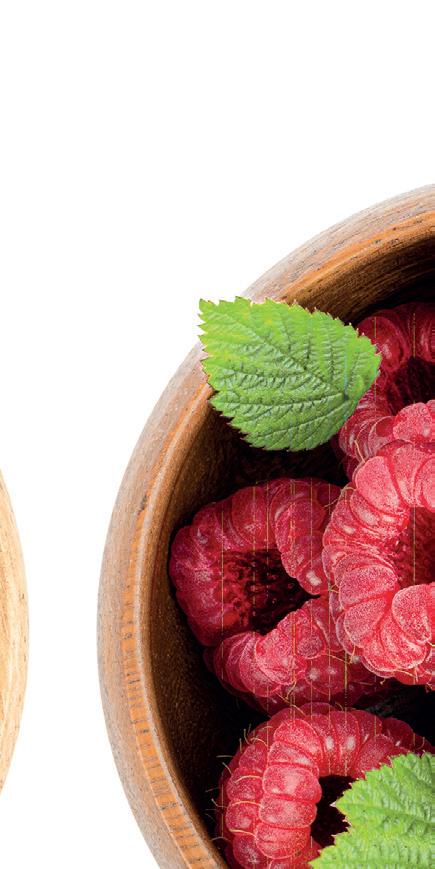

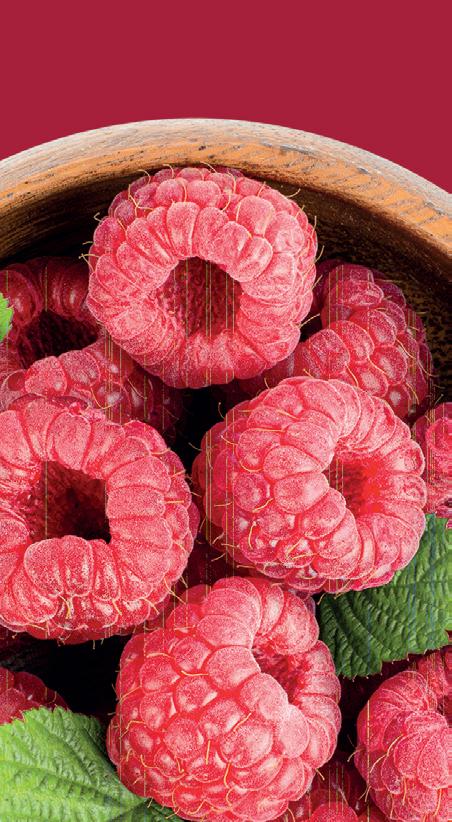
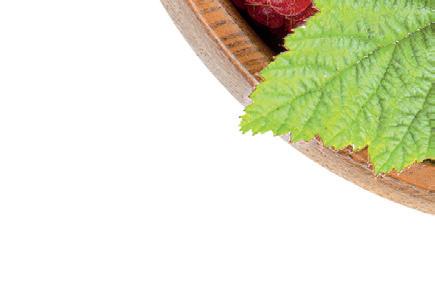


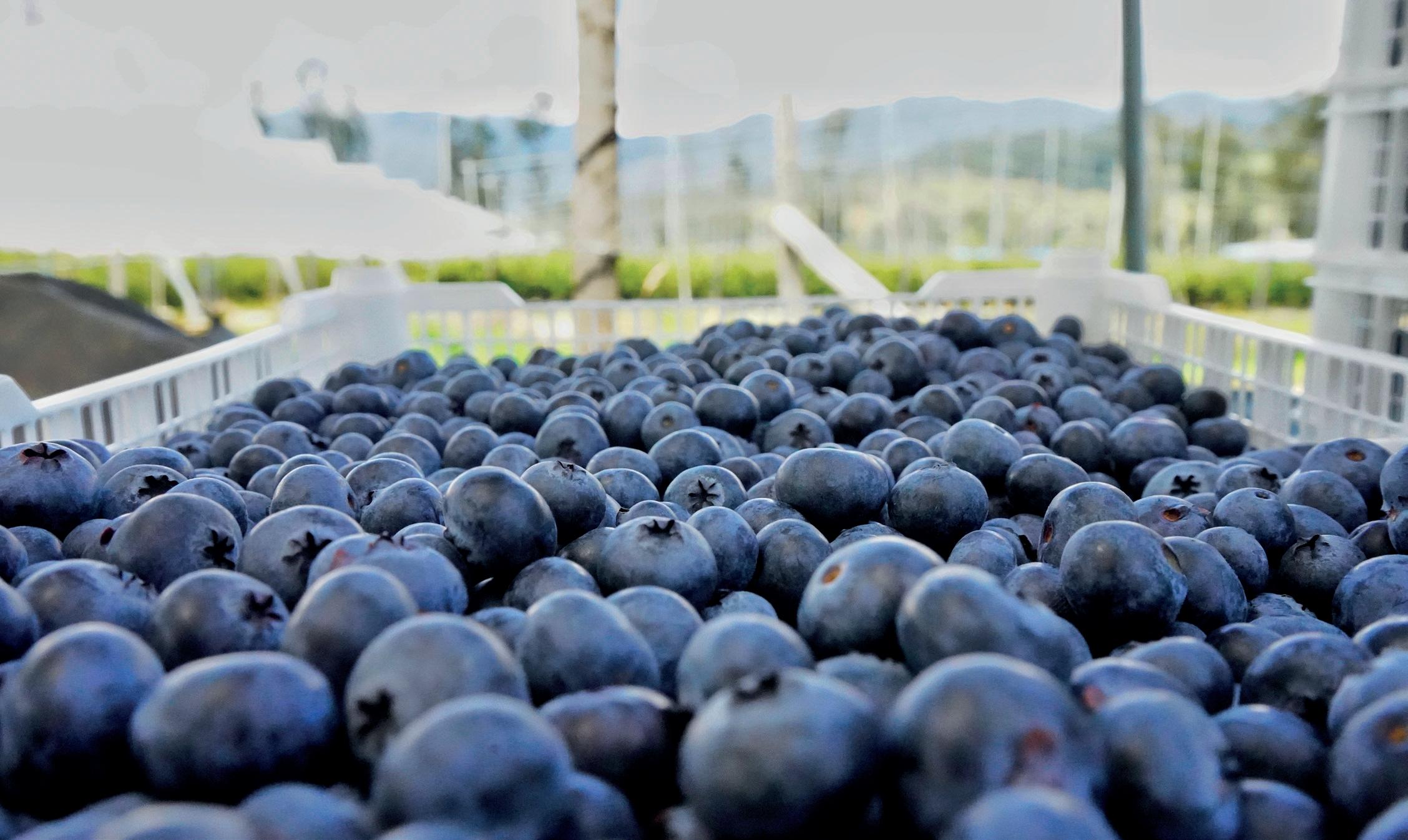
Growing interest in blueberry cultivation among Colombian farmers and investors will lead to a significant expansion in acreage in the next few years. So says Miller Preciado of Elite Blu, who predicts that planted area could double from the current 800ha to more than 1,500ha within the next three to five years.
“This year alone we expect production to see a 30 per cent increase in production which will go towards feeding growing domestic demand and
consolidating Colombia’s position in the international market,” he tells Eurofruit
Nevertheless Miller acknowledges that thus far, the development of Colombia’s blueberry industry has been slower than expected, something he puts down to “initial knowledge barriers and the need to adapt growing techniques to the specific conditions of the country, which has consumed a lot of time and resources”.
While these have been partially overcome, productivity still varies widely from farm to farm and region to region. “Some orchards can produce yields of 2.5kg per plant, while others register more than 5kg, so we still have to establish parameters adapted to
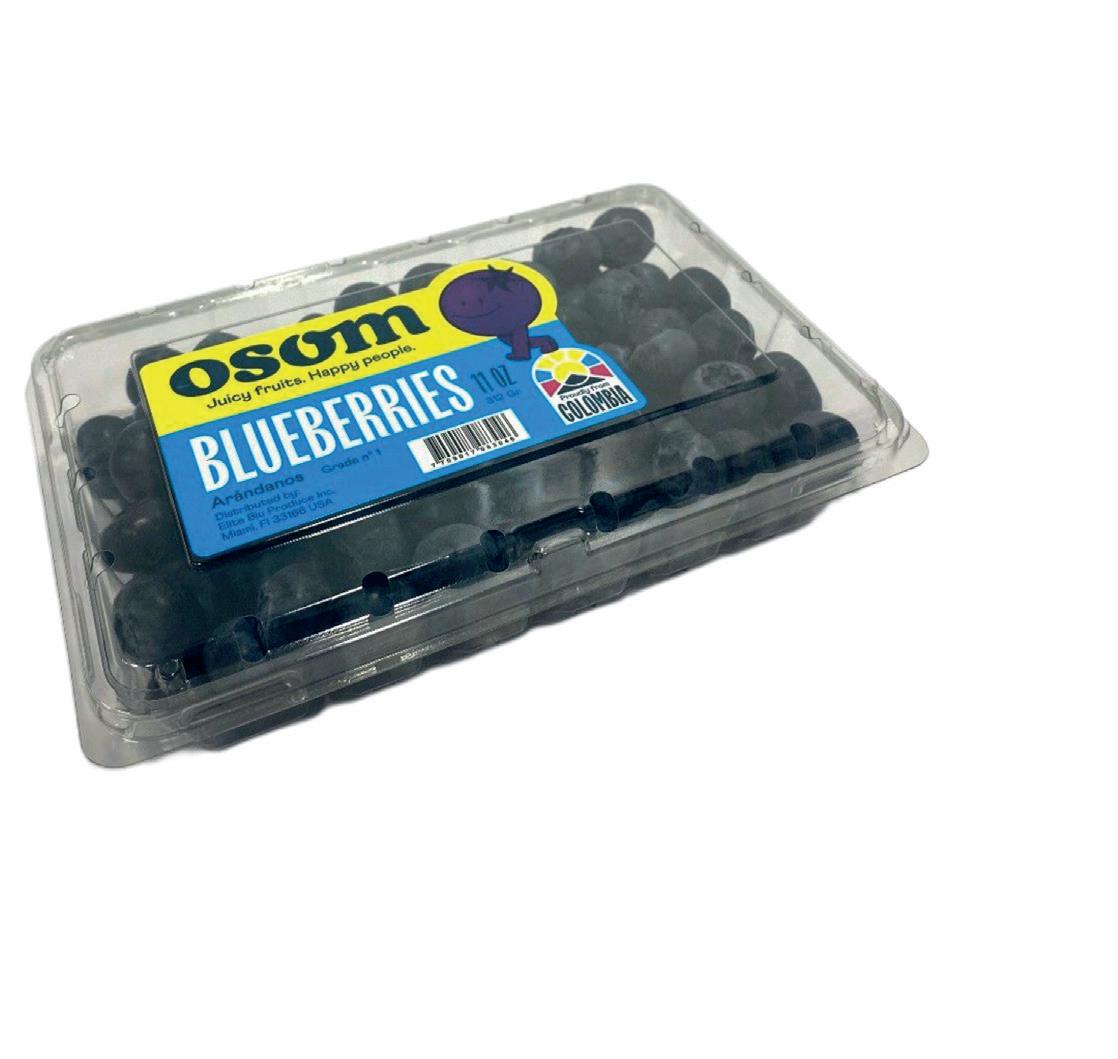
each region, in particular taking into account that the behaviour of plants may vary depending on the altitude of the farm,” he says.
Elite Blu has been producing Colombian-grown blueberries since 2017 when it harvested its first commercial crop of the Biloxi variety. Today it is the country’s biggest exporter of fresh blueberries, sending fruit to the US and other international markets in North America, Europe, the Middle East and Asia.
“We currently have 80ha in production, made up of more than 700,000 plants. In the coming years our aim is to increase this to around 450ha of own production. We’re also linking up with small and medium producers with the aim of increasing volumes and guaranteeing supply during the 52 weeks of the year,” says Preciado.

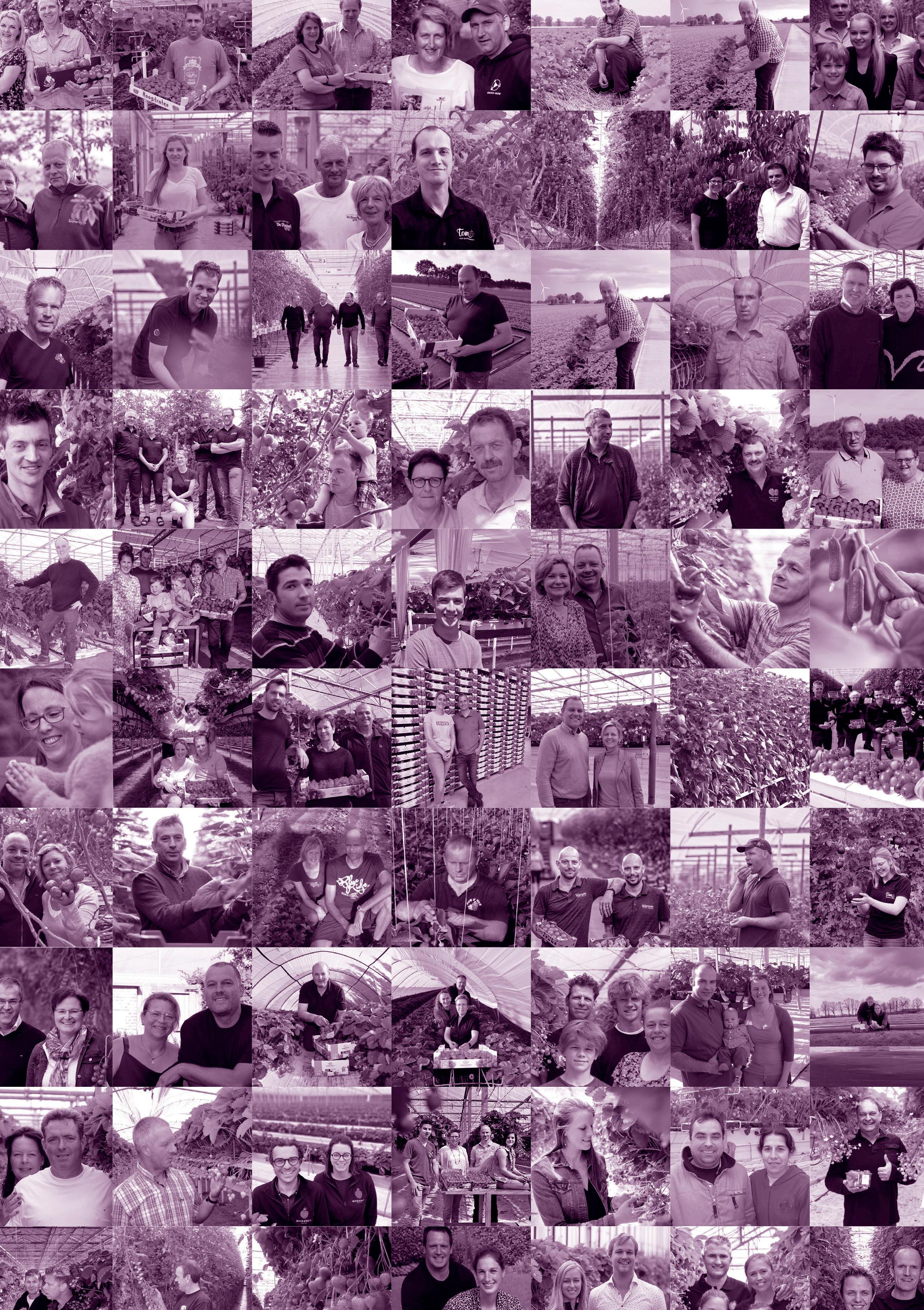





The most established blueberry production areas in Colombia are in the departments of Cundinamarca and Boyacá. However, Preciado says there are also opportunities to extend production to other departments such as Antioquia, Caldas, Risaralda and Valle del Cauca, which have the right conditions to grow the fruit.
“Colombia has a fantastic advantage over other producing countries in that its climatic conditions and proximity to the equator make it possible to grow blueberries continually throughout the year,” Preciado continues. “We harvest our plants every 8-10 days depending on the variety and have developed a unique method that allows us to achieve yields of more than 30 tonnes per hectare.”
While Biloxi was the most commonly used variety during the early days of blueberry cultivation in Colombia, the sector has more recently sought to incorporate the latest genetics, and various trials are currently underway to evaluate how they respond to conditions in the country. Miller says the availability of advanced genetic materials will be crucial for the growth and development of the sector as they have the potential to lift yields to 35 or even 40 tonnes per hectare, making blueberries an increasingly attractive option for growers.
At the same time, companies like Elite Blu recognise the need to invest in cutting-edge technology to build a sustainable future as a supplier of blueberries meeting the standards demanded by consumers worldwide.
“In order to take full advantage
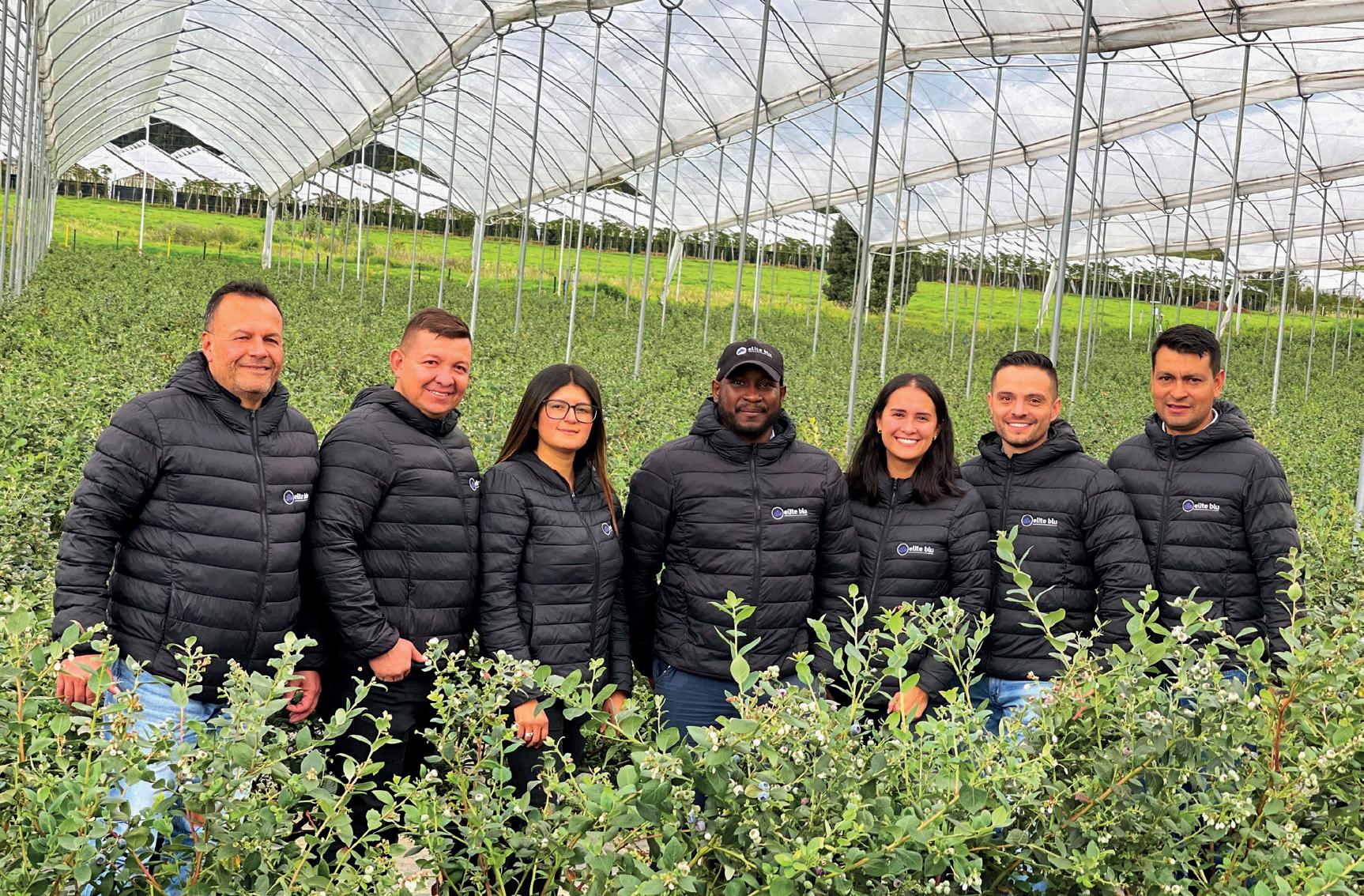
of the blueberry boom we need to understand – and mitigate for – the particular climatic and environmental conditions here in Colombia. That’s why we’re investing in technology like realtime data capture and highly efficient fertigation systems to improve our competitiveness,” Miller says. “Our approach is focused on efficient cost management, the optimal performance of our staff and a sustainable consumption of inputs. And we are committed to sustainable agriculture based on the use of biological inputs to counteract the presence of pests and diseases.”
As part of its commitment to responsible resource management, Elite Blue has implemented a water harvesting programme to capture rainfall via a series of channels installed on the roofs of its facilities that directs rainwater to reservoirs distributed throughout the farm.
It has developed a substrate sowing system that further reduces water consumption. “This method minimises waste and optimises the entire irrigation system, thus guaranteeing responsible use of water resources,” Miller says. E
The volume of Colombian avocados shipped to the US is up 104 per cent so far this season compared to the year-earlier period according to the Colombia Avocado Board (CAB).
Avocado production and orchard development have rapidly increased in the last two years. In 2021, there were 150 orchards producing just under 6.5m lbs of avocados. Today, there are 488 orchards across eight states and production stands at nearly 25m lbs in the 2023 season so far, an increase of 325 per cent since 2021.
William Watson, the CAB’s managing director, said: “We’re extremely excited about the growth we have experienced over the last two years and can’t wait to see where we are in the years to come”.
“Our ability to ship directly to the US, one of the of the strongest avocado consumption markets in the world, is a great asset to Colombia avocados suppliers, but also an opportunity for American consumers as they have more supply choices to meet their growing demand.”
Although Colombia has produced and distributed avocados for years, CAB’s alliance with the US market has greatly expanded the company’s infrastructure. “The benefits we have seen from the US market are astronomical and we are thrilled that the demand for our avocados continues to rise,” said Ricardo Uribe, chairman of CAB. “We’re proud to be able to keep up with demand, and our efforts to provide high quality produce year after year remain steadfast.”
CAB has proven to be an essential part of the growth and development of importer partners for the future of Colombian avocados.


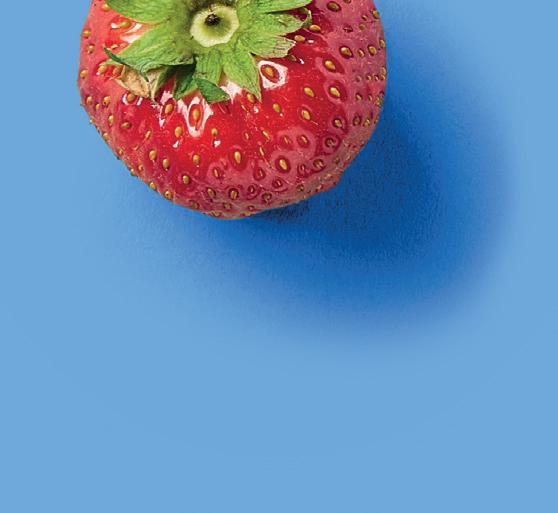



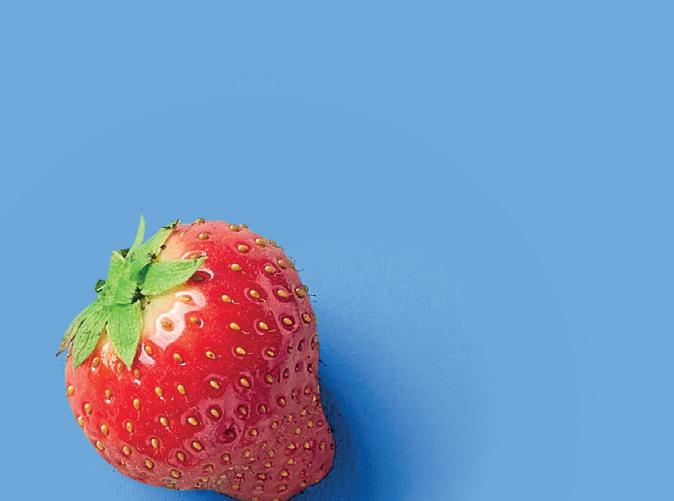


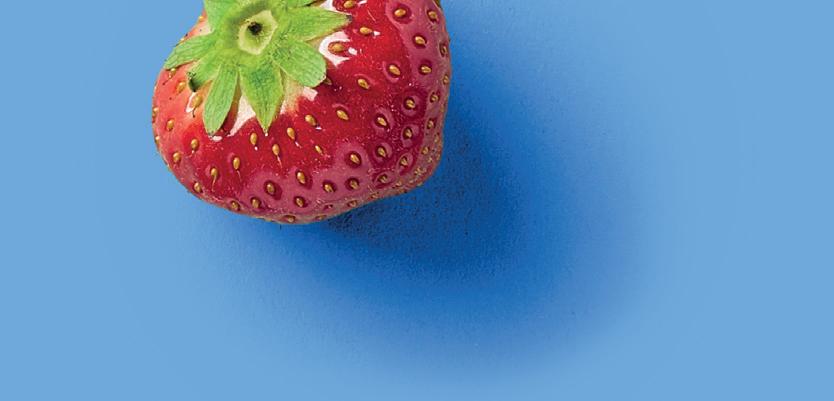











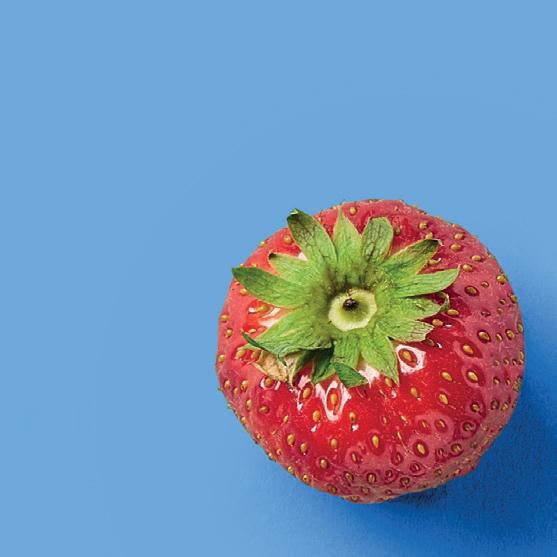



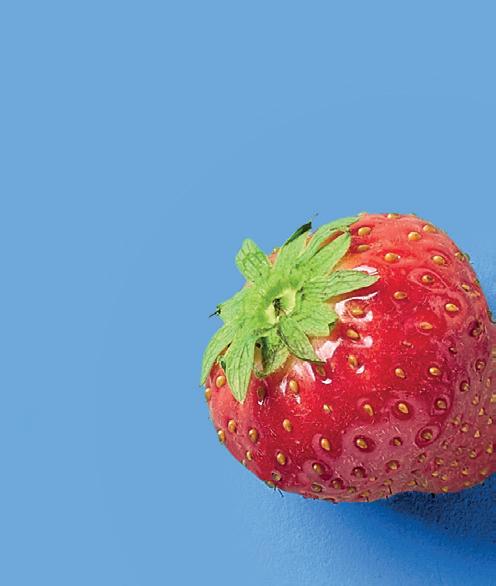



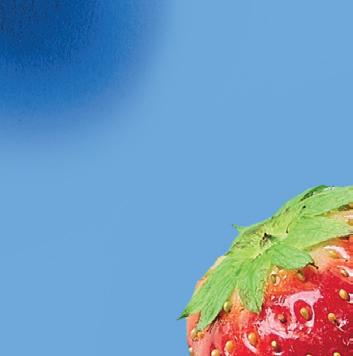

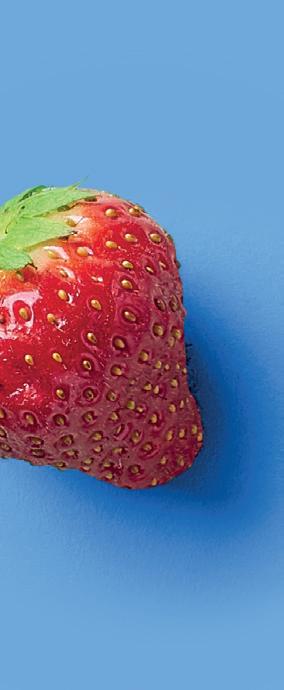

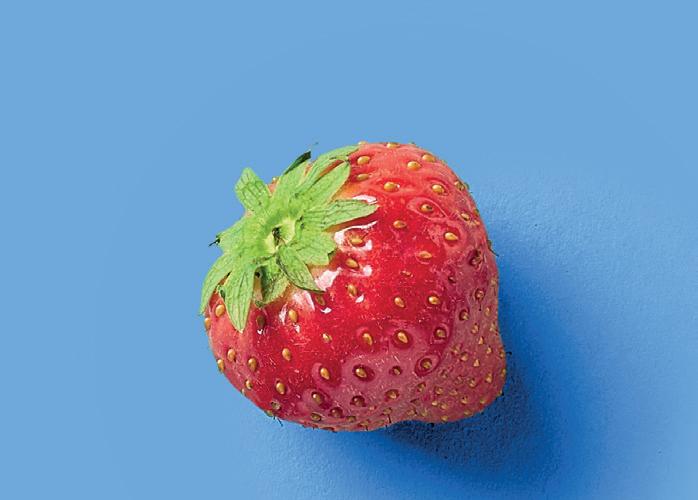


Rewe Southwest will add the Livie quality stamp to its Rewe Beste Wahl blueberries to drive repeat purchases.
by Maura Maxwell @maurafruitnet
Rewe is to sell blueberries bearing the Livie quality stamp in its stores in southwestern Germany. The retailer said the Livie logo will be added to the packaging of already-established brands and supermarket own labels for Sekoya blueberry varieties that meet its high quality standards.
According to Hans Liekens, Sekoya’s value chain and retail manager, the Livie brand will function like the ‘Intel Inside’ logo does on computers. “Rewe is in Europe the first mover and we are really happy with this,” he says. “We know the market is looking for consistent quality, and that means firmness, taste and size. We will oversee the quality parameters in the value chain to ensure a consistent quality, so not
“At Sekoya we know the market is looking for consistent quality, and that means firmness, taste and size”
all Sekoya fruit will become Livie.”
The blueberries will be supplied by Agrovision, the first Sekoya member with fully approved Livie farms. Stefan Spanjaard, managing director of Agrovision Europe, says the company will make a special selection of its best fruit to supply Rewe according the Livie quality specifications.
The Livie logo is reserved for Sekoya blueberries with the best taste, size and firmness, in a bid to guarantee customers a consistently good eating experience and extended shelf life.
“Consumers asked us to come up with a ‘consistent quality concept’, which already exists in fast moving consumer goods,” explains Marco Migliore, senior category buyer vollsortiment at Rewe. “The reason
for this was missed sales. More than 50 per cent of consumer experiences in blueberries today are negative and fewer than 25 per cent align with their preferences. If consumers are disappointed about the purchase, they stop buying for six to 10 weeks. This is a huge opportunity for the industry to increase sales.”
The main role of the new brand is to act as a quality stamp so that customers trust they are buying an excellent product and make repurchases. “Livie stands for consistency and quality all year round to help retailers grow the blueberry category,” Liekens says. E
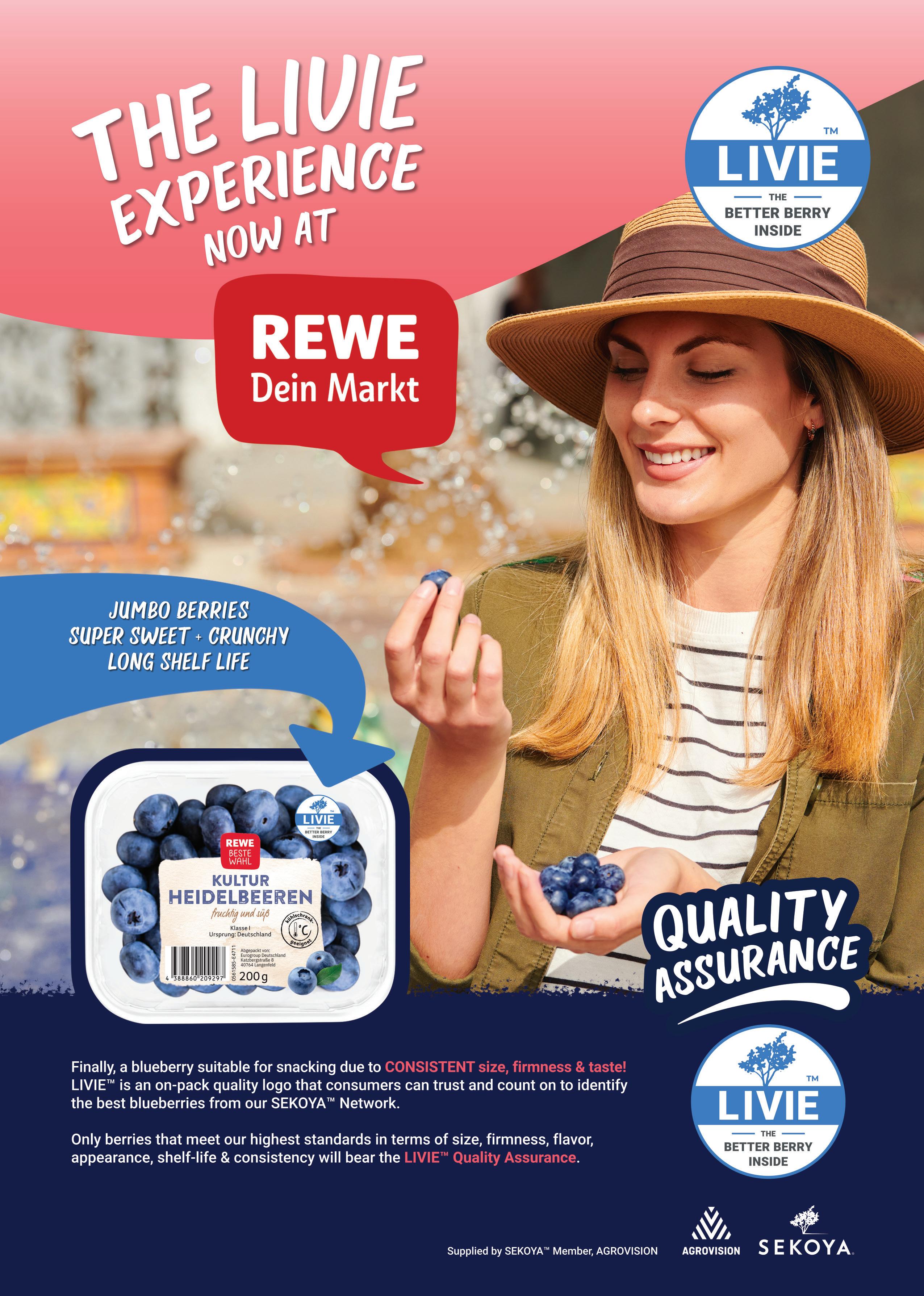
In-Vitro Kusibab chief executive Tadeusz Kusibab tells Eurofruit that 2023 has thrown up a variety of challenges for the Polish plant nursery group.
by Carl Collen @carlfruitnet

How has 2023 been for the In-Vitro Kusibab group?
Tadeusz Kusibab: It has been unpredictable. For the last three years we have been observing unexpected changes in demand for our plants. We have seen an increase in production for species other than blueberries.
We have focused on promotion, and for the fourth time we had open days at our plantation in June to promote haskap berries, which are still not well known in Europe.
BELOW LEFT—Production will remain at a stable level this year, with 50 per cent heading for export BOTTOM—The group offers a wide range of species and varieties in varying sizes
During the course of two weekends, over 5,000 people came to pick berries, try different haskap products and buy fruit plants for themselves.
What are the challenges you have faced this year?
TK: There is high inflation in Poland, and the extremely high costs of energy which is now several times higher than it was two years ago. We are also dealing with increasing wages of the employees, and it is not so easy to find reliable workers for the horticultural sector. There have been many changes to the Labour Code in the last year, and we also have to deal with bureaucracy.
What trends have you noticed across the supply chain?
TK: We have seen higher raw material costs, and now there is greater demand for advanced payment for production material. However, the price of young plant material has remained at a similar level.
Have there been any changes in the volumes you are handling, and what is your export situation?
TK: The whole of our production has been at the same level for the last three years. We export over 50 per cent of our products. Our key market is the European Union, but we are continuously looking for new markets, as well as new species and varieties.
Fruit A raction is coming up, so what will you be showcasing in Madrid?
TK: We will be promoting prospective new Polish raspberry and blackberry varieties for the fresh market, drawn from a breeding programme in NIWA, Poland. We will be championing the advantages of micropropagation and easy worldwide exports, and the possibility of propagation of fruit plants on demand.
There is a wide range of products offered by the In-Vitro Kusibab group, consisting of different species, varieties and also various sizes, from the smallest in sterile plastic vessels to 2 litre pots.
We have over four decades of experience in the micropropagation of berry plants and fruit trees like mulberries, hazel and fig trees. Responding quickly to market needs and being open to new products is our a itude. E
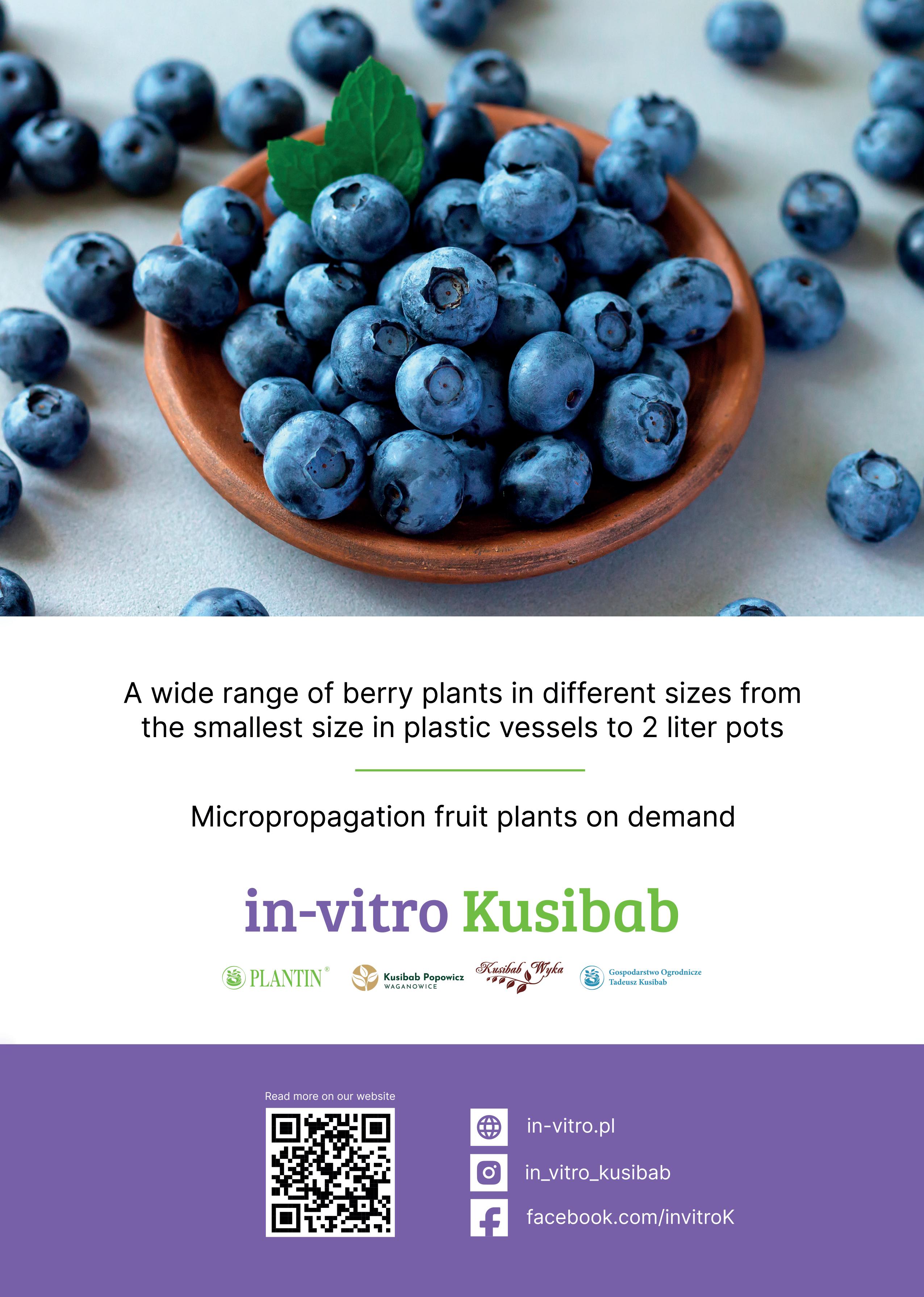
Rajpol CEO Dominik Wozniak says volumes are stable and quality high, while the company has also diversified its product offering this year.
by Carl Collen @carlfruitnetHow has the apple season shaped up for Poland this autumn, as well as for your company, Rajpol?
Dominik Wozniak: Generally in Poland the new apple crop is approximately 11 per cent less than it was last year. Nevertheless at Rajpol we expect the same quantity as in 2022, and the overall quality looks very good, so we consider following season as promising.
We are looking forward for good apple season. It is worth saying that Polish apple producers have joined forces not only to promote Polish apples, but also to deliver good quality products. Polish apples are present on many markets and the high quality meet our clients’ expectations.
Where are your key export markets? Are you looking at any new or growth markets?
DW: We produce over 70,000 tonnes of fruits annually, and out of this approximately 40 per cent is exported.
Our key export market is Europe; central and eastern Europe, Germany, the Nordic countries, Spain and Portugal. We are building our sales overseas where we focus on India, South America and the Middle East.
Have there been any changes to your product range?
DW: At Rajpol we constantly work on new products. This year we have grown, for example, Polish watermelon launched for the local market.
We launched Pola, our new club variety apple, and this project will be developed over the following years. In addition to the wide range of fresh fruits we offer, we have also launched a dried fruits brand.
In a year of challenges for the fresh produce industry, what are the most pressing you have faced?
The most visible trend is that consumers are more pricesensitive, and are looking to substitute premium products

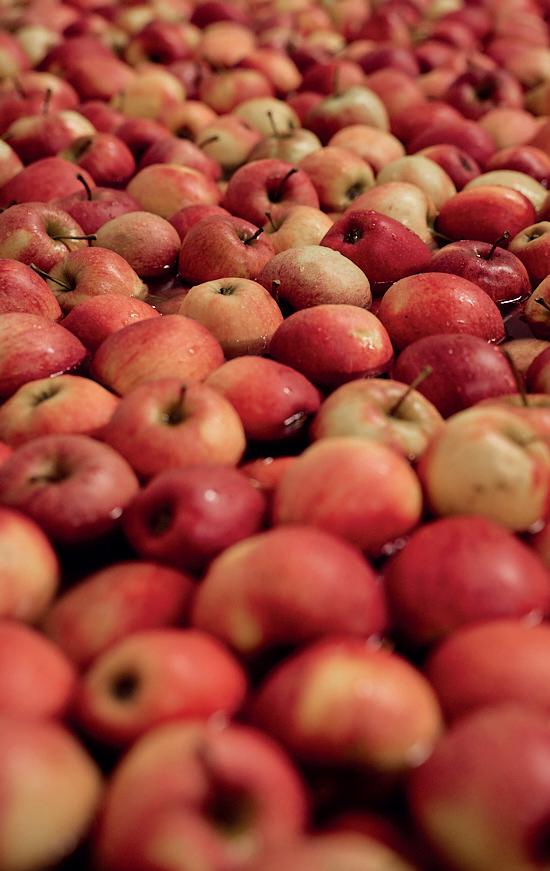
BELOW—Dominik Wozniak BOTTOM—Rajpol expects apple volumes to remain stable this year
DW: Of course, rising energy, labour and raw material costs have affected the business. These issues are influencing all the companies in the sector. We are doing our best to adjust our operations to the challenges we face.
What emerging trends have stood out this year?
DW: The most visible trend is that the final consumers are more careful and price-sensitive, and as a result they are looking to substitute premium products. At Rajpol we are trying to meet clients expectations by providing good products at reasonable prices.
Fruit A raction in Madrid is approaching – what will you be focusing on at the event?
DW: Fruit A raction 2023 is great opportunity to meet the clients we work with and also encounter potential future clients. We are going to present Pola, our club variety apple, which is a super sweet and crunchy fruit. E

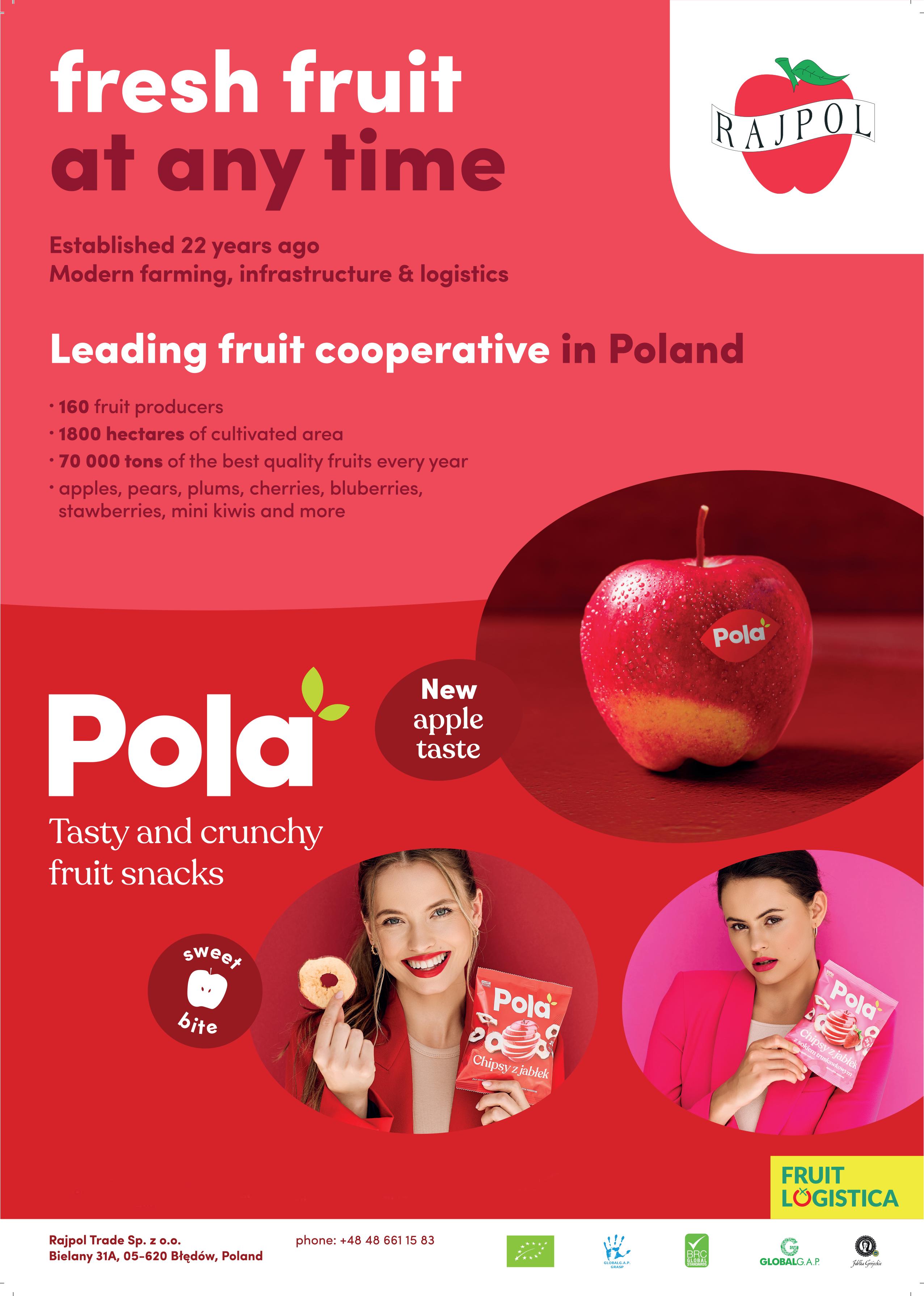

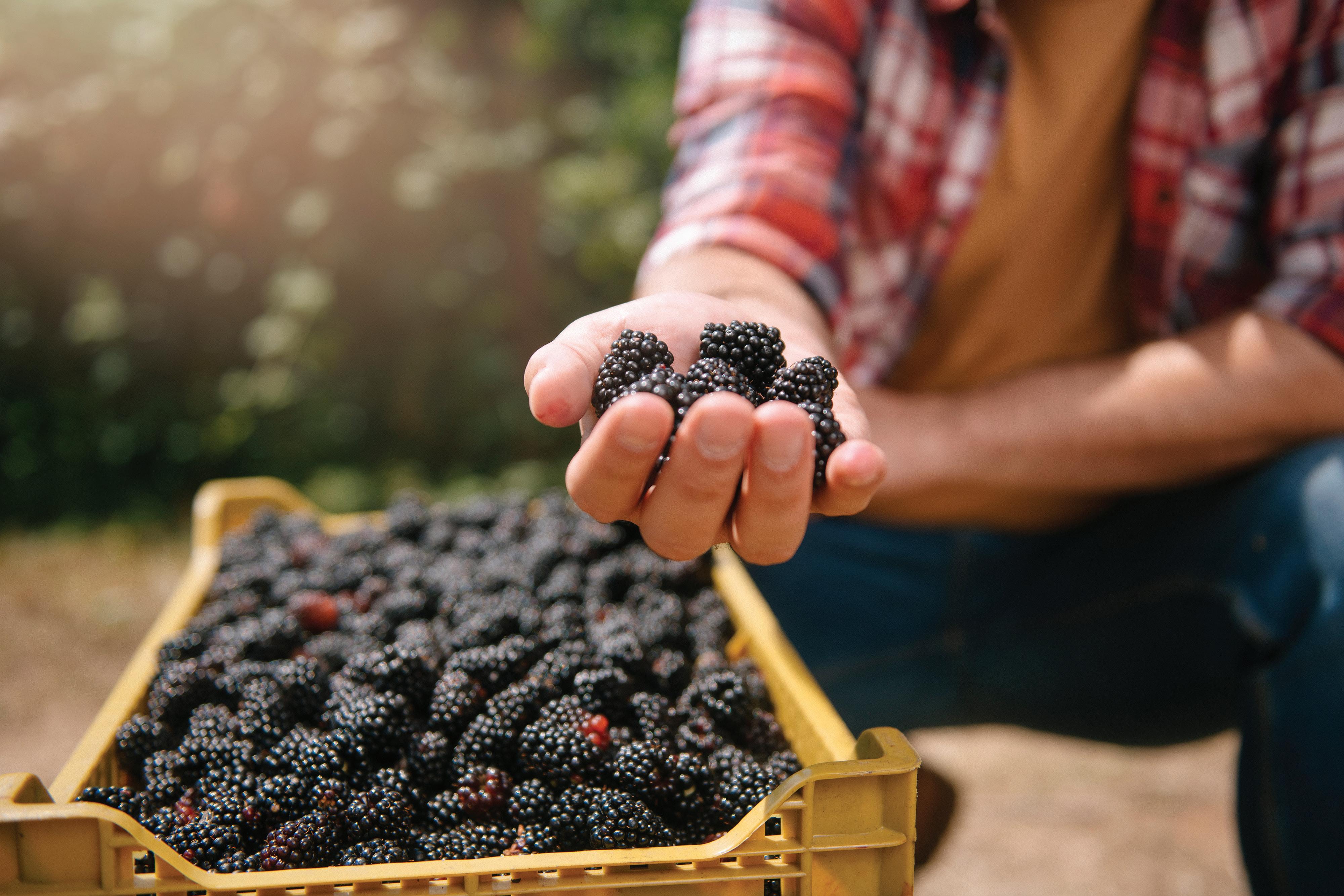

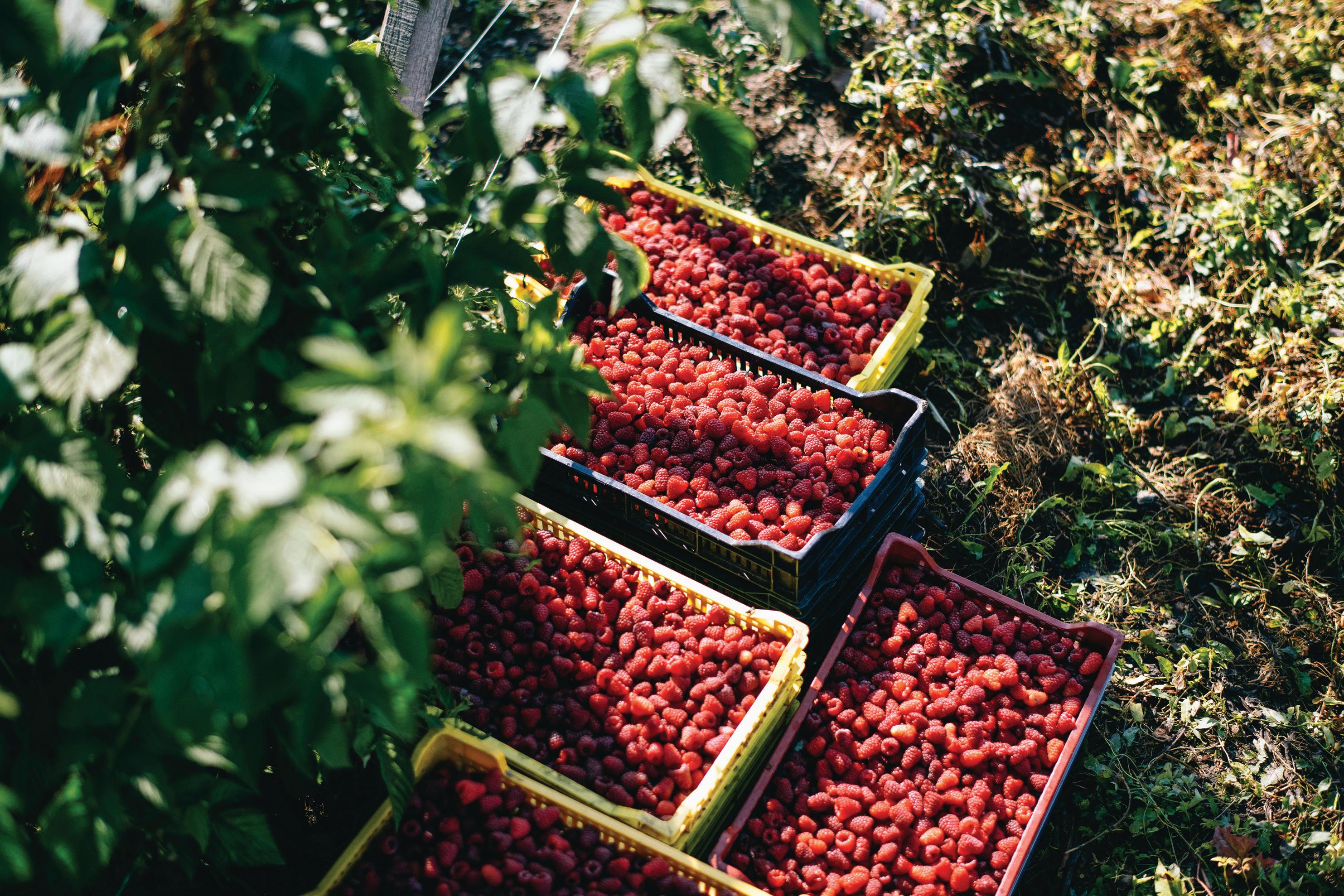
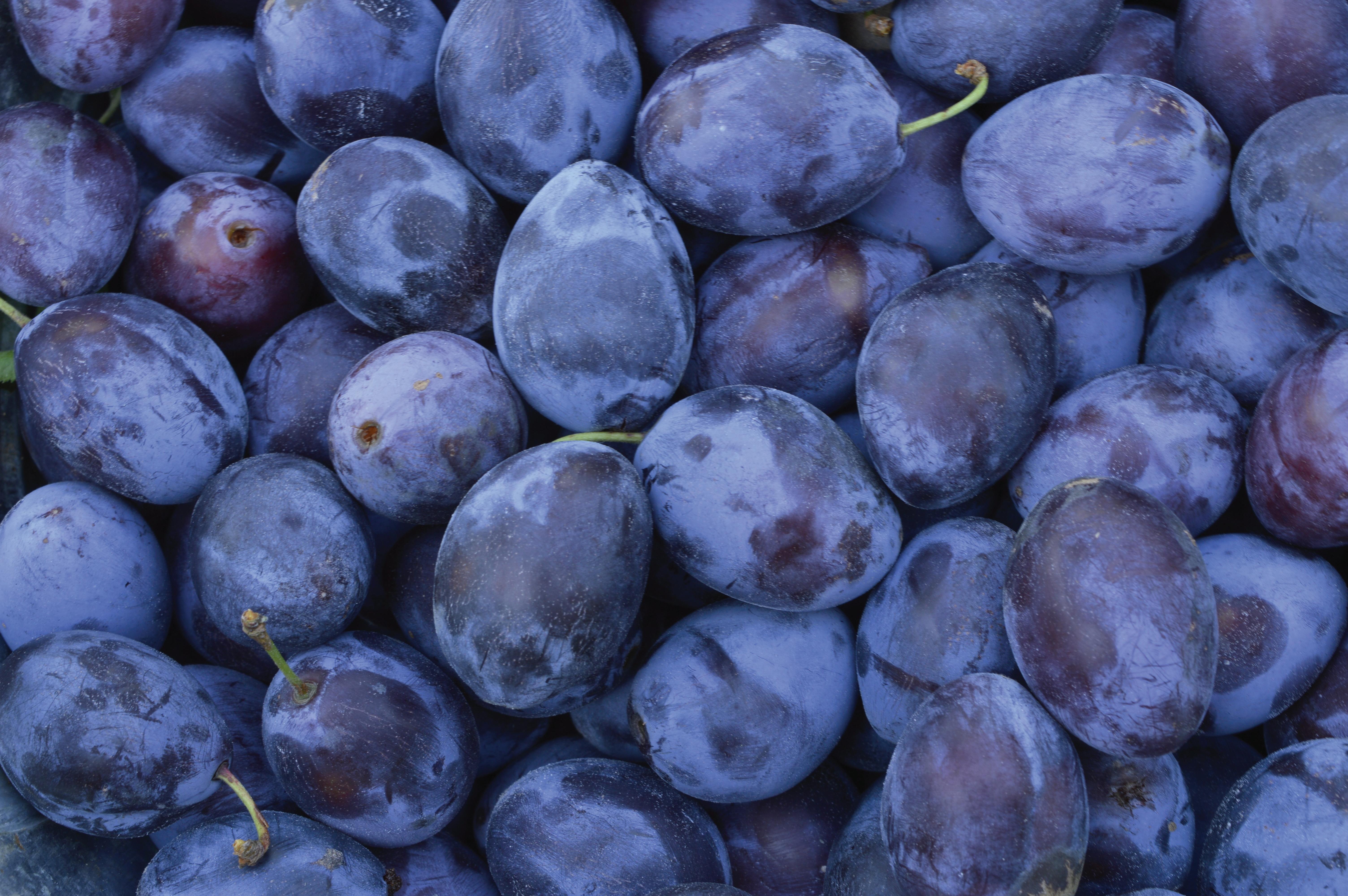

CULTIVATING EXCELLENCE, HARVESTING QUALITY: SERBIA'S FRESH PRODUCE PRIDE
Discussions around a set of new standards that will be compulsory from the start of January 2024 have taken place in Trentino-South Tyrol.
by Mike Knowles @mikefruitnet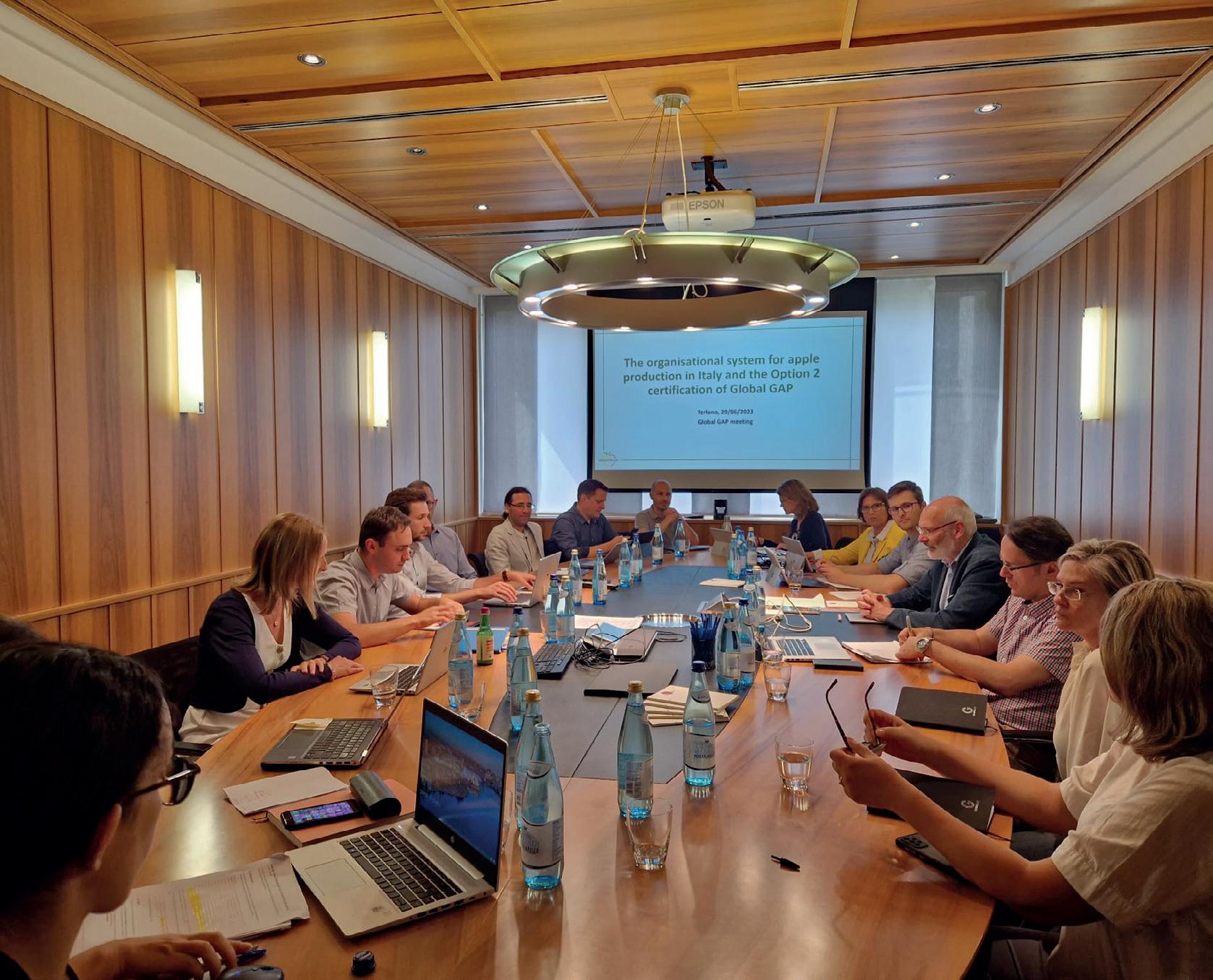
Large-scale producer groups can play a more central role when it comes to ensuring the safety, sustainability and ethical soundness of fruit and vegetable supply, but certification schemes must be simple and compatible enough if they are to be applied successfully.
That’s according to Assomela, the association of Italian apple producer organisations, which recently hosted senior managers from German company FoodPlus to
discuss the evolution of its GlobalGAP voluntary farm assurance scheme.
Elements of GlobalGAP’s Option 2 certification, which applies to groups of producers that share a mandatory quality management system, are due to be made compulsory from the start of 2024. These include a module known as IFA v6 that relates to integrated farm assurance, and another called Grasp v2 which regulates social practices.
According to GlobalGAP itself, it is not always easy for small-scale producers to meet those standards, since they o en lack the necessary resources, funding, or expertise.
During Assomela’s meetings with FoodPlus, which
took place in the north-eastern region of Trentino-South Tyrol, Option 2 certification was central to the discussion.
The association said it had asked for certain aspects of Option 2 to be simplified. In addition, both sides agreed on the need for new guidelines on how to ensure GlobalGAP remains compatible with local legislation without compromising its overall standards.
“The meeting was of mutual importance and satisfaction, both for the representatives of GlobalGAP, who were able to understand the quality and the cornerstones of the Italian cooperative system, and also for the producers, who found much openness to make the collaboration with GlobalGAP even more solid, but also more fluid,” commented Alessandro Dalpiaz, director of Assomela and member of the GlobalGAP board.
Elmé Coetzer-Boersma, managing director of FoodPlus, agreed with that assessment. “The visit was important to help us understand the implementation of group certification – option 2 – on such a large scale, where everything is organised via the producer organisations,” she noted. “It was insightful and illustrative of an outcome-based approach as intended by the new Integrated Farm Assurance v6.”
Also present were senior FoodPlus representatives Heidi Gremminger and Andras Fekete. Together with Coetzer-Boersma, they met with apple producers and representatives of GlobalGAP’s national technical working group, which is coordinated by CSO Italy.
More than 24,000 farms in Italy have GlobalGAP certification, including a large number of apple producers. E
INNOVATION AND STRATEGIC PRODUCE
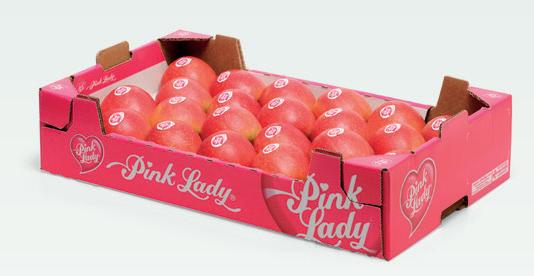




On the Italian and European scene for more than 60 years.
12 production plants and 12 reception and storage centres.
SOLARELLI TOP OF THE RANGE
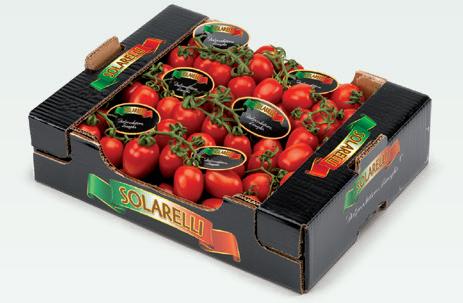
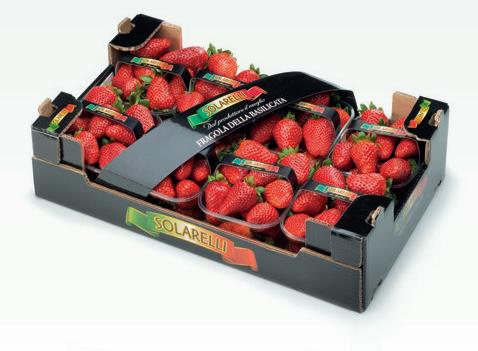

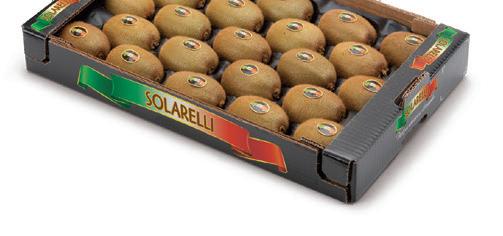
Specialization in the top italian fruit and vegetable products.
151.000 tons production.
SOLEMIO TOP QUALITY BRAND FOR FAR EAST
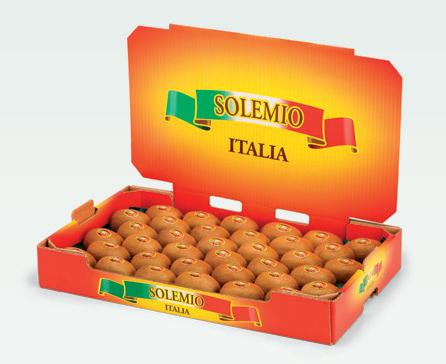
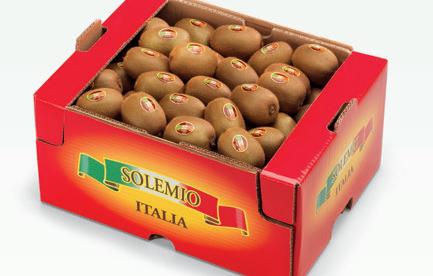

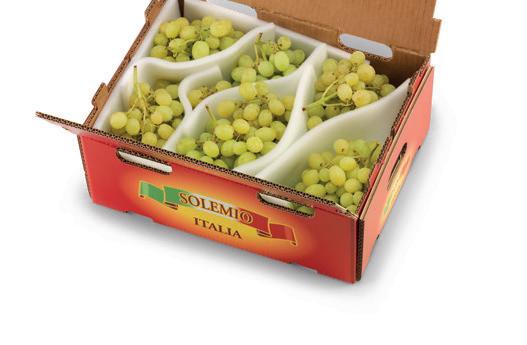
Adoption of integrated production for over 70% of production.
Leader in organic production
@carlfruitnet
Salix Fruits has announced the beginning of the Turkish apple campaign, noting that expectations are running high among growers and receivers across various markets ahead of a “promising season”.
The group said that, following a successful 2022, the overall crop forecast for the 2023 season “wasn’t
entirely clear” on the volume front. Preliminary indicators have suggested that export volumes could be a little slower this season. This is because of localised hail incidents, with some growers expecting different degrees of black spot issues, Salix Fruits said. Category 1 fruit could be down with more fruit sold domestically, the
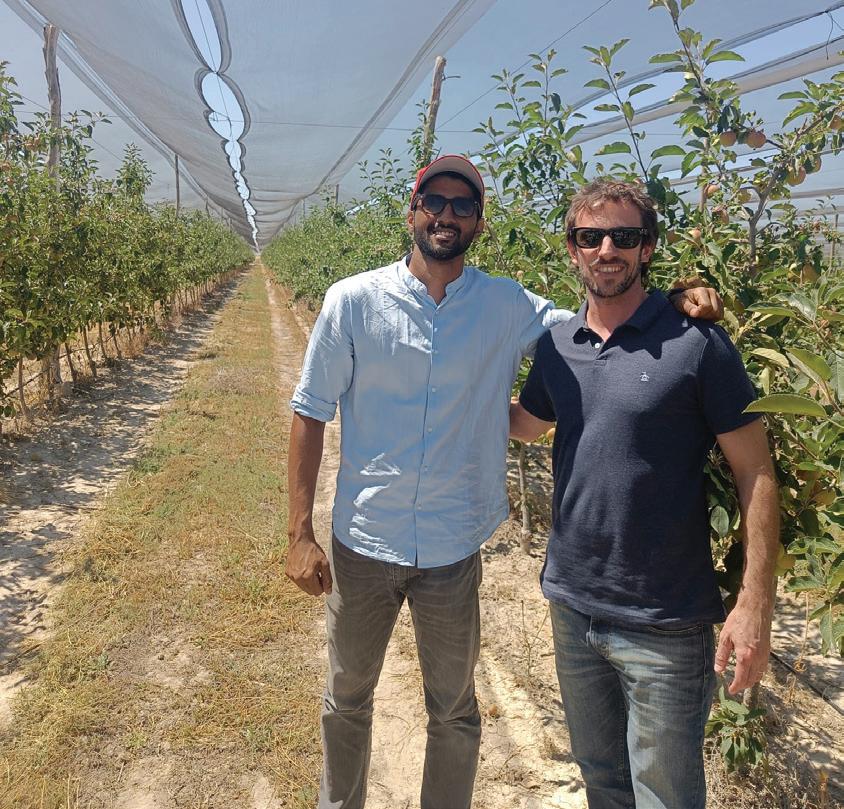
group added.
“Yet, we’re still looking at a good volume of highquality fruit for export markets,” said Javier Orti, sales manager for Asia at Salix Fruits. “Regarding the opening prices for the season, packers are seeing some pressure on production cost from farmers, though there is still some uncertainty due to inflation and exchange rate fluctuations.”
Red Delicious was described as a leading variety, with India standing as a key destination market. Gala

OPPOSITE AND BELOW—Salix
Fruits’ Javier Orti, sales manager for Asia, and Raed Khazi, country manager for India
was growing every year with new orchards coming into production, especially in the Karaman/Nigde area, the company outlined.
“Growers are expecting to start harvesting around the last days of August to the second week of September depending on the area”, explained Orti. “Good Granny Smith will be available, especially from the northwest region including the Challenger variety, with good potential for South East Asia.”
Salix Fruits said it offered a wide range of varieties including Fuji, Pinks and Golden Delicious.
“Taking a global view, India has seen significant growth in the past five years,” he continued. ”This season demand will be good, as the local crop is quite short. There is some concern regarding the comeback of Washington apples after the reduction in import duties, but still Turkish Red Delicious has earned its place in the Indian market at a more competitive price point.”
The Middle East is described as a pivotal market for diverse apple varieties, with Southeast Asia emerging as a robust growth sector, particularly for Gala and Granny Smith. Latin America and Thailand are seen
as compelling avenues for exploration, projecting a landscape of potential and growth, Salix Fruits said.
“Other products that we ship from Turkey include cherries and stonefruit, figs, pomegranates and citrus,” said Ortiz. “We are already discussing programmes with our customers, looking forward to a great season.” E


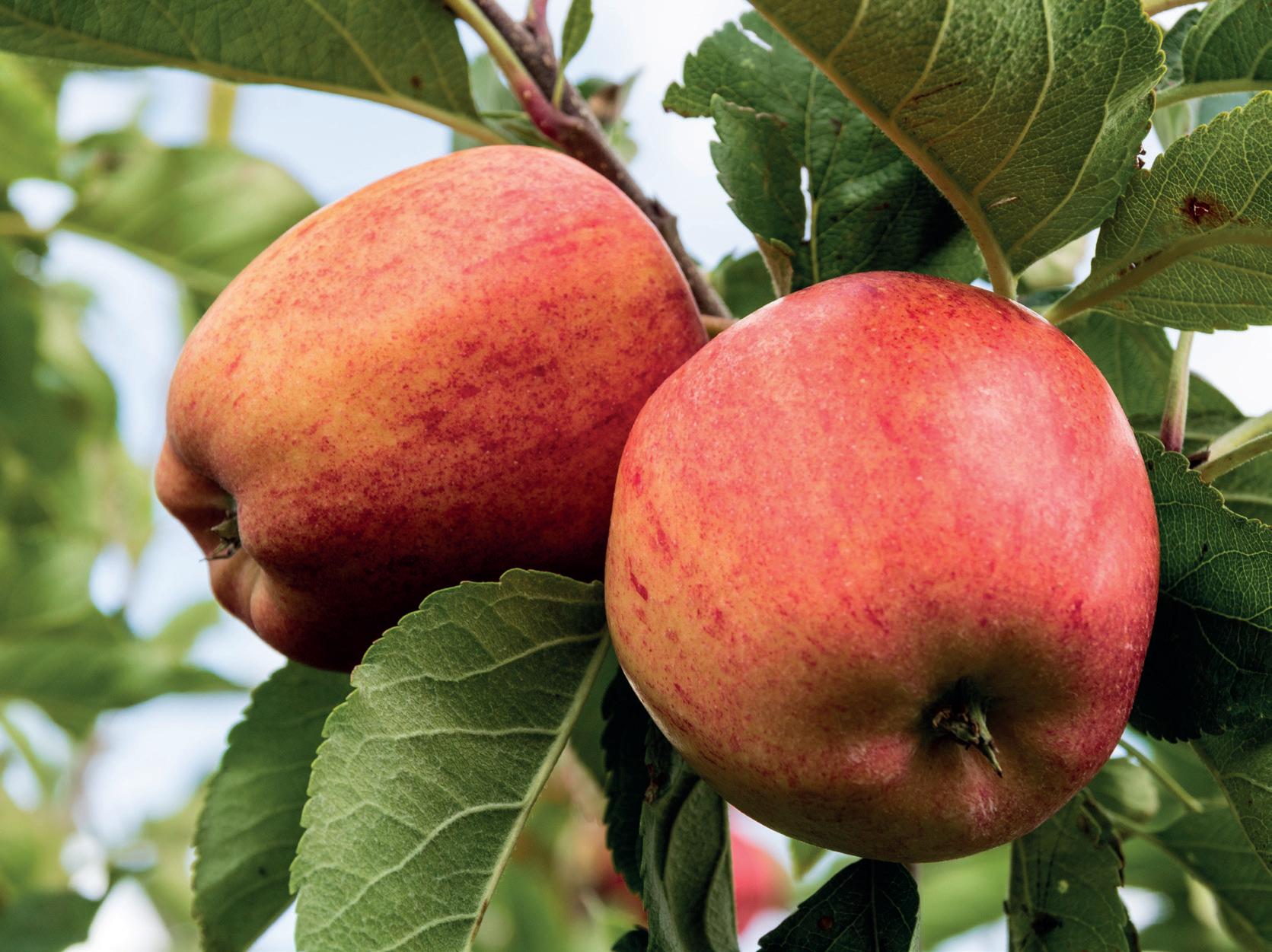
While many of France’s producers have cause once again to curse the skies this year, the country’s apple growers are so far experiencing the perfect start to the season.
by Tom Joyce @tomfruitnetFollowing a sweltering heat wave and record late summer temperatures in France, 19 of the mainland’s 96 departments were placed on red alert for heat, with 37 others at the lower orange level.
According to agroclimatologist Serge Zaka, plants tend to suffer when temperatures exceed 35C, causing concern over fruit produced in the 40C-plus temperatures experienced recently in the Rhône.
The lingering heat wave followed a period of unseasonably
wet weather in July. Laurent Grandin, president of Interfel, told AFP earlier this month that a fall in prices inferred a drop in consumption nationally, believed to be a result of the stormy weather.
Apricots, tomatoes, melons and plums were all placed on the crisis list by FranceAgriMer, which pointed to price reductions of 20-29 per cent compared with last year.
As we entered the new apple season in France, however, Arnaud de Puineuf of producer Innatis reported that the heat had been OK for the new season’s crop.
“It’s blocked colouration a li le, with 2-3 days lost, but there have been no issues with sunburn or anything like that,” he said. “We had a maximum of 34-35C so it has been manageable. We’re back to cooler
temperatures now so we believe there will be li le to no impact on the crop.”
Didier Crabos of apple grower Cofruid’Oc was upbeat despite the challenging heat. “The heat wave has not been too bad,” he said. “For the moment, the harvest is very promising in terms of quality in all varieties and is restoring the morale of the producers. The Gala season was completed in good conditions, and Reine de Reine e is progressing well. We protect our fruits with a clay spray. On the edge of the Mediterranean there is still a bit of a enuating air. We hope nature will be merciful to us until the end of the season.”
It is a reminder of how bad conditions were elsewhere that the only big Northern Hemisphere apple producer expecting more fruit than last year is France.
Last season, France not only had a low crop – the quality of that crop was also severely affected by a period of very high temperatures, reducing the packout further. This year, according to Blue Whale’s Marc Peyres, it’s a different story.
“This season, it has been the complete reverse,” he says. “The conditions in France have been very good up until the end of August. We have good water reserves for irrigation. It is probably one of the best crops we’ve ever had. The weather in France has been great for both volumes and quality. Colouration has been good. We have never sold so many Gala in August at such a high price. Of course, we are still in September. It has been a perfect start to the season, but we’ll have to see what happens.” E












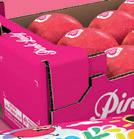




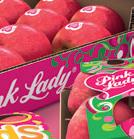



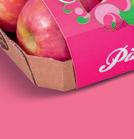





BayWa Global Produce returned to Hong Kong for Asia Fruit Logistica in early September, as consumer demand for its premium products continues to rise.
by Mike Knowles @mikefruitnetGerman multinational BayWa Global Produce says it sees more and more opportunity to sell apples in Asia, which it describes as the world’s fastest growing market for fresh produce.
The company’s various subsidiaries – T&G Global, Venturefruit, TFC Holland and BayWa Obst – took part as co-exhibitors at Asia Fruit Logistica, which returned to its long-standing location in Hong Kong on 6-8 September 2023.
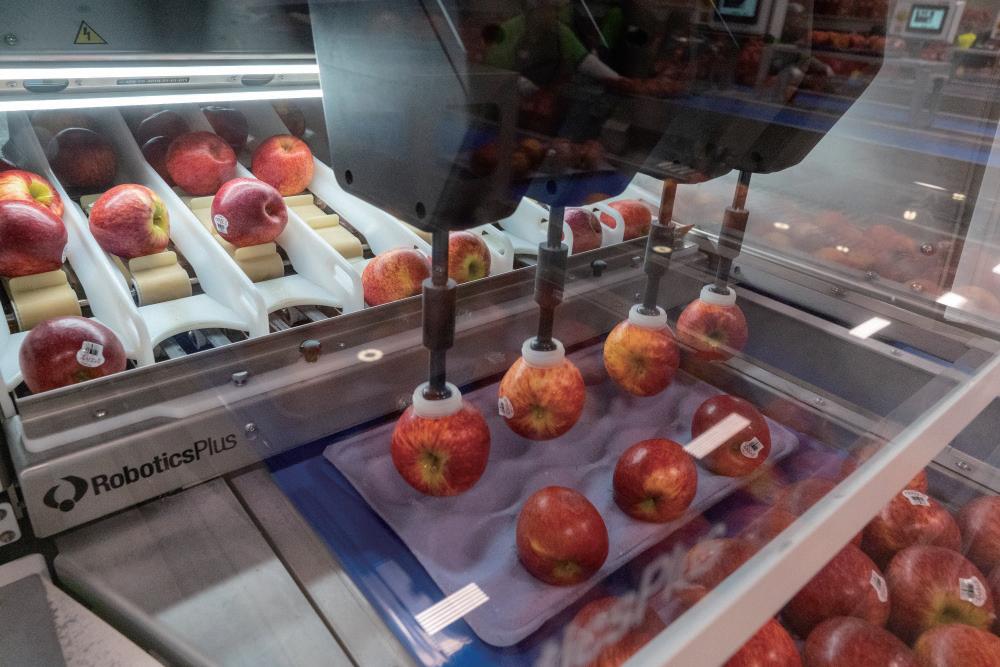
The group had some surprises in store for visitors to its combined stand, including an interactive experience to promote its premium apple brands Envy and Jazz.
“Asia is a key growth market for us,” says Benedikt Mangold, chief executive officer of BayWa Global Produce and chair of T&G Global. “We see significant increasing demand for our a ractive apples from various growing regions in Europe, America and New Zealand, including our premium Envy brand.”
“We see significant increasing demand for our apples from growing regions in Europe, America and New Zealand”
Despite a challenging environment and some “devastating” weather in New Zealand earlier this year, BayWa Global Produce says it has invested extensively in operational infrastructure at T&G Global, TFC Holland and BayWa Obst.
This, it says, has increased the resilience, capacity and performance of its global business and made its future success more secure.
The largest investment is T&G’s award-winning Whakatu packhouse in New Zealand’s Hawke’s Bay, a world-class, automated facility commissioned in May. According to T&G Global CEO Gareth Edgecombe, innovation of this kind is critical to the business and the sector as a whole.
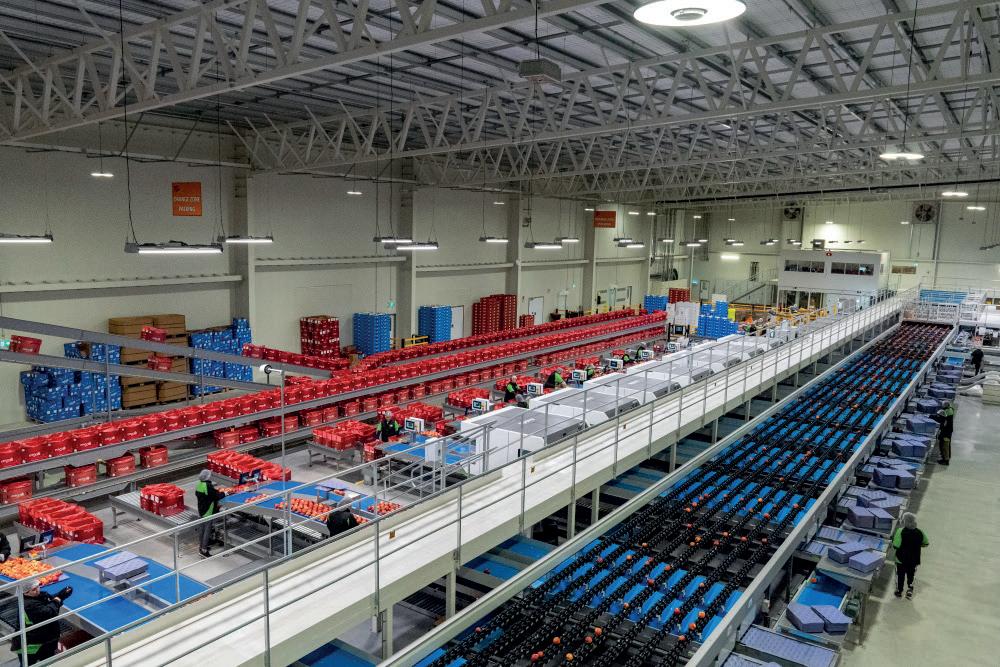
“This state-of-the-art post-harvest facility will be instrumental in enabling us to manage increased volume growth, li productivity, and underpin our future apple export growth from the region.”
And innovation in the form of new varieties that grow be er and taste be er remain an essential part of BayWa’s business strategy. Venturefruit, T&G’s IP management and marketing business, launched two new apple varieties commercially earlier this year, and this has apparently helped the group to strengthen its market position worldwide. E
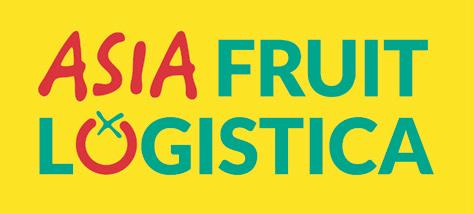
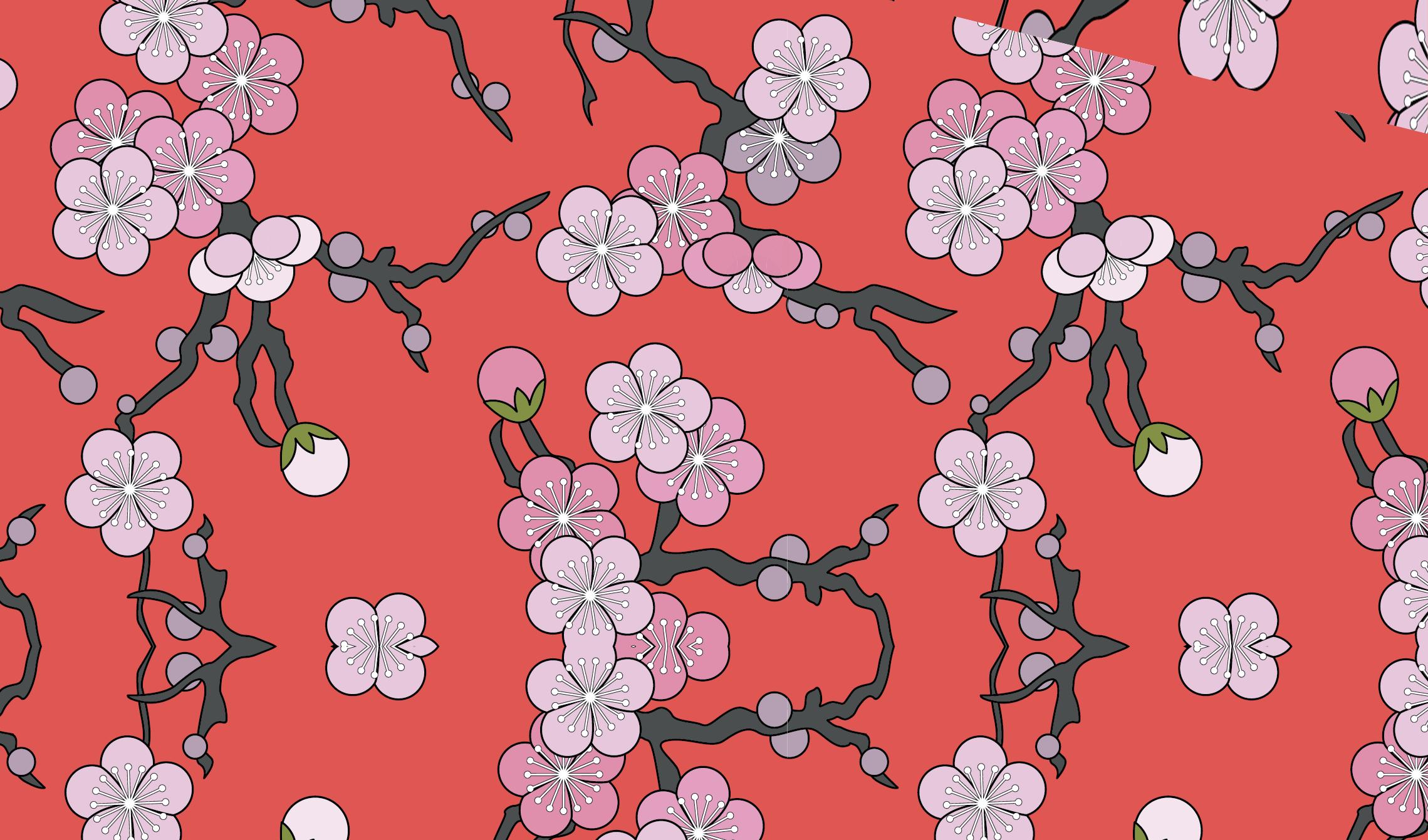
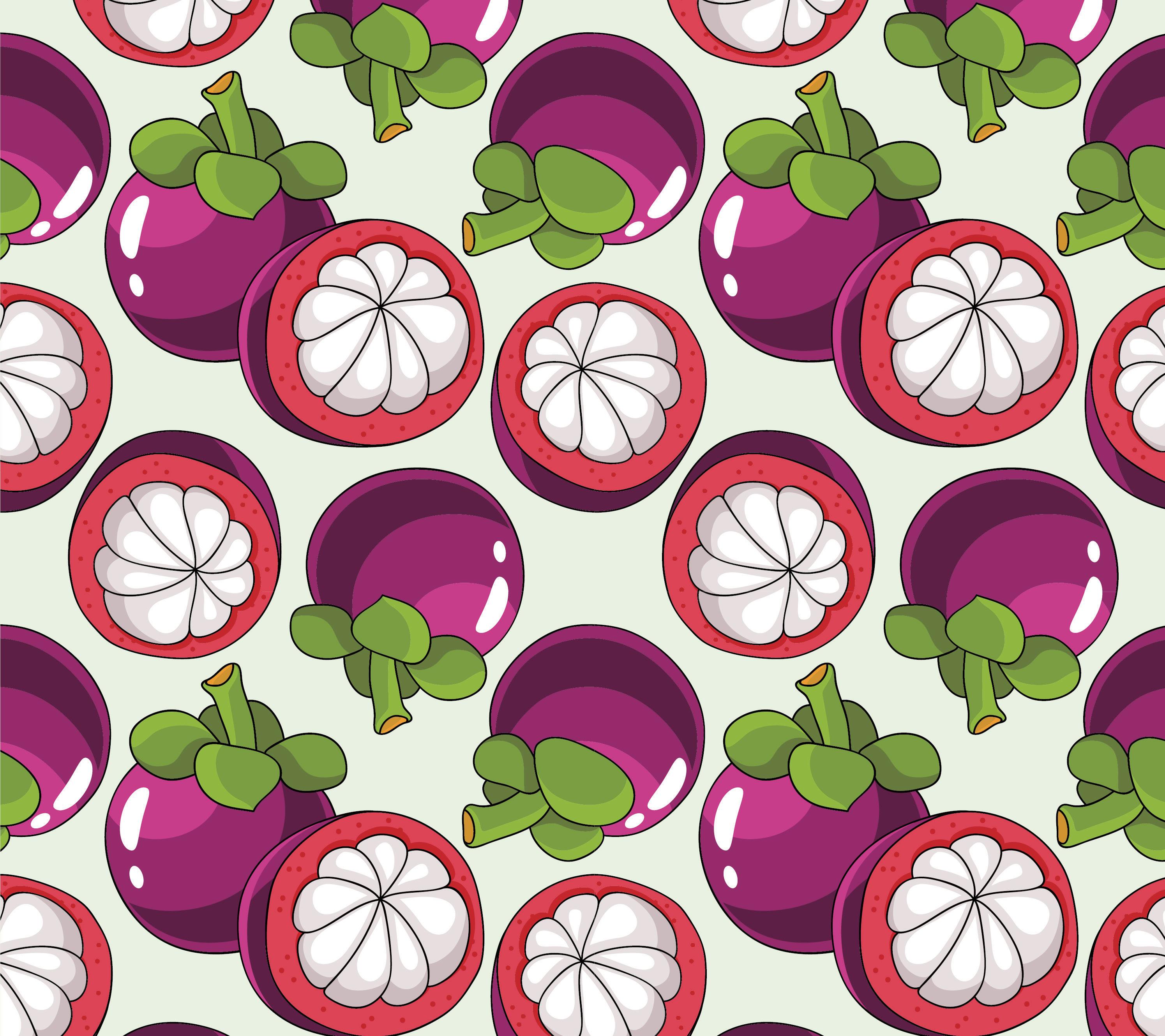
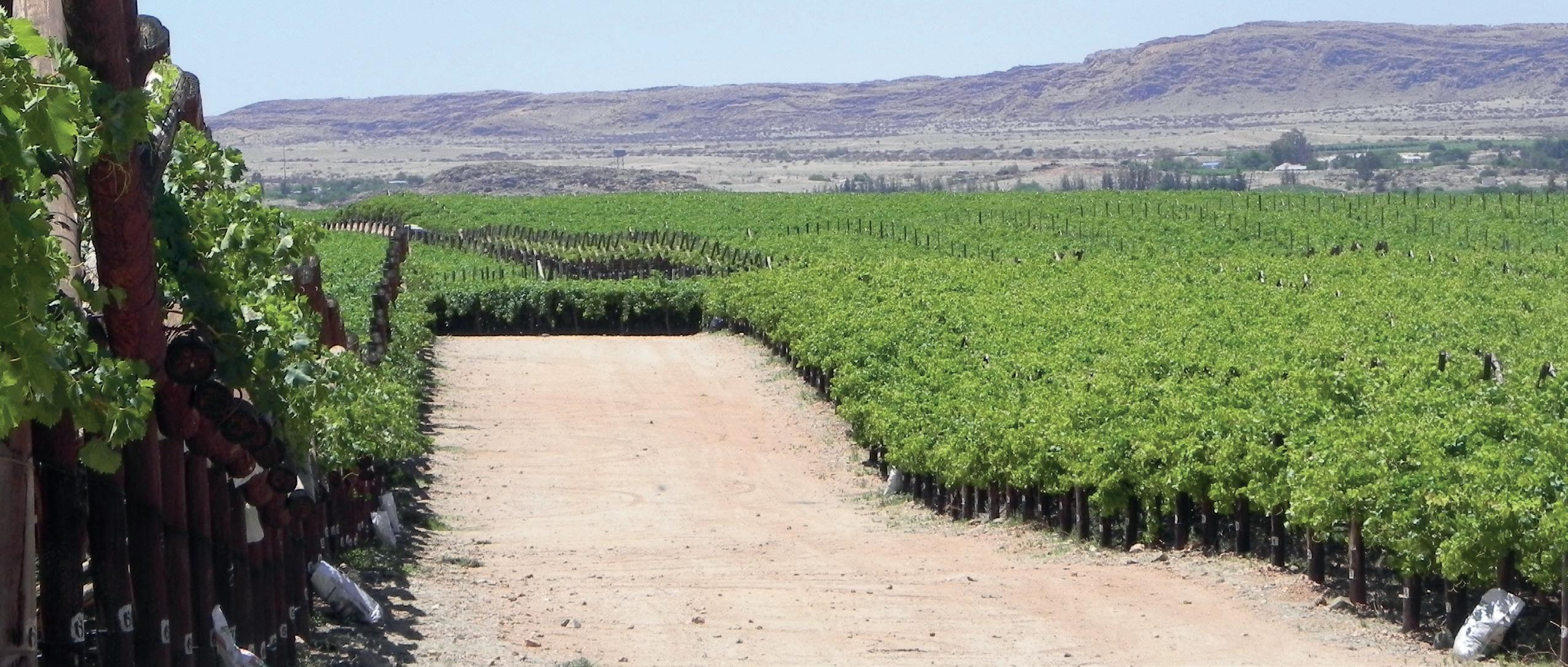
The 10th International Table Grape Symposium will be hosted by South Africa next month, covering the industry’s most pressing topics.
by Carl Collen @carlfruitnetSouth Africa will host the tenth International Table Grape Symposium in November, Its organisers, the South African Society for Enology and Viticulture (SASEV) and the South African Table Grape Industry (SATI), have reported “keen interest” from around the world, which means a unique opportunity for the South African table grape industry and academia to shape the category’s future direction.
Covering sustainability, breeding, disease control and climate change, the congress comes at a crucial time. Recent events, such as climate-induced disruption and floods, have been tough for the industry. So, panindustry collaboration and support from the scientific community are arguably more important than ever. According to SASEV and SATI, the symposium’s lineup of speakers will offer expertise and insight on the most pressing topics in the grape world.
Schalk Reynolds, who chairs the event’s organising commi ee, says an array of keynote speakers and highly qualified participants will focus on important areas like vineyard management and environmental sustainability, grapevine and crop protection,
“We are delighted with the response so far and I am sure this will be another crucial event for the world of the vine”
postharvest physiology and maintenance of grape quality and reproductive biology, fruit physiology and development, and plant growth regulators.
“We are delighted to bring so much experience from around the world together at this event,” Reynolds comments. “They come from Europe and the Americas, while our local extremely well qualified scientific support base will also participate. We are delighted with the response so far and I am sure this will be another crucial and very important event for the world of the vine.”
In the context of the changing global environment, the international table grape community is under pressure to respond and adapt, he continues. “This is why this is the ideal platform
to stimulate future thinking and to exchange ideas with global counterparts.”
An important part of the event’s programme this time round is the planned field tours to South Africa’s most important table grape regions. These include the Orange River, Paarl, Berg River, and the Hex River Valley.
“While new varieties from the world’s best breeding programmes can be viewed in the vineyards close to or during harvesting, much focus will be on optimising on-farm resources, dealing with climate change challenges and efficient packing and logistics,” says Anton Viljoen, chair of SATI.
Two of the tour destinations, Berg River and Hex River, together are responisble for delivering more than 50 per cent of South Africa’s table grape production, There, a whole range of new varieties will be on show for those who visit. And after the Symposium itself, there is also a chance to participate in two oneday tours of the Orange River.
“This is where the best of Sun World, SNFL, ARRA and IFG varieties will be viewed during or close to harvesting,” Viljoen adds. An opportunity, therefore, to get a deeper understanding of the industry’s future direction. E

South African growers, who have to evaluate up to 50 new varieties before they can make decisions on new plantings, have called for greater rationalisation and branding.
by Fred MeintjesThings are getting tougher for South African table grape growers in their choice of new varieties. Given the long-term nature of the industry, and sharp rising cost of planting vineyards and bringing them into production, growers cannot afford mistakes.
While most are pleased with the fact that they have access to the world’s best breeding programmes, the sheer number of new varieties they have to assess before deciding to establish commercial plantings makes their task almost impossible.
“There are now close to 50 new varieties on offer to us and they are aggressively marketed by the various breeding companies,” says Alwyn Dippenaar, managing director of Dippenaar Choice Fruit in the Orange River. “For us it is hard to choose varieties which will give us a full cover throughout the season.”
Previously South African growers told Eurofruit that there were perhaps only about six varieties regarded as very good to excellent in terms of production and marketing requirements.
“What is needed are other similarly good varieties from early to late in the season which will allow us to market our range of, particularly, white and red seedless varieties seamlessly throughout the season,” says veteran Hex grower Leon Viljoen.
The debate on what to plant continues to dominate talk in the vineyards. In the past growers were keen to take risks in order to
stay ahead. They now point out that in the present climate of cost increases they cannot afford to take such risks.
Producers also argue that if table grapes are to take their place competing with other categories globally, it will be increasingly important to have a presence in the form of branded cultivars. This will create confidence in certain products, which will hopefully translate into increased profits that return to the producer.
As it stands, grapes are only offered as either red, white or black seedless varieties. “There is no promise of exceptional taste, flavour and quality in that sort of branding,” says Dippenaar.
There are exceptions, such as the latest announcement by international table grape breeder Sun World, which is launching a new brand of red seedless grapes, Ruby Rush. Sun World has also announced that it is introducing a global Autumncrisp brand.
“We need to do something to rationalise a bit,” adds Dippenaar. “The breeding programmes have exploded with increasing numbers of new varieties which do not make our lives easier.
There is no sense in building brands for varieties which may only be on the shelf for a couple of weeks and they will have to be in the consumer’s eye.” E
ABOVE—There are many new table grape varieties to assess
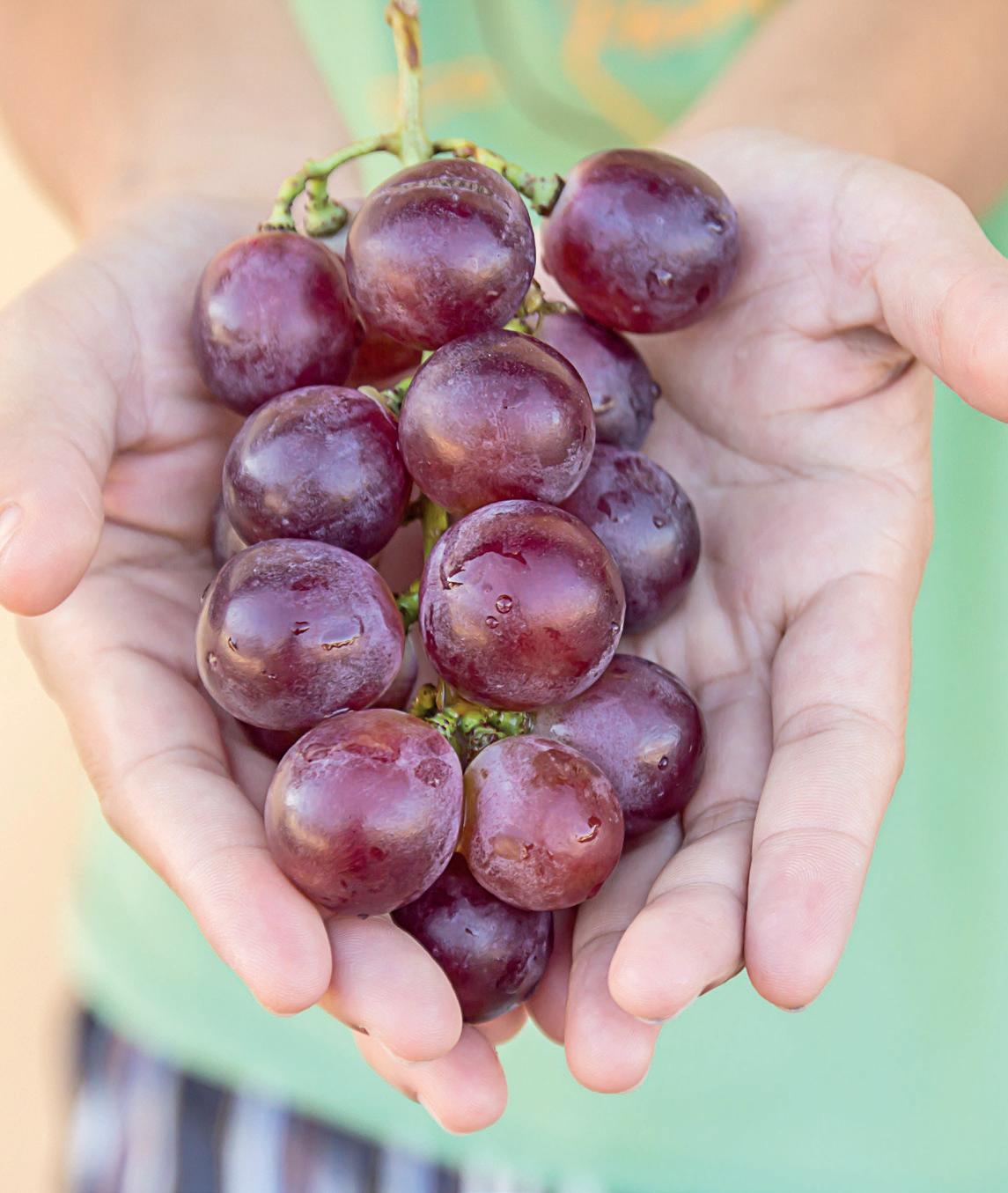
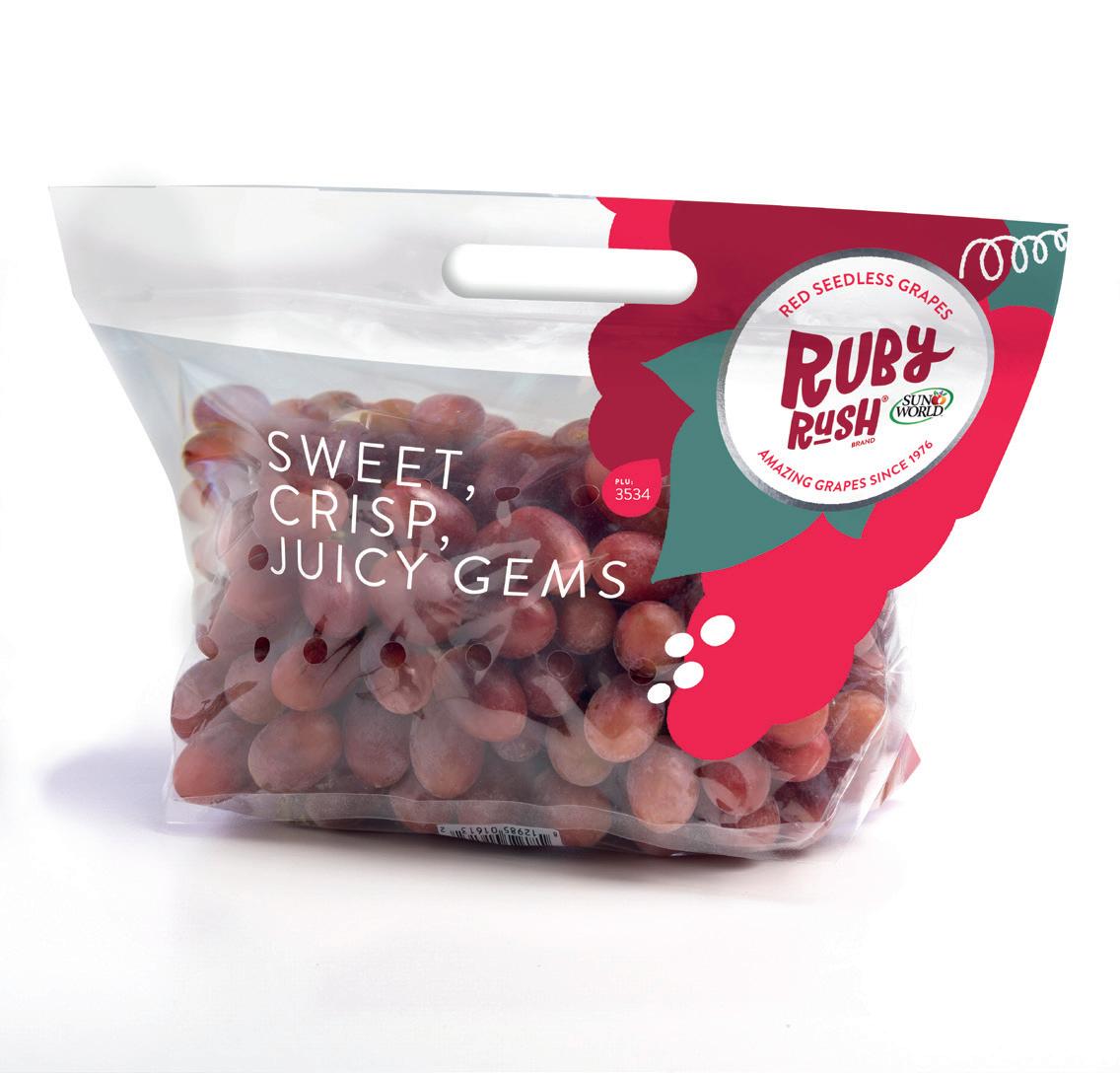


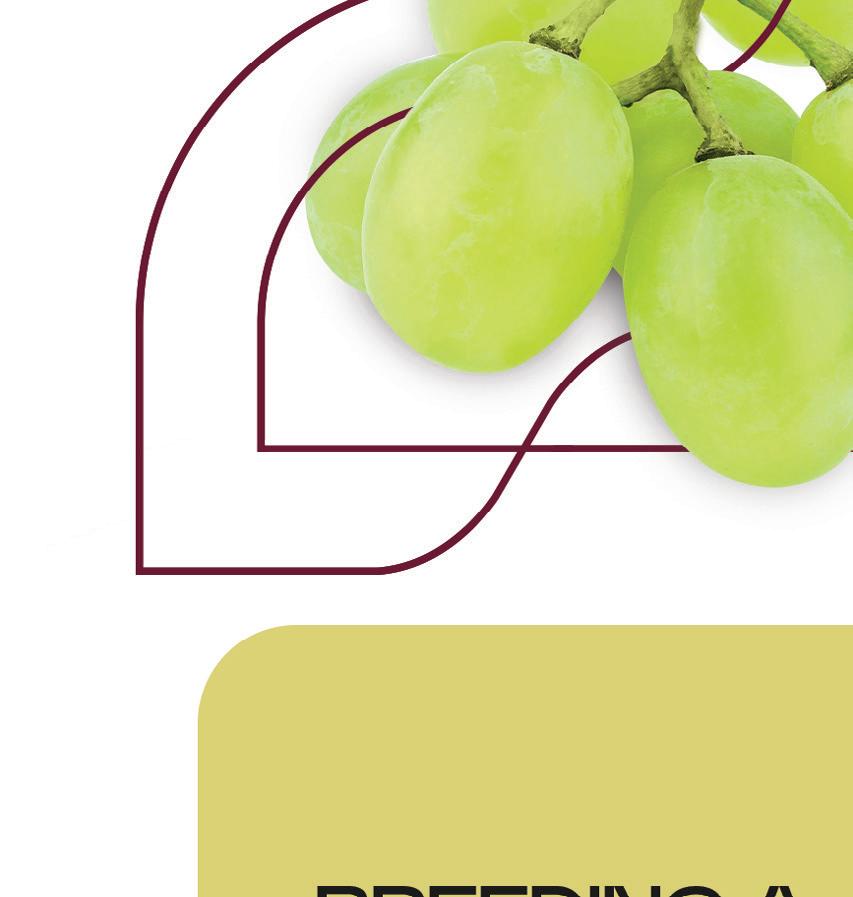
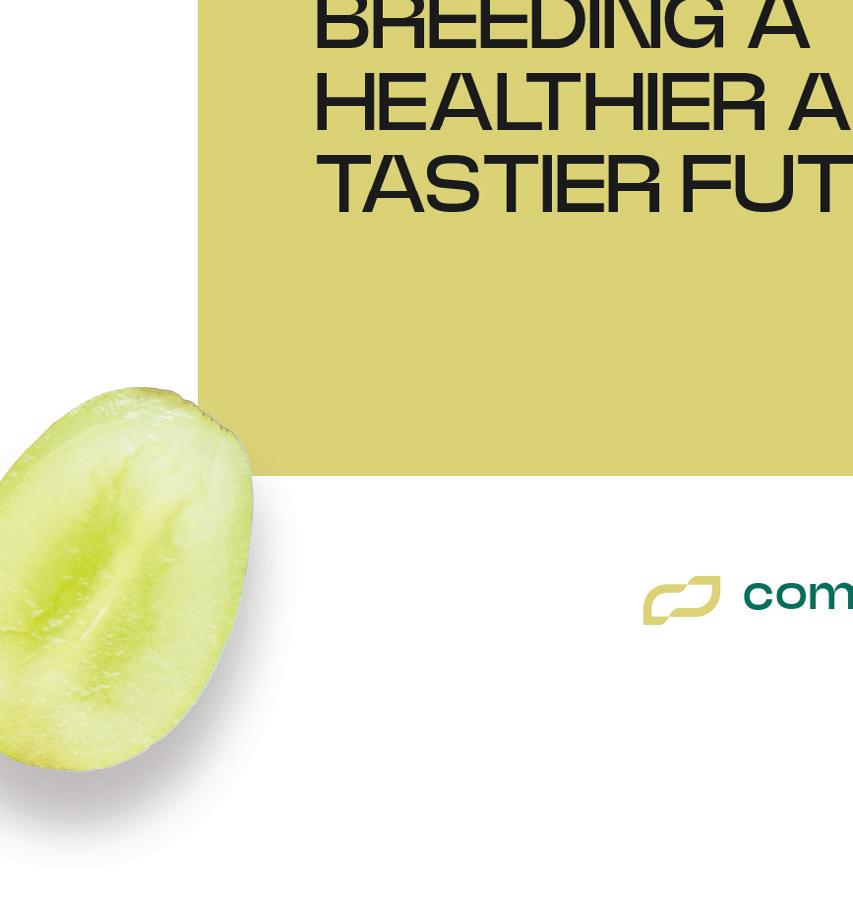
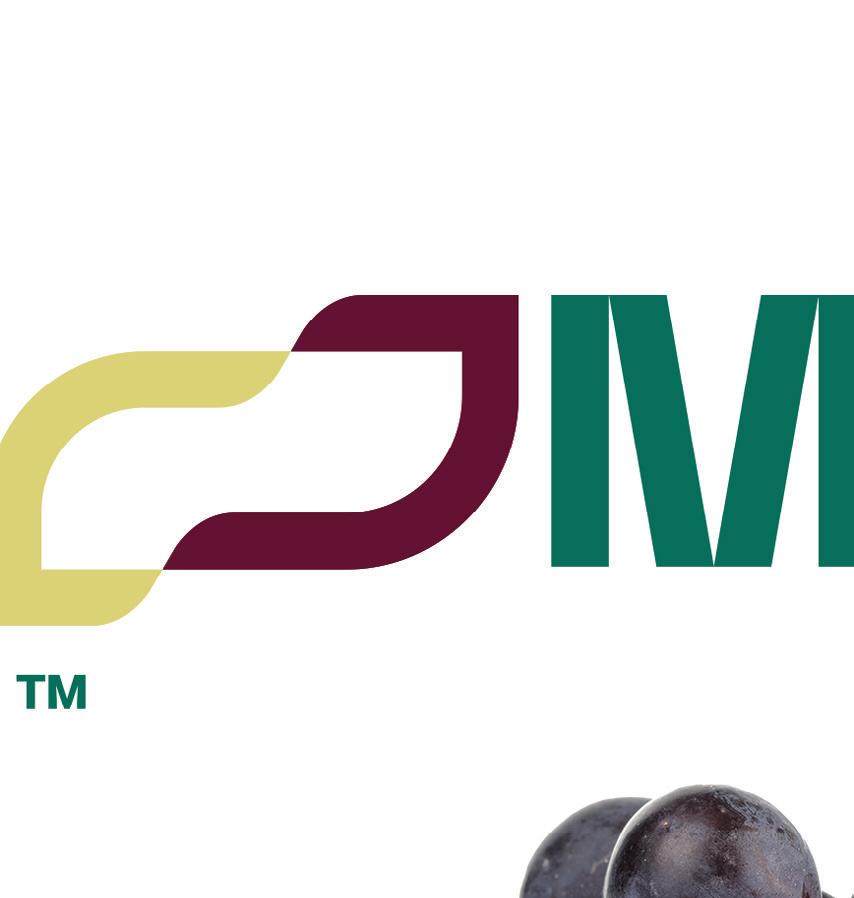
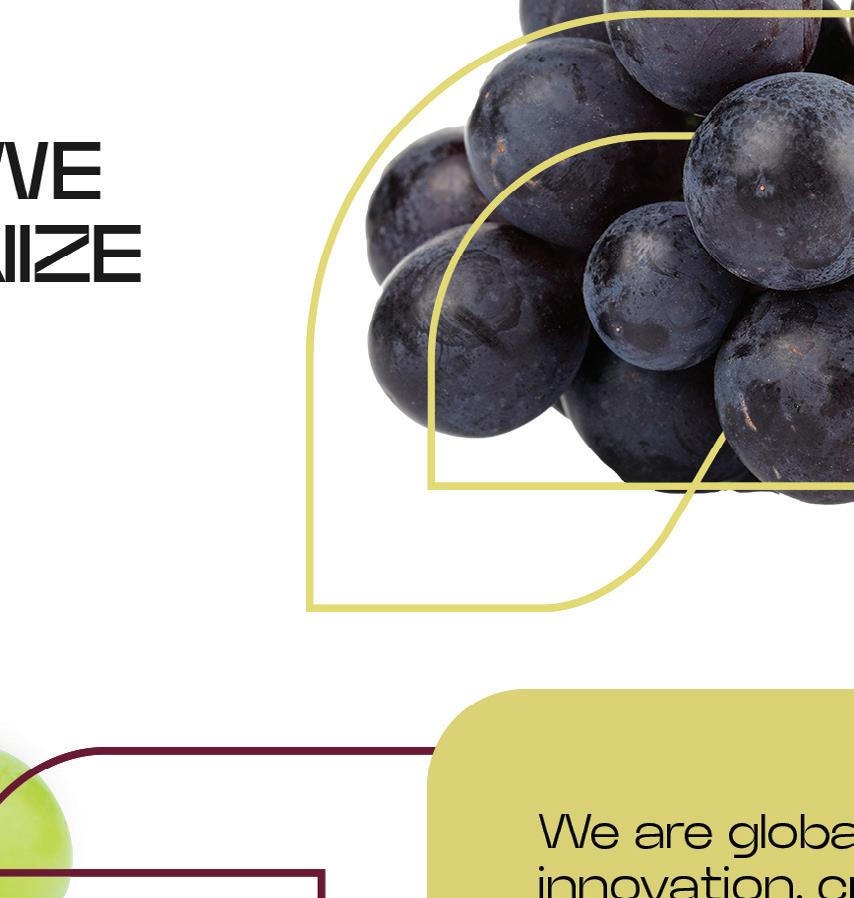
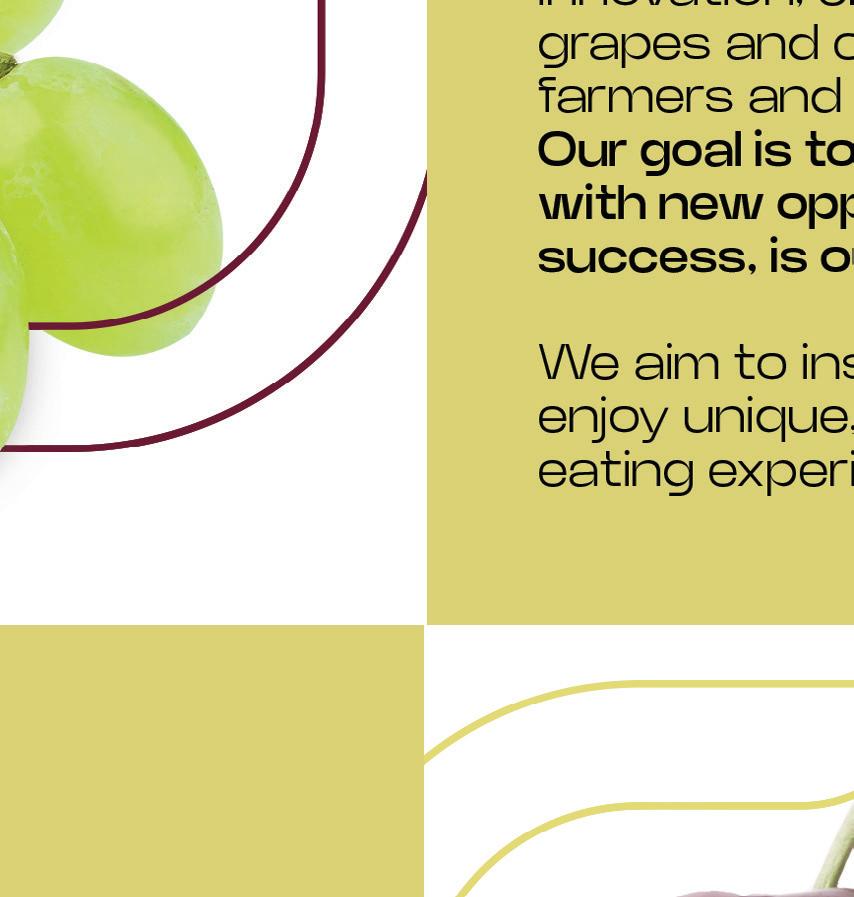
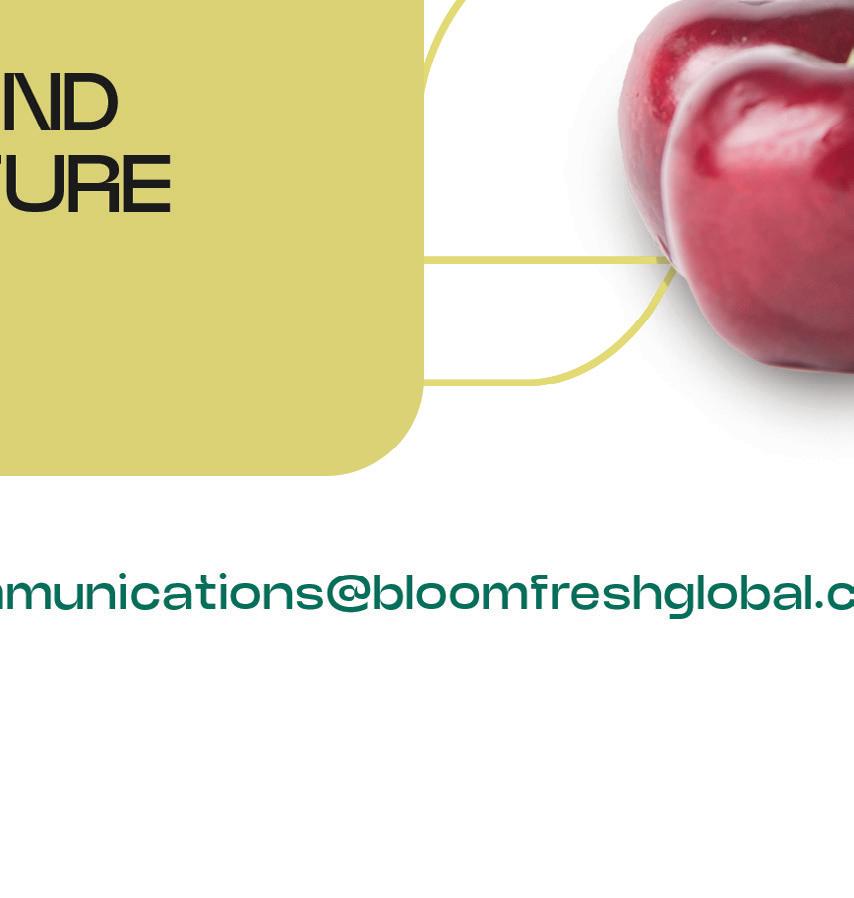



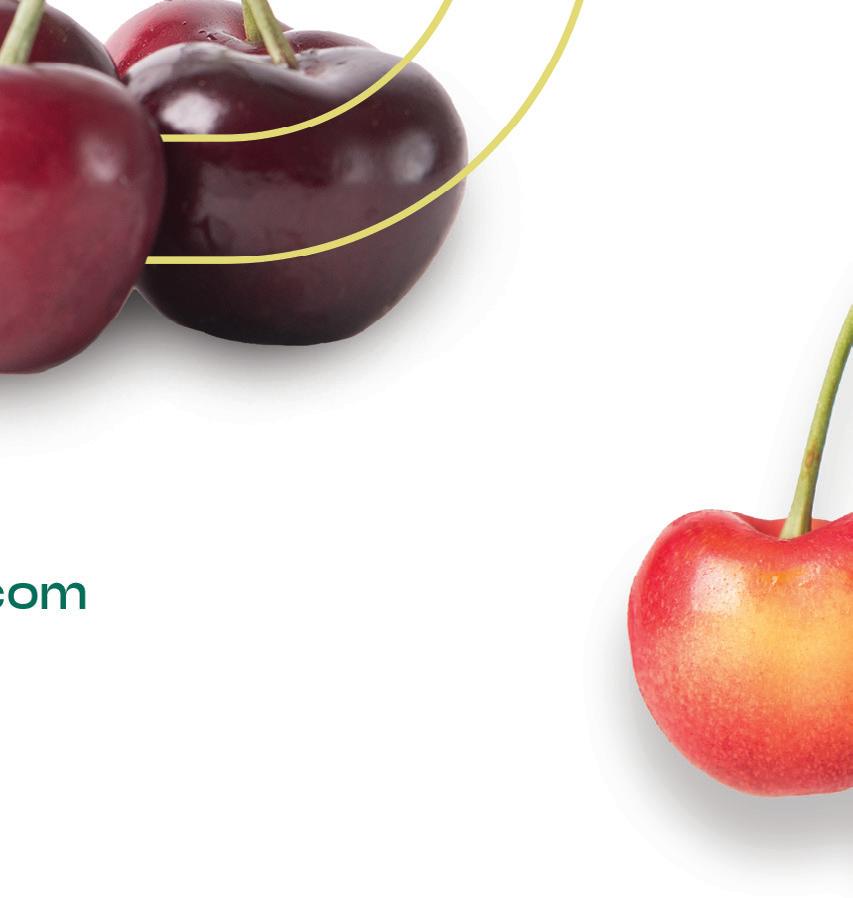

Harvesting in Puglia was underway in July and set to continue into October, as consumer interest in organic fruit reportedly grows.
by Mike Knowles@mikefruitnet
Demand for organic seedless grapes continues to grow, according to one of Europe’s largest suppliers, Italian group Almaverde Bio.
In July, growers in Noica aro, Puglia, belonging to the producer organisation Terra di Bari began to harvest early table grape variety Sugraone, and will finish in October with Autumn Crisp.
“Sweet, crunchy, versatile and above all organic, seedless grapes a ract consumers all over Europe for their ease of use and goodness,” said a spokesperson for Almaverde Bio.
This year’s crop is described as being “of extraordinary quality” in terms of flavour, colour and berry size. The grapes are packaged and then sold in Italy itself as well as other markets in Europe, where
demand is said to be “progressively growing”.
Terra di Bari’s organic grape production techniques preclude the use of chemical substances such as pesticides, herbicides and synthetic fertilisers. Instead, the group relies on natural methods to fight against diseases and pests, including mineral and natural substances, biological insect control, crop rotation and organic fertilisation.
Furthermore, it says, its methods promote genetic diversity in the plants, a reduced environmental impact, and respect for the natural cycle of the seasons.
The marketability of seedless table grapes is also strong, the group

suggests, especially to children. “Seedless grapes have a high and constant sugar content and keep for a long time,” it notes. “They have a thin skin, an intense and bright colour, and a crunchy and juicy pulp. The taste is sweet and aromatic, with notes of fresh fruit and a slight acidity.”
Furthermore, organic seedless grapes are said to have a high concentration of antioxidants and vitamins such as vitamin C, vitamin K and folate which make them “particularly healthy”, and are regarded as an excellent source of water and fibre, which promote digestion and physical wellbeing.
“A high quality product, therefore – thanks to organic cultivation – and one destined to conquer more and more space in consumer purchases thanks also to the added value of the guarantee offered by the European Union through organic certification.”
Almaverde Bio’s It’s Bio project, which is funded by the EU and an Italian association called AOP Gruppo Vi.Va, promotes the values of European quality production guaranteed by that organic certification.
Several different Italian produce companies have taken part in the project: Almaverde Bio, Apofruit, Codma OP, Ca’ Nova, Coop Sole, AOP La Mongolfiera, OrtoRomi and OP Terre di Bari. E





The creation of a new memorandum of understanding has enabled eight of Italy’s leading grape regions to draw up a shared plan to boost sales.
by Mike Knowles @mikefruitnet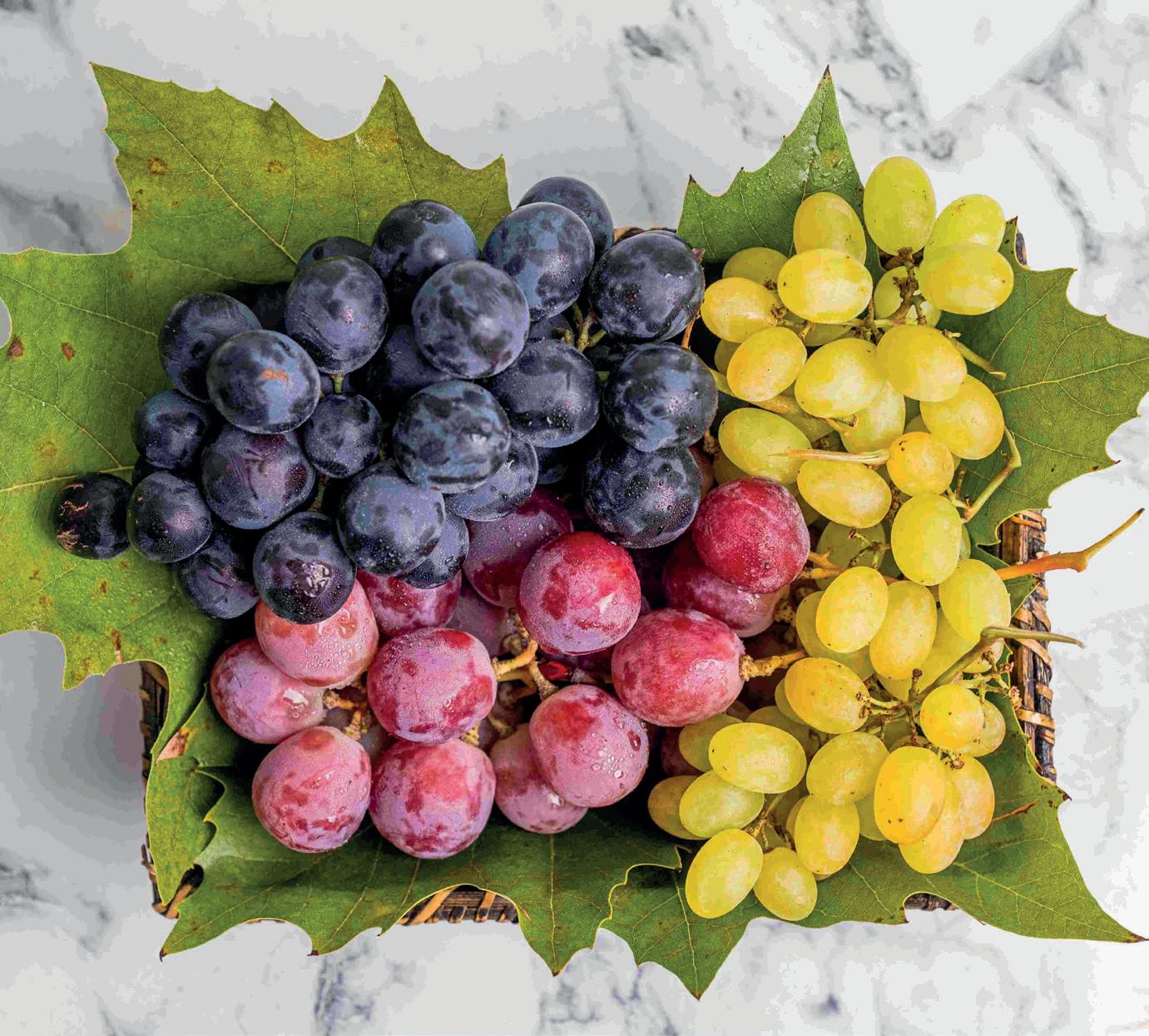
Eight of Italy’s most important fresh grape production areas have agreed to pool resources and work together on joint promotional activities to support sales and exports of the fruit.
The mayors of each of the eight zones, which are located in Puglia and together form Italy and Europe’s largest production centre for table grapes, signed a memorandum of understanding to that effect during Regina di Puglia, a four-day event held in July in Noica aro, just south-east of Bari.
The initiative is seen as a unique project in Italy’s fruit and vegetable sector. Puglia’s regional agriculture representative Donato Pentassuglia
told the event: “Here [is] a new process, above all cultural, to build a network of relationships that is fundamental for our agricultural economy.”
Also present was Alfonso Pecoraro Scanio, president of the UniVerde Foundation and former Italian Minister of Agriculture. “Table grapes, a forgo en excellence, are finally valued by telling people about their territory,” he commented.
Giacomo Suglia, president of Puglia export association APEO, underlined the region’s importance when it comes to a product that is second only to apples in terms of the country’s fruit and veg exports. “58 per cent of Italian table grapes come
from here, something like 600,000 tonnes, but we must stop talking about it among ourselves,” he urged. “We must make our role known in the local and national economy.”
Donato Fanelli of Italy’s recently established table grape consortium CUT, believes the new entity will play a vital role. “The commission is there, and we can become the Assomela of table grapes,” he suggested. “In a few months we have already registered 11,000ha, the first big step for a national product register.”
The eight zones involved are Noica aro (which has led the project’s initial development), Aldelfia, Casamassima, Castellaneta, Gro aglie, Mola di Bari, Rutigliano, and Turi.
Buyers from Italy, France, Germany, Switzerland, Poland, Lithuania and the United Arab Emirates took part in Regina di Puglia, a series of initiatives designed to raise awareness of table grape production in the south-easternmost Italian region.
The event has the backing of local authorities and regional officials, as well as gold sponsors Generazione Vincente and OP Pignataro, and silver sponsors OP Meridia and Industrie Tecnologiche. It also a racted wider support from the Puglia region: an official agreement with the city of Bari was signed recently, and other regional municipalities were expected to follow suit. E
PICTURED—Puglia plays a key role in the European market by offering different varieties of seedless grape
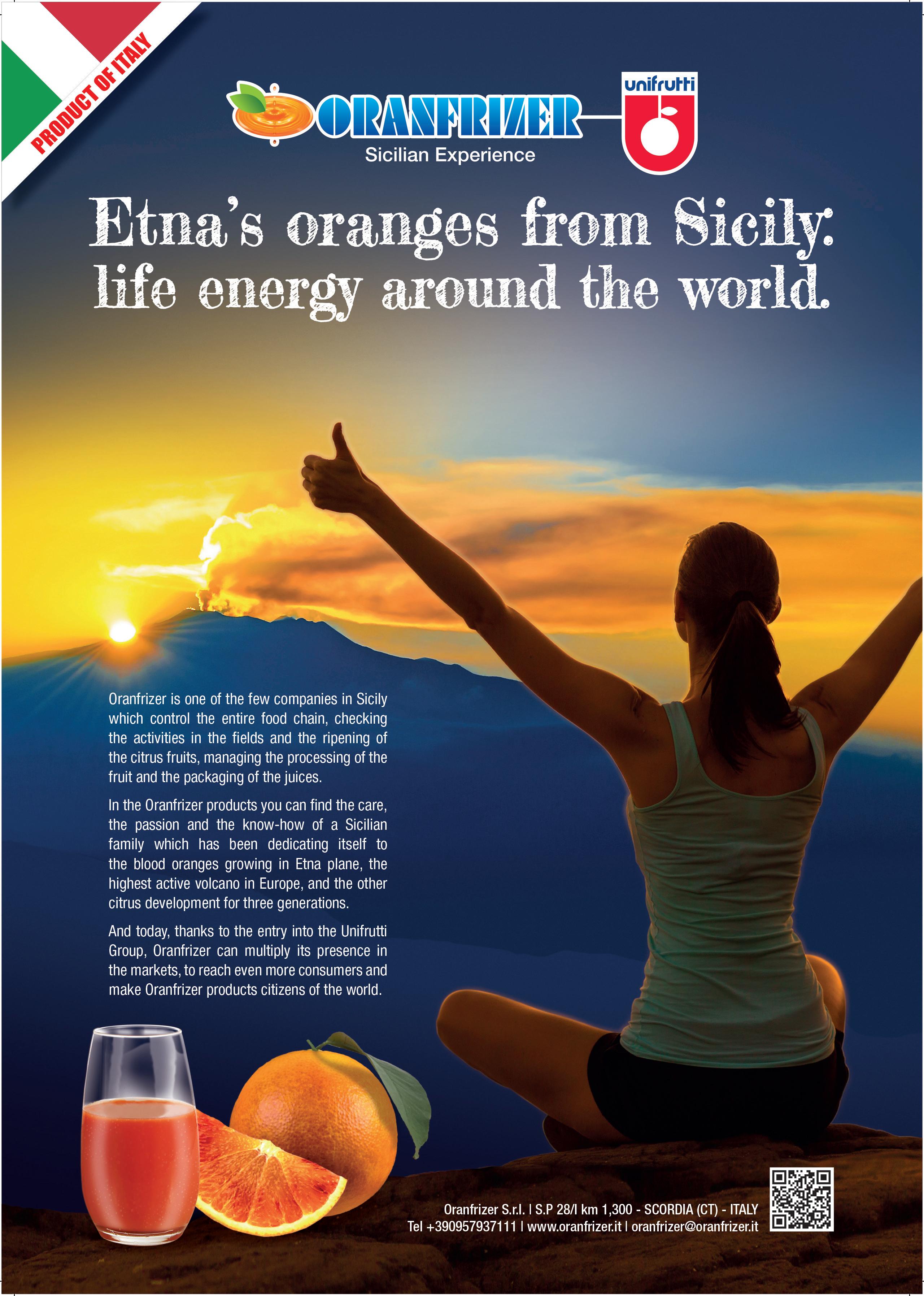

Autumncrisp campaign looks to raise retail and consumer awareness and stimulate demand for the branded grapes.
by Carl Collen @carlfruitnetSun World International has announced the launch of a first-of-itskind global marketing campaign for Autumncrisp branded green seedless grapes. The fully integrated campaign, which Sun World said was ”expected to be the largest-ever for a branded grape”, aims to raise retail and consumer awareness and stimulate demand for Autumncrisp.
“Over the past 20 years, the produce industry had made great strides in successfully branding and marketing improved varieties of select fruits and vegetables – from apples and strawberries to pineapples and seedless watermelon,” said Sun World CEO David Marguleas. “The Autumncrisp brand grape is the perfect vehicle for transforming the table grape
category in a similar fashion.”
Autumncrisp is a Sun World brand used to identify its proprietary Sugrathirtyfive variety table grape, a mid-to-late season green seedless variety.
“Autumncrisp brand grapes are huge, exceptionally crisp and very juicy,” Marguleas continued. “Plus, they are sweet with a subtle hint of Muscat (notes of citrus, rose and peach flavours). Not to mention, they look beautiful – oval and milky green. It’s a full sensory experience.”
Sun World has been collaborating with its licensees around the world in recent years to expand supplies and near yearround availability of Sugrathirtyfive
variety Autumncrisp brand grapes. They are now grown in most major grape growing regions, including Australia, Chile, Peru, Brazil, South Africa, Egypt, Spain, Italy, Portugal, Israel, Mexico and the US.
Sun World vice-president marketing Jennifer Sanchez noted that, as Sun World had built a global supply platform, Autumncrisp had won fans and exceeded expectations in taste tests. Sanchez said the official launch and integrated global marketing campaign had arrived at the perfect time as supplies reached record levels and international availability expanded.
“We are leaning heavily into the grape’s showstopping key differentiators – taste experience, fruit size, colour, and juiciness,” she said. “The global branding, the creative and its execution will stand apart from any other table grape branding or promotion that’s been conducted in the past. A er all, it is the first-of-its-kind global table grape brand marketing campaign, and we intend to make a meaningful and lasting experience.”
Sun World’s campaign will feature heavy digital marketing aimed at the brand’s target consumers, in-store marketing, sampling in retail stores and food festivals, media outreach, collaborations with food influencers and social media outreach. While the outreach will be global, Sun World has said it will also go deep in designated US and Asian test markets.
“Within these markets, which we will unveil in the coming weeks, we look forward to working closely with selected retailers and Sun World licensees to create meaningful ‘pull-through’ and illustrate Autumncrisp’s potential,” Sanchez added. E
ABOVE—Autumncrisp, a Sun World brand used to identify its proprietary Sugrathirtyfive variety
BELOW—Sun World CEO David Marguleas
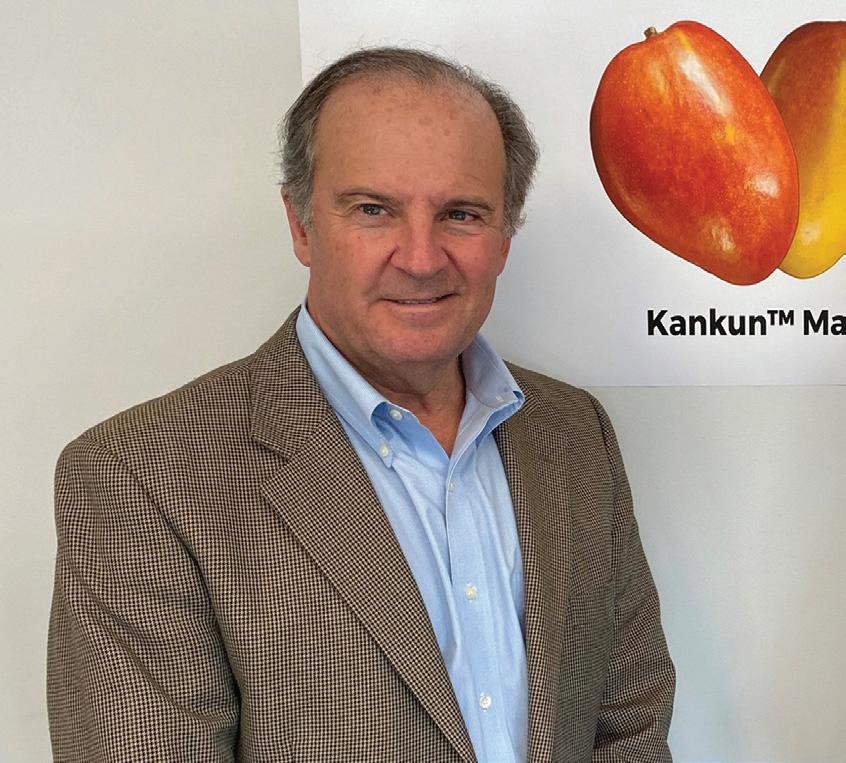

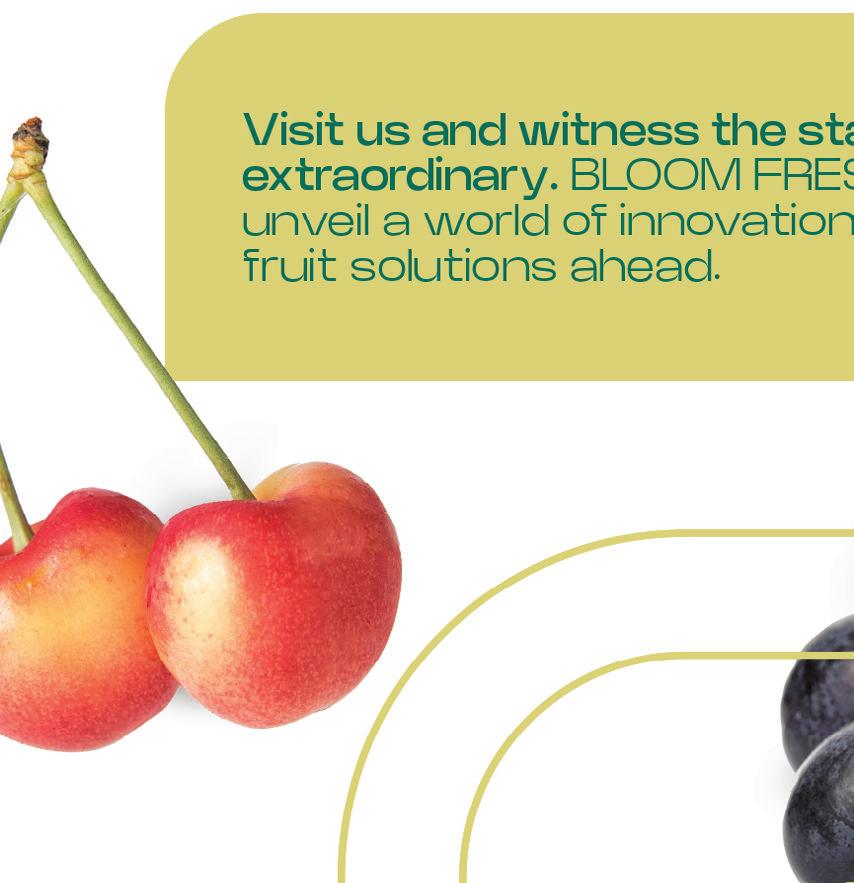
Hurricane Hilary has “heartbreaking” impact on table grape season with industry estimating 25m lost boxes.
by Liam O’Callaghan@liamfruitnet
The California Table Grape Commission has revealed the damage Hurricane Hilary has caused to the state’s crop with initial losses estimated at 25m boxes (8.6kg).
grown in the state. The immediate a ermath of the hurricane brought additional rain and humidity to many growing areas, compounding problems and loss.
“The revised estimate for the California crop is 71.9m 19-pound boxes. The last time the crop was under 75m boxes was 1994.”
community is in shock is an understatement.”
With approximately 30 per cent of the crop harvested when the hurricane hit, it is projected that 35 per cent of the remaining crop – 25m boxes – had been lost.
“The revised estimate for the California crop is 71.9m 19-pound boxes,” said Nave. “The last time the crop was under 75m boxes was 1994.”
Noting that it was typical for California to ship over 65 per cent of its crop a er 1 September, Nave said that based on the revised estimate there were still over 45m boxes of grapes the industry plans to ship.
Hurricane Hilary delivered wind and rain to many of California’s table grape vineyards at the end of August, during peak harvest time for most of the 90 varieties
BLO004 - INSERCION REVISTA 210x143.pdf 1 13/09/2023 10:37


“The impact of the hurricane and its a ermath is devastating and heartbreaking,” said Kathleen Nave, president of the California Table Grape Commission. “To say that the grower and farmworker
She said the industry planned to continue assessing the situation in the weeks ahead, providing updates as needed, and that the commission would continue its retail promotion activities and consumer advertising campaigns throughout the season. E

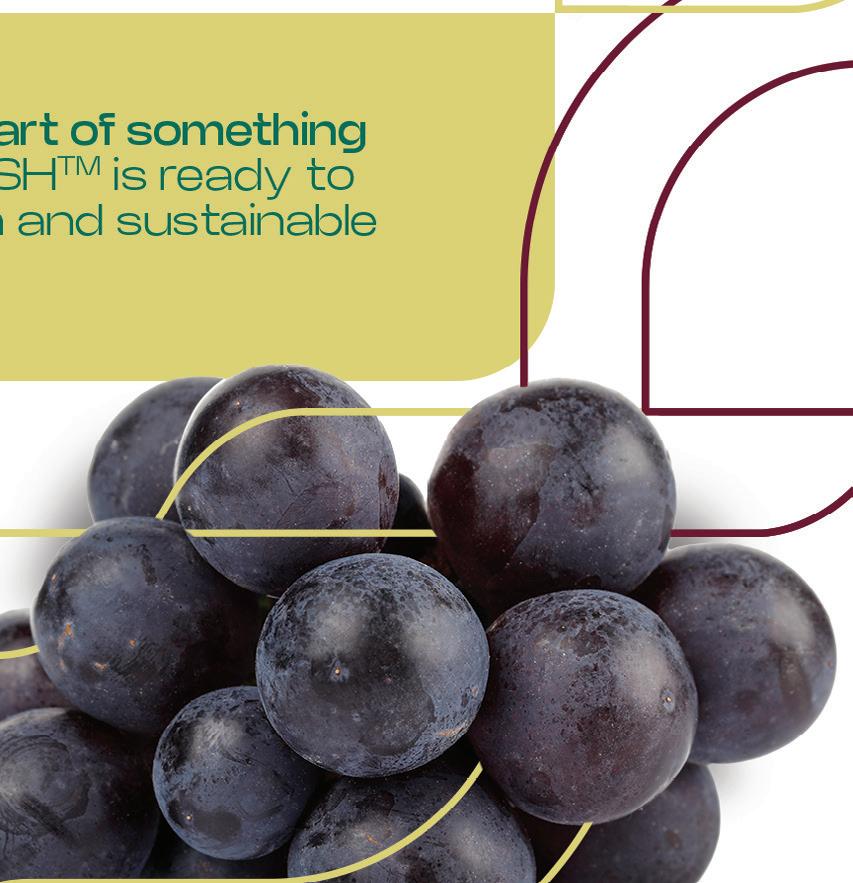

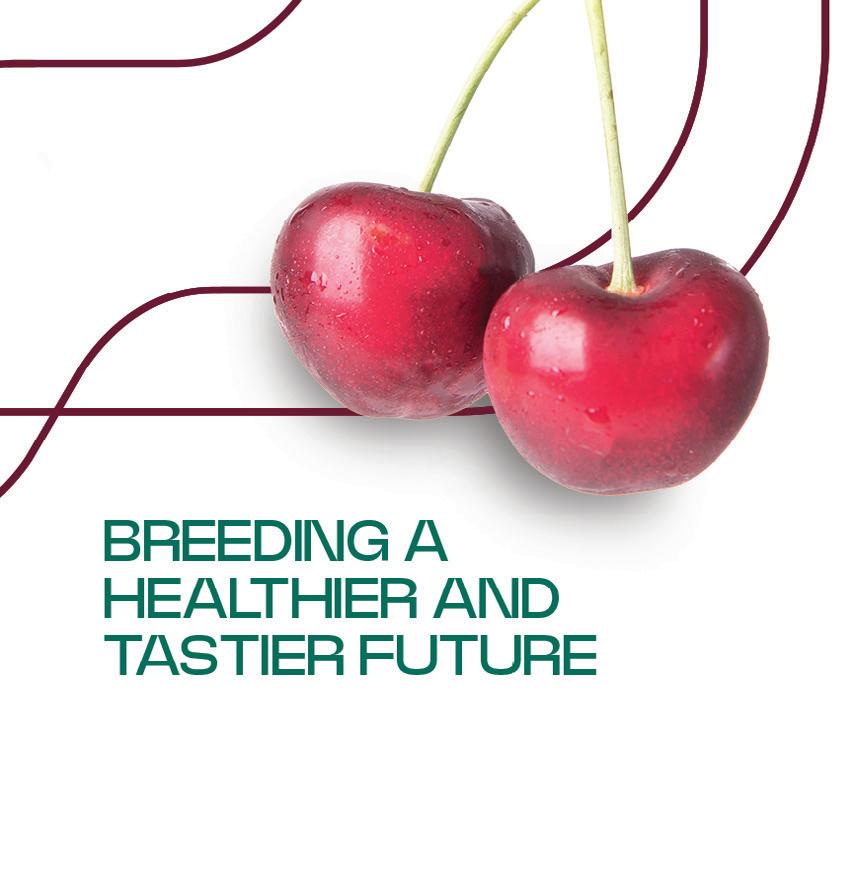
After a summer of excessive temperatures, record rainfall has left much of Central Greece underwater, flooding homes and farms and cutting the country in two.
by Tom Joyce @tomfruitnetIn August, vegetable prices soared in Greece after a prolonged European heat wave gave the country its hottest July for 50 years. According to a report from Iefimerida, salad prices started to rival those of meats. At Athens Central Market, courgettes were selling at €1 a kilogram, up from €0.70 the year before. In Thessaloniki, wholesale prices were even higher, 167 per cent pricier than the year before, and 118 per cent up from the previous week.
In Zagora, a staggering 754mm of rain fell in just 18 hours, far more than the 585mm London gets in a year
The list of astronomical price increases went on. Wholesale pepper prices from Thessaloniki increased from €0.50 to €1.50 year on year, according to Iefimerida. Tomatoes from Athens reportedly rose from €0.70 to €1.10, cucumbers and green beans recorded 100 per cent increases, while smaller rises were recorded in beetroot, radishes, celery and onions.
In the fruit category, watermelon prices increased by 100 per cent year on year, while increases of up to 20 per cent were recorded in apricots, peaches and cherries.
The extensive heat affected the

quality of leafy vegetables and tomatoes in the country, causing gaps in supply, according to Nick Nafpliotis, managing director of Greek & Fresh.
Nafpliotis said that extensive rainfall in June also affected grape production in the south of the country, while the cooler north fared much be er.
“In Crete, a reduced crop was recorded due to heavy rainfall in March, causing production to fall by about 30 per cent,” he said.
“However, the season generally went well, and prices were satisfactory.”
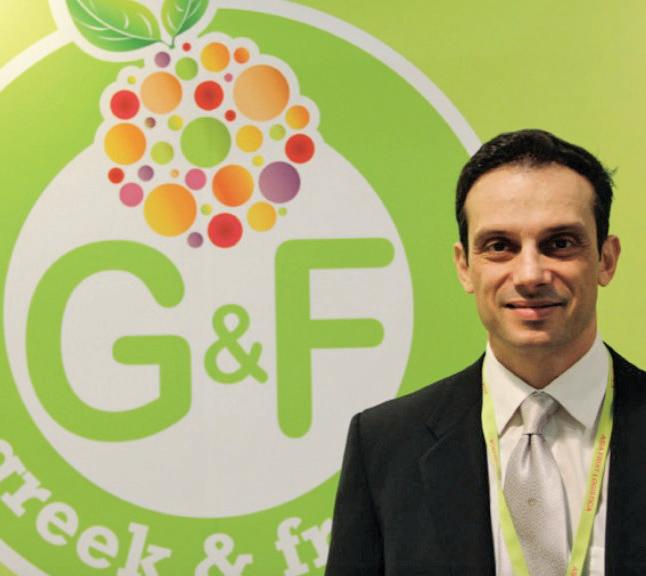
Corinth, the main production region for Greek grapes, experienced extreme heat. “The heat wave lasted for more than two weeks in July,” said Nafpliotis. “In many areas, more than 50-60 per cent of the crop was damaged, with even higher altitude areas being affected. Overall, this was a catastrophic season for grape producers in this region.”
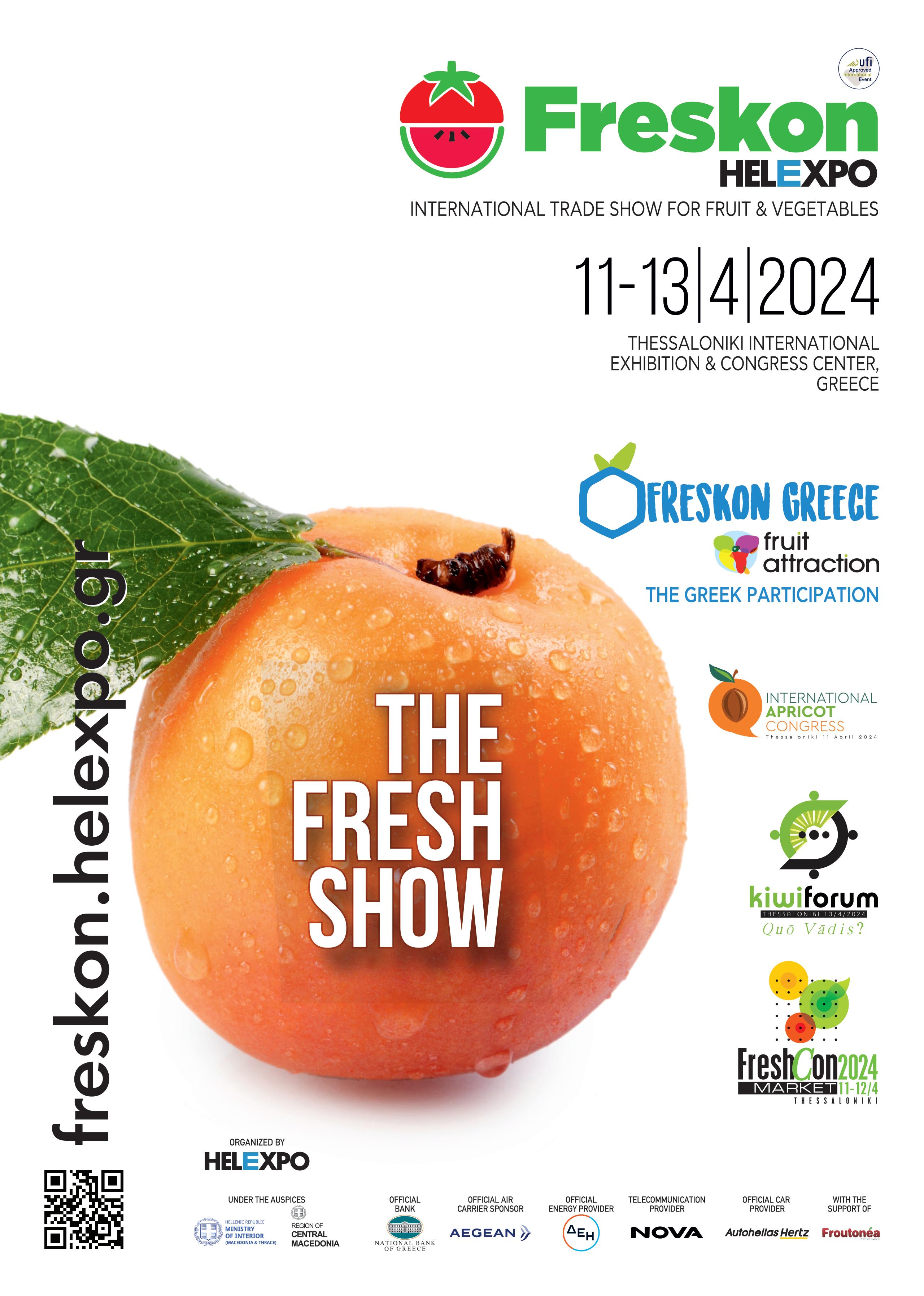
Then the real devastation arrived, in the form of widespread fires, including Europe’s largest ever in Greece’s Evros region, followed by record-breaking rainfall. In the village of Zagora on 5 September, a staggering 754mm of rain fell in just 18 hours, far more than the 585mm that London gets in a whole year.
been turned into lakes.”
“It’s phenomenal,” says Antonis Ioannidis, sales manager at Katerini-based Zeus Kiwi. “It’s unheard of. It’s something that we, as a nation, haven’t experienced in recent years. It’s a very tough situation, especially for areas like Volos or Larissa in Central Greece.”
to quantify.
“Whole villages are covered by water, and people can’t go back to their homes,” he says. “They were moved to other places and no one knows if they will be able to return. Certainly the EU will help. There is money for these purposes, but it takes time to take the necessary action. As a country we may have to change strategy in this region. Most probably, some of these places will have to be abandoned, both for farming and for living.”
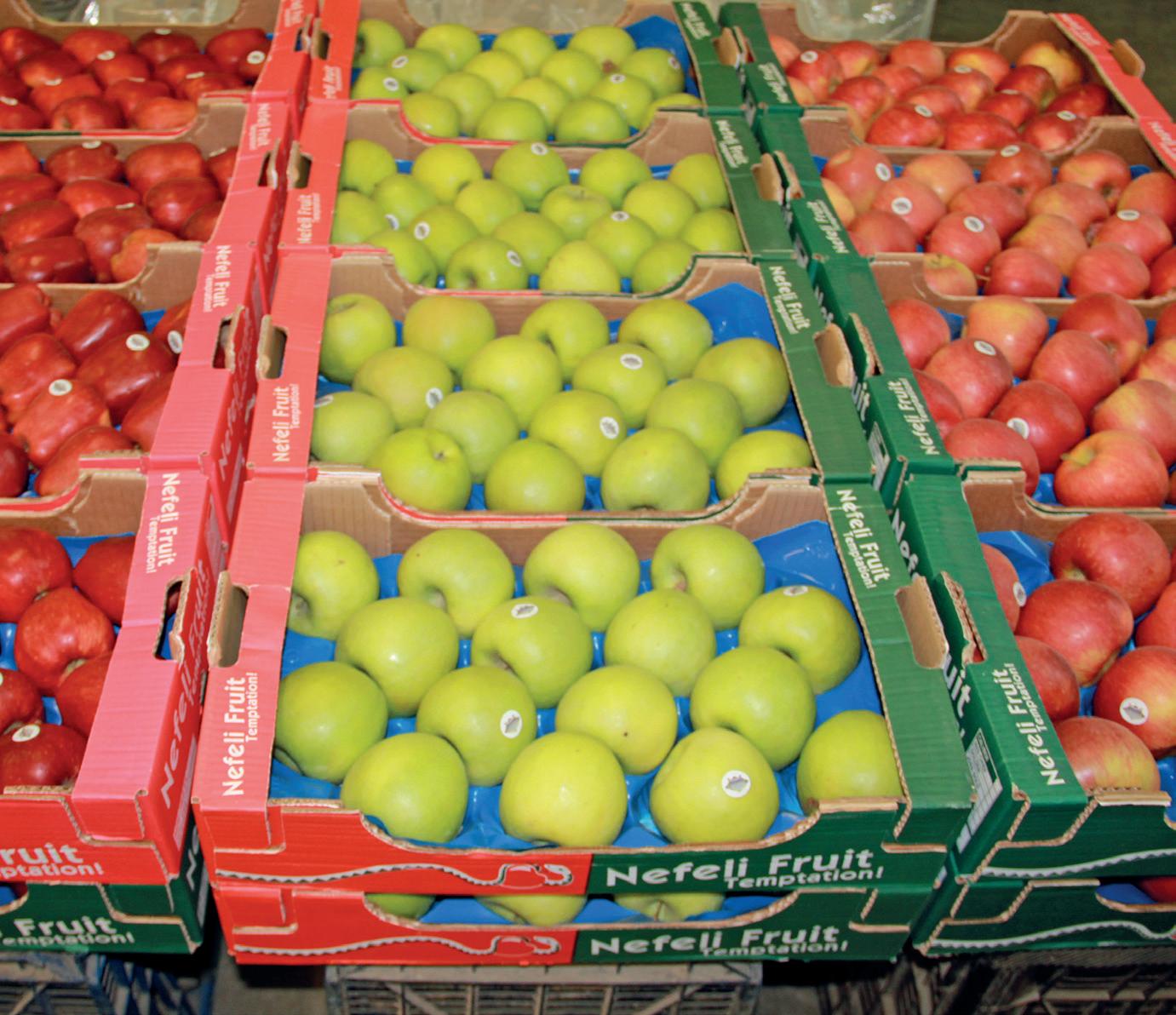
“We had a mega fire in the northeast of Greece, close to the border with Turkey,” says George Kallitsis. “This didn’t directly affect the farmers, but the subsequent floods have caused very serious problems. Three rivers flooded and they have cut the country in two. The national road from Thessaloniki to Athens has been closed, and a lot of farms have
According to Ioannidis, around 7 per cent of the total Greek production of fruit and vegetables comes from the affected areas, and almost 30 per cent of the country’s apple and pear production. It is also an important region for the production of tomatoes for processing.
According to Kallitsis, since most of Greece’s fruit production is in the north, most exporters can continue to export to northern European countries without issue. Those supplying Athens, however, have to make a long detour via the west of the country. The economic cost of the disaster already exceeds €1bn, he says, but the impact will be largely impossible
Greece’s grape-growing areas in the valleys and foothills of the Olympus mountain also received vast quantities of rainfall, but fortunately avoided the floods that so devastated many other regions.
“This is where our grape production is located,” says Ioannidis. “It was a very hot summer all across Greece and it is a late season for grapes. That was the only thing that kept us optimistic in terms of the amount of water the vines were tolerating, that the maturing stage was not there yet. Early uncovered fields are suffering from a number of issues, but the covered production is all okay. It is, however, very hard to predict how the vines and the fruit will

handle the next, let’s face it, statistically possible rainfall.”
As for kiwifruit, difficult seasons for Chile and New Zealand mean availability is likely to be stretched in the early stages of the Northern Hemisphere season.
“We will have some good kiwifruit production in Greece, but in the early stages there will be a lot of pressure on the market due to a lack of availability,” says Ioannidis. “Growers in Greece are optimistic about better prices, and we expect to have a successful season this year.” E














































The partnership leverages Flowspace software and adds more than 30 temperature-controlled coldstorage facilities to its fulfilment network.
by Carl Collen @carlfruitnet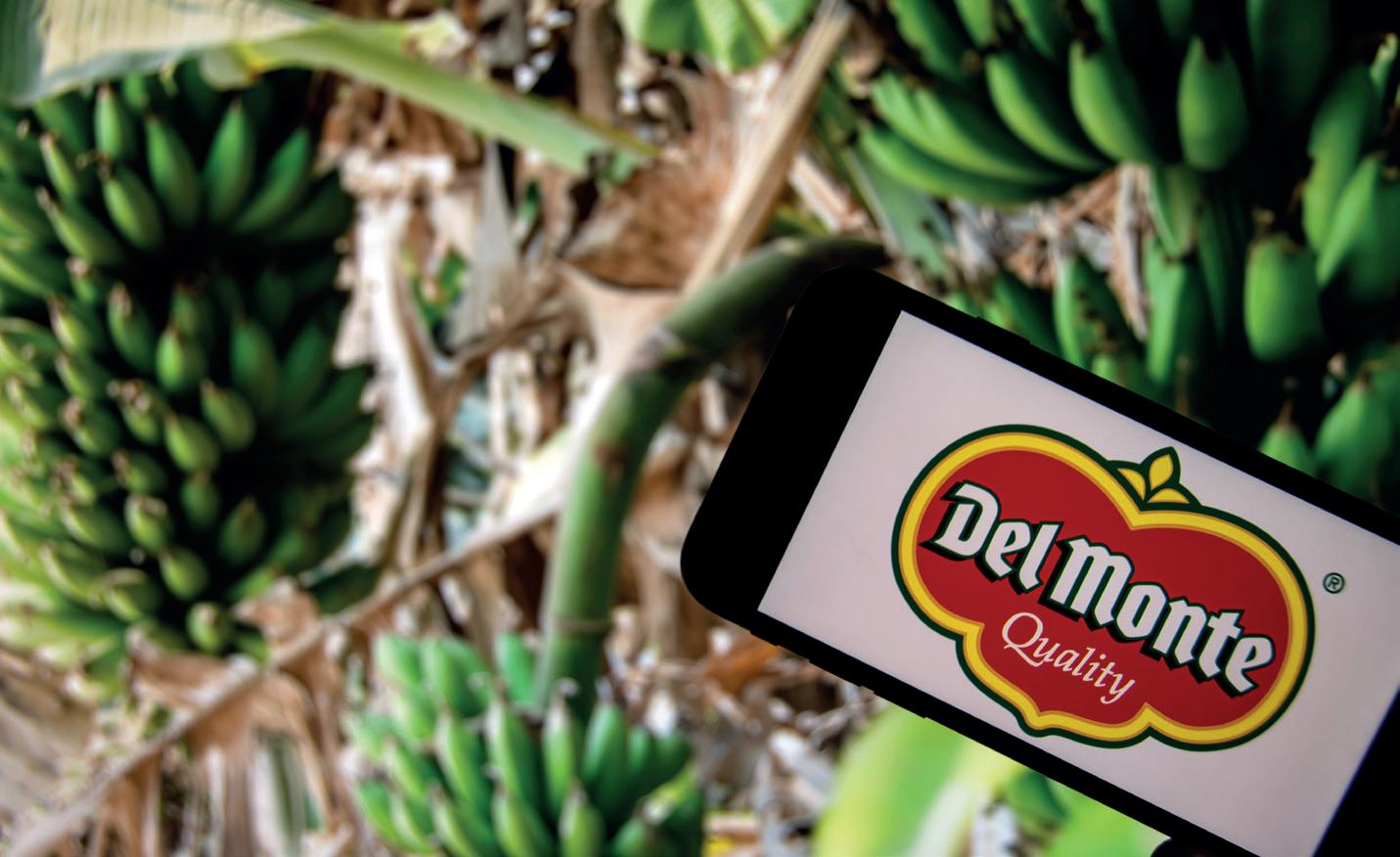
Fresh Del Monte Produce and software platform and distribution network Flowspace have announced a partnership to add 30 of Tricont Logistics’ temperature-controlled storage facilities to the Flowspace network of more than 100 fulfilment centres. Tricont Trucking and Tricont Logistics is Del Monte’s third-party trucking and logistics company.
According to Del Monte, Tricont will use Flowspace’s so ware to streamline the growth of Tricont Logistics, which services all types of customers, primarily urgent, complex supply chains.
The partnership allows Del Monte to continue leveraging its assets and growing its thirdparty logistics business, while also expanding capacity for consumer packaged goods (CPG) brands requiring temperature-controlled facilities within Flowspace’s existing
network. Tricont will leverage Flowspace’s OmniFlow so ware to orchestrate and optimise omnichannel fulfilment within its facilities for fulfilment and enhance its logistics capabilities.
“Flowspace so ware streamlines the end-toend fulfilment operation, improving visibility and orchestration for merchants and fulfilment operators alike,” said Frank Garcia, senior vice president of operations at Flowspace. “Together with Tricont, we are reshaping the logistics landscape for CPG companies, se ing a new standard for excellence in fulfilment.”
Del Monte said that its logistics arm was continuing to grow as the company identified new ways to optimise its assets and generate additional streams of income.
“We’re excited to partner with Flowspace as a way to further optimise the use of our temperature-controlled storage facilities for third parties,” said Ziad Nabulsi, Fresh Del Monte’s senior vice-president of North America operations. “We believe Flowspace’s technology designed to facilitate ecommerce and retail fulfilment will help us continue expanding our Tricont Logistics business to be able to offer our best-in-class logistics services to more customers.” E
MustGrow Biologics and Janssen PMP have announced a significant expansion to their existing exclusive evaluation and option agreement to test and develop MustGrow’s biological mustard plant-based technologies for certain postharvest food preservation storage applications worldwide. The agreement will now also include postharvest potatoes and bananas globally.
Under the agreement, the initial evaluation work excluded postharvest potatoes and bananas. However, with 15 months of postharvest evaluation work completed utilising MustGrow’s technology, Janssen PMP and MustGrow have produced “very encouraging and efficacious results”, supporting the decision to add postharvest potatoes and bananas to Janssen PMP’s exclusive evaluation work.
“The postharvest banana market is one of our historical markets where the need for natural fungicides is growing,” said Geoffroy de Chabot-Tramecourt, director R&D and business development at Janssen PMP. “Also, developing a natural technology acting as an antisprouting and as a fungicide for stored potatoes is a major opportunity for Janssen PMP and for the industry.”
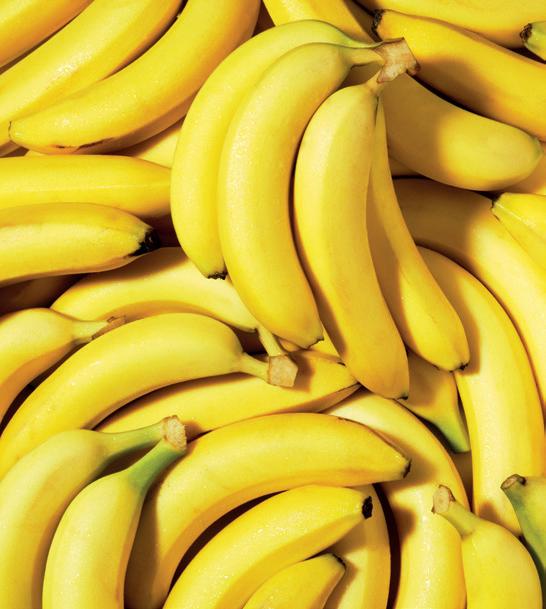

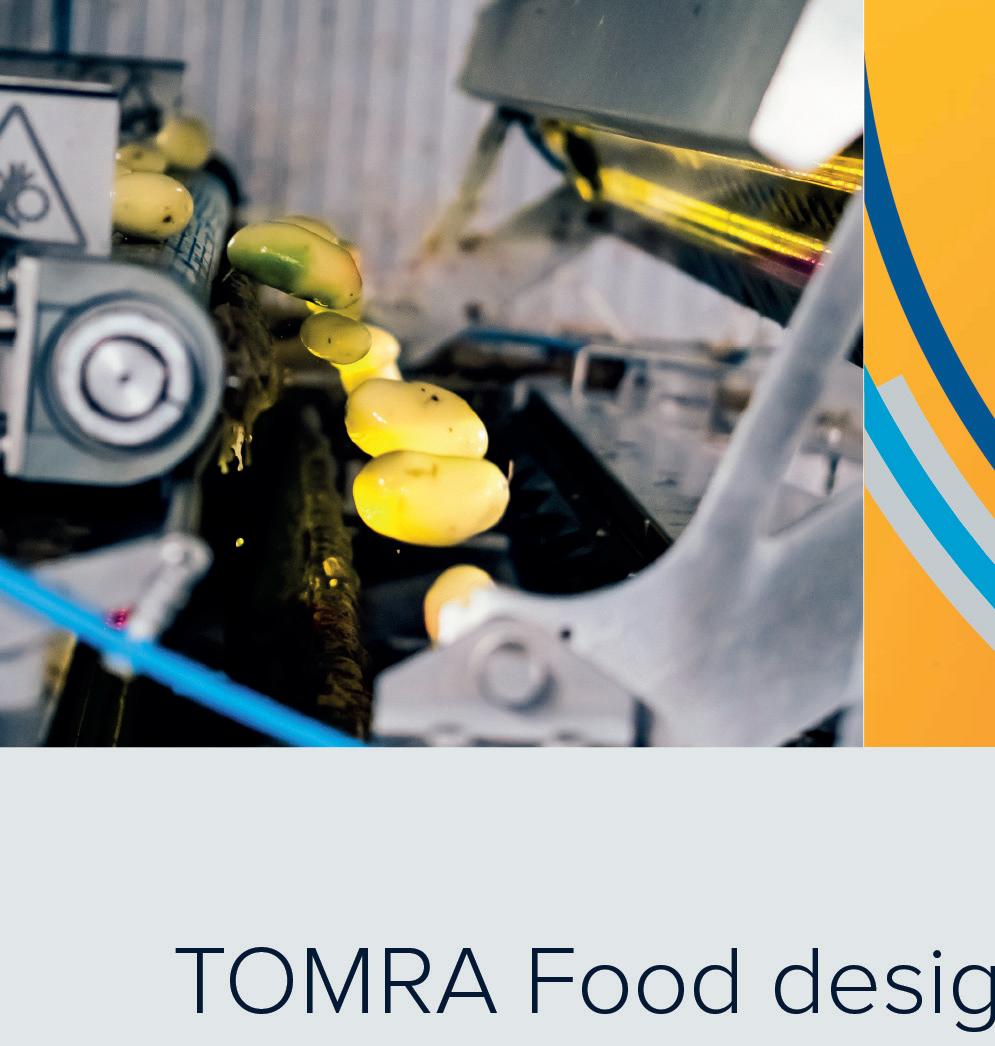

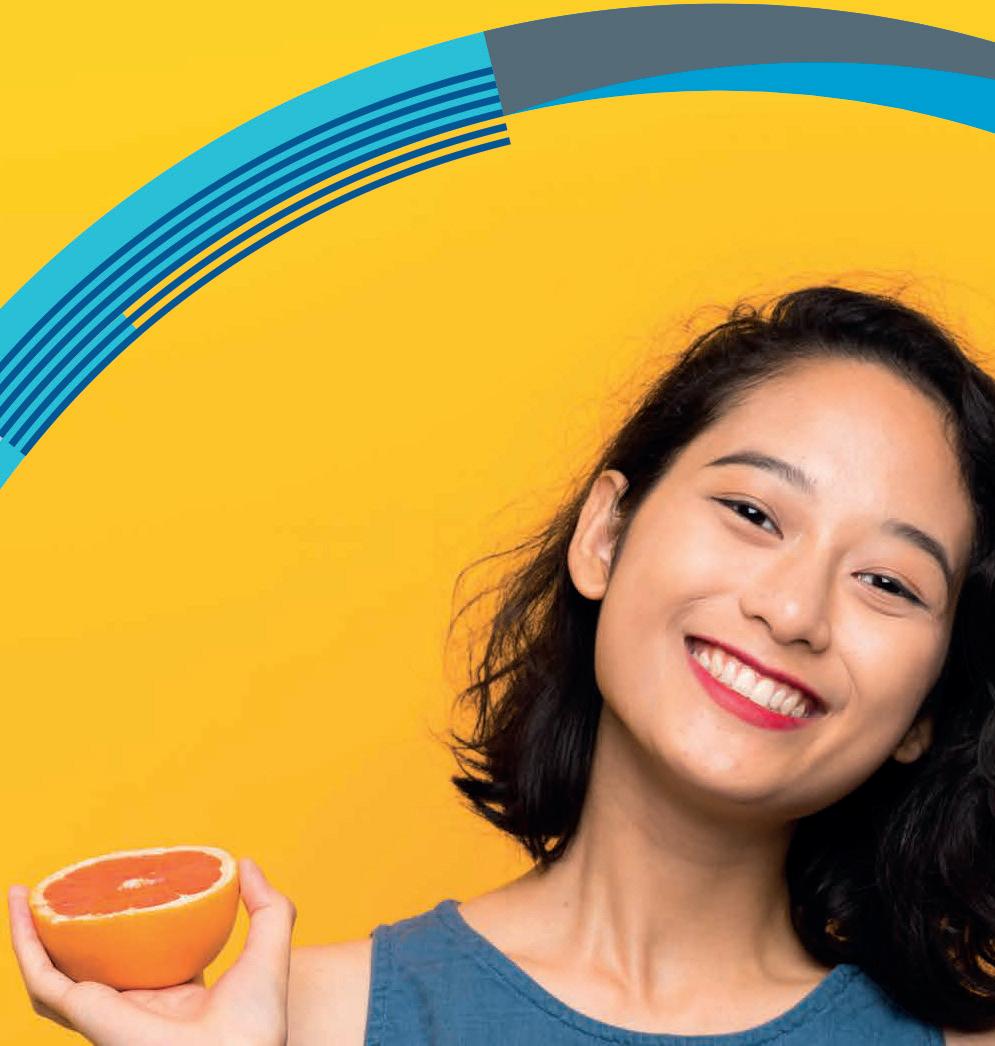

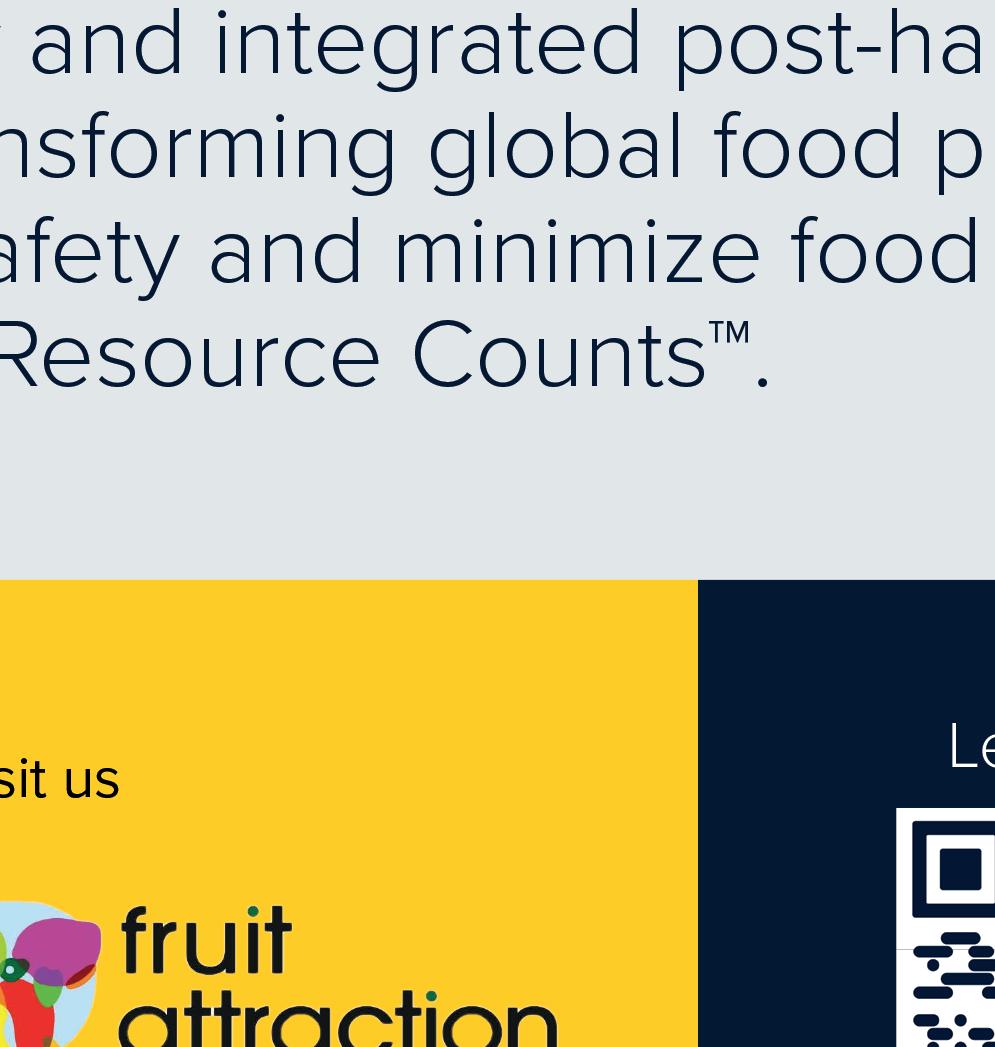



Group says that its PepperCorer machine marks a “revolution” in pepper processing.
by Carl Collen @carlfruitnet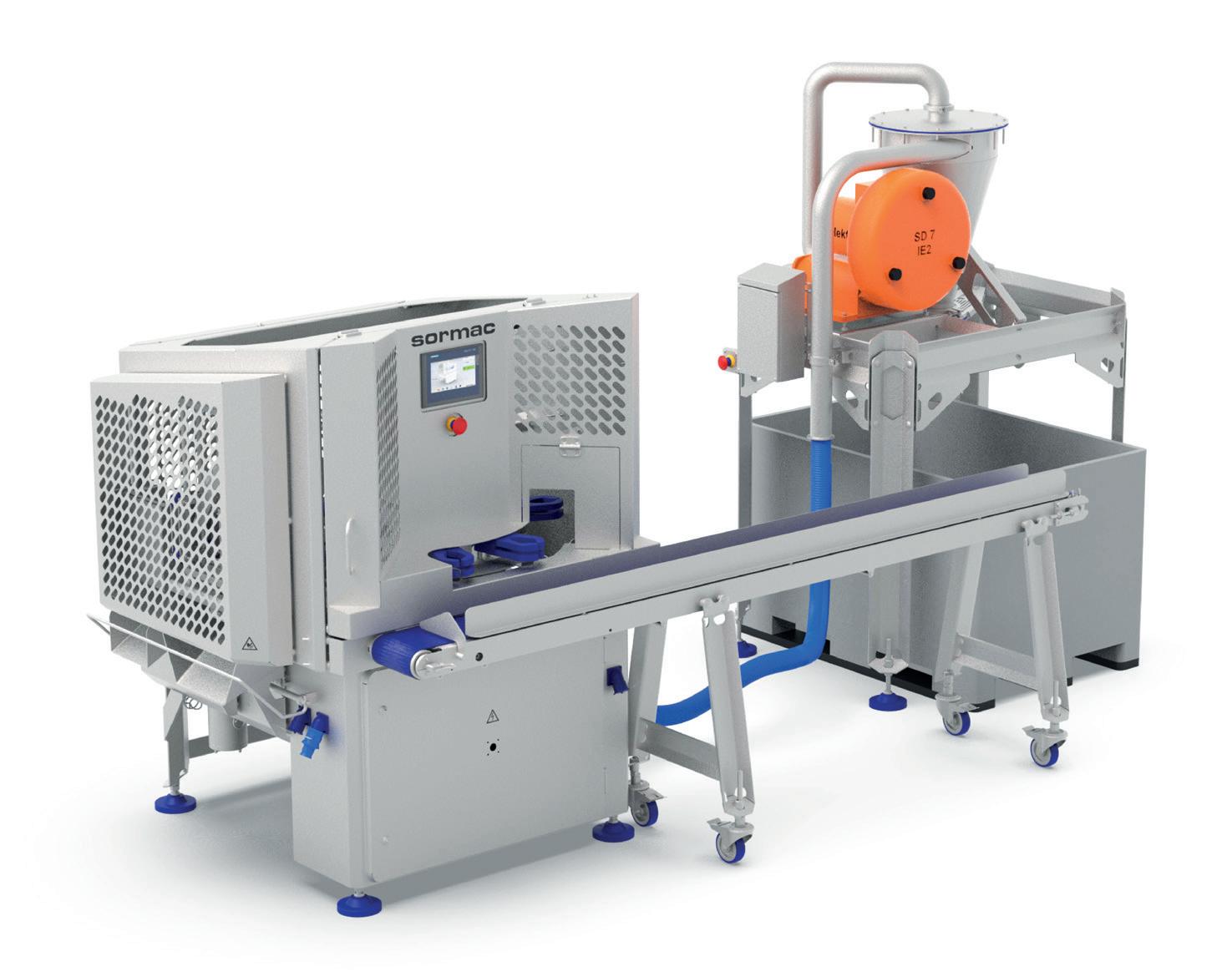
ABOVE—The PepperCorer is described as flexible, versatile and hygienic
Dutch fresh-cut machinery and processing line specialist Sormac has championed its new PepperCorer, which it has described as “a true revolution in pepper processing”.
First introduced in 2022 and available worldwide, the PepperCorer machine measures the length of the pepper and then adjusts the coring depth accordingly.
According to Sormac, this ensures that each bell pepper is perfectly cored, without cu ing into the walls. Depending on the type of pepper and the desired result, different bore diameters can be installed to optimise cu ing results.
“The machine is flexible, versatile and hygienic – everything the modern processor wants,” it states.
The PepperCorer cuts the pepper both horizontally and
PepperCorer PC PC-55
Cuts bell peppers into squares, sticks and rings. Capacity up to 3,300 pcs/hr.

surprisingly versatile
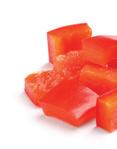





vertically, offering a variety of cu ing options like shashlik cubes, rings and segments.
Sormac notes that replacing the modular unit is quick and easy, and that the PepperCorer is hygienic, with an improved vacuum unit to ensure effective waste separation. It is also easily accessible without compromising safety, it says.
“These features contribute to a unique machine that delivers a perfectly cut product – a revolution in pepper processing that hasn’t gone unnoticed,” the company adds. “Since its introduction in 2022, multiple machines have been installed worldwide.” E
small details
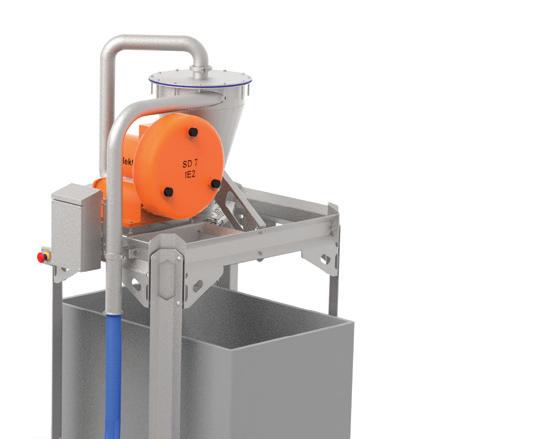


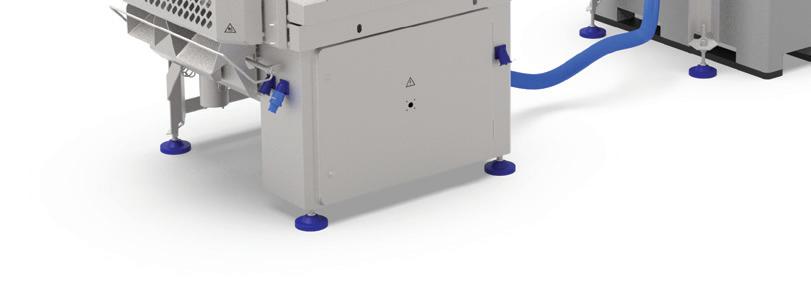



Sormac Ltd.
Sean Martin
C: +44 (0)7771 882 516
s.martin@sormac.co.uk
www.sormac.co.uk
Hazera serves as design partner on the group’s in-field sensing solution that monitors pollinator activity to improve crop pollination.
by Carl Collen @carlfruitnetPrecision pollination specialist BeeHero has introduced its Pollination Insight Platform (PIP), an in-field sensing solution that measures pollinator activity in crops to improve pollination and increase yields.
According to BeeHero, PIP utilises its patented in-hive sensors, which provide in-field sensing capabilities for a variety of seed, row, and specialty crops, to enable real-time, data-backed decisions by growers. The new technology builds on and will also contribute to BeeHero’s dataset of bee behaviour, the largest such database in the world, fuelled by the 200,000 hives under BeeHero management.
“About 75 per cent of major food crops rely on pollinators, the most important one being bees,” the group states. ”Ensuring that these crops are pollinated effectively and efficiently is crucial for sustainable agriculture and the future of the global food supply.
”The success of pollination and crop yield heavily relies on the number of bee visits to required crop flowers. By understanding the rate at which bees visit those required crops, growers can gauge the efficacy of pollination and identify potential issues in the process, allowing them to take proactive measures to enhance results.”
BeeHero’s in-field sensors measure bee activity, including bee visits to flowers and other bee behaviour, as well as environmental conditions.

“Bee pollination serves as the bedrock of modern agriculture and future food supply, and yet it has historically been a black box,” explains Omer Davidi, co-founder and CEO of BeeHero. ”We are commi ed to expanding transparency for beekeepers and growers by enabling them to leverage unprecedented data, not only within the hive but, now, beyond it.
“This new platform empowers growers with crucial knowledge about the actual bee activity in the field – with huge positive implications for seed, row, and

ABOVE—Bee pollination is essential to many crops


A new campaign is urging public action to push the UK government to prioritise the reduction of “polluting” fossil fuel-based nitrogen fertilisers.
by Tom Joyce@tomfruitnet
The Soil Association has warned the UK government that its failure to act on fossil fuel-based fertilisers is putting the country’s whole Net Zero Strategy in jeopardy.
Soil Association head of farming policy Gareth Morgan commented: “It is shocking that the
fertiliser’ petition, calling for the government to put an immediate plan in place to cut fossil-fuel-based nitrogen fertilisers. The Soil Association said it was working with farming and environmental NGOs to establish an action group on nitrogen to press the government.
Not only is nitrogen a key contributor to climate change when released as nitrous oxide, which is 300 times more potent at warming the atmosphere than CO2, farmers’ reliance on “expensive and polluting” fossil fuels also makes them vulnerable to major price spikes and events like Russia’s invasion of Ukraine, Morgan said.
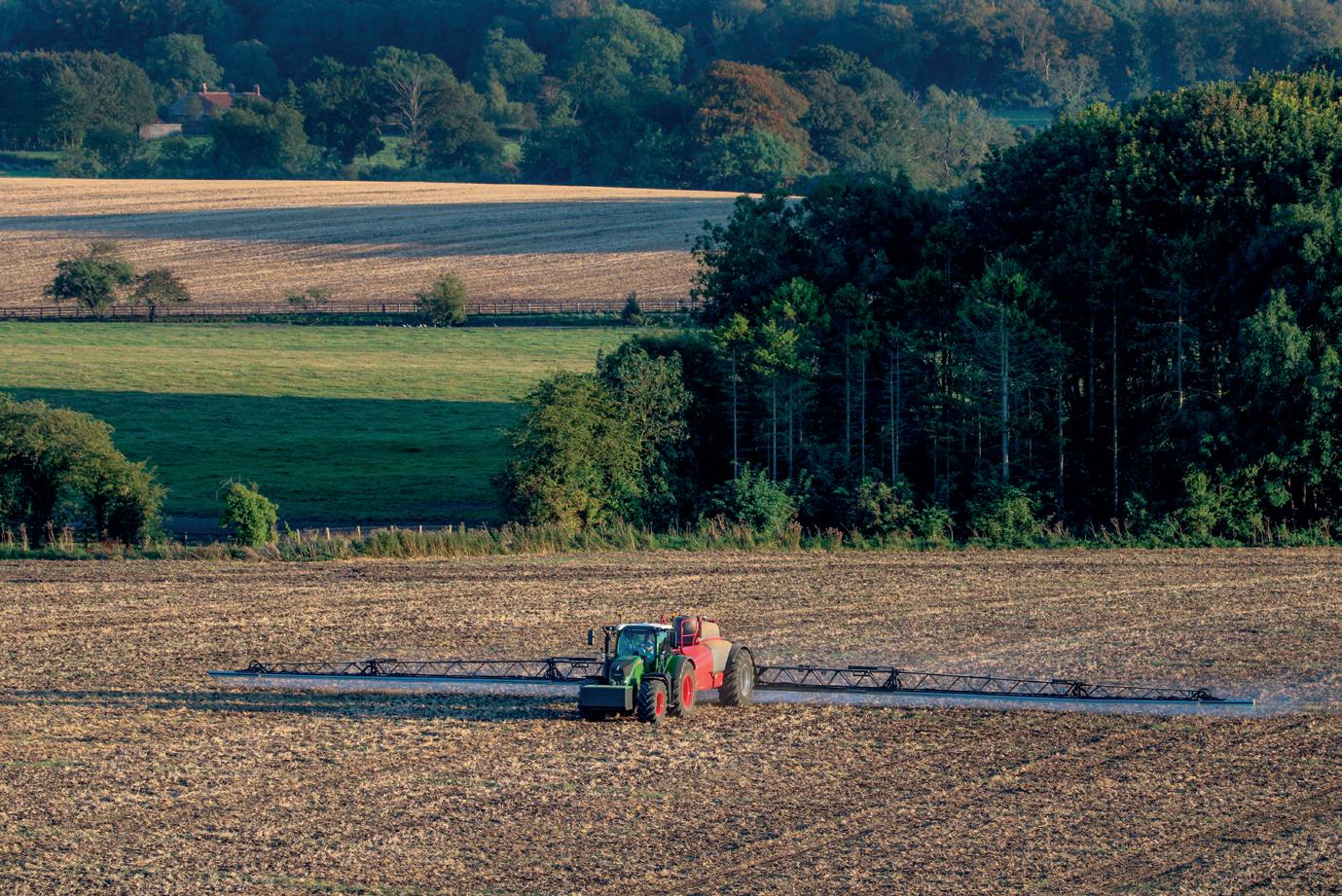
government’s Net Zero Strategy makes only a passing mention of the impact of fossil fuel-based fertilisers on the climate and environment and even more alarming that they have no plan in place to support farmers to reduce their reliance on them.”
A new campaign is urging the public to sign the ‘There’s no Net Zero without fi xing
“Agriculture and the food system are responsible for a third of all greenhouse gas emissions and failing to address this will mean that the government has simply no prospect of meeting its net zero target,” he warned.
“It is vital that the government demonstrates its commitment to net zero by se ing a target for reducing fossil fuel-based fertiliser in UK farming and offers incentives and advice to support farmers to reduce their dependence on nitrogen fertiliser and adopt cheaper, more nature friendly approaches to fi x nitrogen on their farms.”
He said the experience of organic farmers could be used to steer the industry toward more nature-
BELOW—The Soil Association is urging the government to set a target for reducing fossil fuel-based fertilisers
friendly farming practices.
“Organic farmers build natural fertility using nature friendly farming practices incorporating natural fertiliser, crops including legumes and clover in rotations, and a whole farm system approach,” Morgan explained. “This experience can help conventional farmers to reduce their reliance on costly inputs which will deliver significant benefits for the climate and biodiversity.”
In defence of the role played by mineral fertilisers in agriculture, Jo Gilbertson, head of fertiliser at the Agricultural Industries Confederation (AIC), expressed some doubt over the large-scale shi to organic farming and stressed the efforts the sector was making toward decarbonisation.
"Mineral fertilisers play a critical role in food production as part of a range of necessary inputs, with these products supporting sustainable, resilient farm businesses," he said. "The evidence clearly shows that a large-scale shi to organic farming practices would mean increased atmospheric and water pollution caused by expanding cropping areas by as much as 200% to produce the same amount of food. This would also result in higher food costs and detrimentally impact the UK's food security.
"The fertiliser sector is continually innovating to decarbonise manufacturing processes. New products, such as green ammonia-based nitrogen fertilisers and other low carbon footprint minerals, are in development and farmers are being encouraged to look at their nutrient use efficiency.” E



























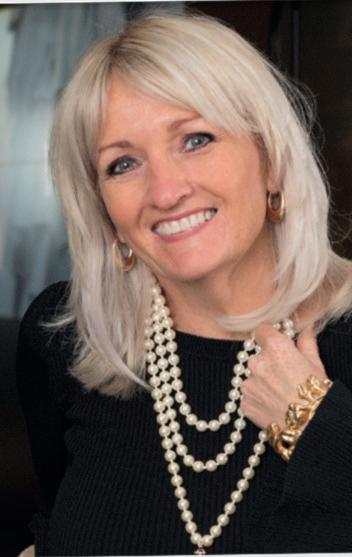











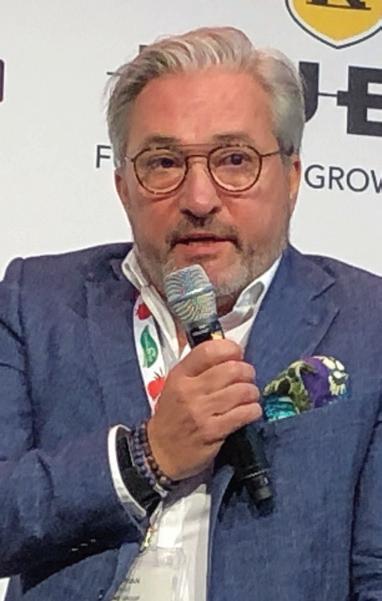
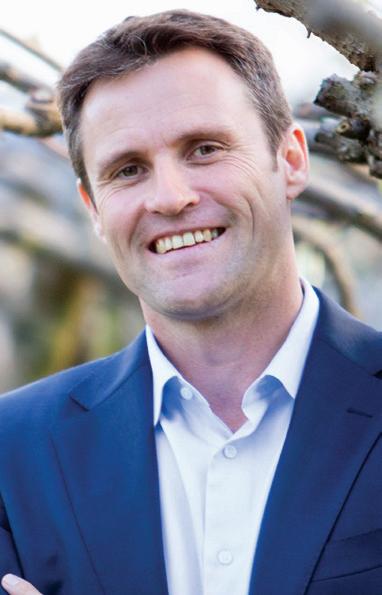


















Short-termism is frequently identified as the main culprit in our failure to tackle the climate crisis. Action over a looming problem like climate change can be put off seemingly indefinitely while the short-term rewards are sufficiently attractive – and while the issue continues to loom, of course.
Awkwardly for those invested in denying or downplaying the crisis, climate change’s ability to loom somewhat far off in the distance has come under question. Many argue something can’t be looming if it’s already flooding into your apartment at 4am or turning fields that have been fields for as long as anyone can recall into massive lakes. Some scientists now argue that it’s gone from “looming” to “ubiquitous”. These days, those on the fence are probably just trying to stay dry.

The devastation wrought by multiple simultaneous disasters now leads the news virtually every day, laying bare the short-term impacts of a warming climate for all to see. If our political leaders suffered merely from short-termism, you could argue, they would have done vastly more about it by now. Some suggest the real problem is our leaders’ term limits. That would be far more compelling if they were doing much to help struggling people right now, and stopped ending sentences with “Mwahaha!” and such. E

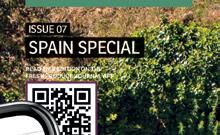








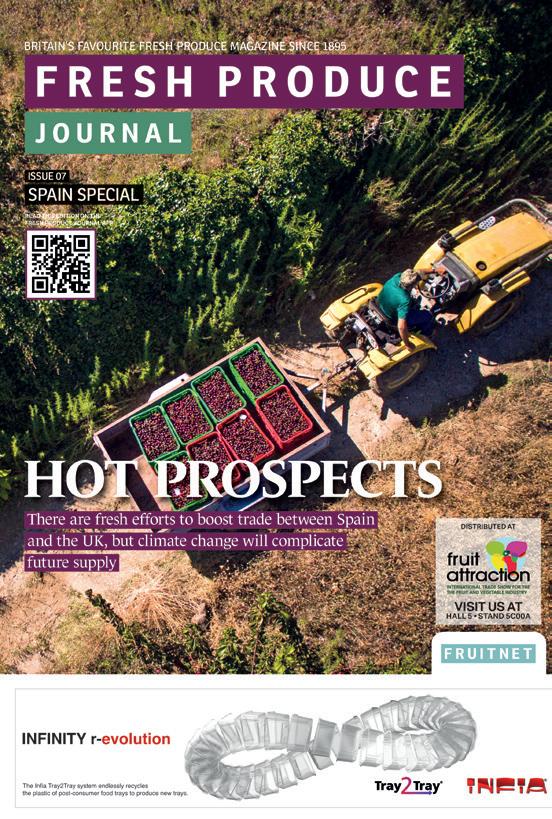


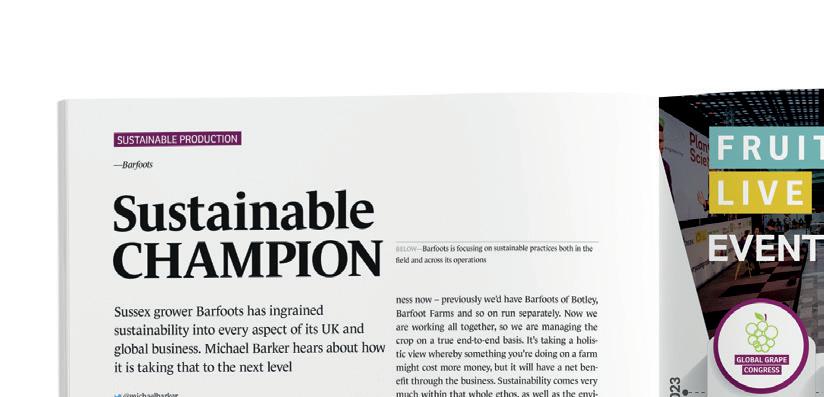

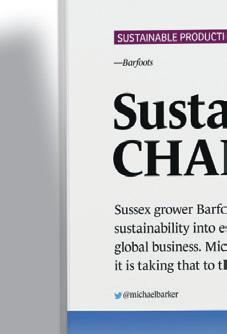



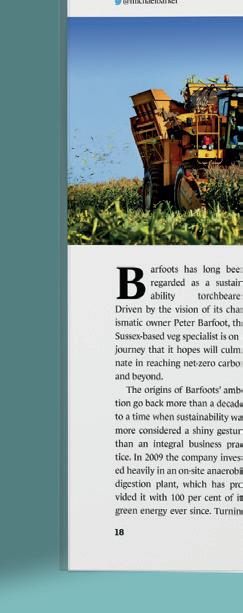

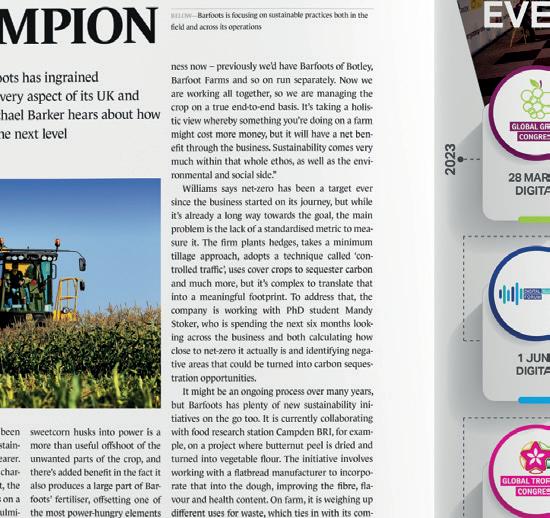














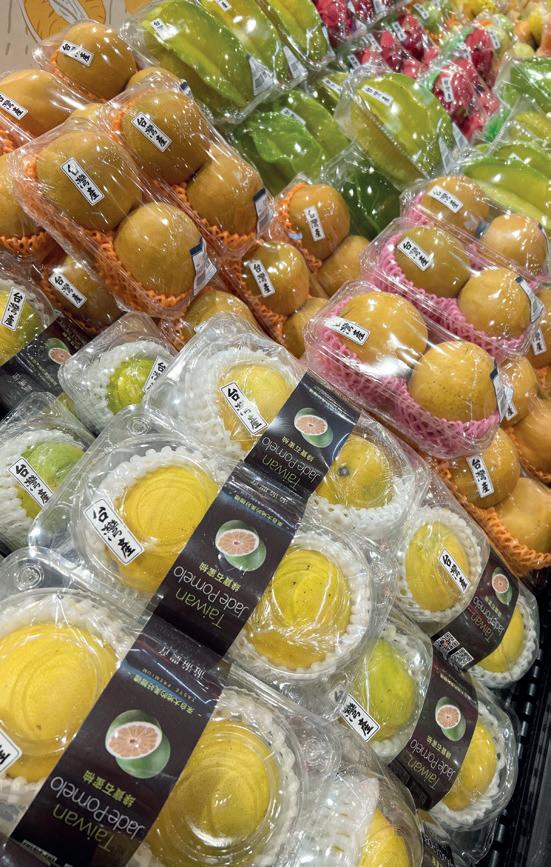
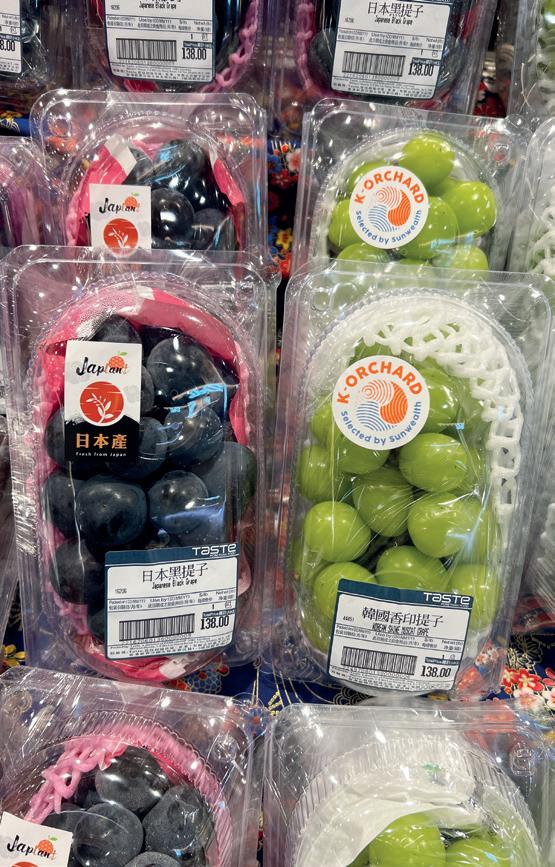

A visit to a supermarket in Hong Kong offers a reminder of how, on the other side of the world, fresh fruit and vegetables are presented in very different ways. Yes, this Taste store is similar to the compact, urban format we know well in Europe. But look closer and there’s a striking contrast: a lot of the fruit is wrapped in multiple layers of packaging, including items like apples, pears, grapes, and oranges that are not normally sold in plastic containers in places like Germany, Spain, or the UK. One of the big reasons for this packaging frenzy is the tradition of gifting fruit around traditional festivals, and the importance of protecting the produce on its journey from giver to lucky recipient. Environmentalists might not be too happy about it, but here in Hong Kong, shoppers seem over the moon. E
